
WESTSIDE CORPORATION
Australia’s leading oil and gas exporter
PREMCAR PTY LTD
New cars that buyers really want


WESTSIDE CORPORATION
Australia’s leading oil and gas exporter
PREMCAR PTY LTD
New cars that buyers really want
BUMA Australia has a vision to build a modern mining and rehabilitation company, that drives growth, sustainability and prosperity
Chris Ware , General Manager of Mayfield Industries, shares how his company contributes to the growth of Australian electrical infrastructure



For over a decade, our portfolio of in-house magazines has been lovingly produced, printed, and distributed to our esteemed subscribers across the globe from our headquarters in the UK.
But now we are moving with the times, adopting a digital-first approach by producing online-only publications. A major factor in this decision is to minimise our environmental footprint, reducing the carbon emissions involved in the logistics of print magazine distribution and the resources required therein.
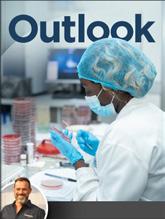

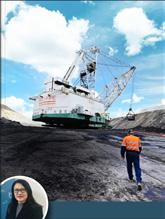

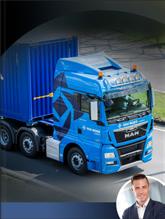
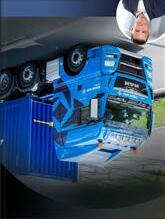




“We always planned that when our digital subscribers consistently accounted for 85% of our total magazine subscribers, we would cease printing our publications in-line with our environmental and sustainability goals.”
– Ben Weaver, CEO, Outlook Publishing LtdGoing forward, we will provide print orders of any magazine in-line with the requests of our featured companies, subscribers, and conference & expo partners.
Please get in touch for a print-on-demand quote or visit our website to find out more.
www.outlookpublishing.com/subscribe
Director: Joshua Mann joshua.mann@outlookpublishing.com
HEADS OF PROJECTS
Callam Waller callam.waller@outlookpublishing.com
Deane Anderton deane.anderton@outlookpublishing.com
Eddie Clinton eddie.clinton@outlookpublishing.com
Josh Hyland josh.hyland@outlookpublishing.com
Ryan Gray ryan.gray@outlookpublishing.com
BUSINESS DEVELOPMENT DIRECTOR
Thomas Arnold thomas.arnold@outlookpublishing.com
TRAINING & DEVELOPMENT MANAGER
Marvin Iseghehi marvin.iseghehi@outlookpublishing.com
SALES AND PARTNERSHIPS MANAGER
Donovan Smith donovan.smith@outlookpublishing.com
PROJECT MANAGERS
Cameron Lawrence cameron.lawrence@outlookpublishing.com
Dennis Morales dennis.morales@outlookpublishing.com
Jack Belton
jack.belton@outlookpublishing.com
Jordan Levey jordan.levey@outlookpublishing.com
Kierron Rose kierron.rose@outlookpublishing.com
Kyle Livingstone
kyle.livingstone@outlookpublishing.com
Liam Pye
liam.pye@outlookpublishing.com
Nicholas Kernan
nicholas.kernan@outlookpublishing.com
Poppi Burke poppi.burke@outlookpublishing.com
Taylor Green
taylor.green@outlookpublishing.com
ADMINISTRATION
Finance Director: Suzanne Welsh
suzanne.welsh@outlookpublishing.com
Finance Assistant: Suzie Kittle
suzie.kittle@outlookpublishing.com
Finance Assistant: Victoria McAllister
victoria.mcallister@outlookpublishing.com
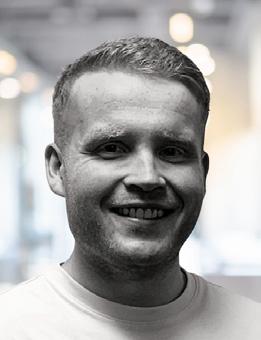
Welcome to our 65th edition of APAC Outlook magazine.
As new technologies and energy solutions are increasingly required across the world, their introduction has created strong demand for a multitude of elements and rare minerals.
This has directly resulted in a global mining boom amid a dynamic period of change for the industry, in which the collective focus has pivoted towards managing the environment whilst maximising the extraction of resources.
Australia assumes a frontrunning role in futureproofing the mining sector, for which it is famed across the world thanks to the country’s fascinating mining history.
It is also a particularly exciting time for the industry in Queensland, where several long-term contracts are currently being operated by our cover star, BUMA Australia (BUMA), who has been providing mining services for 75 years.
“The key to our continued contract success comes from our focus on delivering services to meet evolving client needs, using a flexible and adaptable approach,” says Ngaire Tranter, General Manager of BUMA.
“Blackwater is one of BUMA’s most established and successful projects, showcasing efficient operational practices, along with a steadfast commitment to safety, community, and our team.”
Specialist projects have likewise been executed in Australia and across Asia Pacific by Spiecapag, a leader in pipeline construction contracting and horizontal directional drilling with a regional office based in Brisbane. We delve into four decades of pipeline projects and consider how the company’s expertise is highly transferrable to the hydrogen space, as Australia casts itself as a future renewable energy superpower.
“The hydrogen production technology is still being proven, but increasingly, scale production facilities are being discussed,” notes John Walsh, Managing Director of Spiecapag Australia.
There are equally emerging opportunities in the electrical industry, driven by the transition to a low-carbon economy.
Providing critical electrical infrastructure for various industries, including mining and oil and gas, is Mayfield Industries.
“From conception to production and beyond, we prioritise the well-being of users and ensure that our products not only meet but exceed safety standards,” shares General Manager, Chris Ware.
Elsewhere in our final issue of 2023, learn how Melton City Council is preparing for unprecedented growth, Atos is creating the digital workplace of tomorrow, and Zenith Energy is providing sustainable power.
We hope that you enjoy your read.
Jack Salter Head of Editorial, Outlook Publishing

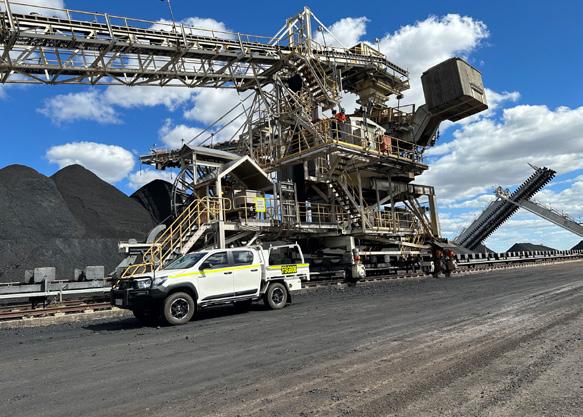





Around Asia Pacific in seven stories…

PACIFIC COAST PRODUCE, a fruit grower in the far north of Queensland, is hoping to break into the Japanese fruit and veg market with a revitalised importation strategy.
In a nation-first trial, red, waxtipped, ‘ecoganic’ bananas, as well as Queensland-grown Emperor Pearl melons, have been air freighted directly from Cairns, rather than
CHINA’S GOALS TO MEET CARBON NEUTRALITY
IN
A BID to achieve the country’s carbon neutrality goals by 2025, China’s National Development and Reform Commission (NDRC), amongst other government departments, has recently introduced a guideline to solidify a carbon footprint management system. The guideline dictates a national
shipped via Sydney. This has saved both time and money in the export of produce to Japan.
Direct air travel mitigates the negative impacts of shipping that can affect the ripening and overall freshness of fruit. Therefore, the use of a direct export route reduces the risk of food waste and maintains the optimum condition of the produce.

TOYO TIRES MALAYSIA (TTM), a division of Toyo Tire Corporation, won the ‘Team of the Year – Manufacturing’ award at the most recent Malaysia Management Excellence Awards.
TTM has become a key industry player since its inception in 2011 in Taiping, establishing a prominent standing in the tyre and rubber products sector.
The award given to TTM recognises and celebrates the company’s exceptional leadership, as well as the business’ innovative programmes that have generated significant industry gain for the company.

product carbon labelling certification, which refers to the total amount of greenhouse gas (GHG) emissions generated from the production and transportation of a product through its lifecycle.
There are five key development areas indicated by the guideline, including carbon footprint accounting standards, data bases, and certification systems, as well as promoting carbon footprint products and international cooperation.
SINGAPORE’S MINISTRY OF Finance has introduced a new relief package in the form of SGD$1.1 billion, to reduce the burden of the cost of living crisis in the country.
The support package will aid lower to middle-income households and small to medium-sized enterprises (SMEs) in the form of cash payments, vouchers, and subsidiary schemes.

The aid is to be distributed at the end of 2023 and beginning of 2024, to help alleviate the negative impacts of inflation on the population, which have been an ongoing challenge since Singapore emerged from the COVID-19 pandemic.
A NUMBER OF Chinese airlines have cancelled flights to Thailand because of limited tourist demand. Such airlines include Air China, China Eastern, and Shanghai Airlines, who have all cancelled flights between December and January as a result of
booking level requirements not being met.
Earlier in the year, the government introduced an initiative in which Chinese nationals could access a free visa, however, this initiative fell short of the number of tourists it was predicted to generate.
As such, the cancellations are due to the lack of people willing to leave the country, compounded by China’s current economic deceleration.

FOLLOWING A VISIT to Tokyo from Vietnam’s President, Vo Van Thuong, the relationship between Vietnam and Japan has been upgraded to a ‘comprehensive strategic partnership’.
This diplomatic move recognises Vietnam’s increasingly prominent role in the global supply chain. In particular, trade tension between Japan and the West has consequently resulted in foreign direct investment (FDI) into Japan as many Western companies relocate to the country.
In a speech broadcast across Japan, Thuong emphasised the importance of the global alliance, marking a new chapter in VietnamJapan relations.
TO PROTECT THE public from the ‘global scam epidemic’, financial institutions across Australia are introducing a new anti-scam system which stops online banking users transferring money if the name given does not match the recipient.
This new initiative is part of a wider ‘Scam-Safe Accord’, pioneered by the Australian Banking Association (ABA) and Customer Owned Banking Association (COBA), which is set to be rolled out across all banks, credit unions, and building societies throughout the country.
Another measure in the accord includes biometric checks to tighten the security of bank accounts, with the system being designed to check users’ faces, fingerprints, and behaviours.

By providing access to real data, digital twins enable Indonesian operators to have eyes on assets and operations that are thousands of kilometres away. Raj Kaushal, Senior Business Development Manager for APAC at James Fisher AIS, explains
Writer: Raj Kaushal, Senior Business Development Manager for APAC, James Fisher AISNestled amidst the equatorial seas, Indonesia emerges as a mesmerising archipelagic state.
Amongst a sprawling tapestry of over 17,000 islands lies an energyrich heart, where geothermal power is drawn from the Earth’s core, and ocean tides beckon as an untapped source of renewable potential.
It also has a rich oil and gas heritage, with production peaking in the 1990s.
However, over the last few decades, the country has faced challenges such as declining reserves, aging oil and gas infrastructure, and regulatory issues, leading to a decrease in oil production and a shift towards natural gas as a lower emissions alternative.
Oil and gas will continue to play a major role in Indonesia’s varied energy portfolio, ensuring domestic energy security, but to continue to do
so, certain challenges will need to be addressed.
The decline in production is owed to the country’s particular set of challenges, such as investment frameworks, field development solutions, and the balance between national and private entity interests. Introducing digital solutions that deliver increased efficiencies can therefore prove to be challenging.
However, digitalisation could provide a solution to a sector filled with data silos. Digitalising operations can bring a whole host of benefits such as reducing asset downtime and improving worker productivity and onsite execution, by bringing together data that helps to paint a vivid picture of an asset’s real-time status.
In Indonesia, assets are typically in remote locations with limited data connectivity. Modern digital systems can support the integration of data to allow engineers and managers to visualise the reality of the situation without wasting time gathering data. These systems can bring together asset data from the most remote corners of the country, helping local oil and gas companies, as well as government entities which provide support and funding, to better understand the safety and operating status of energy hubs and assets.
Digitalised data is vital when dispersed teams are operating on the ground in different locations; it can help to bring the disparate islands of the archipelago together.
Digital solutions providers across the islands can help Indonesian energy producers access enriched views of their assets through centralised, digitalised systems of data management. Pinpointing exact anomalies, faults, and risks, this real-time overview of an aging infrastructure, in remote and unforgiving environments, can plug the gaps in operations.
Newer technologies like digital

twins mean Indonesian operators can access reality data to monitor assets and operations across the archipelago. Through this, the preplanning of maintenance, as well as the delivery and quality assurance of major projects, plays a large role in the broader regional energy context.
For Indonesia’s aging infrastructure, digital twin software models which connect site imagery to existing data could provide significant opportunities to maximise output as the assets degrade.
Whilst digitalisation might plug the gaps and connect the dots, companies can be wary of taking a risk of investing in the search for a return on investment.
However, the opportunity to deliver more value from assets remains. By partnering with software companies – those with local, geographical, and historic knowledge of sites - to support exploration, drilling, and production, national oil companies and smaller, local energy producers in Indonesia can find their operations vastly maximised.
Hesitancy to change can arise in the face of energy security concerns. As such, digital solutions providers looking to make headway in the region need to adapt their approaches, build bridges with flexibility in mind, and consider local nuances.
Historically, long-lasting partnerships across the industry have been fostered through consultativestyle processes. Through this, confidence is built, trust is instilled, and progress is made. By being adaptable, Indonesia’s oil and gas companies can have confidence in adopting innovative digital technologies by making smaller changes in the first instance, and then scaling that success.
This model could mean that Indonesian energy companies are keener to adopt advanced technologies like data analytics and predictive maintenance, ultimately bolstering their operations. With this growth, seeing a return on investment should instill further confidence in these partnerships and technologies, giving Indonesian firms the option to scale operations and adoption.
And the proof has been in the

pudding. With digital twins providing access to real data, Indonesian operators have eyes on assets and operations 3,000 kilometres away, making the invisible, visible. This has already been done at a remote LNG production facility in Indonesia, where James Fisher AIS’ R2S digital twin meant that the team could cut down on over 20 hours of travel time to reach the facility from the nearest hub city, as well as increase collaboration across the dispersed team.
Indonesia has clear ambitions to grow its energy industry across multiple sectors and bolster its power generation.
With agreements in place to export clean energy to Singapore, and recent progress made in prioritising natural gas and geothermal energy, less carbon-intense energy sources also have a part to play in both the energy transition and energy security of the region.
Across oil and gas, geothermal, and natural gas, it’s clear that digital solutions and flexible business models which put energy companies and their pain points first will be key to achieving these.
Raj Kaushal is a chartered engineer with a bachelor’s degree in Mining and Petroleum Engineering, as well as a master’s degree in Reliability and Safety Engineering.
He has 30 years of professional oil and gas experience in technical, consultancy, and leadership roles working within the operations environment in the UK, Angola, Indonesia, and Azerbaijan. Kaushal has been based in Indonesia for seven years and joined James Fisher AIS in 2022.
Kaushal has extensive hands-on experience of successfully deploying digital technologies and engages with operators, asset owners, and key stakeholders across the Asia Pacific region to ensure tangible efficiency improvement to operations.

Since its inception, Translink has pioneered accessible, affordable, and sustainable public transport practices across Queensland, Australia. Peter Milward, Acting Head, shares more about the organisation’s ethos and its future ambitionsWriter: Lily Sawyer
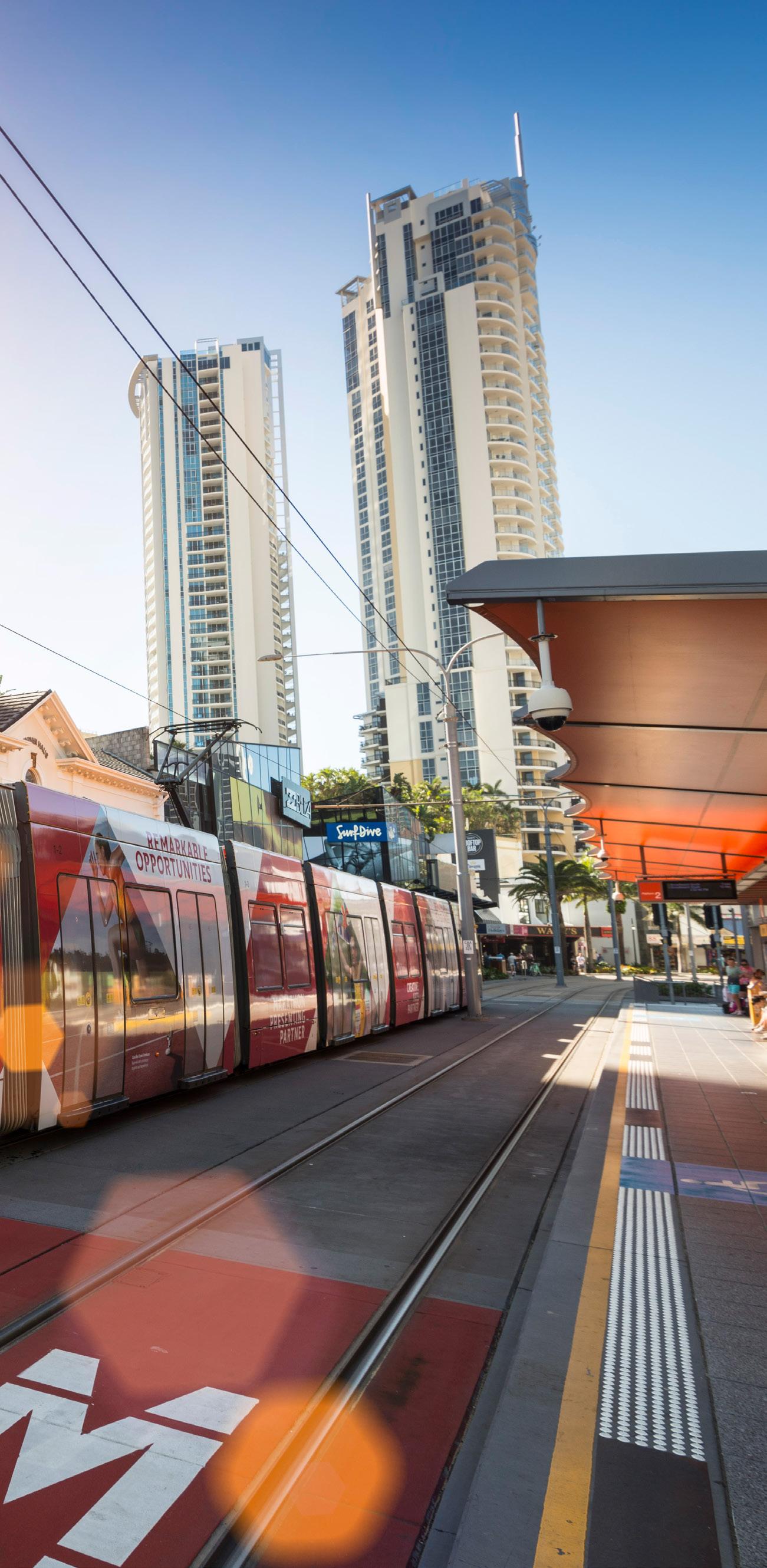
Translink was established in 2003 as an agency responsible for introducing common fares, zones, and ticket types across all public transport modes in the South East Queensland (SEQ) region.
In 2012, it joined Queensland’s Department of Transport and Main Roads (TMR) as one of its six divisions.
“We are an obvious fit within a department that is tasked with moving and connecting people, places, goods, and services safely, efficiently, and effectively across Queensland,” opens Peter Milward, Acting Head of Translink.
TMR’s responsibilities include planning, managing, and delivering a sustainable, integrated transport network across road, rail, air, and sea for the state.
“Translink’s mandate has evolved significantly over the past 20 years, but at our core we remain committed to ensuring Queensland’s transport system contributes to people’s quality of life, a vibrant economy, and a sustainable environment.”
Across its six business areas, Translink has a wide range of responsibilities, including the management of integration, planning, policy, strategy, technology, and service delivery of public transport across Queensland.
Translink’s commitments also extend to the delivery and maintenance of significant rail infrastructure, including planned rail line and station expansion.
Its public transport services include rail, bus, ferry, light rail, event transport, school transport, longdistance rail, coach, and air routes.
“Our state-wide bus network alone has just under 3,000 urban routes that cover more than 160 million kilometres (km) annually, another 2,379 school services, and almost 18,000 stops,” reveals Milward.
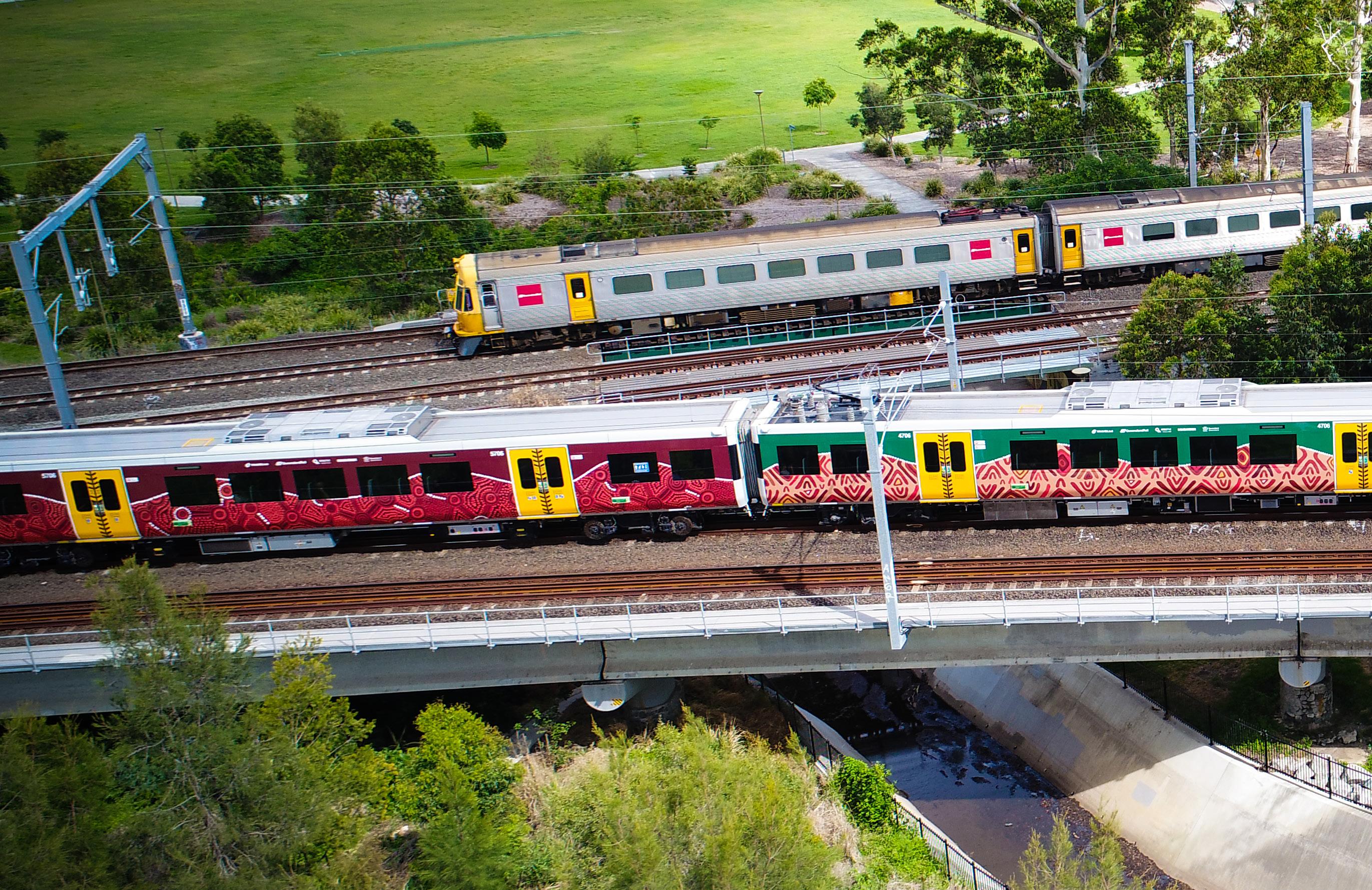
Queensland’s large size and relatively low population density makes for some challenges, but Translink has recently expanded into more regional areas.
This brings a consistent and coordinated public transport experience to many diverse communities across a large area.
Last year’s state-wide integration of Translink introduced a consistent fare table and zone structure across 15 regional centres. These Translinkbranded regions stretch 1,700km from Brisbane to Cairns. Public transport customers in these areas now enjoy access to the Translink website, social media channels, MyTranslink app, integrated journey planning, real-time and service disruption information, and Translink’s 24/7 contact centre.
“As part of this integration, we are also rolling out our Smart Ticketing payment platform throughout Queensland,” Milward discloses.

“PEOPLE AND PARTNERS ARE THE CORE OF OUR BUSINESS, AND OUR CUSTOMERS HAVE REGULAR INTERACTIONS WITH THESE PARTNERS”
– PETER MILWARD, ACTING HEAD, TRANSLINK

This platform will introduce new ways to pay for travel on public transport with contactless payment, including those linked to customers’ digital wallets through their smart device.
Translink’s SEQ network extends more than 250km from north to south, and 140km west to Toowoomba.
It spans eight fare zones and is one of the largest integrated public transport networks in the world, covering more than 10,000 square kilometres (sqkm).
However, scale, geography, and the environment make integration and accessibility across all facilities and modes of transport a complex task.
“This challenge makes projects such as Smart Ticketing and delivering improvements for our customers even more rewarding,” Milward excites.
Translink works together with a number of delivery partners as well as state and local government agencies to help plan and deliver its services
and public transport infrastructure.
“People and partners are the core of our business, and our customers have regular interactions with these partners,” Milward enthuses.
Translink’s delivery partners include 18 private operators contracted to provide regional urban bus services, alongside 22 public transport delivery partners operating services across Queensland, and more than 1,200 school bus service contracts.
Bus stops are jointly-funded with many of Queensland’s local councils, to plan and assist with the delivery of services and infrastructure requirements. This can include future planning and funding for public transport services in areas of development and building and upgrading bus stops.
“Customer interactions with our partners aren’t restricted to stepping on board a service. They may plan a journey or check service disruptions with our call centre partner, board at a jointly-funded transport terminal, use
the ticketing system supported by our ticketing partner, visit an accessible station built by our infrastructure delivery partners, or engage with enforcement personnel such as our Queensland Police Service partners,” explains Milward.
“Consequently, we are heavily reliant on our partnerships.”
Translink’s role in planning, delivering, and adapting its services in ways that benefit customers is driven by its 10-year plan, Creating Better Connections for Queenslanders
The core components of this plan include developing safe and reliable services, responding to evolving community needs, implementing seamless end-to-end journeys and accessible passenger transport, and overseeing environmentally sustainable operations.
“While big ticket items often get the glory, we understand it is sometimes

the smaller things that make the most appreciable difference for our customers,” Milward acknowledges.
Two recent changes have seen impressive customer engagement, including Translink’s near-field communications (NFC) technology that allows customers to tap their smartphone at a bus stop to quickly access up-to-date information regarding their journey, without the
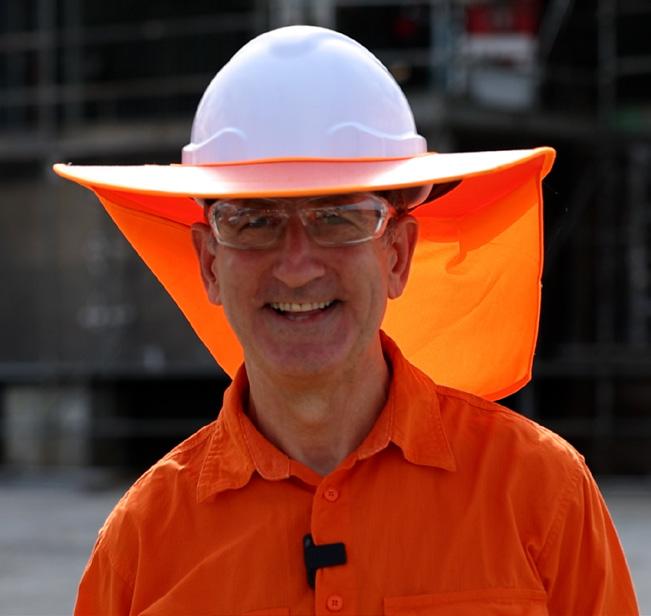
need for an app. It also assists people with visual impairments and those who do not speak English as their first language, as the technology can translate the web page.
“In less than a year, NFC has seen more than 500,000 scans from more than 250,000 unique users,” details Milward.
“When we trialled approval to take bikes and e-scooters on peak-period
SEQ trains several years ago, the uptake was also impressive,” he continues.
Therefore, Translink changed its policy to accommodate bikes and e-scooters on board. In the first year, there were more than 237,000 bikes and e-scooters taken on board peakperiod trains, resulting in an increase of more than 27 percent of people taking the train as part of their journey.
“AT OUR CORE WE REMAIN COMMITTED TO ENSURING QUEENSLAND’S TRANSPORT SYSTEM CONTRIBUTES TO PEOPLE’S QUALITY OF LIFE, A VIBRANT ECONOMY, AND A SUSTAINABLE ENVIRONMENT”
– PETER MILWARD, ACTING HEAD, TRANSLINK

As the host city for the 2032 Olympic and Paralympic Games, Brisbane will see significant infrastructure development in preparation for the event.
“To support SEQ’s growing population and rail patronage demand between Brisbane, Logan, and the Gold Coast, we need to double the number of Beenleigh and Gold Coast train services over the next 20 years,” Milward divulges.
Translink has begun to implement a variety of transport improvements to achieve this goal.
Firstly, the Logan and Gold Coast Faster Rail project will remove a key bottleneck on the SEQ rail network, to allow Gold Coast express trains to easily bypass Beenleigh trains during peak periods.
Unlocking this network capacity requires duplicating tracks in both directions between Kuraby and Beenleigh, through the implementation of a wider corridor and track straightening in some areas.
As well as duplicating the number of tracks between Kuraby and Beenleigh from two to four, the project will also deliver modernised rail systems, station upgrades, and five level crossing removals to improve accessibility and safety.
Park ‘n’ ride upgrades and an active transport corridor along the length of the 20km rail corridor will also be delivered through the project.
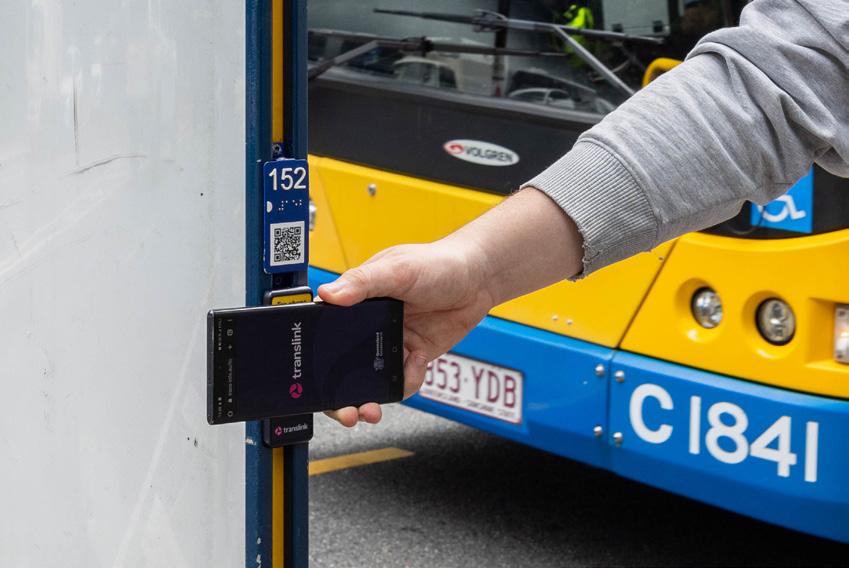

“Planning, community engagement, and procurement activities are now underway. Additionally, a dedicated accessibility reference group was established earlier this year to contribute to accessible outcomes for all transport users,” he tells us.
The Beerburrum to Nambour Rail Upgrade project will equally provide additional track capacity and reliability, and increased passenger and freight services to the growing Sunshine Coast region, north of Brisbane.
“Early works have recently been completed, and pre-construction and design activities have started on the first main stage.
“This stage will duplicate about 13km of track, address three level crossings on the alignment, expand three park ‘n’ ride facilities, and undertake associated road works. In keeping with our integrated network vision, a new bus interchange has also
been built at one of the stations along the rail line,” Milward explains.
The business case for a Direct Sunshine Coast Rail Line project is underway with consultation already beginning for the Sunshine Coast Public Transport project.
“Both projects aim to enable greater travel choices for short, local, and long trips. They are designed to ease traffic congestion and improve efficiency of the broader transport network through reduced car dependence,” outlines Milward.
As the country anticipates the Brisbane 2032 Olympic and Paralympic Games, Translink will capitalise upon its reputation for reliability and excellence.
“We look forward to building on that success as we welcome visitors to our beautiful part of the world in 2032,” Milward concludes.
Solutions maintain

People are a real source of pride for FIELD Mining & Resources, the division of FIELD Solutions Group working to design, build, and maintain successful IT infrastructure for mining organisations. We find out more with Jody Barlow, Head of Mining and Resources

As technological advancements and digital transformation have drastically changed the face of the mining industry, reliable and seamless communication networks are of critical importance to operations.
Indeed, from remote mining sites to global supply chains, the driving force behind innovation, operational efficiency, safety, and sustainability within the industry is connectivity.
Due to a range of issues, however, implementing the correct technology for the mining sector can be challenging.
Addressing complexities such as the distance between operations, large-scale data management, cybersecurity risks, and regulatory compliance requirements demands specialised expertise and a proactive approach to technology implementation and management.
FIELD Mining & Resources, a division of Australia’s challenger telecommunications carrier, FIELD Solutions Group (FSG), understands these critical IT challenges faced by the industry.
A technology leader that provides bespoke solutions for all IT needs, FIELD Mining & Resources’ customers in the mining and resources sector include Kestrel Coal Resources (Kestrel), Bowen Coking Coal (Bowen), Ravenswood Gold (Ravenswood), and more.

“Every mining company has different requirements. In the case of our largest client, Kestrel, we are their trusted end-to-end ICT partner; we look after everything for them,” says Jody Barlow, Head of FIELD Mining & Resources.
With dedicated on-site team members providing support and extra feet on the ground to Kestrel, the partnership exemplifies FIELD Mining & Resources as a one-stop shop for the IT needs of all clients.
Writer: Jack Salter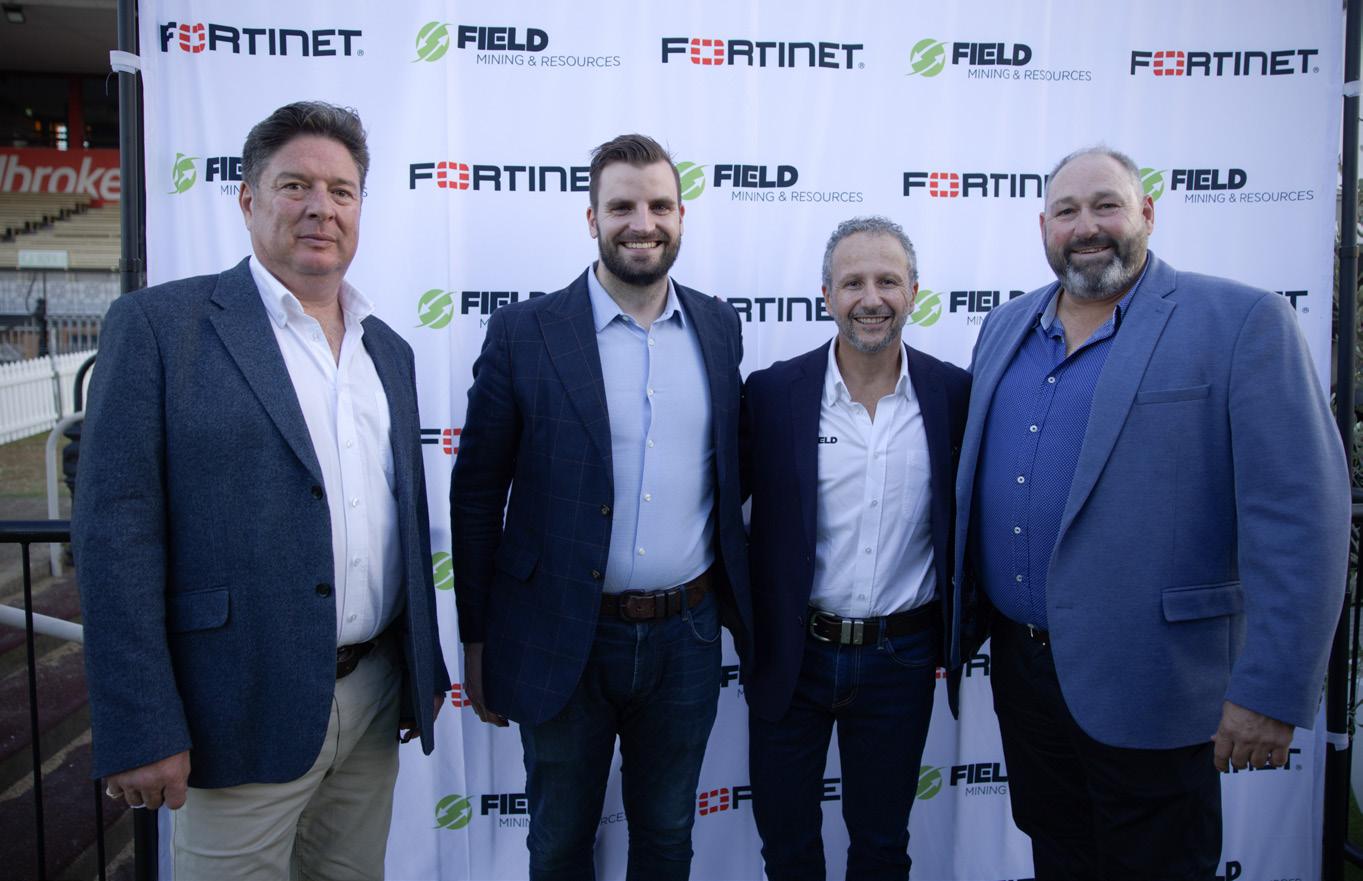
“FROM OUR PERSPECTIVE, WE NEED TO GUARANTEE A HIGH LEVEL OF UPTIME ON THE MINE BECAUSE IF IT GOES DOWN, IT COSTS MONEY”
– JODY BARLOW, HEAD OF MINING & RESOURCES, FIELD MINING & RESOURCES
“If they need software, hardware, or anything else, they come to us, and we procure and manage it for them. It’s really bespoke, and we provide everything from data connections to desktop support,” Barlow notes.
FIELD Mining & Resources, whose purpose-built network solutions are designed to optimise network performance, scalability, and connectivity, also looks after the security of the network, which is where the division’s expertise and professionalism come to the fore.

“We focus on not only providing connectivity as a solution but a secure network. That’s an important piece; security can cripple a mine, so we spend a lot of time, effort, and money to make sure it is on point for our clients,” he adds.
By providing a holistic approach to managed services and a single point of contact, FIELD Mining & Resources maximises operational uptime.
“From our perspective, we need to
guarantee a high level of uptime on the mine because if it goes down, it costs money. Ultimately, it comes back to being the partner of choice to look after their assets,” emphasises Barlow.
In July 2023, FIELD Mining & Resources announced that it had been awarded an enterprise managed services contract by Ravenswood.
The division will supply connectivity as well as managed services, security, and cloud services for Ravenswood, together with on-site resourcing supporting the mine. Additional IT and procurement services will also be sourced on an as-needed basis during the three-year contract.
The deal with Ravenswood reinforces FIELD Mining & Resources’ focus on delivering integrated IT managed services and is a departure from the coal mines that the division has most experience in.
“Coal is what we specialise in, and Ravenswood is the first time that we have forayed into gold mining,” Barlow reveals.
Nevertheless, by partnering with FIELD Mining & Resources, Ravenswood will benefit from a very broad range of skillsets to service
their requirements.
“We’re an aggregator of professional services, so where our own internal staff don’t have the skillsets required, we are highly engaged with our partners who can then fill the gaps that we have,” outlines Barlow.

“Ravenswood has three to four full-time IT staff working on the mine site, so our job is to support those guys. We also support everyone else from a remote hands point of view, as well as look after the security of their network.”
COST SAVINGS – Managed services can save businesses money, as FIELD Mining & Resources provides services at a lower cost than hiring an in-house team. Additionally, the division uses advanced tools and technologies that allow the team to perform tasks more efficiently, reducing costs further.
SCALABLE SOLUTIONS – FIELD Mining & Resources’ managed services can be scaled up or down to suit business needs. If the customer experiences growth or expansion, additional services or resources can be provided as required.
EXPERT SUPPORT – The FIELD Mining & Resources team are experts in cybersecurity, cloud computing, data management, and network infrastructure. By outsourcing business IT, clients can access the knowledge and skills of these experts without having to hire and manage an in-house IT team.
INCREASED PRODUCTIVITY – FIELD Mining & Resources proactively maintains services, which can help identify and resolve issues before they cause downtime or other problems. This can reduce the risk of IT-related issues impacting business operations, saving time and money.
Meanwhile, FIELD Mining & Resources is close to making some exciting announcements in the Tier 1 mining space, placing it even more firmly on the map.
“That’s hopefully going to put us on another level and show some of the larger mining organisations that we are not just a smaller player, even though the Kestrels and Ravenswoods of the world are very large clients,” Barlow affirms.
As FIELD Mining & Resources’ recruits locally and invests in its people, the division’s head office in Queensland and remote office in Emerald are growing as a result.
People are a real point of difference for FIELD Mining & Resources, as they substantiate how it provides mining clients with superior service both on-site and in the office.
“The benefit of working with an outsourced IT firm is that we have the scale, but also the professionals,” Barlow states.
The FIELD Mining & Resources team of qualified, professional Programme Managers, Project Managers, Network Architects, and

Engineers has extensive experience in building and maintaining networks in remote locations and managing complex projects.
In Townsville, for example, where Ravenswood is based, the team was tasked with understanding the lay of the land and the idiosyncrasies of a gold mine compared to the coal mines that FIELD Mining & Resources has traditionally worked with.
“They’re a different mine, and they obviously mine different things, but at the end of the day it’s about going in and understanding what works and how it works,” shares Barlow.
“We have dedicated staff to make sure we understand what makes Ravenswood tick, and that’s how we support their mine.”
As a former professional rugby league player, team camaraderie was always a big thing for Barlow, a people person who has always enjoyed being around bigger teams.
Replicating that feeling on the rugby field in the commercial world quickly led to mentoring, managing, and leading.
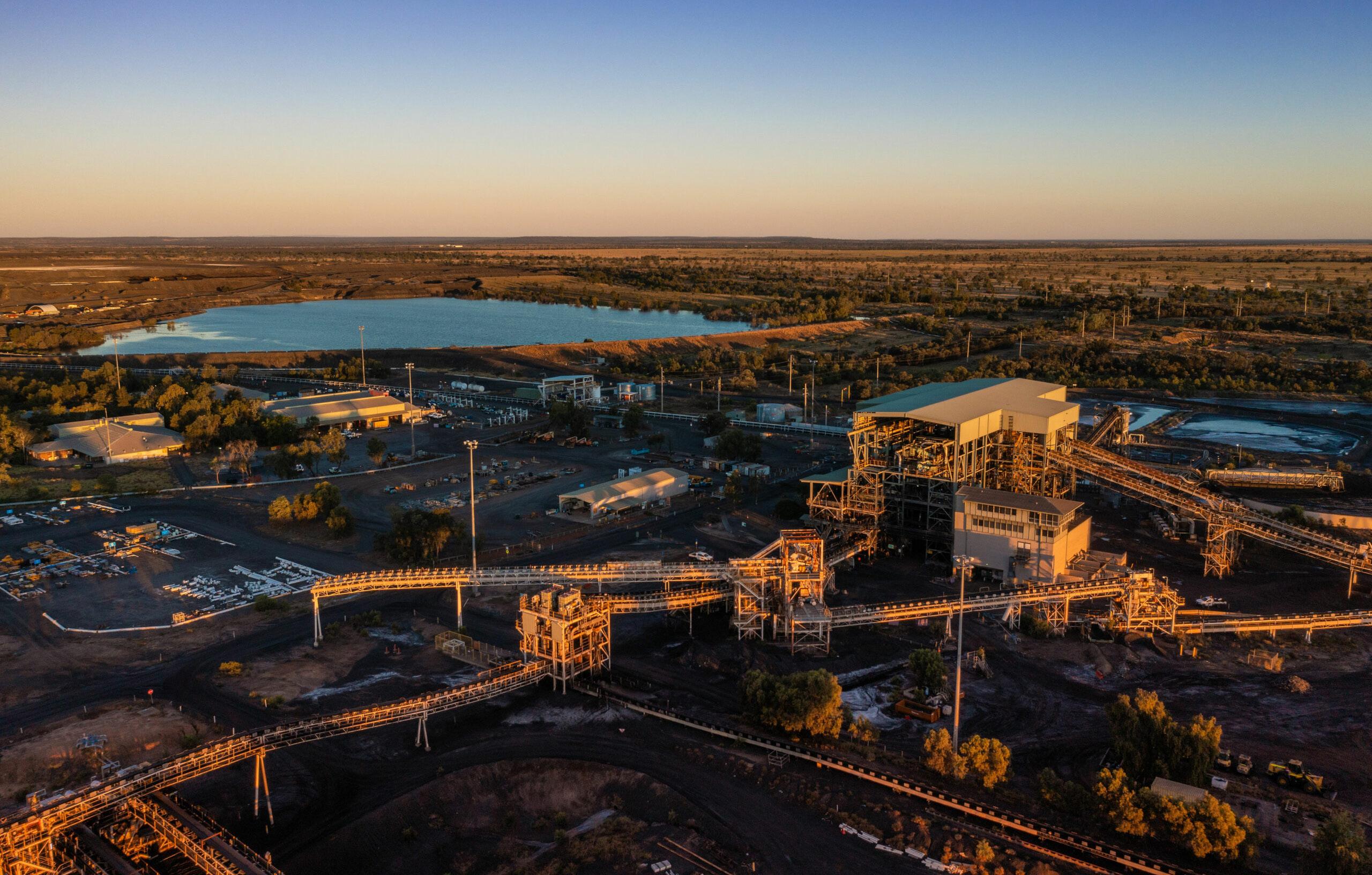
“I MANAGE A GOOD TEAM, AND I’VE ALWAYS BEEN ABLE TO PUT THE RIGHT PEOPLE IN THE RIGHT PLACE, ALLOWING THEM TO DO WHAT THEY DO TO THE BEST OF THEIR ABILITY”
– JODY BARLOW, HEAD OF MINING & RESOURCES, FIELD MINING & RESOURCES
“I like to classify myself as a leader more than a manager. “Together everyone achieves more” is the one catchphrase that I use; I lead from the front and don’t tell people to do something that I wouldn’t be prepared to do myself,” Barlow says.
“I manage a good team, and I’ve always been able to put the right people in the right place, allowing them to do what they do to the best of their ability.”
Together with his staff, Barlow is always on the lookout for the next
large mining operation that FIELD Mining & Resources can partner with, especially now it has demonstrated its capabilities and the expertise of its workforce.
“The utopia is always to find the next mining client that will need to utilise our services. We’ve got a really good story to tell, so we want to expand our client base and find more mining organisations,” Barlow sets out.
Being a trusted advisor is the key to FIELD Mining & Resources expanding and putting its best foot forward in the marketplace.
This is based on providing mining organisations with the services they require with true transparency and partnerships.
“A true partnership for me is both parties going in with their eyes open and understanding what is required from each other – that’s what we’re looking for,” concludes Barlow.

Chinmay Mishra,

Product Marketing
outlines the opportunities and trends for mobile virtual network operators in Asia Pacific
Senior Manager at Optiva, Guest contributor: Chinmay Mishra, Senior Product Marketing Manager, Optiva
The global mobile virtual network operator (MVNO) market has increased from USD$36 billion in 2012 to more than USD$88 billion in 2022.
This rapid growth can be attributed to the number of strategic opportunities opening up in the market. The rising need for communication-based services, the pivot to remote working, the popularity of digital media, and the move to mobile wallets are just some of the trends driving these opportunities.
As the rollout of 5G continues and the economy becomes increasingly customer-centric, MVNOs have emerged as a way to better cater to subscriber needs, offering the kind of flexibility, scalability, and convenience that traditional mobile network operators (MNOs) lack.
However, such opportunities have a limited time window. In the scramble for subscribers, MVNOs must remain agile and adaptable in order to delight customers with competitive, targeted propositions that speak directly to their needs.
Analysing global MVNO trends offers a unique perspective of the realities facing the telecommunications (telecoms) industry, revealing which opportunities are worth pursuing and the efforts and resources involved in pursuing them.
The MVNO market is not only massive, but also very regional, with different parts of the world experiencing varying growth patterns and opportunities.
In 2023, the total MVNO market in Asia Pacific stood at USD$21 billion and is projected to grow to USD$39.3 billion at a compound annual growth rate (CAGR) of 9.3 percent.
Smartphone adoption is expected to grow from 76 percent in 2022 to 94 percent in 2030, with 5G dominating 55 percent of the technology mix by 2030. Mobile data traffic per

smartphone is also expected to more than triple to 60 gigabytes (GB) per month by 2028.
Asia Pacific therefore shows some promising emerging trends for MVNOs, particularly in a greenfield environment.
5G adoption is growing, but monetisation has been difficult because existing customers are not likely to pay extra for 5G vanilla connectivity on their smartphones, particularly in a cost-sensitive market like Asia Pacific.
In other words, 5G alone is not enough to entice new subscribers. This, however, provides a perfect opportunity for greenfield MVNOs.
5G might offer greater speeds, lower latency, and much higher capacity, but that alone doesn’t give subscribers much to get excited about.
Use cases that leverage the potential of this technology, such as extended reality, are needed to make the switch to a 5G-based MVNO more appealing. Asia Pacific already leads in 5G standalone deployments, with full rollouts already present in seven countries as of 2023. The networks are there; now the services are needed.
is a method of providing wireless connectivity to a fixed location, such as a home or business, through radio
signals rather than traditional wired connections like copper or fiber optic cables.
FWA is used in areas where building traditional infrastructure is impractical or cost-prohibitive. As of March 2023, 17 operators in eight Asia Pacific countries offer 5G FWA services. Markets where the fixed broadband technology mix is skewed towards xDSL, such as Australia, also see potential for 5G FWA.
Successful examples:
• In 2023, Globe Philippines’ FWA accounted for 25 percent of home broadband revenue. It targets rural areas as well as urban areas where fiber broadband is not yet available.
• The REALLY DeWi network is powered by the people, bringing the sharing economy to the telecoms industry. The network is fuelled by strategically positioned cell site radios hosted on rooftops and balconies, making increased speeds and seamless roaming available to all customers on the network.
With so much investment going into 5G and business-to-consumer (B2C) proving hard to monetise, businessto-business (B2B) is now taking centre stage as the growth driver for the industry. However, the B2B
segment is not traditionally one of the main strengths of telcos, particularly in Asia Pacific.
A recent survey carried out by TMForum in Asia Pacific found that 41 percent of telecoms companies in the region get less than 10 percent of their total revenue from the B2B segment in contrast to the global average of 15 percent.
Telcos need to carefully cherry-pick the B2B use cases that will work for them. Developing this new segment will take time for telcos in Asia Pacific, and MVNOs are expected to ride on this opportunity.
5G standalone and private 5G propositions are resonating well within B2B. This represents lowhanging fruit for the industry, as this segment needs a very specific and streamlined business and sales model from the existing B2C segment.
The Internet of Things (IoT) also shows good prospects and is expected to grow. In fact, a recent TMForum survey found that 57 percent of telcos in Asia Pacific believe IoT to be the best-chance opportunity for growth.
Successful examples:
• A GSMA report on private networks indicates that 16 percent of operators in Asia Pacific anticipate that private networks will contribute to over 20 percent of enterprise revenues by 2025.
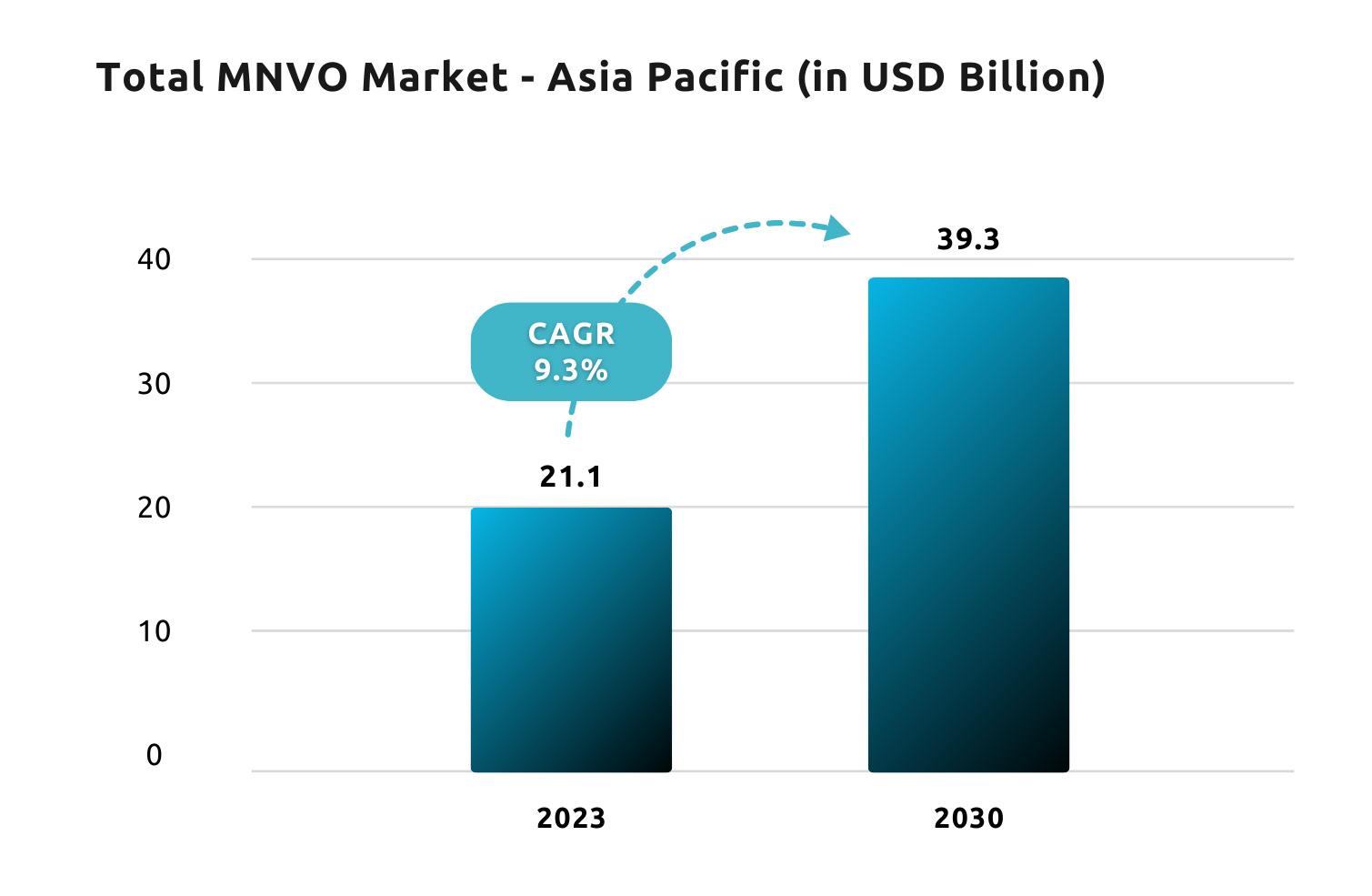

• In Japan, local 5G licenses in the 4.7 and 28 gigahertz (GHz) frequency bands can be allocated by local governments to non-mobile operators seeking to deploy private 5G networks. Fuijitsu used the 4.7 GHz spectrum to deploy automated guided vehicles (AGVs) to transport goods around parts of its factory.
The average mobile traffic data per smartphone in Asia Pacific is higher than the global average and also is expected to grow threefold by 2028. Asia Pacific demographics are also skewed towards the younger generation, who are digital and tech savvy. They expect digital touch points, and many of them are power users of the digital lifestyle.
This high-spending, loyal, and brand-conscious segment will always be an attraction for MVNOs. Markets where existing MNOs have little incentive to innovate or single brands cater to broad categories provide a perfect opportunity for digital-born MVNOs.
These MVNOs generally dictate high margins and get to profit quickly with a digital-only approach.
Successful example:
• A service called “by.U” by Telkomsel in Indonesia, which targets youth and digital-savvy customers with data-heavy bundles, is a good example of a digital-born brand. SIMs are delivered to a user’s home, recharges and top-ups are easy, and the onboarding process is 100 percent digital.

“MVNOS MUST REMAIN AGILE AND ADAPTABLE IN ORDER TO DELIGHT CUSTOMERS WITH COMPETITIVE, TARGETED PROPOSITIONS THAT SPEAK DIRECTLY TO THEIR NEEDS”
– CHINMAY MISHRA, SENIOR PRODUCT MARKETING MANAGER, OPTIVA
–
“THE DYNAMIC LANDSCAPE OF THE MVNO MARKET IN ASIA PACIFIC, MARKED BY THE BURGEONING ADOPTION OF 5G, INNOVATIVE APPROACHES IN FWA, AND THE STRATEGIC SHIFT TOWARDS B2B AND DIGITALSAVVY SEGMENTS, UNDERSCORES A
TRANSFORMATIVE SHIFT”
CHINMAY MISHRA, SENIOR PRODUCT MARKETING MANAGER, OPTIVA

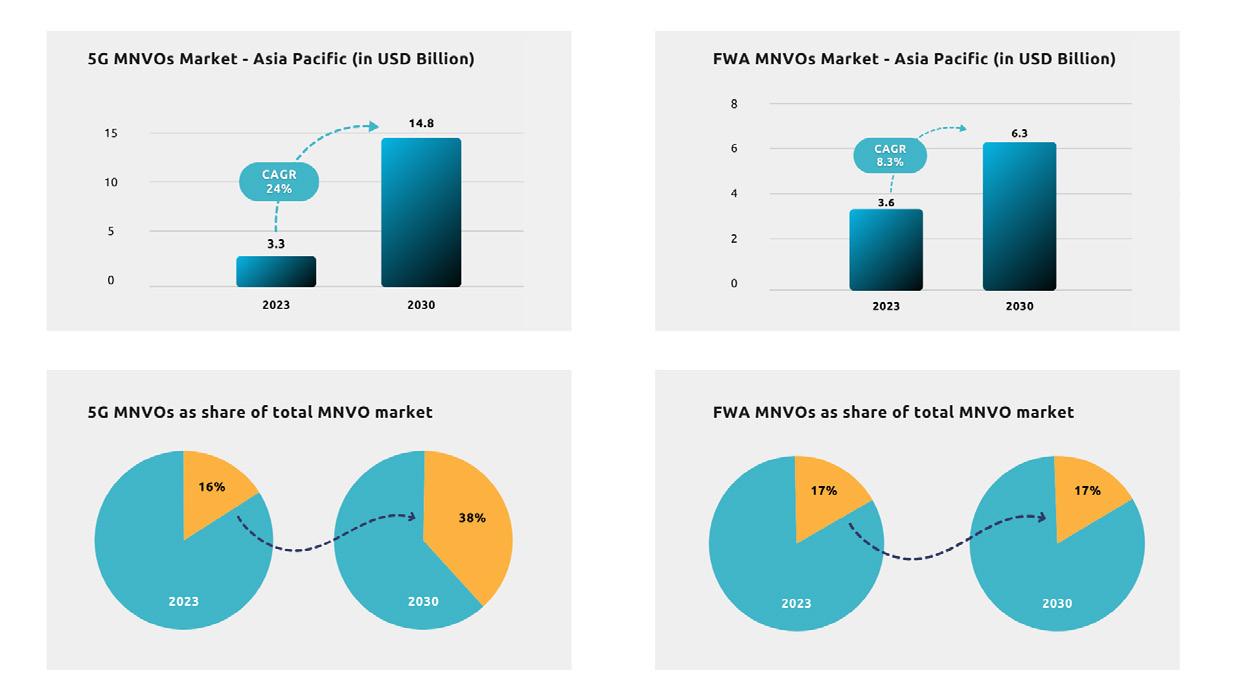

The rise of new technologies is opening the door to new opportunities that may generate revenue or help build a business model that can be a competitive advantage for MVNOs.
Technologies like eSIMs, network function virtualisation (NFV), software defined networking (SDN), artificial intelligence (AI), generative AI (GenAI), blockchain, edge computing, and the Metaverse show strong potential.
Greenfield MVNOs can use these technologies to disrupt the capitalintensive telecoms industry. For example, blockchain can help build a distributed network system with smart contracts for easy onboarding.
GenAI can help personalise plans for every subscriber, whilst edge computing can be invaluable to governments and enterprises.
New technologies like the Metaverse are already doing well
in advanced Asia Pacific telecoms markets like South Korea, Japan, and China.
FinTech is another area in which the region is excelling. However, MVNOs will have to become “techcos” rather than telcos to win this highly competitive market.
Successful example:
• SK Telecom launched a Metaverse app called “ifland” in July 2021. It was downloaded over 12 million times with a monthly average interactive time of 61 minutes, and received more than 2,000 partnership enquiries in just 18 months.
The dynamic landscape of the MVNO market in Asia Pacific, marked by the burgeoning adoption of 5G, innovative approaches in FWA, and the strategic shift towards B2B and digital-savvy segments, underscores a transformative shift.




Adding to its growing family of regional titles; EME Outlook, Africa Outlook, APAC Outlook, North America Outlook, and sector titles; Mining Outlook and Manufacturing Outlook –Outlook Publishing is proud to announce the birth of a digital magazine and web platform for the healthcare sector.
As organisations worldwide must navigate a new healthcare landscape defined by technological innovation in the wake of the COVID-19 pandemic, now is the time to showcase the strides being taken in this critical sector.
A multi-channel brand, Healthcare Outlook will bring you the positive developments driven by organisations across the healthcare industry through its various platforms. Discover exclusive content distributed through its website, online magazine, social media channels, and dispatches delivered safely to your inbox with a bi-weekly newsletter.
Through this compelling new venture, we intend to foreground the movers and shakers of the industry. To participate as a featured company and join us in this exciting endeavour, contact one of our Project Managers today.
APAC OUTLOOK is a digital product aimed at boardroom and hands-on decision-makers across a wide range of industries on the continent.
With content compiled by our experienced editorial team, complemented by an in-house design and production team ensuring delivery to the highest standards, we look to promote the latest in engaging news, industry trends and success stories from the length and breadth of the Asia Pacific region.
We reach an audience of 220,000 people across the continent, bridging the full range of industrial sectors: agriculture, construction, energy & utilities, finance, food & drink, healthcare, manufacturing, mining & resources, oil & gas, retail, shipping & logistics, technology and travel & tourism.
In joining the leading industry heavyweights already enjoying the exposure we can provide, you can benefit from FREE coverage across our digital platforms, a FREE marketing brochure, extensive social media saturation, enhanced B2B networking opportunities, and a readymade forum to attract new investment and to grow your business.
To get involved, please contact Outlook Publishing’s Managing Director, James Mitchell, who can provide further details on how to feature your company, for FREE, in one of our upcoming editions.


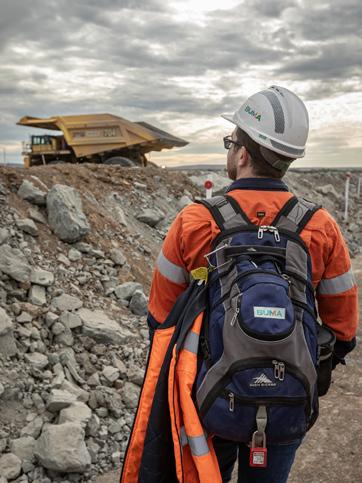

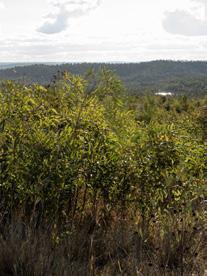





Since the beginning of civilisation, earth’s resources have been mined and subsequently used to make energy, manufacture, and create wealth and trade. Contract Mining has been a part of this in some form or another.
Fast forward to the 21st century, and the global mining industry is booming, as a multitude of elements and rare minerals are in high demand as a direct result of the introduction of new technologies, energy solutions, and goods that are required across
the world. Today, contract mining services play a major role in mine site development, the extraction of ore, and mine site rehabilitation – through to mine closure works.
Mining in Australia is a vast industry that remains famous worldwide due

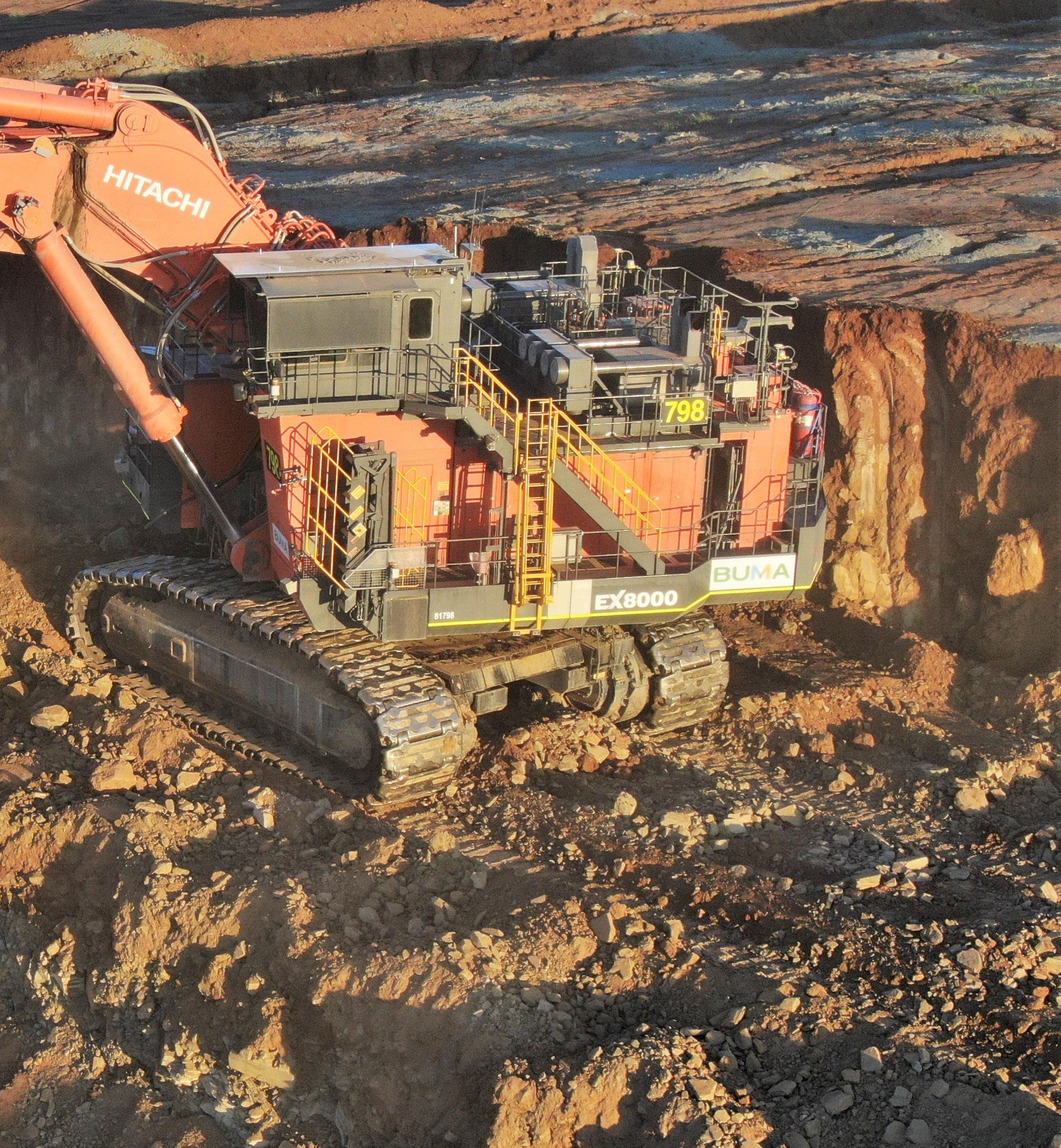
BUMA Australia has a vision to build a modern mining and rehabilitation company, that drives growth, sustainability, and prosperity. We dig deeper into the company’s story with Chief Operating Officer, Russell Taylor and General Manager- Rehabilitation, Ngaire Tranter
Writer: Ed Budds | Project Manager: Eddie Clintonto its fascinating history, power in the export market, and its role as a trendsetter in ‘futureproofing’ the wider mining sector.
Furthermore, the high quantity of mining sites in the country means that the industry provides a sizable
prospective job market for Australian citizens, as well as for the number of foreign workers who want to work in the field due to its esteemed global standing.
The Australian mining industry has become more efficient at extracting
maximum product but in a more sustainable way. No longer is mine site rehabilitation an afterthought to mine development, it is planned for at the pre-feasibility stage of the mine life cycle. New technologies are being embraced in rehabilitating mined
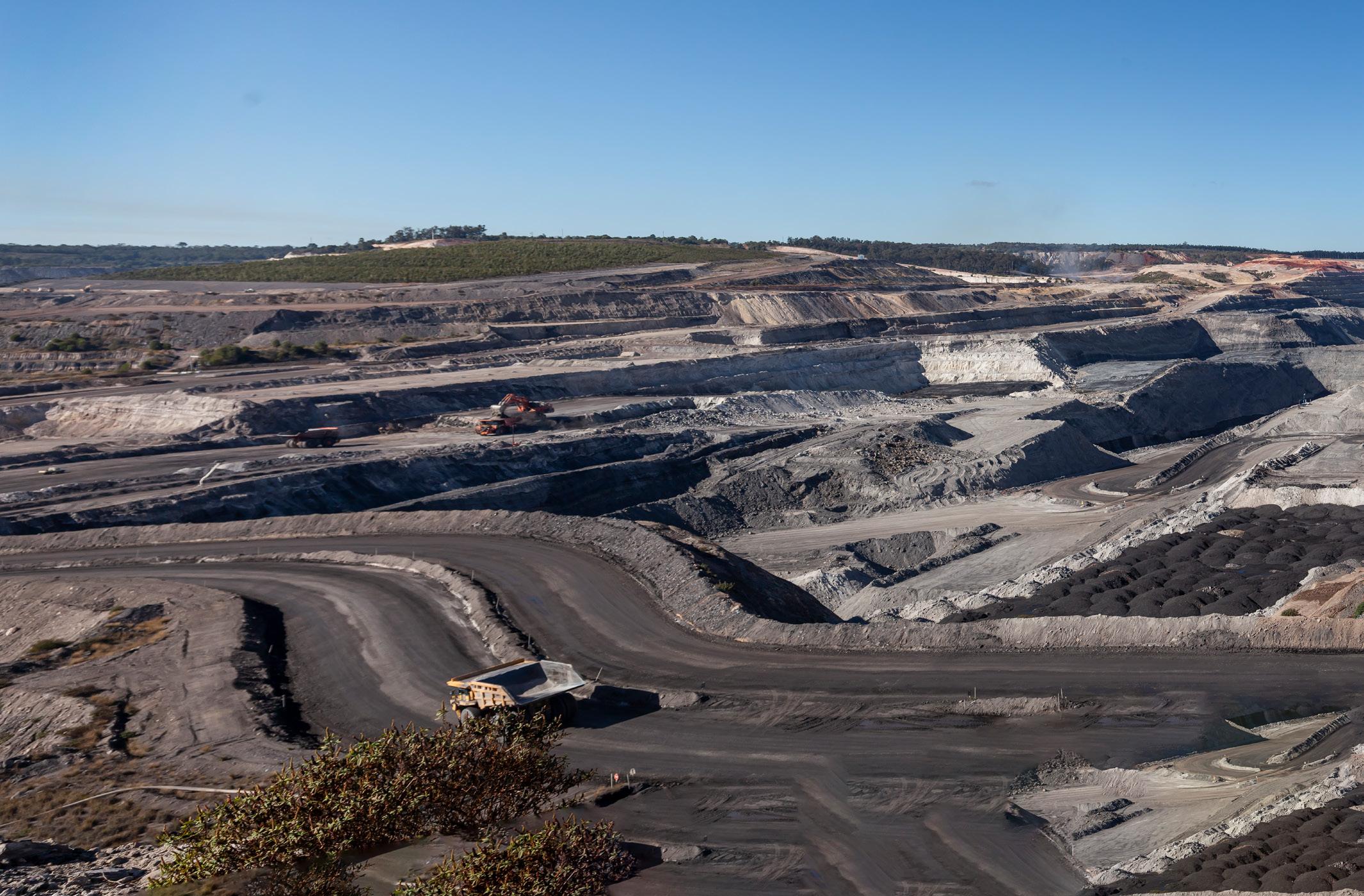
Ngaire Tranter, General Manager: “People are our greatest strength at BUMA and remain central to our ongoing success. We provide meaningful career development opportunities for our employees so that they feel both challenged and fulfilled at work.
“We are a beliefs-driven organisation, and we believe that our commitment to our core values of safety, integrity, progress, collaboration, and people further facilitate the process of creating a positive work experience for all of our staff.”

areas and also in the monitoring and maintenance of the rehabilitated land.
The mining industry currently finds itself in a dynamic period of change, as the collective focus has turned to developing efficient mechanisms to manage environmental and social considerations, whilst maximising resource extraction.
Additionally, the industry as a whole is striving for an enhanced quality of rehabilitation as opposed to a focus simply on obtaining quantity.
BUMA Australia (BUMA) is well placed to provide this high-quality rehabilitation delivery and practices, which is demonstrated by the work it has conducted for clients in the past, and present and will continue to do so in the future.
“With the increase in prescriptive compliance in environmental licensing, we’re currently working closely with our clients in the implementation space to essentially operationalise planning documentation that is designed for
seeking environmental approvals and associated licensing,” introduces Ngaire Tranter, General ManagerRehabilitation of BUMA.
At present, approximately 1.2 million people are employed in the Australian mining industry, with the sector’s net worth of exported resources totalling an estimated AUD$160 billion.
Existing as a nation with an abundant supply of metals and materials, the country has naturally enjoyed a long and successful mining history, dating back to its first human habitation around 60,000 years ago.
The First Nations people initiated Australia’s first-ever mining operations, which included fossicking for stones suitable for weapons and tools and digging for ochre. This was then used for making pigments for the paint used in rock art and body painting, forming an integral part of their culture and distinctly unique heritage.
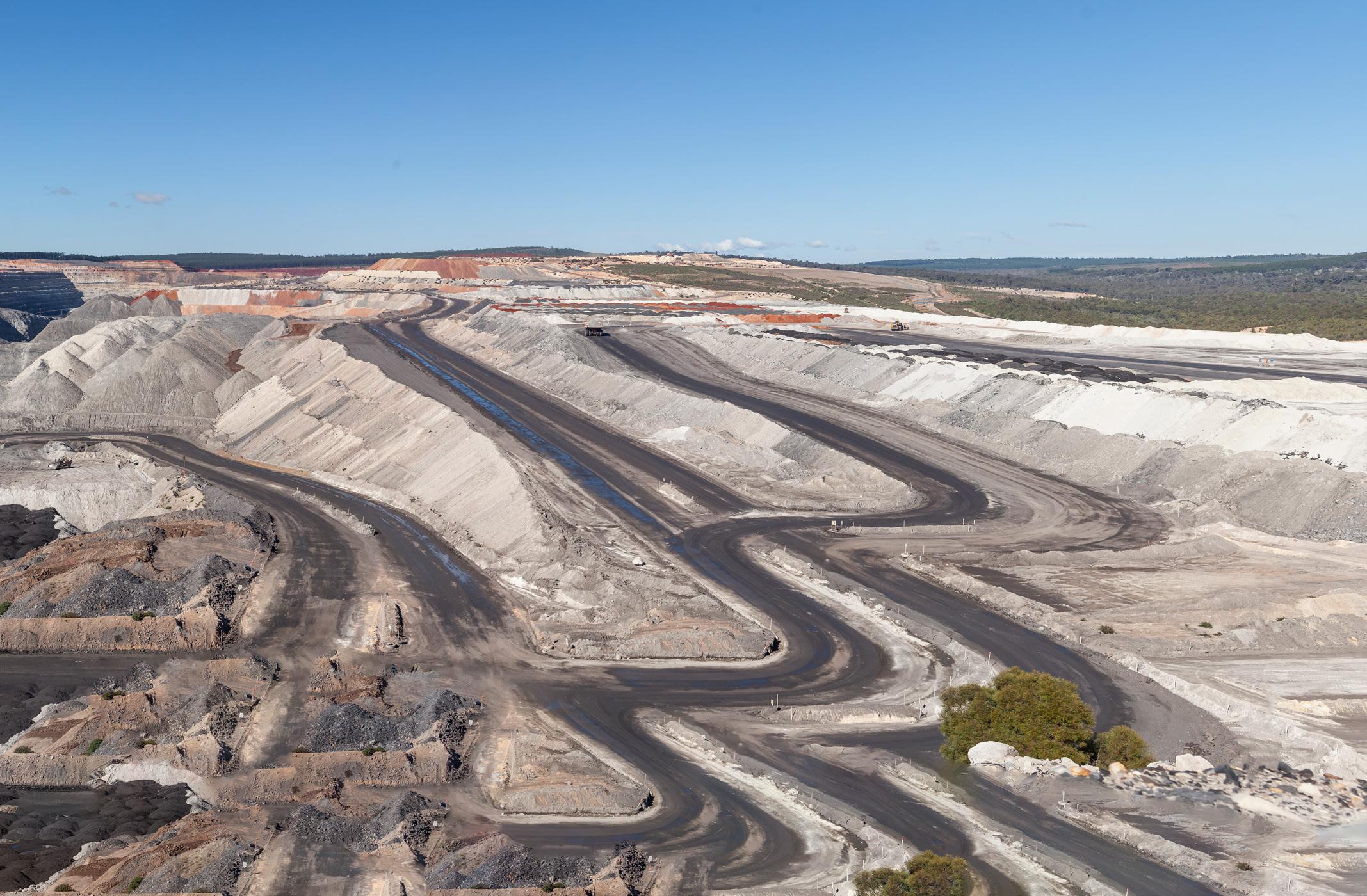
As seen throughout its past, Australia is home to a wealth of materials that the nation has mined and exported to help drive its economy. Historically, the top four mining resources have been:
IRON ORE – Australia has been exporting iron ore, its most significant source of export revenue, since the 1960s, first helping to support Japan’s post-war redevelopment.
COAL – Australia is the biggest coal exporter in the world. As well as being vitally important to the export market, coal helps fuel the country and is primarily used to produce around 80 percent of the nation’s electricity needs.
Australia’s biggest coal mine is Peak Downs, located in the Bowen Basin in Queensland.
GOLD – With a history of gold rushes and an abundance of gold resources, it is no surprise that Australia continues to be a prominent focus in the world’s growing demand for gold. In 2021 alone, the country’s gold exports totalled 257 tonnes. Its biggest gold mines are in Western Australia (WA), including the Boddington Gold Mine, and the Kalgoorlie Super Pit. As the country holds the title of the largest gold mine reserve in the world, there is no sign of Australia’s gold mine industry slowing down any time soon.
URANIUM – Australia is the world’s fourth largest producer of uranium, behind Canada, Namibia, and Kazakhstan, and holds 28 percent of the world’s known recoverable uranium resources. Due to the potential uses of the material, Australia exports it worldwide to countries that have agreed to use uranium for peaceful purposes only.
Later, upon the arrival of European settlers to Australia, the process of large-scale mining truly began. The first reported discovery of coal occurred in 1791 and was found by a family of escaped convicts, William and Mary Bryant, and their children.
This defining discovery was unearthed just three years after the arrival of the first fleet of settlers. The exact location of the find is unknown, but it is believed to have been located in Glenrock Lagoon in the Newcastle and Hunter regions of New South Wales (NSW).
Eight years later in 1799, coal was being exported with shipments that were sent regularly to India, thus initiating a long and prosperous history of exporting mined materials.
Lead mining began in 1841, which was shortly followed by copper in 1842. Both resources were regarded as monumental developments for the Australian economy, with the subsequent gold rush era in the 1850s catapulting the nation firmly onto the global map.
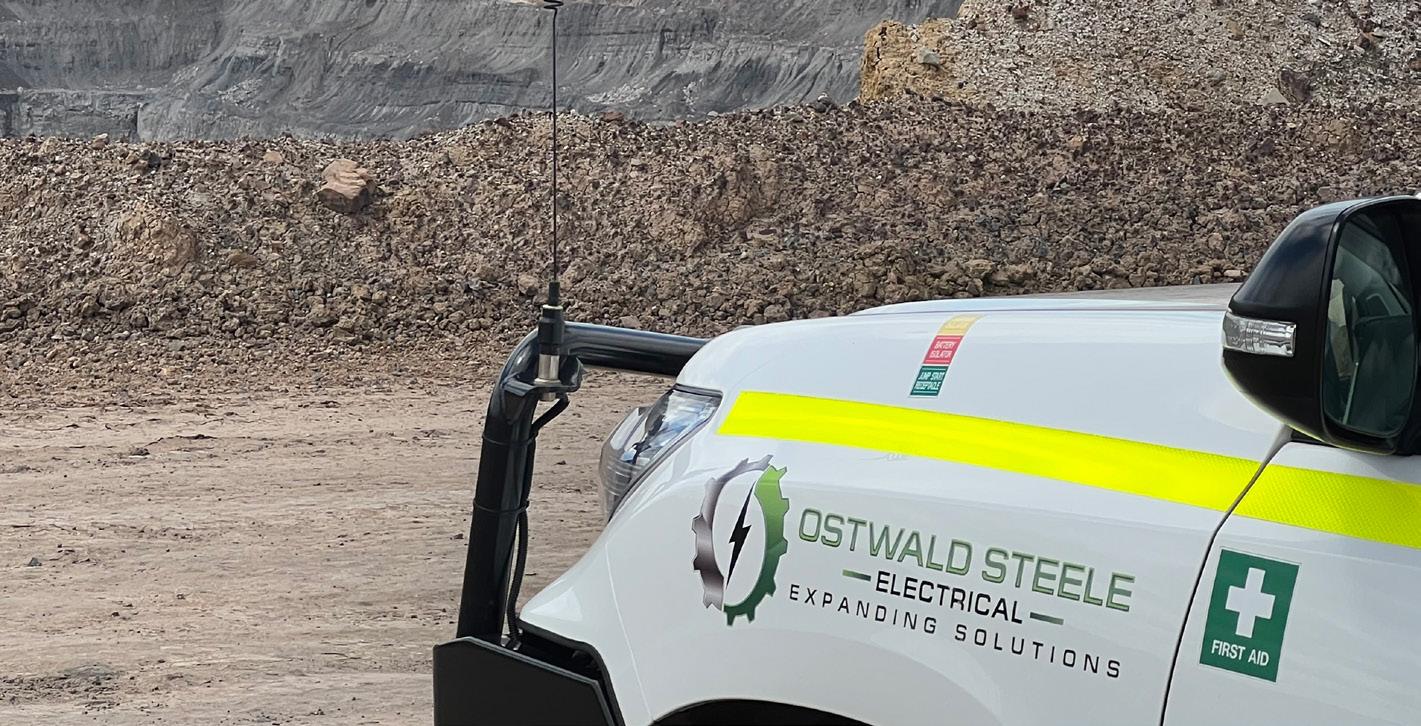
Over the past six years, Ostwald Steele Electrical Pty Ltd (OSE) has operated heavily across the East Coast of Australia as one of BUMA Australia’s key partners through delivering high-quality professional trade labour, developing safety improvement products, efficiency solutions, and being utilised as the leading electrical contractor on various infrastructure projects within its operations.
Having developed and continually growing a solid team of value-driven professionals, OSE covers much more than just mining equipment maintenance. The company is known for its ability to resolve complex issues through ‘Expanding Solutions’ paired with the belief that anything is possible.
OSE’s mission to provide elite maintenance trade services and industry solutions for mining, commercial, industrial, and residential operations and contractors is achieved alongside BUMA Australia and has played a huge part in the growth and diversification of OSE’s services offered to BUMA and the wider industry.
Having diversified teams specialising in their own unique fields - mining maintenance, electrical contracting, and product R&D, OSE’s team comprises multiple trades and industryrelated talent, i.e., electricians, HD fitters and mechanics, auto electricians, refrigeration mechanics, servicemen, and apprentices. Externally, OSE partners with quality and valuealigning companies as a strength in its product development and infrastructure fields.

Having a permanent workforce allows OSE to invest in its people and their careers, resulting in a team of professionally developed tradespeople who remain consistent in innovation, quality, and efficiency while greatly assisting with closing the trade shortage gap by cross-training and upskilling its workforce in overlapping trade and industry fields.
OSE prides itself on machine availability and increasing companies’ overall productivity.
What sets the company apart is knowing and understanding the value and importance attached to having a wellmaintained and readily available fleet of equipment operating at maximum capacity on a consistent basis. Having internal targets clearly communicated to both the team and clients, OSE delivers results from the ground up, maintaining a smooth mining and production operation for every client.
Specifically, the company has a professional focus on electrical technology and equipment advancements across various industries and a solution focus on upskilling its workforce to align with the evolving needs of its clients. OSE invests heavily in cross-training electrical and mechanical fields, offering dual trade apprenticeships to ensure its people are as technically skilled and knowledgeable as possible on heavy equipment electrical adaptation. OSE is known for providing extra value to its client’s maintenance operations and always maintaining a positive company culture.
With a deep understanding of defect management, machine

With a deep understanding of defect management, machine schedules, and thorough preventative maintenance, OSE reliably ensures the highest level of maintenance for every mining fleet. With continuous advancement and innovation, the OSE team operates with the utmost attention to detail to achieve fast diagnosis and repair of any and all breakdowns, ensuring minimal downtime and protecting operational yield. With values that include the promotion of integrity and transparency, solutions and success, risk management and a safe environment, and the professional development of the people who encompass OSE, the company is set to be the leading global resource for professional trade skills and industry solutions within the energy sector.
With silicosis currently playing a dominant role in mine workers’ health deterioration, professional bodies, including the QLD mines inspectorate and regulatory bodies, identified an area of high exposure to hazardous respirable substancesthe practice of cleaning fine dust from electrical components. After this discovery, OSE went searching for a solution to ensure the protection of its team and industry professionals.
Co-developed with Australia’s leading air quality engineers Synergetics, the pLEV™ system (portable Local Exhaust Ventilation) is an air-operated cleaning system used to effectively clean electrical cabinets and components on electro-mechanical mobile plant and mining equipment. pLEV™ can be adapted to most mining air cleaning tasks where dust exposure is a concern, including:
• Electrical cabinets
• Switchboards
• Electric motors
• Alternators
• MG sets
• Drive motors
• Grids

The pLEV™ system works by creating negative pressurecontrolled environments in electrical cabinets. Dust is disturbed using the pLEV™ SmartLance and extracted safely and effectively using the pLEV™ Extractor.
pLEV™ Extractor is responsible for creating the negative pressure environment and the safe extraction of airborne dust. It has a dual-stage extraction fan that directs airflow through a HEPA-13-rated filtration system before then being released into the atmosphere as clean air. The portable extraction unit weighs under 14kg, is easy to work with and light to wear.
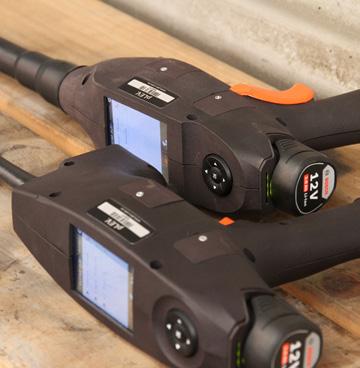

pLEV™ SmartLance HP (high pressure) enables the use of compressed air in the extraction environment. It features illumination, multivariable sensors for failsafe operation and optional cloud-based reporting. The SmartLance monitors particle exposure through air quality sensors with failsafe shutdown technology at the ready if an unlikely exposure event occurs. Negative pressure sensors are fitted to the SmartLances to prevent use outside the operational environment and to avoid accidental exposures.
pLEV™ SmartLance EX (exhaust) houses all the same safety and failsafe technology as the SmartLance HP but uses exhaust air directly from the Extractor to dislodge dust. Intended for use as a field unit, this air supply option allows for easier transportation due to the elimination of the need for compressed air.
pLEV™ Covers are lightweight, durable, and tailored to most common electrical cabinets and components. The covers are used to seal the cabinet to create a negative pressure extraction environment and minimising the risk of potential dust exposure. pLEV™ Covers are designed to give the operator a clear view of inside the cabinet so that they can see what they are cleaning.
The pLEV™ system improves the health and safety of all those who work daily in mining maintenance by preventing hazardous dust exposures that occur through traditional cleaning practices on electrical cabinets and components.




At its core, OSE is driven by the purpose of expanding solutions, dedicating itself daily to the growth of skills, safety, and technical expertise among its team. With a forwardlooking approach, OSE has evolved its services to align with the global shift towards cleaner living, emerging as a leader in comprehending, maintaining, and repairing electro-drive equipment and technology across various industry sectors.
The company’s commitment to sustainability is complemented by its investment in a permanent workforce.
This strategic choice not only fosters a team of consistently innovative and skilled tradespeople but also positions OSE at the cutting edge of technology. Through continuous research and development, OSE tackles challenges with a solution focused mindset, producing new technology and equipment that expands solutions and delivers optimal outcomes for clients.
The heart of OSE’s success lies in its unparalleled expertise in maintaining operational fleets and enhancing machine availability through defect management, machine schedules, and preventative maintenance, thus boosting overall

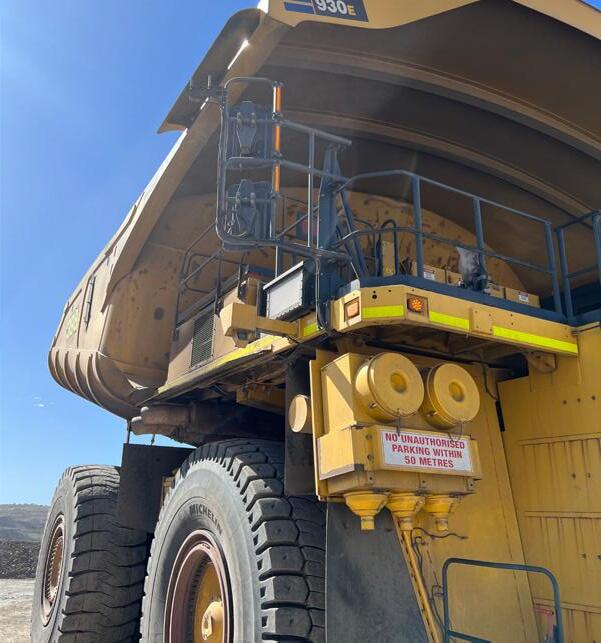
MINING AND INDUSTRIAL
• OSE offers a comprehensive range of services to industrial and mining companies, including electrical infrastructure projects and electrical contracting to specialised mining equipment maintenance contracts.
• With nearly a decade of experience in mining and remote electrical work, the company confidently offers everything from basic electrical installations to complex electrical repairs and system upgrades including renewable energy options and standalone power gen systems.
COMMERCIAL
• OSE is a trusted provider of commercial electrical services, offering quality electrical installations, repairs, and maintenance for businesses of all shapes and sizes.
• With experienced and certified electricians on staff, OSE provides comprehensive and reliable electrical solutions to meet any commercial need.
RESIDENTIAL
• With expertise in lighting, power, maintenance, and smart home systems, OSE offers comprehensive solutions tailored for homes, sheds, and outdoor areas.
• Whether it’s a new build, renovation, landscaping, or electrical upgrade, the team has the knowledge to bring any idea to life.
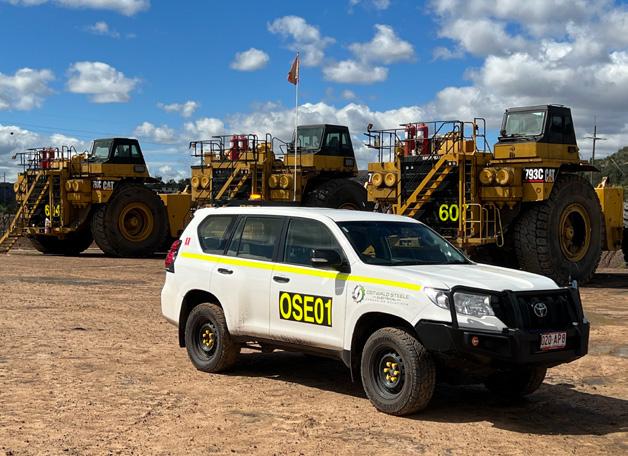
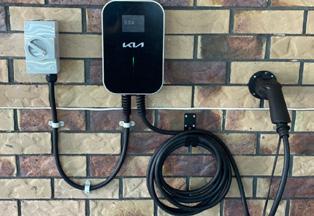
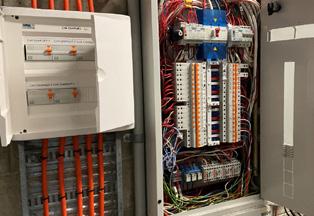
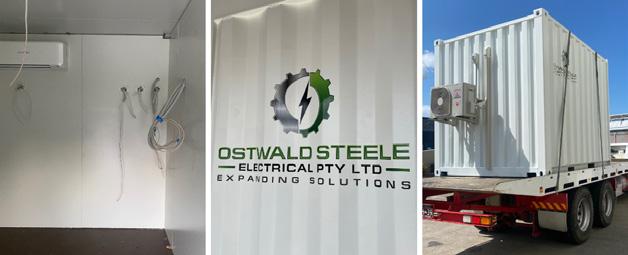
productivity for its clients. Internal targets, transparently communicated, serve as guiding lights, ensuring seamless mining and production operations. OSE’s unique focus on electrical technology advancements, workforce upskilling, and cross-training amplifies the company’s commitment to staying ahead in the ever-evolving landscape of technology and safety standards.
In response to the industry-wide challenge of silicosis and OSE’s commitment to protecting people, OSE collaborated with partners, including Synergetics, to pioneer the groundbreaking pLEV™ system. This portable Local Exhaust Ventilation system redefines safety standards, offering a meticulous solution for cleaning electrical cabinets and components, vastly minimising the risk of hazardous mining dust exposure from these tasks. Components like the pLEV™ Extractor, SmartLance HP, SmartLance EX, and Covers truly showcase OSE’s dedication to health and safety advancement.
OSE’s journey is marked by the cultivation of a team of value-driven professionals, a testament to its commitment to ‘Expanding Solutions’ and fostering a positive company culture. This ethos propels the company beyond the confines
of mere mining equipment maintenance, positioning it as a leader in resolving intricate challenges with an unwavering belief in the attainability of anything. OSE’s scope now spans mining, commercial, industrial, and residential sectors, made possible by a permanent workforce committed to unwavering innovation, quality, and efficiency.
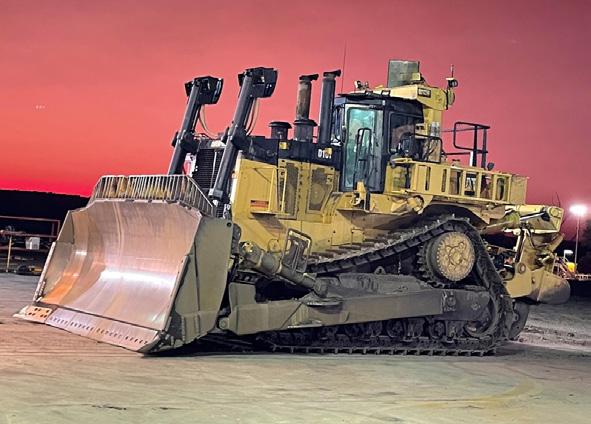


BUMA’s vision is to build a modern mining and rehabilitation company, that drives growth, sustainability, and prosperity. The basis of this vision is the core values of safety, integrity, collaboration, people, and progress.
PEOPLE – BUMA’s greatest strength is its people, and the company recognises their history and values how they shape its future.
SAFETY – BUMA is dedicated to working safely and believes this is a mindset, a way of thinking, and a commitment to the well-being of its people, communities, and the environment.
INTEGRITY – The company is founded on good people doing good things. “We do what we say we are going to do” isn’t just a tagline for BUMA, as the company always deliver on its promises.
COLLABORATION – BUMA actively seeks collaboration with all stakeholders to find common solutions and positive outcomes.
PROGRESS – The company pursues growth and sees change as an essential part of its journey.
Gold was first discovered in NSW in 1823, and in the decades following, more and more influential finds were dug up across Australia.
The exciting news of the discovery of gold spread worldwide, and as people began emigrating to the country in huge numbers, population growth increased exponentially alongside fresh agricultural and industrial development. The transformations of the 1850s saw Australia producing approximately a staggering 40 percent of the world’s gold supply.
However, during the first half of the 20th century, the nation witnessed
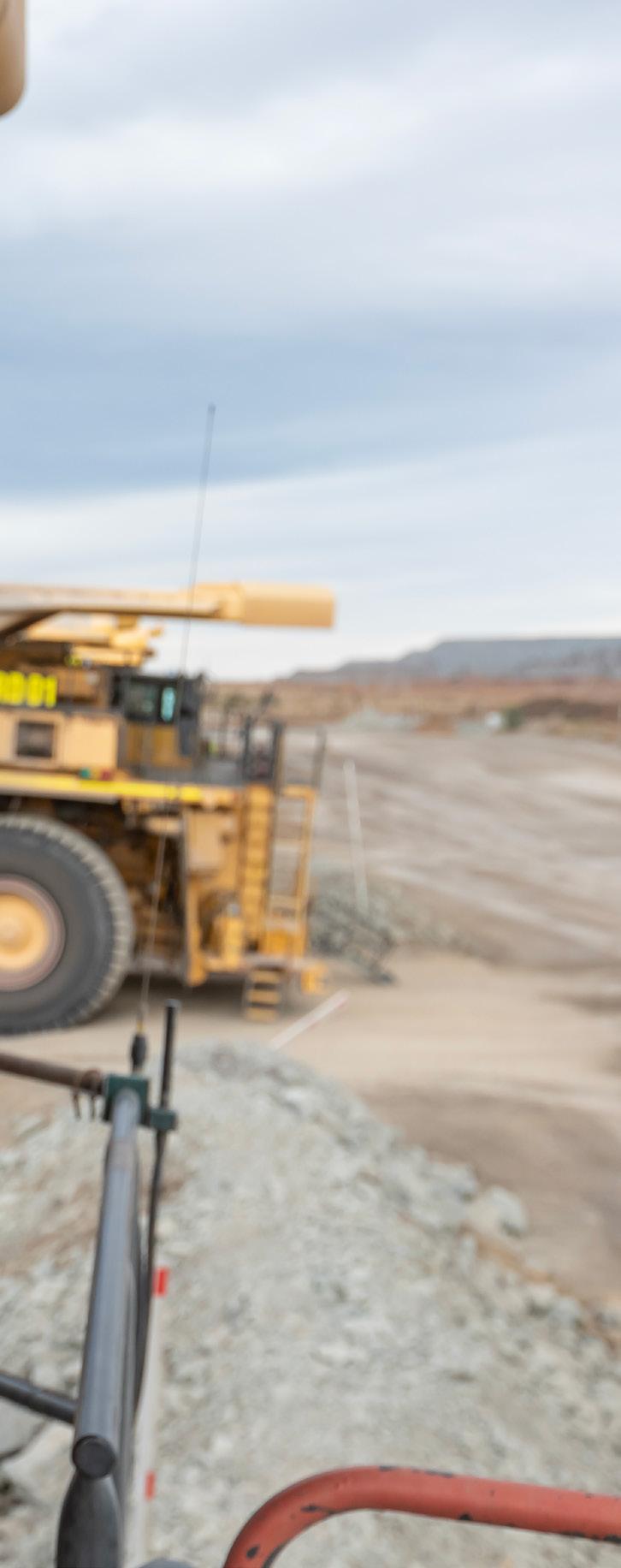
a steady decline in mining activity, with new mineral finds becoming more and more scarce. Subsequently, during the second half of the century, Australia once again witnessed a resource boom, with discoveries including nickel, oil, natural gas, and uranium. These prominent discoveries prompted a resurrection of global interest in the country’s mineral resources.
With abundant resources, it is no surprise that mining is so prevalent throughout Australia.
Specifically, Western Australia (WA) is widely considered the epicentre of Australian mining and a major force in the industry worldwide. It is home to a vast number of natural resources and some of the country’s largest mines
WA currently plays host to 98 percent of Australia’s iron ore and 60 percent of the country’s gold reserves. These plentiful resources mean that at present, more than 20,000 people in WA work in the mining industry.
These are particularly exciting times for the Queensland mining sector, as growing demand has meant that explorations for new mines have begun in the north and east of the state, with the potential to create even more jobs in the future.
In the 2021/22 financial year, the Queensland mining industry contributed a record AUD$94.6 billion to the Australian economy.
Staggeringly, despite its large number of mines and impressive economic contribution, the industry only takes up 0.1 percent of the state’s surface area.
Victoria, meanwhile, continues to play a significant part in the country’s mining history. In 1851, gold was discovered in Ballarat, which triggered the gold rush that gripped the country and the wider world. It is still a key location for the production of gold, brown coal, mineral sands and antimony today, and is filled with great potential for future mineral exploration.
Mineral projects play an important role in regional development within Victoria, whilst mining creates lucrative employment for regional Australians and supports a broad supply chain of businesses.
The state is additionally home to the Fosterville Gold Mine, the largest gold mine in Victoria. Exploration also proceeds elsewhere, such as in Glen Wills, an isolated mountain area near Mitta Mitta in north-east Victoria.
Recently, a spotlight has been placed on the growing demand for
green energy alternatives and battery technologies. Therefore, mineral exploration is widely underway with a particular focus on vanadium and lithium.
BUMA was established in 2021, to acquire the Open Cut Mining Business of Downer. This acquisition included the transition of all people, mining services contracts, assets, systems, and IP from a business that successfully provided mining services in diverse locations across many commodities since 1922.
In only two years of operating as BUMA, 750 new employees have joined the business, the number of operations has increased by 57 percent, and the size of the business has doubled. BUMA has exploded onto the Australian market and further strategic growth is planned.
BUMA’s rapid growth has been based on the quality of services that it provides its clients and its strict adherence to the company’s core values. BUMA pursues a relationship-based long-term approach and willingness to work with clients to ensure the mutual success of all projects.
“Ensuring we provide value to our clients through all stages of mining, including rehabilitation, is a mainstay of our business,” Taylor informs us.
With a strong focus on delivering optimal outcomes for our clients and a strong commitment to safety, innovation, and technology BUMA Australia has quickly become one of Australia’s leading mining contractors.
BUMA is an established mining services provider currently operating several long-term contracts within Queensland. The company has been providing mining services for 75 years and has established, numerous longterm relationships within the industry.

“THE KEY TO OUR CONTINUED CONTRACT SUCCESS COMES FROM OUR FOCUS ON DELIVERING SERVICES TO MEET EVOLVING CLIENT NEEDS USING A FLEXIBLE AND ADAPTABLE APPROACH”
– RUSSELL TAYLOR, COO, BUMA AUSTRALIA
BUMA’s current contracts are diverse, tailored to suit client requirements, encompassing a range of services from full mine operation, pre-strip, coal mining, processing plant maintenance and operation, and statutory management, as well as incorporating activities from greenfield development to closure and rehabilitation services.
With a strong commitment to safety, systems and technology, BUMA pursues a relationship-based, long-term approach to ensure the mutual success of all its projects.
“The key to our continued contract success comes from our focus on delivering services to meet evolving client needs, using a flexible and adaptable approach,” Taylor remarks.
“Our strength lies in our people,
with an experienced and diverse workforce of over 1,500 individuals, who conduct new-to-industry training programmes.”
Further to this, BUMA’s operational capabilities and technical services include mine planning, dozer push, dragline operation, load and haul operations, wash plants, and drill and blast across seven different sites.
BUMA also provides full mining services, including statutory roles, at both the Broadmeadow East and Burton mines. In addition to the Bowen Basin, the company has also provided full mining services, which include statutory roles and coal delivery to power stations at the Meandu mine for the last 10 years, as well as the Commodore mine for over two decades.
Underpinning every facet of the business, BUMA has established a set of core values that are applied daily throughout the business, and with a well-established history of successfully completing rehabilitation and environmental projects, BUMA now offers a full suite of services from mine development through to closure, including progressive rehabilitation as the mine advances.
“We have key operational sites that are actively working under Progressive Rehabilitation and Closure Plan (PRCP), which provides us with first-hand knowledge of rehabilitation delivery requirements under this new regime.”
One of the operations that BUMA is most proud of is the Blackwater Mine, which is situated in the Central Highlands of Queensland, known for its mining heritage and substantial coal deposits.
Blackwater is one of BUMA’s most established and successful projects, showcasing efficient operational practices, along with a steadfast commitment to safety, community, and our team.
As such, BUMA has been conducting truck and excavator pre-strip operations at Blackwater since 2012. Each year, the company’s fleets mine over 44 million banked cubic meters of material. To facilitate the efficient movement of this material, BUMA operates and maintains a substantial equipment fleet, which includes a Hitachi EX8000 excavator, three Caterpillar 6060 excavators, and a Hitachi EX3600 excavator. These are further supported by 28 Komatsu 930E and CAT 789 haul trucks.
Led by Project Manager, Freya Perrins, Blackwater’s success is a testament to the collective strength and expertise of its diverse and
seasoned workforce. The Blackwater project’s established training department oversees the site’s newto-industry programmes such as the First Nations work readiness initiative that has been operating since 2016.
The purpose of the work readiness initiative is to provide an introduction to mining life and offer helpful advice on potential career pathways in the industry. The programme covers topics that employees will face on a day-to-day basis to help assist those who are new to the mining sector or even the BUMA workforce.
Overall, this has had great success in preparing new-to-industry operators to be successful in securing full-time positions in the company.
“Diversity is a valued part of BUMA’s
employment approach, and we are committed to fostering a diverse and inclusive workplace that facilitates opportunity and respect,” Perrins tells us.
“Our focus on cultural inclusiveness is active and ongoing, and we are continually working to build our organisational culture with a focus on enhancing workforce diversity,” he establishes.
BUMA’s relationship with the community is a significant component of its business and the company’s reputation as a valued corporate citizen and community-conscious organisation has been achieved by consistently working closely with its neighbours. Subsequently, BUMA is committed to continuously
implementing this across all its projects.
The future of the company will depend on its ability to maintain its social license to develop, operate, and close mines consistently alongside its stakeholders’ expectations.
“At Blackwater, we highly value our community and continuously seek opportunities to assist both individuals and local businesses. This support extends to local goods and services procurement, as well as offering ongoing financial assistance to various local initiatives, including the Tiny Tots Kindergarten Centre, local youth football teams, and the Blackwater Police Citizens Youth Club (PCYC) Braking the Cycle (BTC) programme,” she adds.
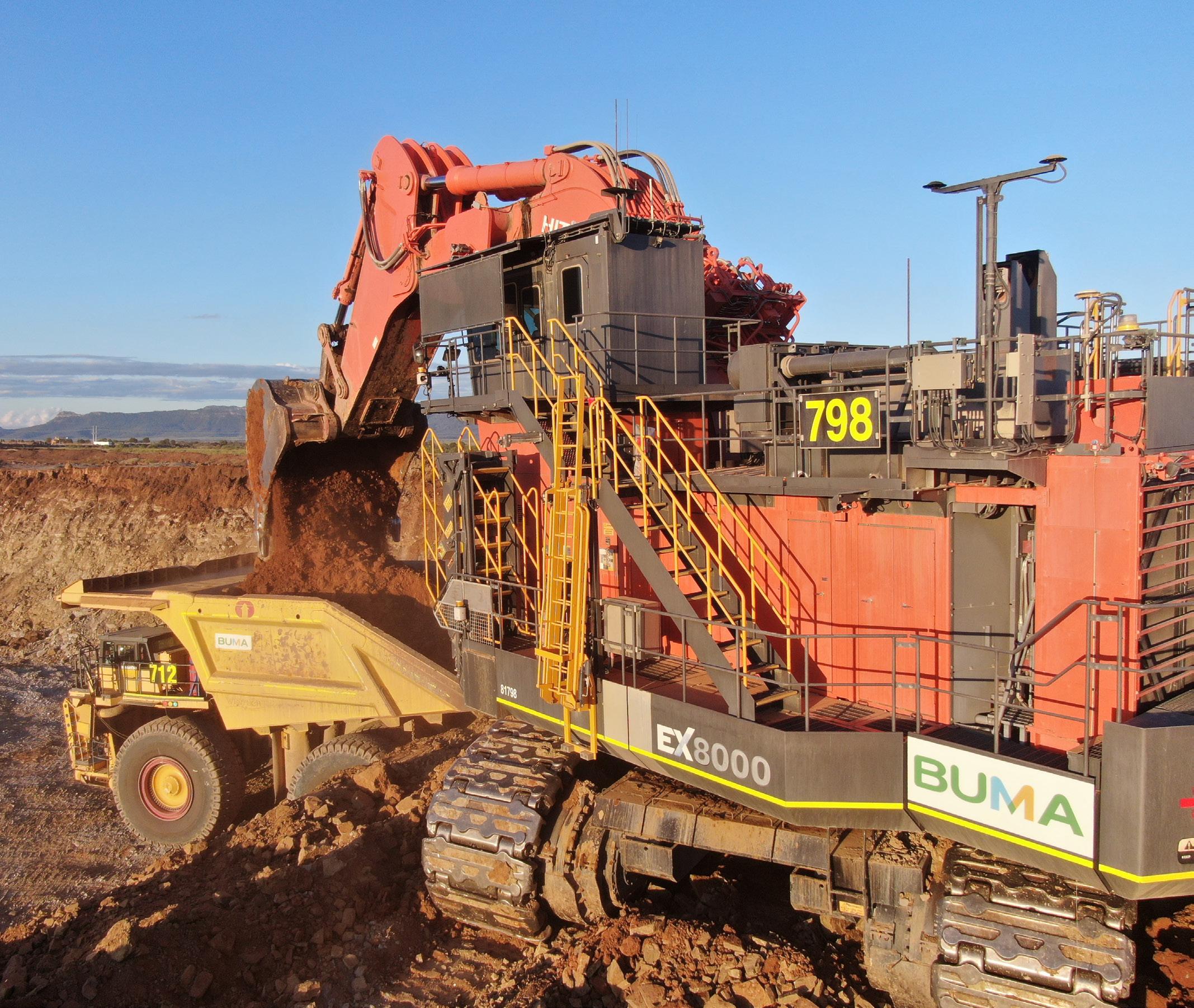




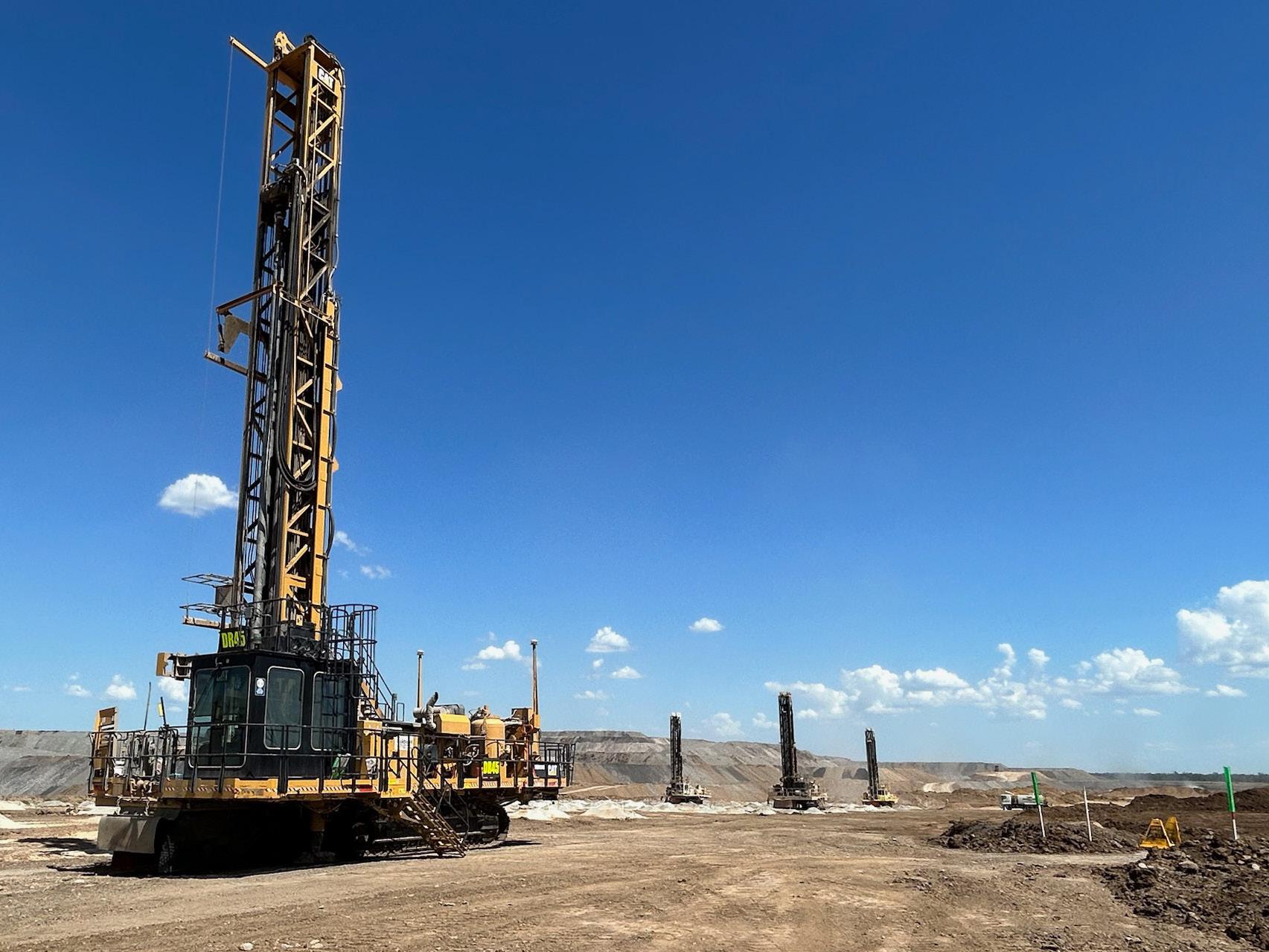
A trusted, family-owned company for over 45 years, built on honesty, integrity, and safety. Led by Gayle Coldwell and her son Brendan, our experienced team operates in Australia and the Asia Pacific region, delivering top-quality drilling services tailored to your needs. Safety, expertise, and commitment are our priorities.






Conclusively, the Blackwater Mine has consistently maintained a high level of operational efficiency and a strong commitment to safety standards. This achievement has been made possible through BUMA’s people, technology, and thorough safety measures.
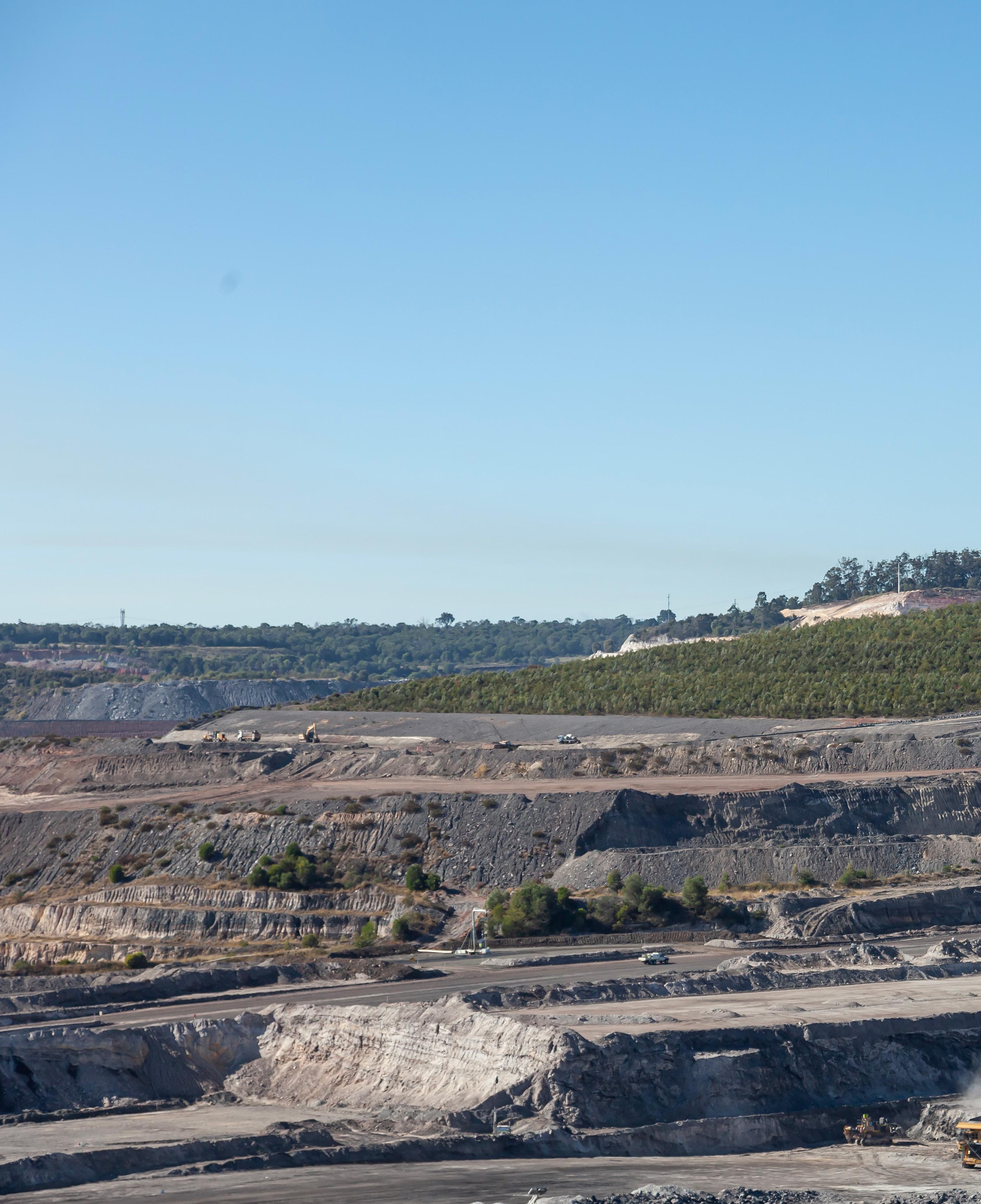
It has become a significant focus for BUMA to carry on delivering exceptional service in collaboration with its clients, BUMA recognises that there has been a significant investment into technical resources to develop rehabilitation and closure
To achieve the company’s vision, BUMA’s senior leadership and management:
• Take accountability for the effectiveness of quality management.
• Guarantee that all quality objectives have been set and are maintained adjacent to internal auditing and monitoring in order to enhance customer satisfaction.
• Promote the use of a process approach and risk-based thinking.
• Engage, direct, and support people to contribute to the effectiveness of the quality management system, encourage improvement and professionalism, and motivate employees
This list of policies is communicated to all employees, subcontractors, and organisations working for BUMA.
plans across the Australian mining industry. As such, the delivery of works in accordance with these requirements is paramount.
“We aim for long-term stable and sustainable landforms, with our focus firmly set upon efficiency in earth movements right from bulk earthworks through to the ongoing management and maintenance of completed areas,” Taylor comments.
“This, supported by our quality control and evidence-based monitoring processes, ensures that we support our clients in equally meeting their scheduled physical delivery and statutory reporting outcomes,” he furthers.
Today, rehabilitation activities at Stanwell’s Meandu Mine commence as soon as areas become available,
with over 930 hectares (ha) of native vegetation rehabilitation already completed across the site.
This year, the Meandu site is aiming to achieve an additional 41.5 ha of native vegetation rehabilitation. Significant work has already occurred, with the land profiled, topsoiled, and seeded earlier this year. Previously, during 2022, BUMA successfully completed 28.7 ha of native vegetation rehabilitation across the Meandu Mine.
“Our native vegetation rehabilitation areas, designed to meet the final post-mining landform, exemplify our commitment to safety, stability, sustainability, and adherence to environmental regulations,” Tranter shares.
“To ensure the project’s success, we thoroughly follow government

“OUR STRENGTH LIES IN OUR PEOPLE, WITH AN EXPERIENCED AND DIVERSE WORKFORCE OF OVER 1,500 INDIVIDUALS”
– RUSSELL TAYLOR, COO, BUMA AUSTRALIA
regulations, incorporating specific design elements such as gradients, cover materials, and drainage systems.”
Similarly, BUMA also designed and constructed a network of rock-lined drains, utilising basalt rock sourced from the mine, to manage the overland flow and mitigate the risk of erosion.
“We place topsoil across the entire rehabilitation surface, drawing from on-site topsoil stockpiles that are assessed for quality, ensuring optimal performance for native vegetation
rehabilitation. To reduce the compaction of the cover material, we employ a single-pass method, which included the processes of fertilisation, ripping, and seeding,” he continues.
BUMA is committed to restoring the environment to its natural state, a promise that extends to its choice of seeds. Over 600 kilograms (kg) of seeds, comprising a diverse mix of species of trees, shrubs and grasses mirroring the local regional ecosystem, are spread across the rehabilitation site.

Culleton Contracting Pty Ltd (Culleton Contracting) is an all-encompassing and comprehensive bulk excavation and earthworks company, permeating many industries across Queensland and Western Australia. With over three decades of experience, the company has progressed to become highly respected as a reliable source of excavation operations, regardless of the size and complexity of the project in hand.
APAC Outlook (AO): Please could you briefly introduce us to Culleton Contracting and tell us more about the company?
Kristy Presnell, Office Manager (KP): Culleton Contracting is a privately-owned, proprietary limited, Australian company based in South-East and Central Queensland. Established in 2020, we provide services for clients operating in mining, local and state government infrastructure, and land development sectors throughout the state.
Our continued and steady growth has been revolved around developing close, long-term working relationships with our clients. This is achieved by providing experienced people a variety of modern equipment using our internal expertise and knowledge, to deliver a wide range of contracts in a timely and cost-effective manner, whilst upholding the highest safety standards.
Culleton Contracting’s staff – consisting of approximately 40 employees - have extensive experience in projects, operations, and maintenance activities in a variety of heavy industries. These include coal and metalliferous mining, upstream and downstream gas transmission and facilities, marine services utilities including water and sewer lines, bridge and
dam construction, windfarms, solar plants, and the farming industry, including organic farms.
AO: What differentiates Culleton Contracting from the competition?
KP: Culleton Contracting is large enough to respond to our clients’ needs while being small enough to develop and maintain personal business relationships.
The company’s reputation is built on the commitment and dedication of all its employees, delivering outcomes that meet our clients’ specific requirements.
Our business supports the community and local groups by way of donations, attendance at community events, and supply of Culleton Contracting merchandise.
AO: Please could you elaborate on the company’s partnership with BUMA Australia? How long have you worked together and what is the nature of your interaction?
KP: Culleton Contracting, known as ‘Downer’ previously, has had a strong relationship with BUMA Australia for the past four years. We believe to be key partners to its operations, providing services and equipment for the client as requested. We have current agreements in place which are regularly reviewed by both parties for ongoing works on multiple BUMA Australia sites. We have also recently been given the opportunity to be a part of the company’s major editorial and marketing project.
AO: How do Culleton Contracting and BUMA Australia mutually benefit each other and what complementary strengths do you bring?
KP:
- Establishing clear goals and expectations: Building trust and communication through regular interactions, whilst seeking mutually beneficial opportunities for growth and innovation, whilst ensuring minimal impact on the environment.
- Prioritising open communication: Developing and maintaining the relationship with regular check-ins, sharing feedback, and establishing clear goals and expectations.
- Effective communication: Fostering transparency and nurturing mutual understanding by continuously exchanging knowledge, challenges, solutions, success stories, and needs.
- Identifying how Culleton’s strengths complement BUMA and how their strengths complement us: Working together as much as possible to bolster each other’s complementary strengths.
- Sharing media opportunities: Creating a mutually beneficial relationship where both companies will gain advantages from the exposure given by the press hit.
- Schedule regular meetings: Discuss new initiatives, products and services, promotional campaigns, and other growth activities.
AO: Could you tell us more about the company’s current projects?
KP:
- Supply of provision and open-cut mining equipment and services in accordance with good industry practice for BUMA Australia at Burton and Commodore Mines.
- Supply of material and rehabilitation works for the local power station.
- Works at Coolmunda Dam consisting of trenching,
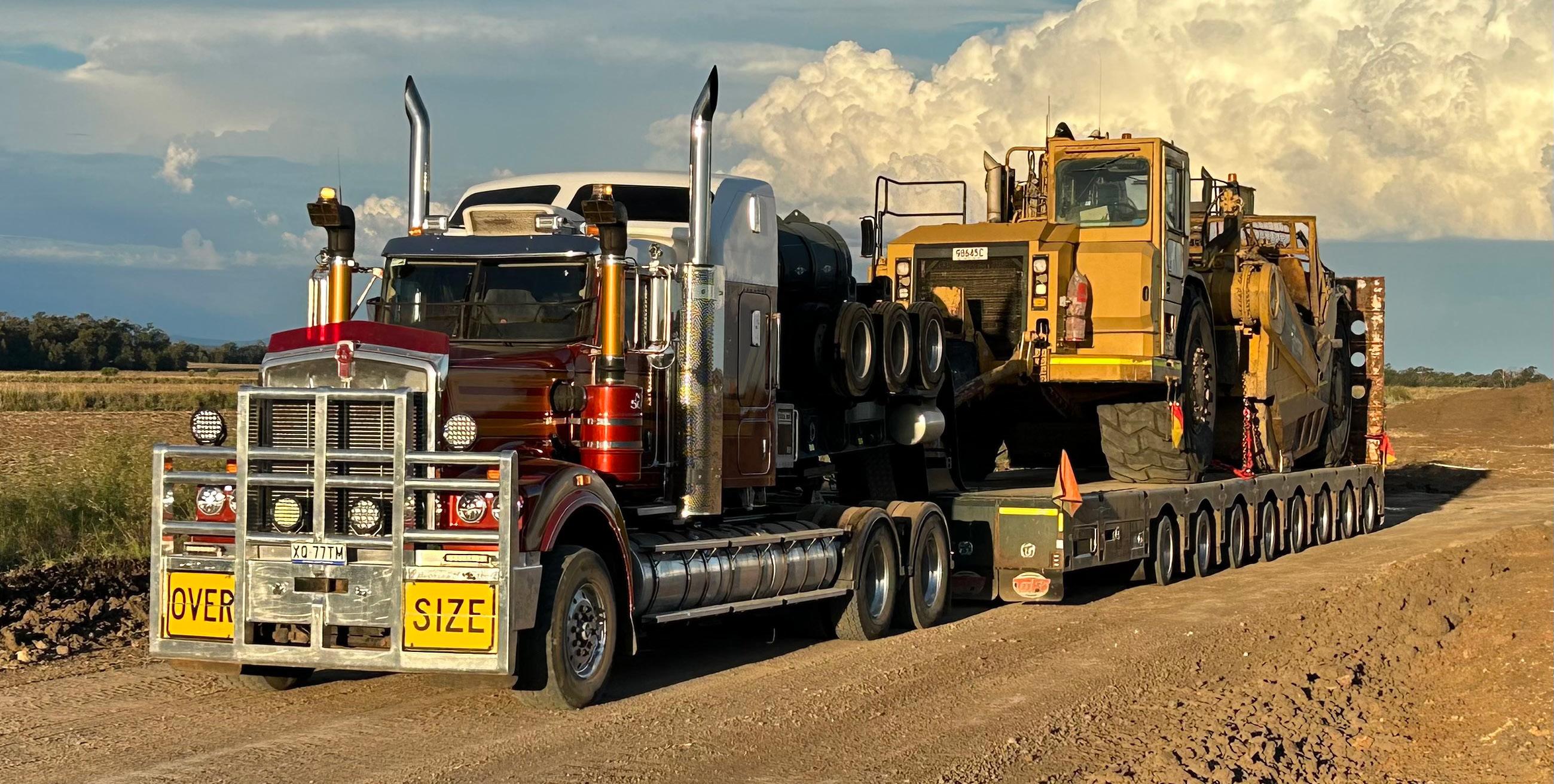
diversion, and pipe laying.
- Multiple civil jobs including farm works, road works, and fire protection methods for local properties.
- Windfarm project consisting of the construction of new pads, roadways, and drainage.
AO: Similarly, are there any projects in the pipeline Culleton Contracting is excited about?
KP: We have multiple tender applications in the pipeline for next year. The company is also excited to continue our strong relationship with BUMA Australia in the mining space, as well as focusing on civil works around our local area and beyond.
AO: How does the company try to empower its staff and recognise the contributions that they make?
KP: Culleton Contracting strives to foster an environment of trust and safety. We build employees confidence with recognition and incentives, offering flexibility in work arrangements, and asking employees for feedback and actioning it.
The company supports professional growth with coaching and delegation, showing appreciation and recognition, and supporting a balanced family/work lifestyle. Furthermore, we have an excellent safety and industrial relations track record, being five years lost-time injury (LTI) free at our operations, and have enjoyed a harmonious, collaborative, and co-operative relationship with our workforce.
AO: Looking ahead, what are Culleton Contracting’s key priorities?
KP: Core Values
- Safety is our core focus and an integral part of all activities.
- Quality is an essential element of our business. Do it once, do it right.
- Minimising the environmental impacts from our activities. Our Commitment
- Continuous improvement, innovation, and repeat business development.
- The utilisation and implementation of safe and responsible work practices.
- A can-do approach whilst also working hard to understand our clients’ business needs and provide them with excellent service. This is demonstrated by our return client business.
- Conducting our business ethically, honestly, and with diligence always.
- Providing a work environment where our people are motivated and satisfied.
- Working under a self-performing model and delivering on our commitments. Culleton
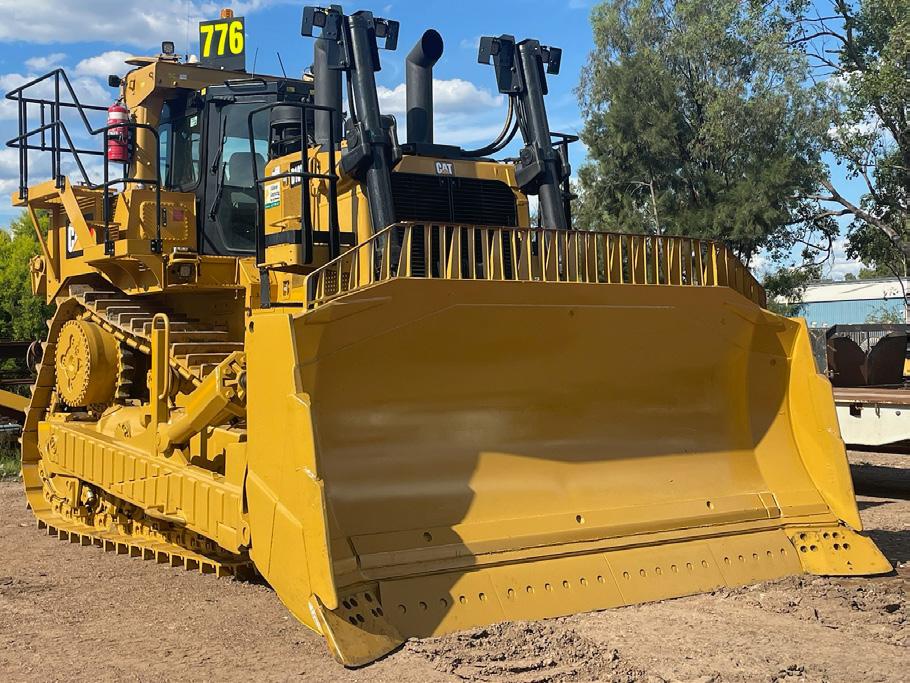
11-13
M:
ABN:

Strong corporate governance is an essential driver of BUMA’s operations and performance, and underpins the culture of its workforce.
The company’s governance framework is overseen by the BUMA’s board and executive leadership team. This framework enables BUMA to make sustainably responsible decisions and maintain strong relationships with employees, clients, and other stakeholders.
BUMA operates under a robust and transparent governance framework that applies across all operations and functions of the company. This framework provides a structure that ensures:
• Transparency
• Accountability
• Responsibility
• Independence
• Fairness
Each of BUMA’s employees has committed to a code of conduct that instils the high importance of compliance in everything the company does. The code also includes commitments in relation to:
• Individual behaviour
• Use of communication platforms
• Conflicts of interest
• Confidentiality of information
As such, BUMA source 25 different native seeds from a local supplier, further enhancing the project’s authenticity. In addition, the seed mix incorporated grasses, serving as a cover crop to facilitate the establishment of native vegetation.
“Among the species we have reintroduced to the Meandu Mine area is the Yarraman Ironbark (Eucalyptus crebra), a native variety indigenous to the region, as well as the Native Apricot (Pittosporum angustifolium), and the Brisbane Golden Wattle (Acacia fimbriata).”
BUMA’s unwavering commitment to conducting high-quality and progressive rehabilitation projects remains at the core of its central values.
“We are dedicated to ensuring the sustainable and responsible transformation of mining areas back to their natural state, embodying our commitment to the environment and community,” finishes Taylor.
BUMA’s Commodore Mine is located in a sensitive agricultural region close to the farms and township of Millmerran.
At this site, BUMA works closely with the local community to operate a safe and environmentally-responsible mining operation. Dust, excessive noise, and blasting restrictions are managed to ensure minimal impact, while special attention is also placed on the rehabilitation of the post-mine landform.
The post mine landform must be capable of supporting long-term primary industries, such as grazing. Furthermore, the site’s water management is achieved through the use of contour banks, sediment traps, and dams, separating mine run-off water from clean water in accordance with the Site Water Management Plan.
“Environmental sustainability solutions have been applied to all


Drill-Bourn Pty Ltd provides mechanical repairs and reliability consultation. Located in the Hunter Valley NSW supporting customers globally, as required
Drill-Bourn can carry out all machine upgrades and improvements. We’re not your run of the mill technicians, we believe in going above and beyond. That’s why we can also work with you to help evaluate and optimise your machine design, and collaborate with you to achieve low maintenance solutions that are better for your business.
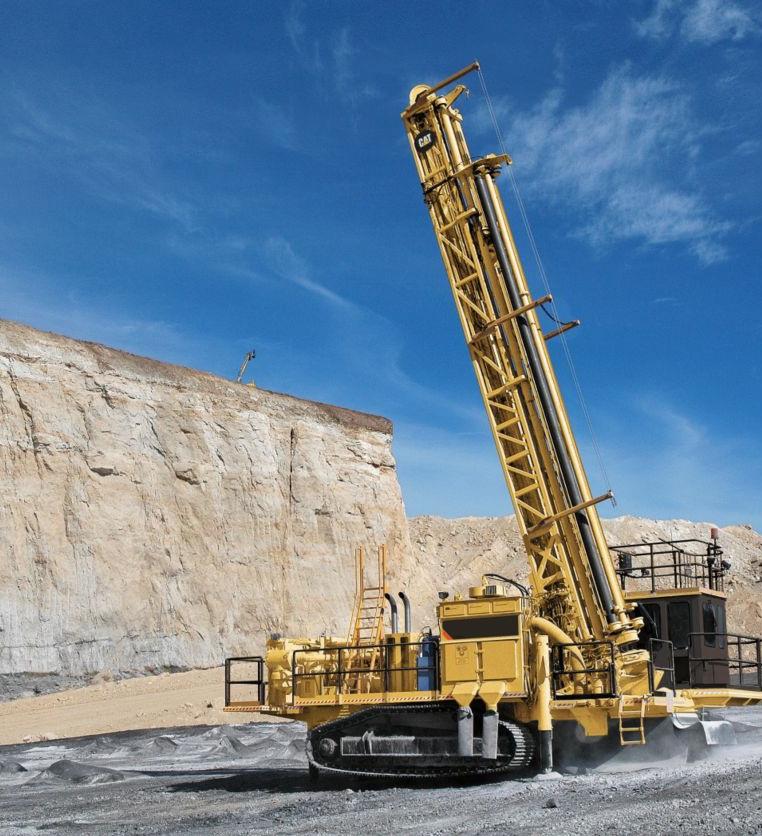

All machine upgrades/improvements consider machine design and target low maintenance solutions.
• Drill automation consultation
• Increased machine reliability
• Maintenance improvements and modifications
• Operator and maintenance training
• Parts support and supply
Successful Projects:
• Patented drill specific stands
• High density poly sheaves to reduce manual handling hazards


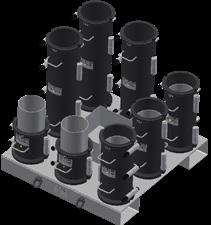
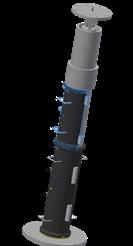
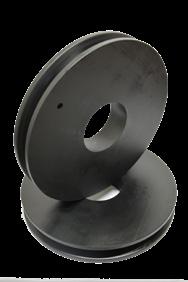

aspects of the mine’s operations, including water recycling, waste management, and rehabilitation. The project is self-sufficient in its water use and prioritises best practice rehabilitation practices that minimise disturbance and protect rare grass species,” Taylor shares.
Additionally, the Commodore Back Creek Diversion Project is an earthworks civil construction operation designed as a meandering creek bed, comprising floodplains, terraces, and a clay-lined, low-flow channel. It has been constructed within the overburden and backfilled for rehabilitation of previously minedout coal seams.
The work involved the excavation and the localised placement of 30 ha of floodplain and terraces. The primary activity for BUMA was
BUMA has completed the rehabilitation of the North End Box Cut waste dump rehabilitation in the Pilbara region of WA for Rio Tinto in 2022.
The project involved reshaping waste material and encapsulating it with waste cover. The slopes were then sheeted with rock armour before the final surfaces were topsoiled. In total, 80 ha were then reseeded using a dozer and the process of cross-ripping.
The project involved two load and haul fleets using excavators and articulated dump trucks. Larger off-road dump trucks were unsuitable due to the required gradients for the operations and because of the limited workspace. Additionally, a significant amount of dozer push was also required to assist in the reshaping and spreading of the encapsulated cover and subsequent topsoiling.
The client was satisfied that the work was finished to a high standard and exceeded their expectations in regard to First Nations engagement. The project was operated on-site with technical and management services provided by BUMA’s Brisbane office.

Kingaroy Hydraulic Sales and Service (KHSS) has been in operation for 32 years.
We are more than our name suggests. We provide the following services to our wide range of clients:
• Hydraulic service
• Metal fabrication, both light and heavy
• Sheet metal work
• Machining
• Line boring
• Sand blasting and painting
• Labour hire
• Retail outlet
• Plant and equipment hire
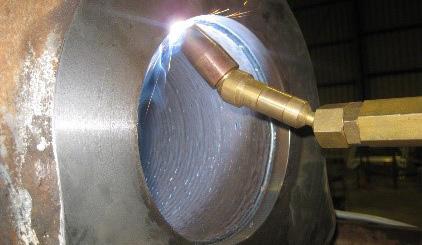
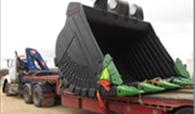
accounts@kingaroyhydraulics.com.au


the excavation and placement of a thick liner to form the low-flow channel. This was required to be placed, compacted, and tested to a highly intricate level of accuracy. The project scope also required topsoiling, vegetation, installation of timber habitat, and embankment construction for interim flood levees.
The project required a complete quality assurance programme to ensure all statutory regulations and environmental requirements were achieved to the highest standard.
The Commodore Back Creek Diversion Project attracted attention from a range of stakeholders, including heritage considerations, local community members, and multiple government departments.
Finally, the project was selfsufficient in its water use and
“OUR WELL-ESTABLISHED SYSTEMS AND PROCESSES COVER EACH PHASE OF A MINING OPERATION, FROM START-UP THROUGH TO OPERATIONS, AND EVENTUALLY CLOSURE”
– RUSSELL TAYLOR, COO, BUMA AUSTRALIA
innovative rehabilitation practices were prioritised throughout to restore disturbed areas, recreate the original landform, and ensure strict adherence to reinstating original tree and grass species for the area.
BUMA is resolutely focused on leaving a positive legacy through delivering high-quality rehabilitation and closure outcomes.
“We aim to contribute towards the establishment of thriving local communities during and after mining, through initiatives such as our Rural Seed Collective programme, which is focused upon delivering high quality, localised seed stock to mine rehabilitation and broader land regeneration projects within the regions we operate,” Tranter sets out. This initiative sees qualified environmental practitioners work

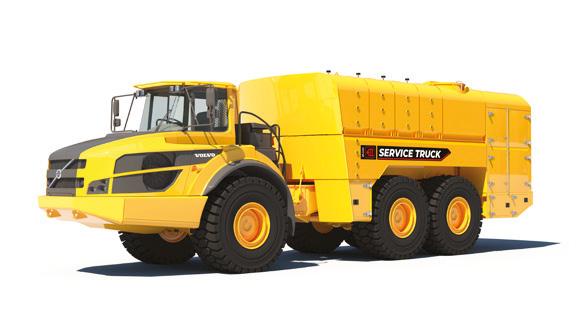
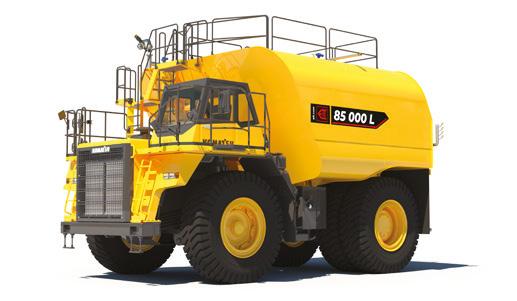
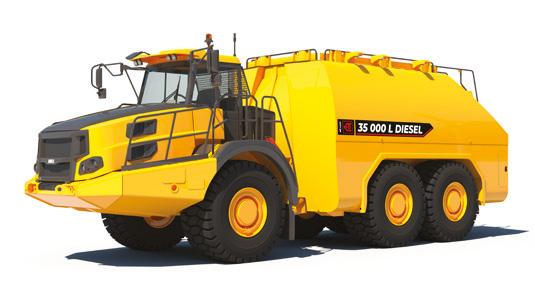


with landholders and community participants to harvest, and in some instances propagate, native plants via a certified programme that provides them with income, qualifications, and access to support for broader natural resource management initiatives.
“We believe that investing in this type of programme is mutually beneficial for the industry and regional communities, in that it reduces the risk of limited native seed supply, which is a common issue during intensive periods of rehabilitation on a region wide scale and provides additional income streams for landholders,” he affirms.
This programme also facilitates
access to new vocational pathways for a diverse range of individuals across BUMA’s communities.
Looking ahead, BUMA is now focusing on growing its rehabilitation services from bulk earthworks right through to ongoing maintenance and monitoring requirements. The company is also committed to contributing to adding long-term value for regional communities through the restoration of previously mined terrain, which allows for beneficial land uses well into the future.
“We know that here in Queensland, PRCP requirements are a primary focus along with the connection to
miner’s surety obligations under the Financial Provisioning Scheme,” Taylor sets out.
“We’re focused on ensuring that mining organisations can confidently plan on achieving compliant outcomes in accordance with their PRCP and internal rehabilitation delivery schedules in a way that makes commercial sense,” he culminates.
In summary, BUMA also understands how progressive rehabilitation feeds into broader closure planning considerations, and in this way, the company will continue to support its clients with rehabilitation trials which will contribute to positive closure outcomes.
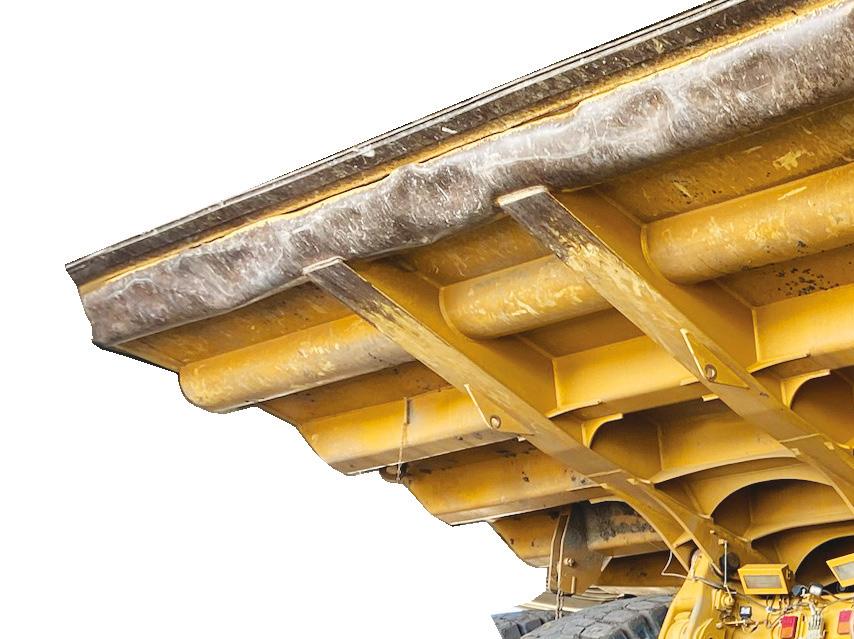
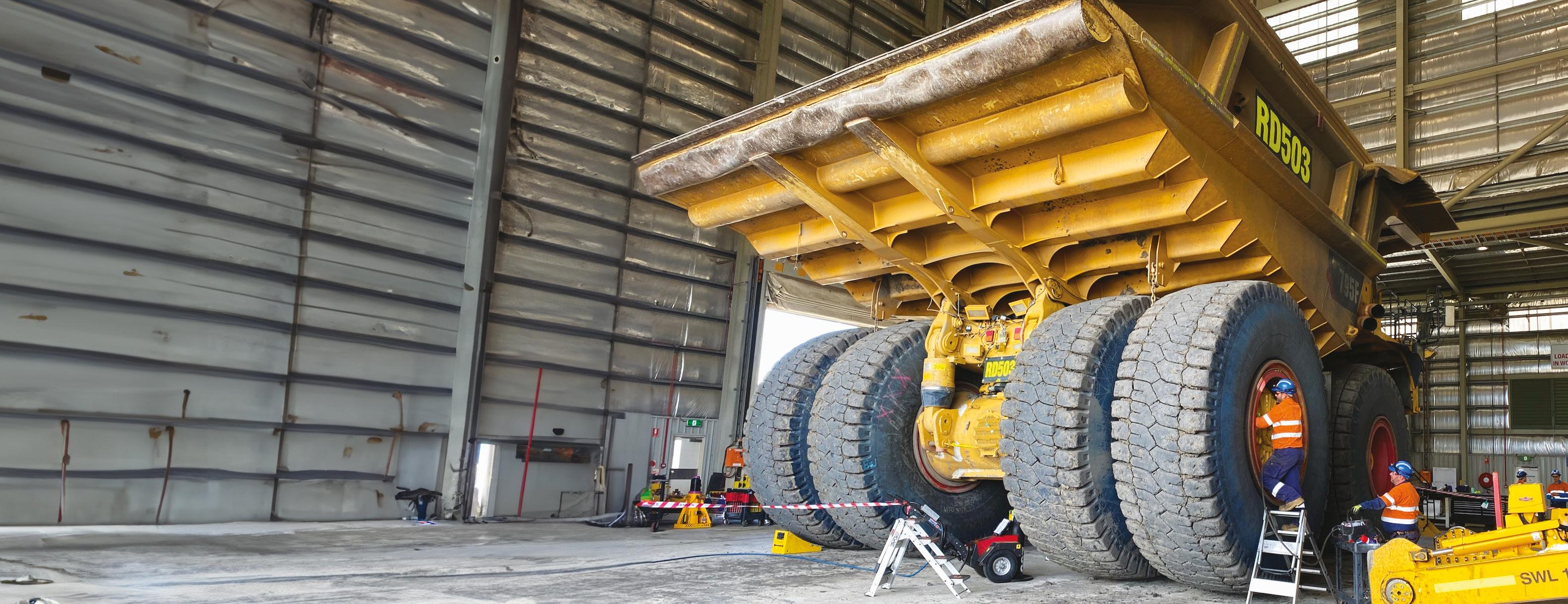
In today’s ever-changing business environment, optimising your tyre and wheel assets is crucial, whether you have a large fleet or just a few vehicles.
• Track tyre usage: Gain insights into performance and usage.
• Rim certification: Ensure the safety and reliability of your rims to prevent accidents and downtime.
• Prevent premature tyre failures: Identify and address issues early to avoid costly problems.
• Operator training and on-site feedback: Empower your team with the right skills and provide real-time insights to management.
• Tread utilisation: Ensure efficient usage.
• Customised reports: Get the data that matters most.
• Supply security forecasting: Stay ahead to keep operations running smoothly.
Enhance performance and profits through customised reports:
• Interactive graphical analysis: Visualise data for quick insights.
• Evaluation of tyre-related issues: Identify potential problems and take corrective action.
• Productivity and cost efficiency recommendations: Benefit from expert advice to optimise operations.
• Initiative implementation: Use findings to maximise operational value.
• Tyre repairs
• Tyre bay tooling
• Rim testing and repair
• Valving & components
• Tyre fitting
• Tyre & wheel management
• Inspections & reporting
• Tyre bay equipment hire
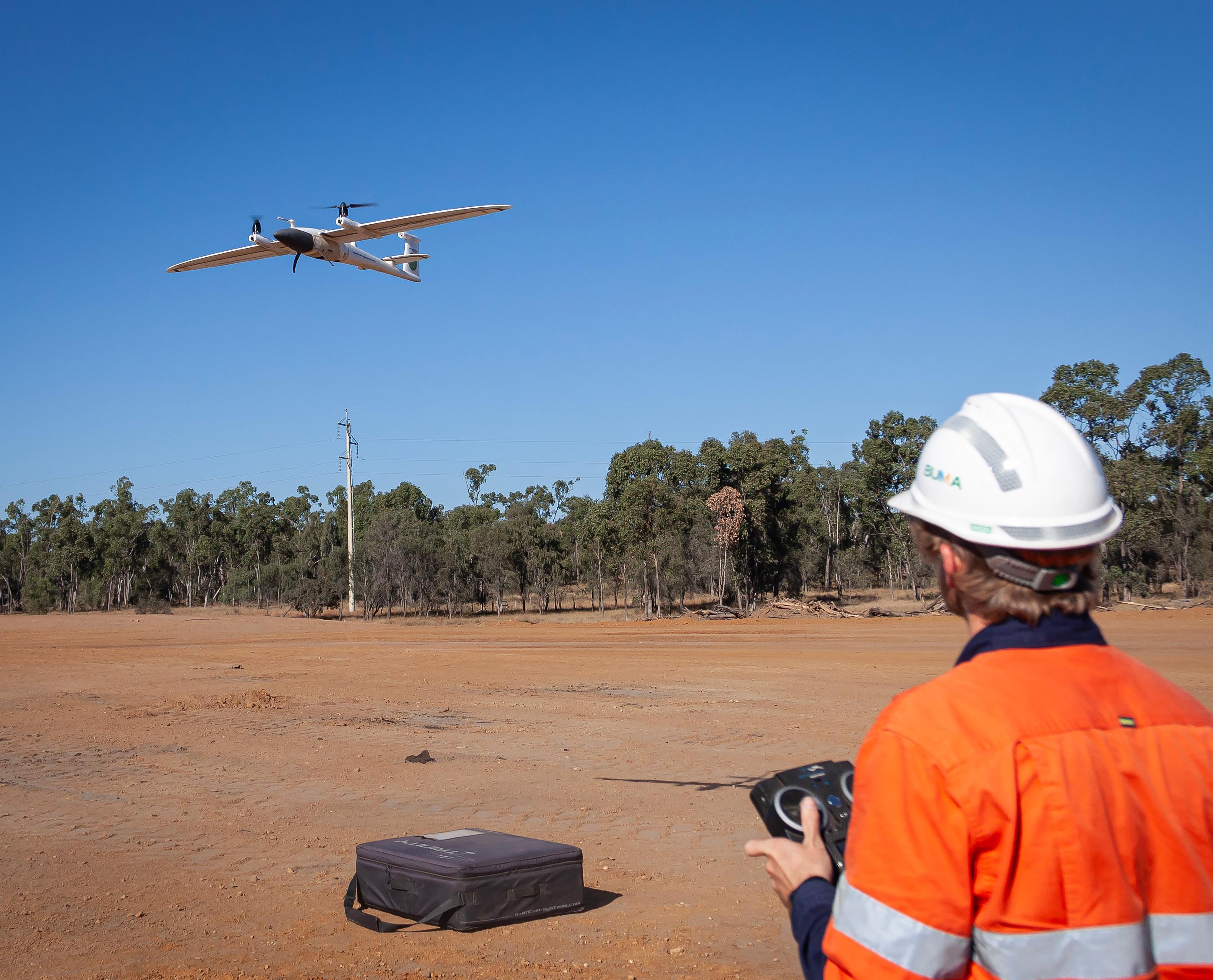
Since 2016, BUMA’s Blackwater Mine has proudly supported local community organisations, including organisations such as the PCYC with financial assistance to help run youth programmes in the local community. These initiatives focus on various community needs, aiming to make a positive impact on the lives of young people and promote social cohesion through inclusive programmes. The mine is located adjacent to the town of Blackwater, where BUMA’s workforce is accommodated and integrated. The company endeavours to exist as a proud supporter of local community groups in the area.
The Blackwater site is also proud of its First Nations work readiness initiative that has also been operating
“AT BUMA, OUR COMMITMENT TO HEALTH, SAFETY, AND THE ENVIRONMENT MEANS PROVIDING A WORKPLACE THAT SUPPORTS THE WELL-BEING OF OUR PEOPLE AND CONDUCTING OUR OPERATIONS IN A MANNER THAT IS ENVIRONMENTALLY RESPONSIBLE AND SUSTAINABLE”
– RUSSELL TAYLOR, BUMA AUSTRALIA
since 2016. The programme has been triumphant in preparing new-toindustry operators to be successful team members of the broader BUMA team at Blackwater.
Elsewhere this year, BUMA Blackwater has proudly sponsored the BTC programme.
“The BTC programme gives our
local young people the ability to drive legally and safely on the road and accumulate their 100 log-book hours alongside a dedicated volunteer to help mentor good driving habits,” Perrins explains.
“Additionally, this programme improves employability and opportunities for young people as
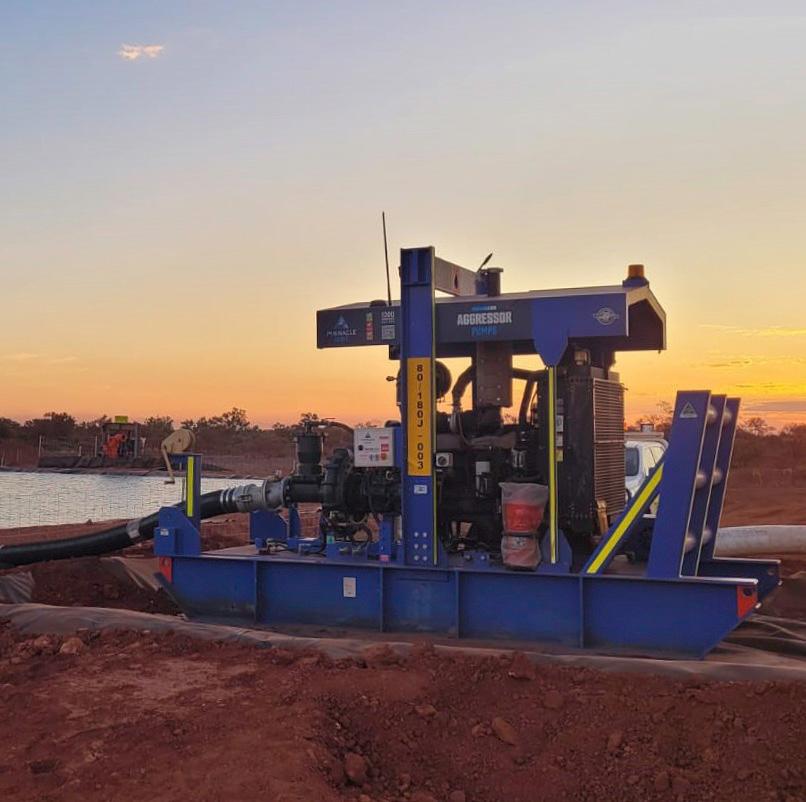
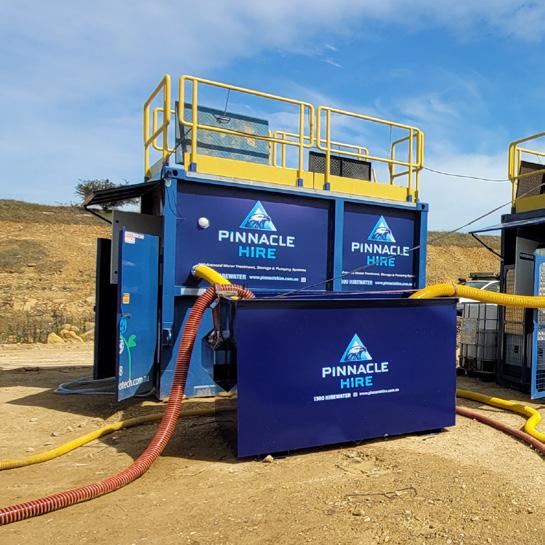


Victoria MELBOURNE GEELONG
New South Wales SYDNE Y
South Australia ADELAIDE
Queensland BRISBANE MACKAY
Western Australia PERTH KARRATHA ALBANY KALGOORLIE
Tasmania HOBART BURNIE
Northern Territory DARWIN
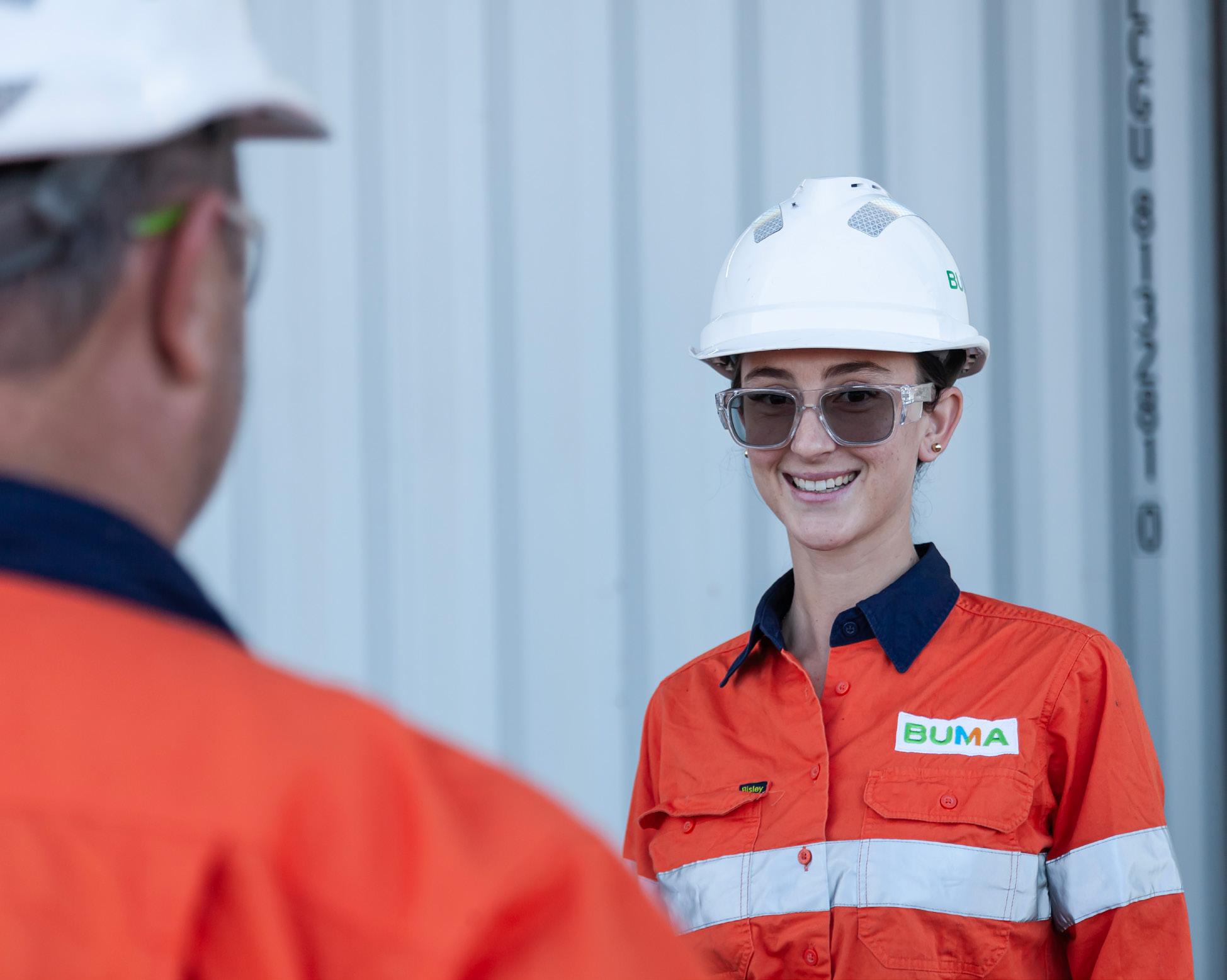
lack of transport is a major barrier to attaining employment in Central Queensland.”
BUMA Blackwater’s investment in BTC is also an investment in each young participant and their future as they are empowered through road education to be safe and responsible drivers.
Meanwhile, BUMA also presently possesses a dedicated team of sustainability professionals as well as a broader corporate ESG framework which allows the company to develop initiatives that meaningfully empower its employees and present them with exciting opportunities, as well as facilitating the opportunity to contribute to the communities in which BUMA operates.
“We believe in transparency across the entire business, so

BUMA currently undertakes annual sustainability reporting on its own ESG impacts in accordance with the United Nations Sustainable Development Goals (SDGs) and the Global Reporting Index (GRI),” Taylor elaborates.
The health and safety of BUMA’s
people and the protection of the environment for future generations are of paramount importance to the ongoing success of the company.
“At BUMA, our commitment to health, safety, and the environment means providing a workplace that supports the well-being of our people and conducting our operations in a manner that is environmentally responsible and sustainable.
As one of Australia’s largest and most reputable contract crushing companies, Nitro Crushing is a leading provider of contract crushing services and solutions. We are dedicated to meeting our clients needs through a determined focus on delivering outcomes with efficiencies while not compromising on safety, environment and personnel. We pride ourselves on being first adopters of innovative and technology advanced solutions to build efficiency for us and our clients. We have an extensive low hour, fully maintained fleet of crushing equipment.
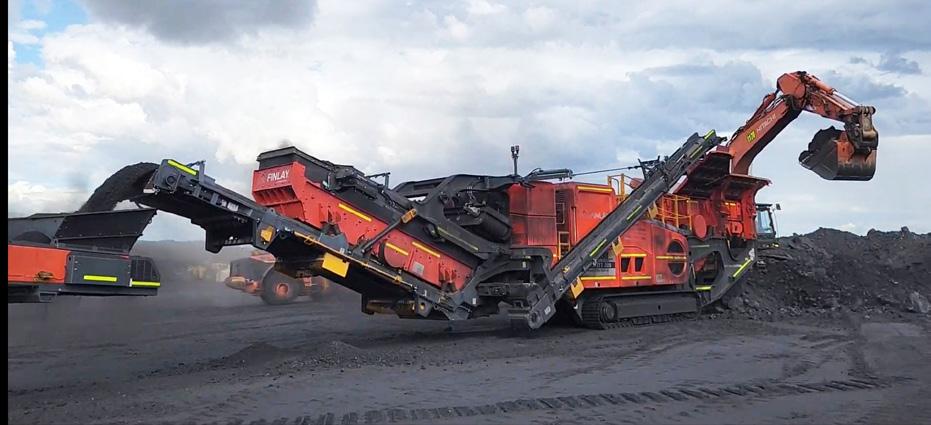
Nitro is proud to be a working partner with BUMA mining solutions, in Australia. BUMA approached Nitro to crush at the Broad Meadow East Coal Mine while the wash plant was under construction. Nitro slipped in effortlessly meeting the highest of standards with their machinery, systems and staff and hit the ground running to produce to target from the first instance. “We really enjoy working with a company like BUMA who has the same focus on outcomes and safety as we do” said managing director Trent Marino. “The staff at BUMA head office were great at letting us know what was required, the SSE and her team set the standards early and let us get on with our job without incident, hitting 100kt target per month in production.”
Nitro Crushing owns and supplies fully equipped service vehicles with capabilities of oxy cutting, welding, conveyor belt repair, manganese replacement, breakdown repair and general servicing, thereby reducing any downtime which could impact the supply chain. We constantly keep a full range of parts in stock. Nitro Crushing has qualified diesel fitters trained in this industry, specialising in looking after quarrying and mining machinery. We also have a highly skilled team of boilermakers to assist in major repairs and maintenance.


Trent Marino – Managing Director of Nitro Crushing has over 15 years’ experience in the mining and quarrying industry, with a dedication and understanding to supply quality cost effective solutions to our clients.
In 2004 Trent started his Diesel Fitting apprenticeship in Cairns with the reputable Hastings Deering Pty Ltd QLD, working on all aspects of mining plant equipment and operations, completing his apprenticeship in 2008. In 2007 Trent expanded his career in the industry, starting works with local Quarries. Trent purchased crushers leading to the creation of Nitro Crushing.
Over the past 15 years Trent has devoted himself to creating an honest and reliable service with a high quality of workmanship, easy to work with, friendly, loyal, and approachable staff. Trent has the philosophy of buying new machines and keeping them in great conditions so he can be proud of his fleet.
We pride ourselves on our crushing and screening expertise. Our crews are led by experienced crushing professionals who have multiple years experience, and formal qualifications. Employees of Nitro Crushing have detailed knowledge and understanding of quarry material, specifications, and making big rocks into small rocks allowing us to crush anything anywhere in almost any conditions. Experience that ensures we achieve compliance. We operate under a fully integrated management system, delivering a quality and consistent finished product every time.
Managing Director - Trent Marino: 0439 712 867
General Manager - Hamish Jenkins: 0412 575 373 | manager@nitrocrushing.com.au



Therefore, all projects strive to exceed our client, stakeholder, and industry expectations,” shares Taylor.
Safety requires strong leadership and commitment. To ensure this, BUMA’s leadership teams set clear, positive expectations, actively involving its people to identify improvements, be accountable, and uphold industry-leading safety standards.
“We believe that everyone at the company has a responsibility for improving and maintaining health, safety, and environmental performance. Therefore, BUMA has an organisational structure to support the achievement of its targets and strategy in this area,” he adds.
Underpinning this safety
“THE BTC PROGRAMME GIVES OUR YOUNG PEOPLE THE ABILITY TO DRIVE LEGALLY AND SAFELY ON THE ROAD AND ACCUMULATE THEIR 100 LOG-BOOK HOURS ALONGSIDE A DEDICATED VOLUNTEER TO HELP MENTOR GOOD DRIVING HABITS”
– FREYA PERRINS, PROJECT MANAGER, BUMA AUSTRALIA
commitment is a carefully constructed framework structured around leadership, risk, controls, planning, improvement, monitoring and enables BUMA to meet the correct legislative certifications.
The company uses various reporting and performance systems and controls to support its ongoing
commitment to the safety of its people and the environment, ensuring that it remains proactive in its approach to the mitigation of risks on each of BUMA’s sites.
Furthermore, BUMA recognises that a stable, educated, and focused workforce is essential for delivering a safe and productive project.
Otraco International is the leading provider of off the road tyre management solutions in Australia.
Our team of highly skilled and qualified tyre technicians have been assisting clients lower their total cost of ownership in the tyre space for over 50 years.
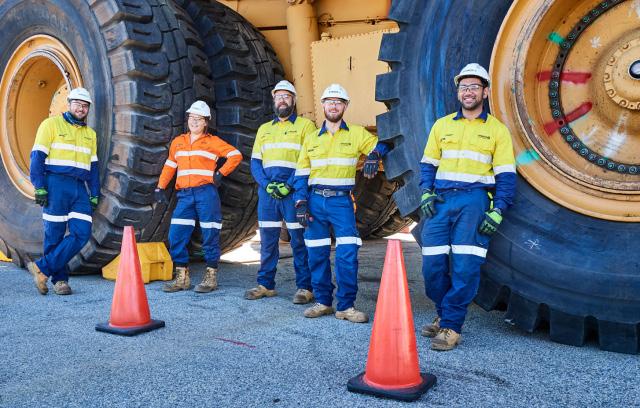
From our humble beginnings at Mt Newman in 1972, we have grown into a 1000 strong workforce operating in six countries, and we continue to grow, performing over 50,000 EM tyre changes per annum across 55 separate mining operations.
Through the creation of our bespoke and industry-unique, dedicated training facility, we have the capacity to meet the resource sectors’ never-ending demand for tyre management expertise.





“Across BUMA, our training system is designed to ensure that our employees and contractors are suitably trained and competent enough to conduct their activities in a safe, productive, and environmentally sustainable manner,” Taylor elaborates.
Through a process of continuous improvement, the company has implemented formalised practical skills training that utilise alternative forms of education, including e-learning through video and interactive programmes.
Earlier this year, BUMA proudly announced the publication of its Modern Slavery Statement, confirming its commitment to addressing modern slavery and supporting ethical practices in its business operations. The statement outlines BUMA’s approach to mitigating modern slavery risks, which includes implementing relevant policies and procedures, and conducting regular due diligence, aligning with the company’s core values
Modern slavery is a significant human rights issue impacting many individuals worldwide, and BUMA acknowledges the important part it has in tackling this problem. The company is focused on making sure its operations and supply chains do not involve any forced labour, human trafficking, or exploitation.
BUMA’s strategy to addressing modern slavery ensures its employees, contractors, and suppliers maintain high ethical standards, including awareness of the importance of identifying and reporting potential modern slavery incidents.
As part of its risk assessment and due diligence processes, BUMA identifies high-risk areas within its supply chain to enable focused interventions and ongoing improvement.

Frontline Equipment Maintenance has a reputation for supplying highquality, skilled tradespeople to any sized business for any sized job.
We specialise in supplying a quality workforce with experience in all facets of hydraulic excavators, off-highway trucks, blast hole drills, and all other earthmoving and ancillary equipment repairs and maintenance. This includes fault diagnosis and repair, servicing, midlife overhauls, machine relocations, as well as major and minor shutdowns.
Our tradespeople have high levels of experience with all original equipment manufacturer (OEM) brands of earthmoving and ancillary equipment, used in both the mining, civil, and construction industries. Frontline’s mackay-based maintenance workshop has the capability to work on a wide range of light to heavy vehicles and machinery, air conditioning service and repairs, roadworthy inspections, and able to cater to any fabrication requirements.


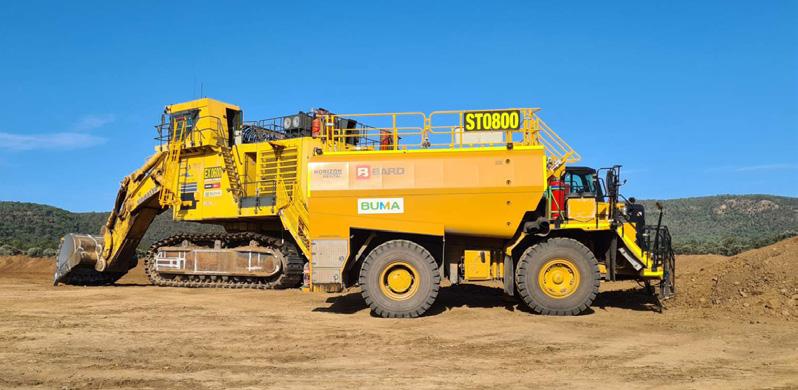

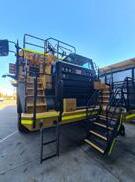

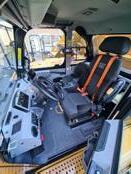

In terms of training and awareness, BUMA understands the crucial role of education in tackling modern slavery risks. The company provides training to its employees, educating them to identify, prevent, and report any potential exploitation.
“By publishing our Modern Slavery Statement, we aim to uphold transparency and accountability within our business. We are dedicated to continuously improving our practices and we welcome feedback and suggestions from all stakeholders,” he adds.
Beyond the Modern Slavery Statement, BUMA’s commitment to ethical practices is an integral
part of its broader corporate social responsibility strategy, underscoring its dedication to making a positive societal impact.
The ensured sustainability of the Australian resources sector relies on the efficient planning, management and operation of mining activities.
As specialist operators of mines, contract mining service providers have an important role to play in the future sustainable development of the Australian mining industry. As one of Australia’s leading contract mining service
providers, BUMA’s environmental strategy is progressive, adaptive, and responsive, with a strong focus on continually improving its management systems and performance.
“Our well-established systems and processes cover each phase of a mining operation, from start-up through to operations and eventually closure. Central to upholding our systems and processes is our ISO 14001 certified Environmental Management System (EMS),” Taylor informs us.
Alongside this, BUMA has developed a sustainable procurement framework which it strives to
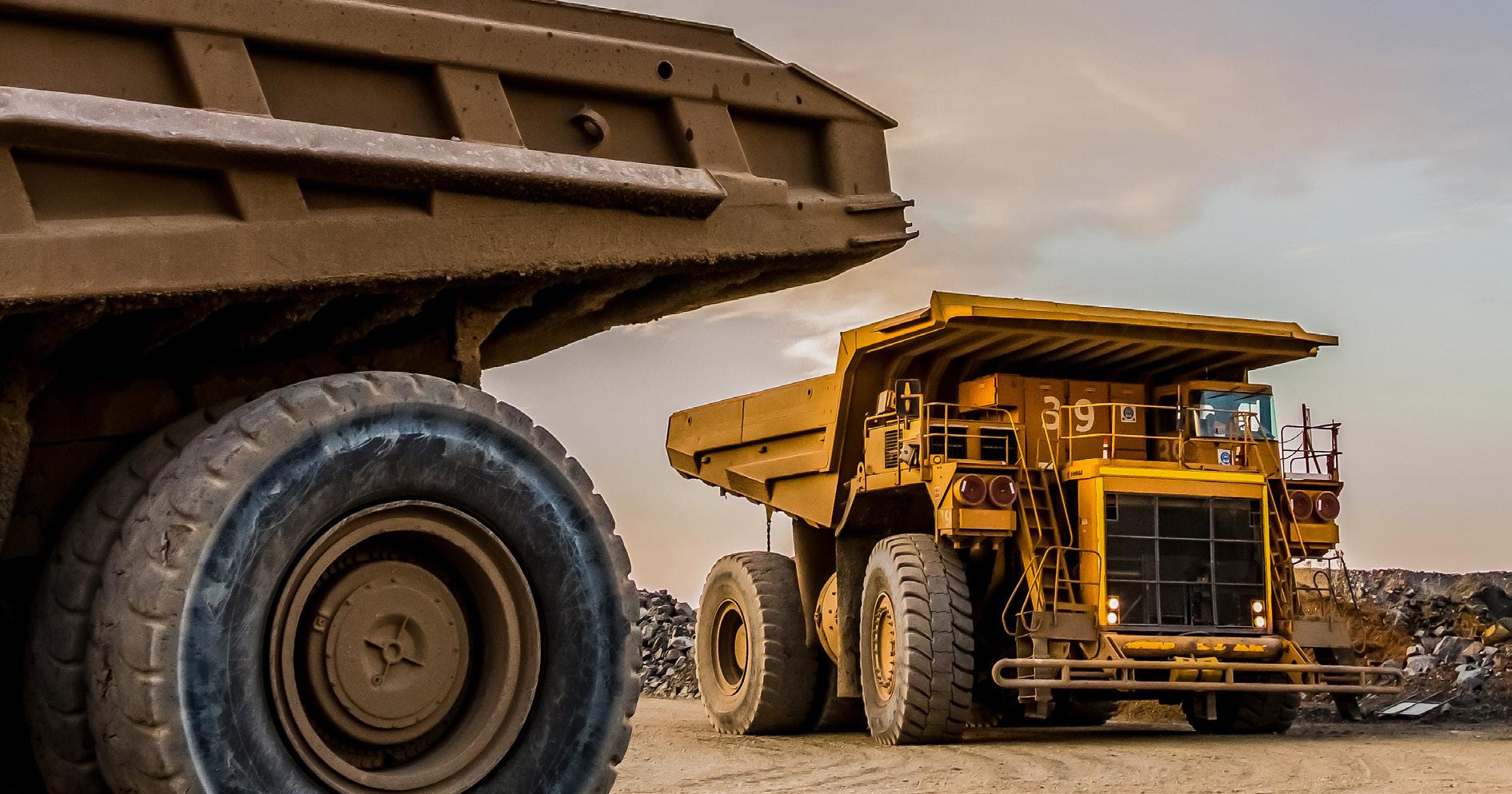
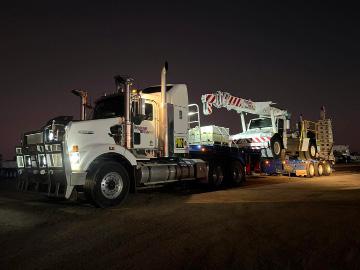


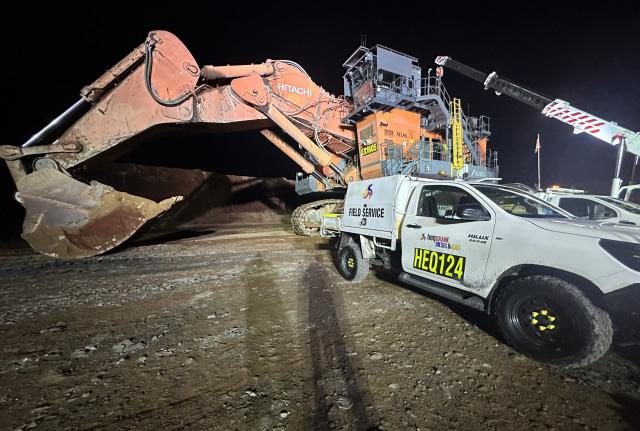

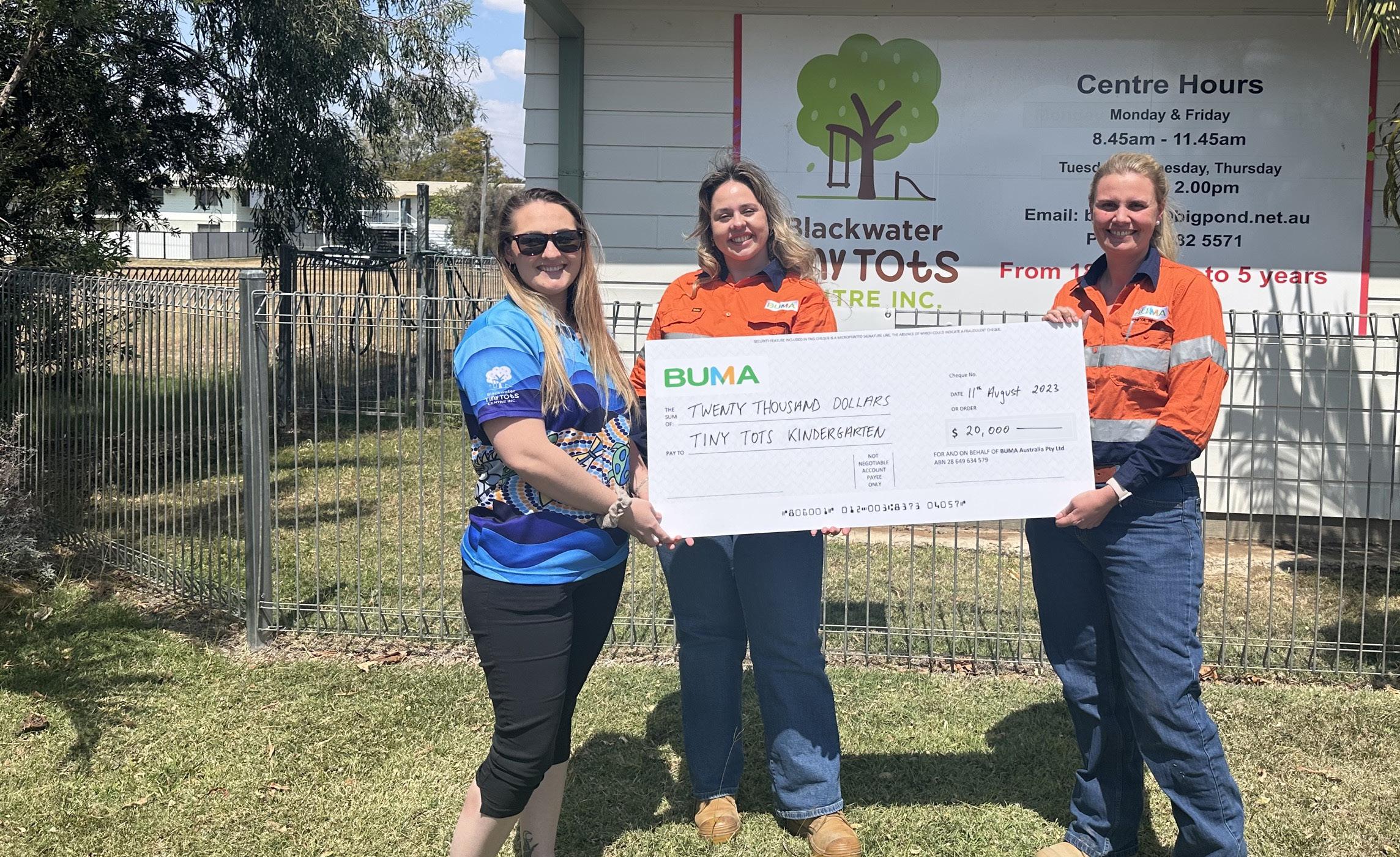
continuously improve upon via regular communication with its suppliers, allowing the company to ensure that it is supporting these businesses in meeting the sustainability objectives of mining organisations wherever possible.
“Suppliers are integral to our business, because without them, we can’t deliver for our clients or continue to grow our market share. We look to partner with quality suppliers who we know can deliver and, just as importantly, expand as we expand,” Taylor shares.
“We also rely upon their expertise in terms of supply and logistics, and technical matters in relation to their relevant areas of our business.”
All BUMA’s sites have detailed and specific environmental management plans in place to ensure that the company meets compliance requirements and hits its environmental targets and objectives.
“The environmental processes
“OUR FOCUS ON CULTURAL INCLUSIVENESS IS ACTIVE AND ONGOING AND WE ARE CONTINUALLY WORKING TO BUILD OUR ORGANISATIONAL CULTURE, WITH A FOCUS ON ENHANCING WORKFORCE DIVERSITY”
– RUSSELL TAYLOR, COO, BUMA AUSTRALIA
and systems focus on the areas in which we have the greatest potential to make a difference, such as reducing GHG and energy emissions, minimising water use and waste, and responsibly managing the land on which we conduct our activities,” she continues.
“We also work to minimise disruptions to the surrounding communities, neighbours, and other stakeholders.”
Similarly, BUMA has implemented continuous improvement measures to reduce fuel usage across its numerous
sites and support its sustainability goals. The company remains resolutely committed to setting and reporting targets for CO2 intensity.
With these plans in place, the mining industry in Australia has a rich history and an exciting future ahead of it, a future within which BUMA is firmly entrenched and thriving. BUMA
info@buma.com.au
www.buma.com.au



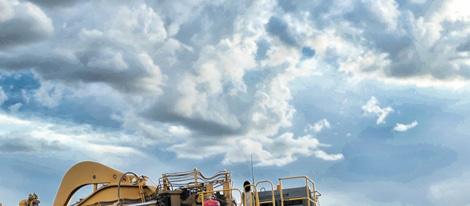

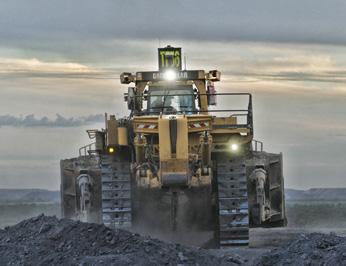
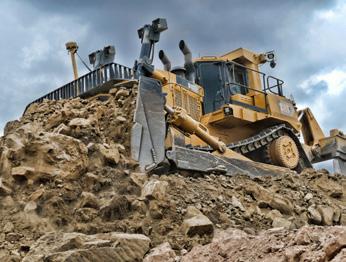


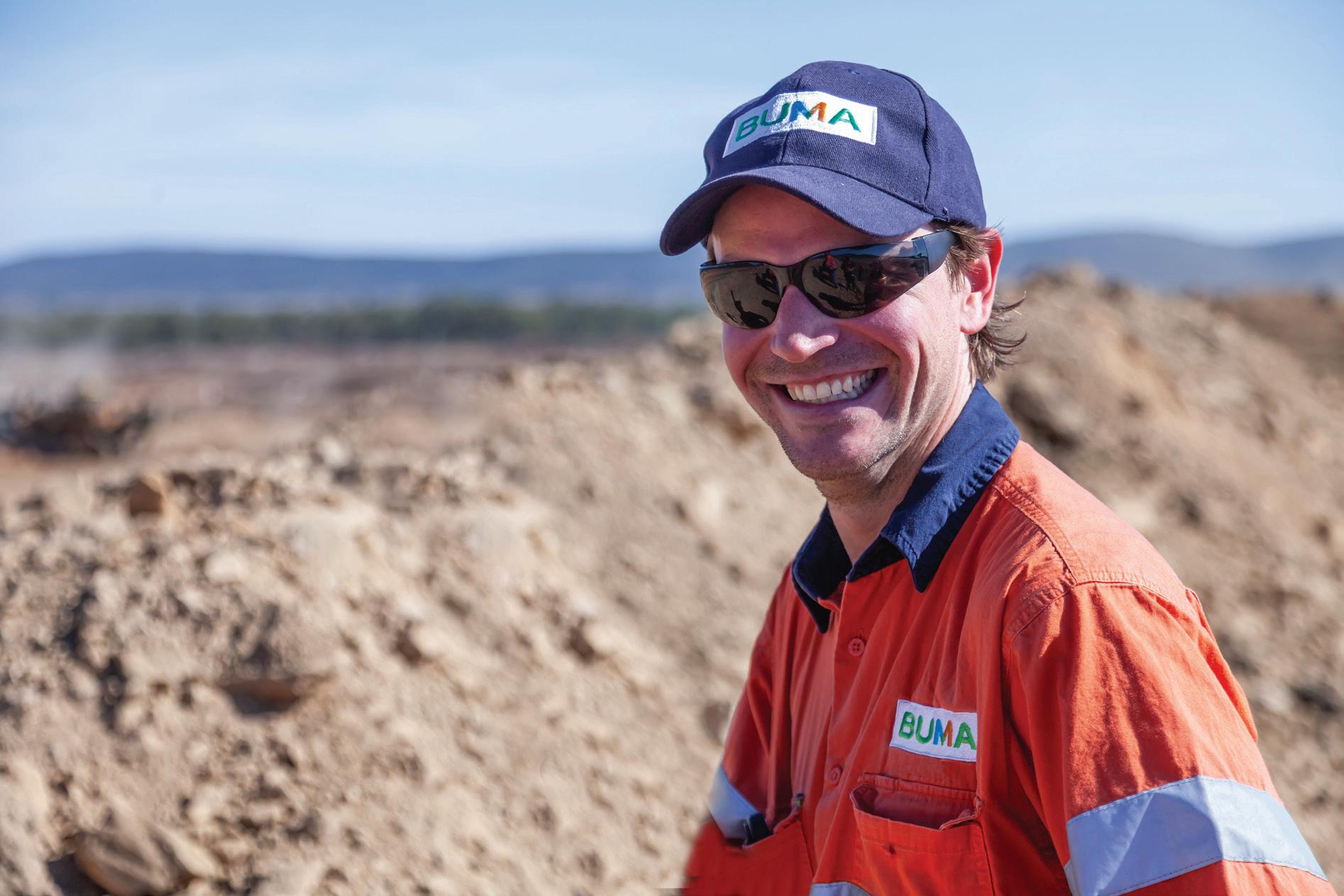

Based in the Bowen Basin, we speak to Moorvale Earthmoving’s Business Director, Joy Deguara, about the company’s positive impact on local communities and its reputation in the industry
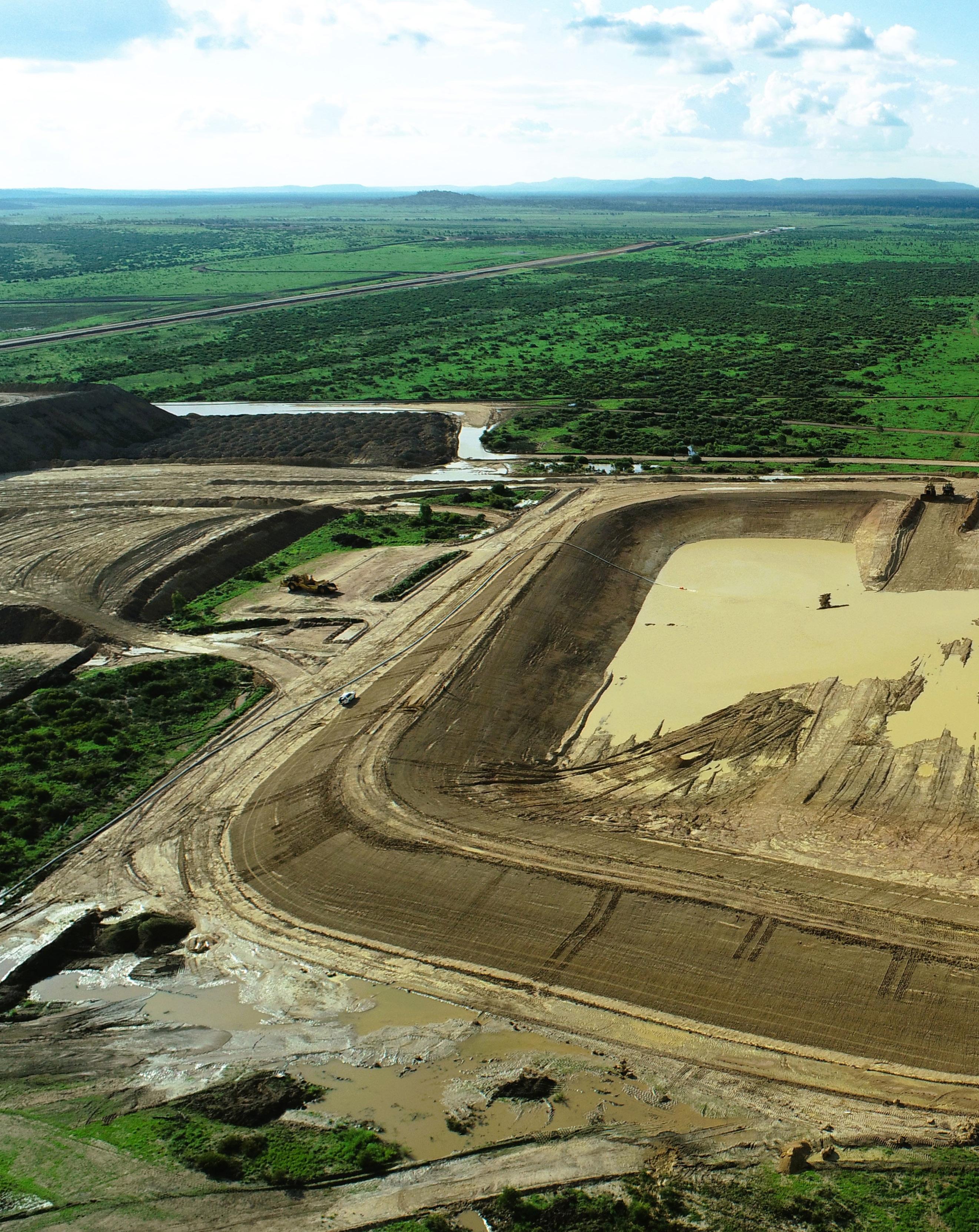

With more than 20 years of sustainable growth, Moorvale Earthmoving was founded in 2002 and is based in Central Queensland.
The company provides an extensive range of services to the mining industry throughout the Bowen Basin, which contains the largest coal
reserves in Australia and virtually all known mineable prime coking coal.
“Family-owned and operated, Moorvale Earthmoving is run by my son Aaron Deguara, the Managing Director responsible for our operations. I am the Business Director, focusing on strategy and direction,” opens Joy Deguara.
Although women working in mining are steadily becoming more commonplace, it is critical that they enter senior management positions to facilitate female economic empowerment in local communities. Whilst women make modest gains in leadership, a void in the industry remains.
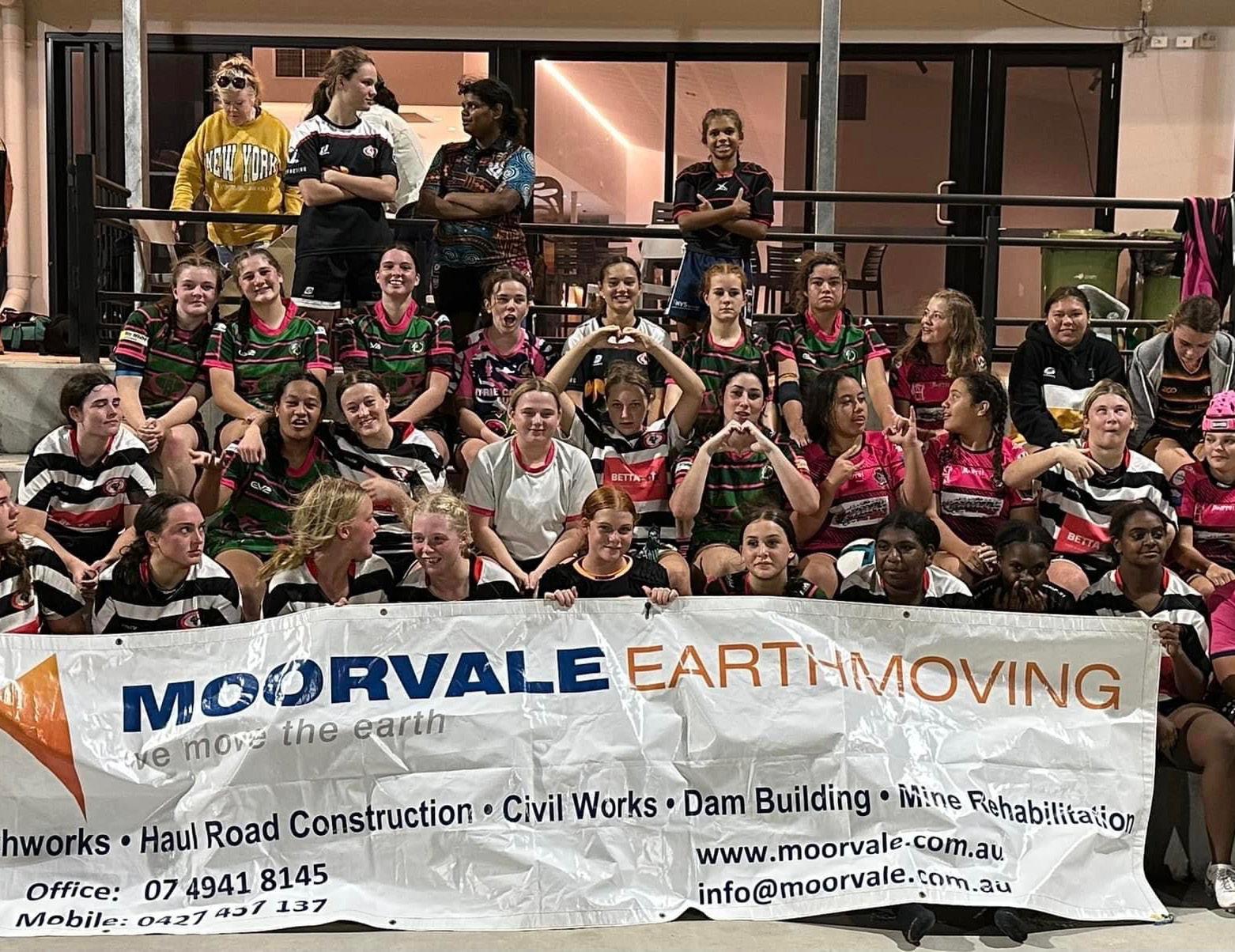
“Unfortunately, women are still grossly under-represented in the coal mining industry. It requires long working hours and often extended periods away from home, which contributes to the problem, along with a number of long-held beliefs that it is a difficult industry for women to hold positions in,” she continues.
Indeed, Australian coal mining has the lowest share of female employment at an average of 12 percent over 11 years. In contrast, metal ore mining, which employs the largest number of people, had one of the highest shares of female employment at 20 percent in 2020/21.
Mining is changing as an industry, particularly in the Bowen Basin, and Deguara has noticed a significant transformation in the area over the last 21 years.
“Massive growth is by far the most notable change, with many additional mines being developed since Moorvale Earthmoving began
operations. The types of projects conducted have also altered, as we now see smaller projects as well as very large ones being undertaken,” she tells us.
Essentially, Moorvale Earthmoving provides services in three areas: civil earthworks, mining, and rehabilitation. As the name suggests, the company specialises in earthmoving and excavation services to support the mining industry.
“We have always offered compelling earthworks solutions and more recently delivered mud and shovel projects,” states Deguara.
Regarding mine rehabilitation, Moorvale Earthmoving provides complete solutions and has previously worked on the Coppabella, Moorvale, and Burton mines for Peabody Energy. It also has ongoing infrastructure projects at these three
• Bulk earthworks
• Mining site rehabilitation
• Mine rehabilitation
• Surface mining
DESIGN AND DELIVERY SOLUTIONS FOR MINING INFRASTRUCTURES
• Scope, design, and construction of rehabilitation and remediation services for open-cut mine spoil dumps and voids
• Mine site development and maintenance
• Haul road and light vehicle service road construction and maintenance
• Dam and storage cell construction
• Bulk dozer push (in-pit and stockpile management)
• Creek diversions and levee bank construction
• Tailings dam rehabilitation
• Desilting of dams and structures
• Environmental maintenance services
• Rural and agricultural development
mines, as well as the Dawson, Lake Lindsay, Grosvenor, Moranbah North, and Carborough Downs mines.
As more mining operations are undertaken, continually improving its equipment is imperative for Moorvale Earthmoving, who owns over 150 machines, including 80 heavy items. The company relies on equipment such as dozers, excavators, scrapers, graders, water carts, loaders, and articulated dump trucks for largescale projects.
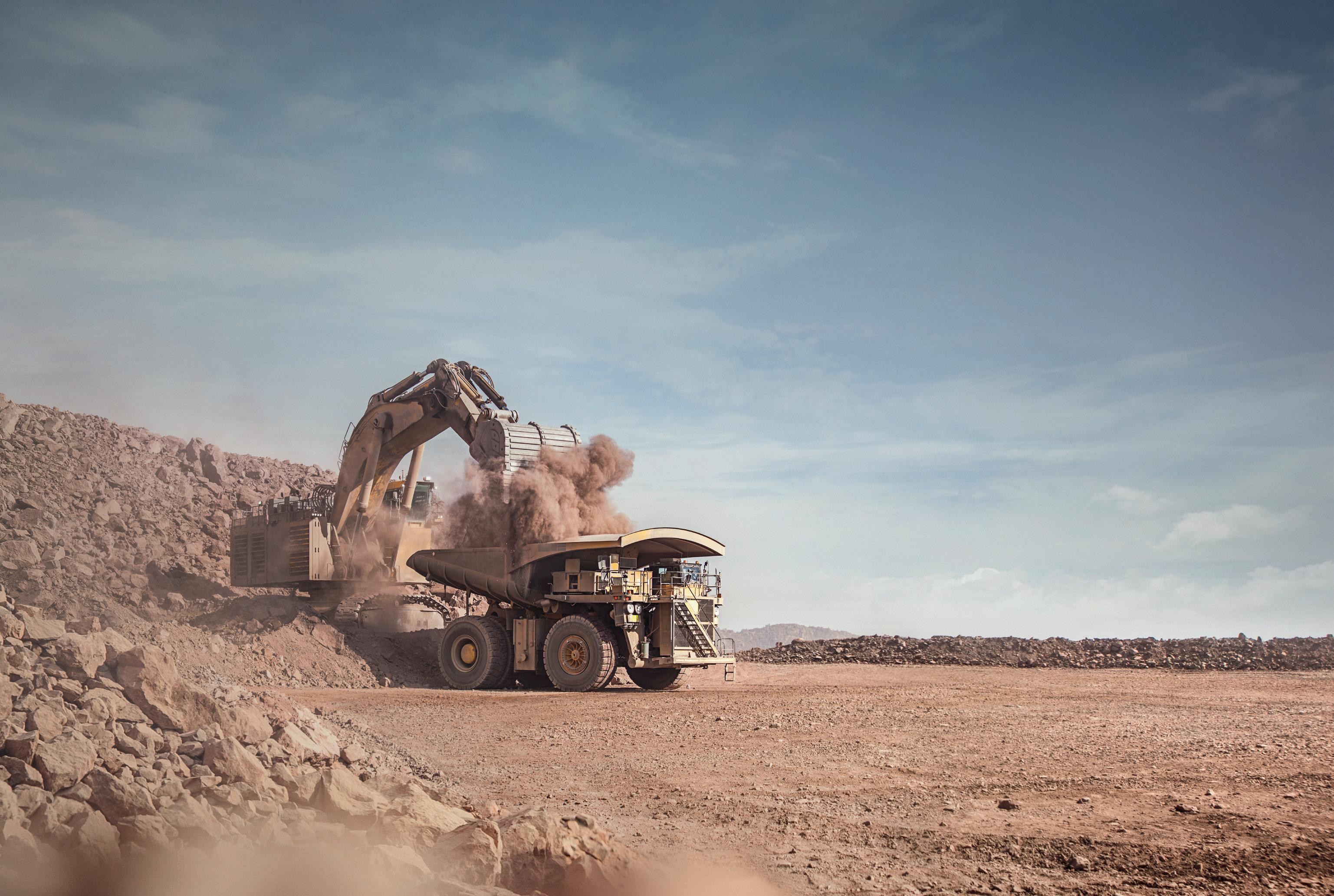


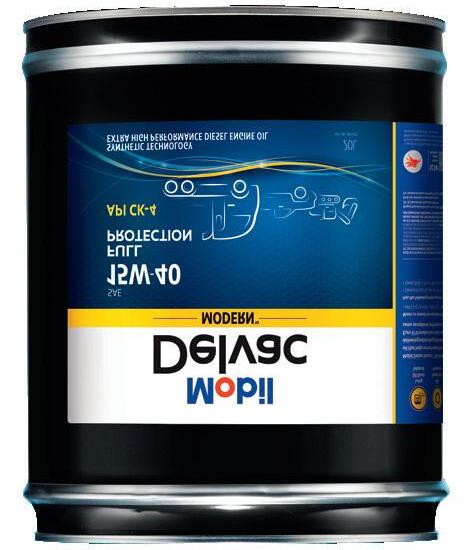

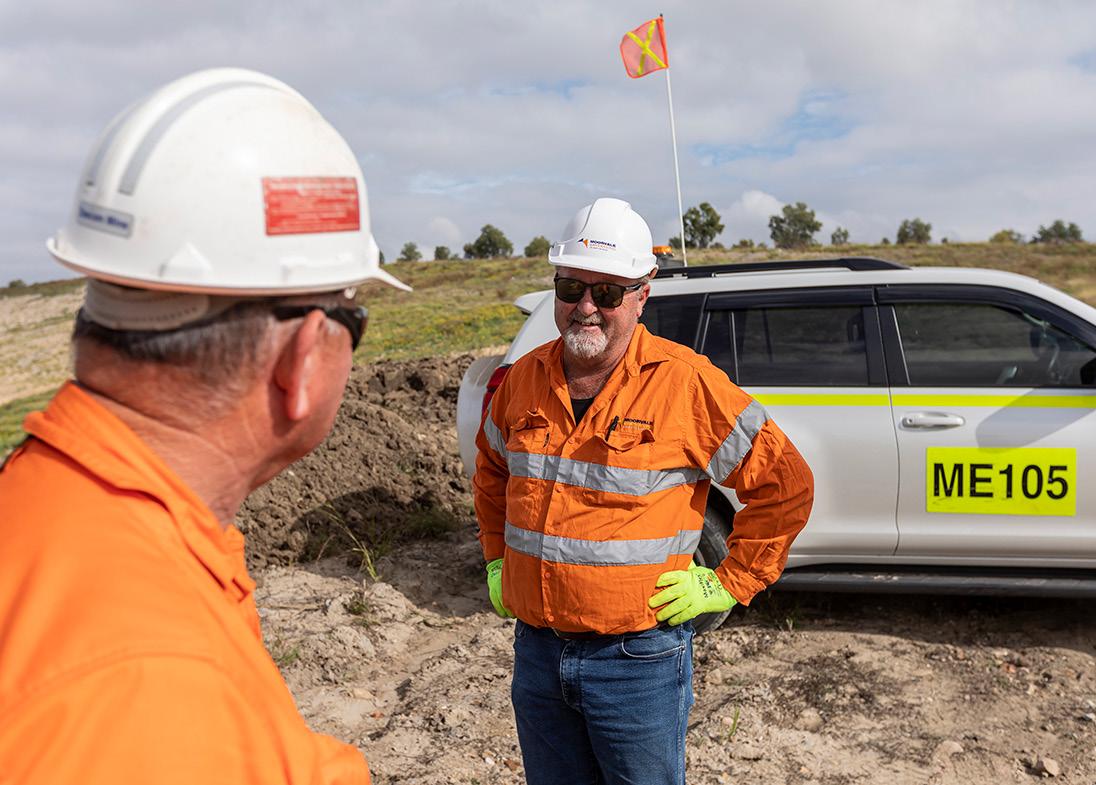
FAMILY: Empowering employees to feel like an integral part of the company.
SERVICE: Understanding, managing, and meeting the expectations of all stakeholders.
TEAMWORK: Working together collaboratively and efficiently towards the same goal.
SAFETY: Committed to delivering an exceptional, proactive, positive, no-compromise safety culture.
QUALITY: Dedicated to delivering products and services that the company can be proud of.
REPUTATION: Known as a familyfriendly organisation that honours commitments and obligations to all stakeholders.
“COAL MINING IS STILL STRONG, ESPECIALLY COKING COAL; THEREFORE, WHILE COAL PRICES ARE GOOD, WE WOULD EXPECT TO CONTINUE TO SEE GROWTH”
– JOY DEGUARA, BUSINESS DIRECTOR, MOORVALE EARTHMOVING
“Regarding investments, Moorvale Earthmoving made a business decision in recent years to continually upgrade the fleet to ensure that we can provide our clients with reliable machinery and services,” Deguara shares.
The fleet is further supported by Moorvale Earthmoving’s maintenance workshop in the heart of the Bowen Basin, with a field maintenance team to support delivery.
“We are currently on a continuous plan to expand and enhance our fleet to ensure that the majority of
our machinery and equipment is of a relatively young age.”
To enable the seamless delivery of materials to its customers, the company operates its own quarry located at Daunia Station, which opened in 2012. This high-grade granite quarry with 20 years of reserves is licenced to produce up to one million tonnes of product annually.
“We can supply a wide variety of products, including sand, road construction materials, and stemming,” mentions Deguara.


www.apacoutlookmag.com/work-with-us
As a rural company, Moorvale Earthmoving tries to contribute to the socioeconomic agendas of local communities and seeks to develop and maintain relationships, including a commitment to employing and training Indigenous people.
The company’s business directors, including Deguara, likewise maintain relationships with several Indigenous groups throughout Australia, enabling the delivery of projects through collaborative partnerships.
Indeed, Moorvale Earthmoving makes a concerted effort to employ as many local people as possible and contribute to the community in various ways.
“We attempt to employ local people where possible, with a considerable percentage of our workforce living within 200 kilometres (km) of our business base at Moorvale Station in Coppabella,” informs Deguara.


Moorvale Earthmoving also occasionally utilises a third-party agency when sourcing short-term labour hire workers.
“Considerable use of labour hire employees is undertaken, with around 45 percent of our 300 staff employed
through the procedure.”
The engagement of employees is shaped by the company’s HR processes, which are tailored to customer policies. Meanwhile, its business systems support and encourage workplace diversity in all forms.
“We have a five-person in-house HR unit based in our Mackay office. We also have schemes which offer incentives to current employees to encourage them to invite their family or friends to join our operation,” reveals Deguara.
“Employees are trained on an ongoing and as-needed basis for the particular machines they are required to operate. Administration and general office staff are additionally offered external training opportunities for their professional development,” she continues.
The Moorvale Earthmoving board has long considered it natural progress to seek and maintain business systems in line with third-party environmental certification. The company is committed to integrating environmental, social, and economic sustainability throughout the business.
“Following an audit 12 months after the initial decision was made, our environmental certification was issued. By being proactive in environmental care, we will improve our performance and minimise our impact,” Deguara details.
The company develops a comprehensive management plan for every project it undertakes, addressing the relevant aspects of quality, safety, and the environment.
“Moorvale Earthmoving has a very strong reputation for being one of the largest and most reputable earthmoving companies in mining in Central Queensland. This allows us to return many thousands of hectares of mined land, much of which was once agricultural quality.
“Being able to contribute to the redevelopment of our country in this way gives us a great deal of pride, and we look forward to continuing to build this business segment,” she outlines.
Furthermore, as much as reasonably practicable,
Moorvale Earthmoving sources local products and services, which help the environment by reducing emissions and energy use, and boosting the local economy.
Alongside commitments to sustainable mining plans, Moorvale Earthmoving prioritises work safety. Risk management procedures, for example, ensure the workforce identifies and manages all potential hazards using the company’s safety system.
“We continue to train our staff and develop our systems to remain one of the best-performing and safest earthmoving companies,” Deguara assures us.
Moorvale Earthmoving captures feedback from customers, employees, and business partners to improve its safety systems and action changes where they are needed.

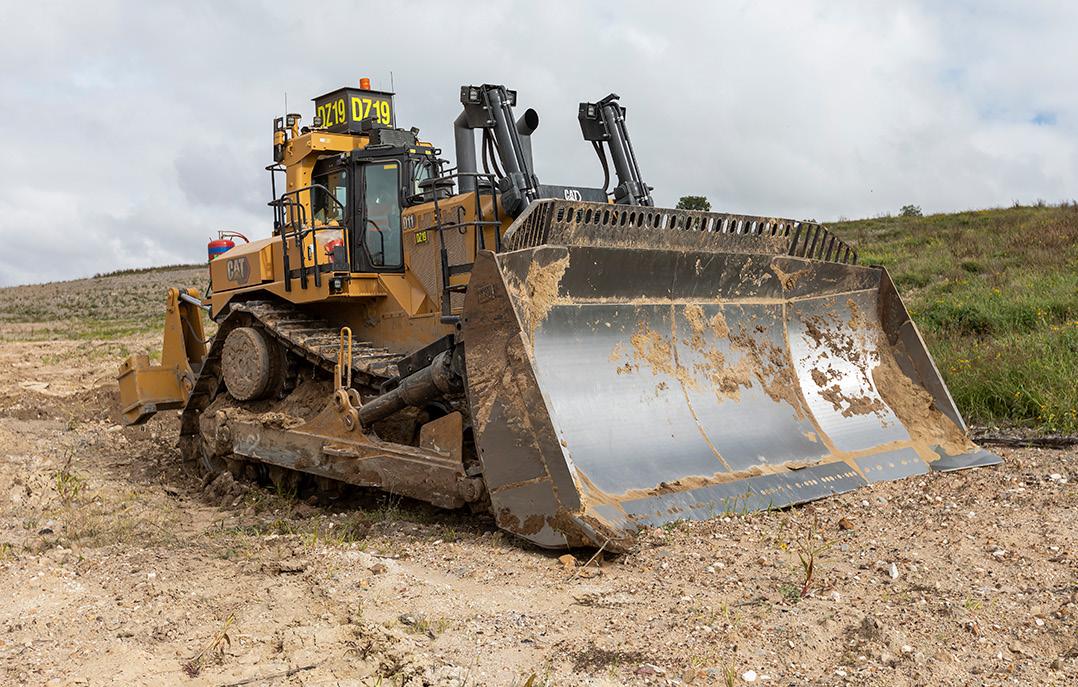
“REGARDING INVESTMENTS, MOORVALE EARTHMOVING HAS MADE A BUSINESS DECISION IN RECENT YEARS TO CONTINUALLY UPGRADE THE FLEET TO ENSURE THAT WE CAN PROVIDE OUR CLIENTS WITH RELIABLE MACHINERY AND SERVICES”
– JOY DEGUARA, BUSINESS DIRECTOR, MOORVALE EARTHMOVING
This is underlined by the company’s outstanding health and safety record, as it believes that injuries are preventable.
With much of the world demanding large quantities of coal, and Australia’s considerable reserves and export network, the industry’s future is secure in the near term. This is evidenced by Moorvale Earthmoving’s new three-year contract with Fitzroy Mining Operations, with a two-year option to extend.
The work is situated in the Carborough Downs mine in the heart
of the Bowen Basin, and the company has invested heavily in new equipment to service this contract. Furthermore, the project will employ over 40 personnel, including supervisors, loader operators, fitters, and all-round operators.
The Carborough Downs mine highlights how coal mining supports local economies, and how much the world relies upon the commodity.
“Coal mining is still strong, especially coking coal; therefore, while coal prices are good, we would expect to continue to see growth,” observes Deguara.
However, she also recognises that the industry is not without
its challenges as it is facing environmental pressures.
“There is so much work being done to make coal cleaner and greener; we have the opportunity to work with our clients to help them innovate across operational areas,” she acknowledges.
As community and family-minded leaders in the mining industry, the company states it will “move the earth” to achieve continuous growth and improvement while building strong work relationships.
“One of Moorvale Earthmoving’s key objectives for the coming year is to continue to build a strong operations team with a focus on highly skilled people, who can deliver the best outcomes for both our clients and business,” finishes Deguara.

MOORVALE EARTHMOVING
Tel: (07) 4952 2550
reception@moorvale.com.au
moorvaleearthmoving.com.au
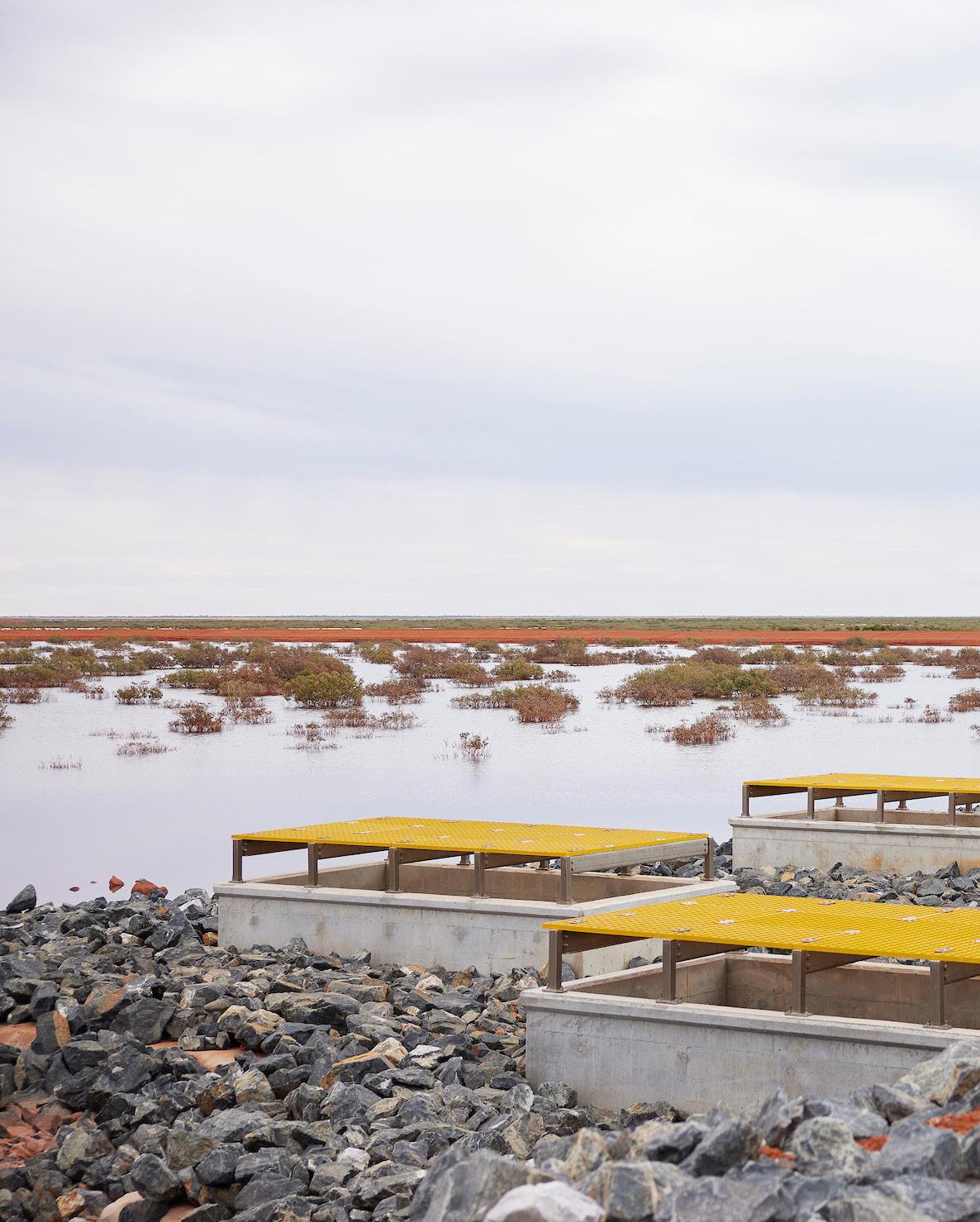
From chemicals to the oil industry, the diversity of salt is unmatched. We speak to David Boshoff, Managing Director of BCI Minerals, about the company’s plans for a sustainable and successful mining future
Writer: Lauren Kania | Project Manager: Eddie ClintonWhen one thinks of the practical uses of salt, sodium chloride (table salt) is undeniably the first thing that comes to mind.
However, the application of salt extends far beyond the dining room table.
Nearly 60 percent of the international production of salt is intended for industrial application in today’s market.
With industrial salt being one of the most impactful and commonly used components in a range of business fields, it is in high demand across the globe.
One such company diligently working to meet the growing and diverse demand is BCI Minerals, an

Australian-based mineral resources company.
David Boshoff, Managing Director of BCI Minerals, joined the company in 2022, bringing more than 20 years of leadership experience within the mining industry.
“I’ve always been drawn to mining. Unless something has been found, it has probably been mined; it’s such a core part of everyday life for all of us,” he opens.
“There are so many new and exciting developments, particularly with many small and mediumsized companies flourishing in the demand for critical minerals and finding success internationally,” he continues.
With the industry rapidly expanding and reaching new markets, BCI Minerals is making waves as a niche producer in Australia.
Uniquely positioned in an environment that is optimal for highquality salt and potash production, the company is able to distinguish itself from the competition.
“You need to have a good climate, high evaporation, low rainfall, high wind, and low humidity for good salt production. There’s not a lot of regions in the world that have large amounts of land available that’s flat and with the specific conditions needed, so the region in which we’re developing is ideal,” Boshoff explains.
“WHAT MANY DON’T REALISE IS THAT SALT IS A PRODUCT THAT’S INVOLVED IN ALMOST EVERYTHING YOU TOUCH AND FEEL TODAY. FROM ALUMINIUM TO SOLAR PANELS, SALT IS ESSENTIAL FOR HUMAN EXISTENCE”
– DAVID BOSHOFF, MANAGING DIRECTOR, BCI MINERALS

In addition to these unparalleled environmental conditions, BCI Minerals continues to pave the way for the future of mining by building strong relationships with its customers, offering exceptional products, and maintaining only the highest standards across the entirety of the business.
Currently, the company is developing its 100 percent-owned Mardie Salt and Potash project, a potential Tier 1 solar evaporation operation located on the Pilbara coast of Western Australia. The project will rank third in scale globally and be the country’s largest solar salt project.
The operation itself will include nine large evaporation ponds, a salt crystallisers and salt wash plant, a KTMS crystalliser and sulphate of potash (SOP) plant, port facilities, and supporting infrastructure.
As the first major salt project
developed in Australia in the past two decades, and the only Australian operation to produce commercially saleable salt and SOP, it will not only provide circular economic benefits but also have strong environmental credentials. 99 percent of the energy required to produce the salt is in the evaporation process, which will be derived from natural sun and wind energy.
Having already completed a significant portion of the project, BCI Minerals is well underway to successfully construct such a monumental and influential endeavour.
“One of the key takeaways is that we’ve been able to deliver items at or under our base estimate, which is crucial, and with cost escalation being the hallmark of the industry recently, our team is very proud of our accomplishments thus far,” expands Boshoff.
Ultimately, this represents a rare, sustainable opportunity to develop
a large-scale, multi-generational solar evaporation project that can potentially become one of the largest global operations in today’s industry.
In addition to the multi-generational benefits that projects such as Mardie Salt and Potash are set to deliver to the people living in and around the Pilbara region, BCI Minerals recognises the importance of sustainability-focused initiatives.
The company believes that a systematic approach to environmental management is a key driver for maintaining a sustainable impact on the planet, ongoing compliance, and continued improvement.
“We currently have more than 99 percent of the energy that is required to produce one tonne of salt coming from solar and wind power, which is definitely a differentiating factor for us compared to our competitors in the market,” comments Boshoff.
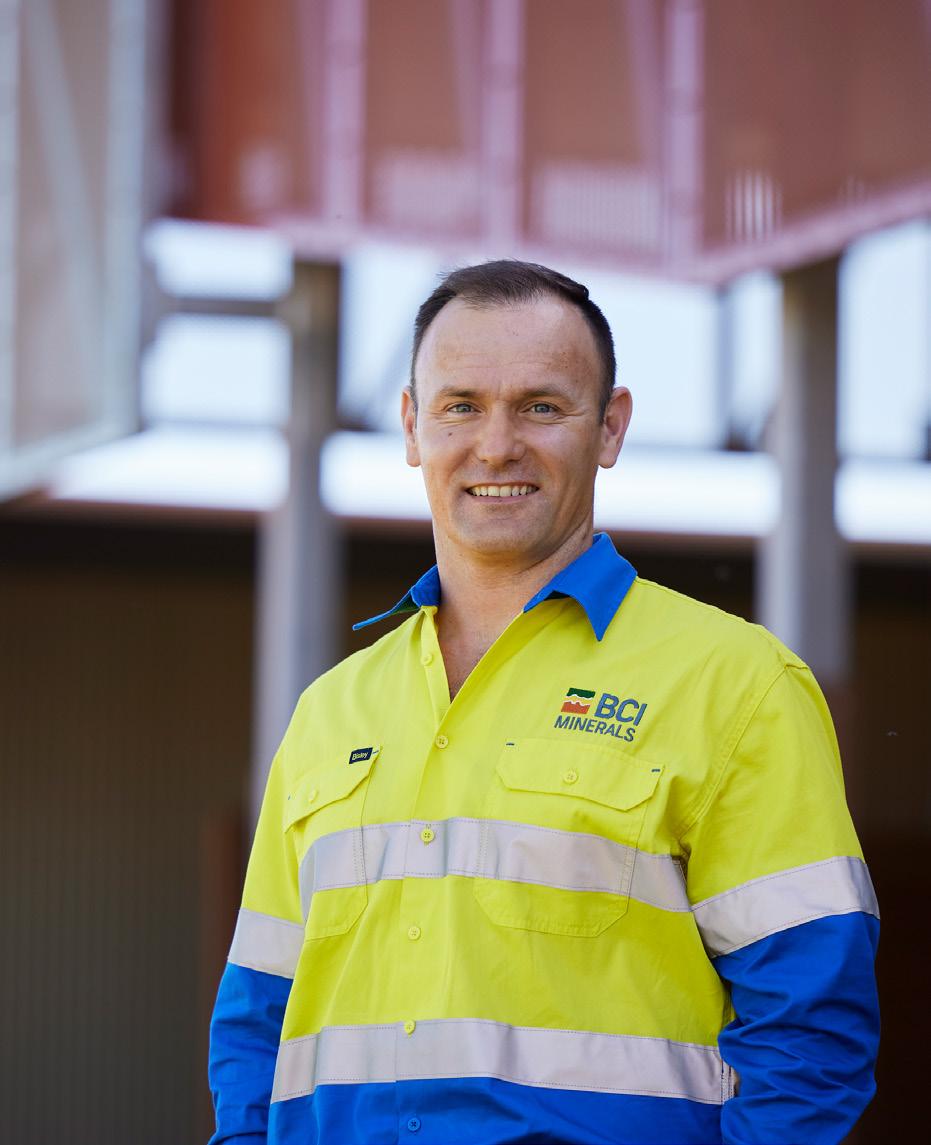
Industrial salt is used for a wide variety of products across various industries. In fact, it can be used in approximately 14,000 different applications and even in ways you would least expect.
Often, industrial salt is used as a raw material for the production of different chemicals, such as caustic soda, chlorine, and soda ash.
Additionally, salt sets the dye in fabric and is used to produce glass, polyester, plastics, and leather.
It is even used in the production of solar panels, aluminium, detergent, and water treatment.
With approximately 335 million tonnes per annum (Mtpa) consumed globally, salt has one of the largest and most mature markets in the world.
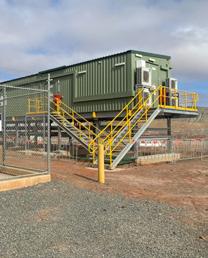
Qetra is a Western Australian multi-disciplinary contractor, providing services to the resources, energy, and oil and gas industries. We provide a range of solutions from fabrication through to management, construction, inspection and commissioning.
Qetra has a proven track record of delivering projects from start to finish, with our experienced team of experts.
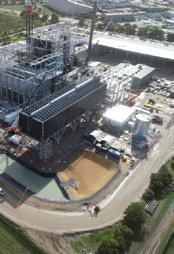
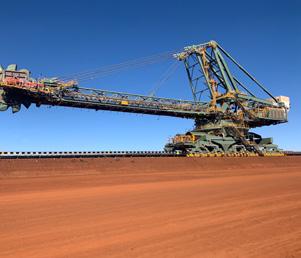


BCI Minerals acknowledges and pays respect to the traditional owners of the land upon which it operates, holding deep respect for the ongoing physical and spiritual connection that the Indigenous people have to the land that spans across Australia.
BCI Minerals is committed to developing strong cultural awareness and considers it of the utmost importance to ensure a collaborative process with its Indigenous partners, to confirm that project designs are sensitive to their heritage and values.
To achieve these goals, BCI Minerals has entered into comprehensive agreements with native title parties that provide meaningful engagement, continued access to country, compensation, and mutual benefits.
Along with the significance of the various environmental impacts that the mining industry can have, BCI Minerals also values its relationship with existing Traditional Owners, who have been involved in multiple parts of the company’s projects.
Specifically, within the Mardie Salt and Potash project, BCI Minerals has developed a strong relationship with the Yaburara and Mardudhunera peoples, putting in place native title and Indigenous land use agreements
to ensure positive collaboration and the utmost respect.
BCI Minerals aims to foster a positive and inclusive environment that supports the personal and professional growth of Traditional Owners, while strengthening the bonds between the Indigenous community and the organisation.
BCI Minerals has long-term agreements and partnerships in place with both the Wirrawandi and Robe River Kuruma Aboriginal

Corporations, and has initiated work readiness programmes to equip participants with the skills and knowledge needed for potential employment opportunities.
“These partnerships form part of the overall picture of who we are – a future-focused organisation that is part of a group of critical minerals required for a sustainable future for all of humankind,” notes Boshoff.
BCI Minerals is continuing to set the precedent for the next generation of mining with a few unique advantages regarding the cost market.
“We will be the only salt manufacturer in the country that can directly load capesize or extra-large vessels,” explains Boshoff.
“We ultimately have a shipping advantage where we can load salt for a lower cost in the regions that we supply.”
With prime land, a niche focus, and a competitive cost given its shipping advantage, BCI Minerals is set to deliver success for many decades to come.
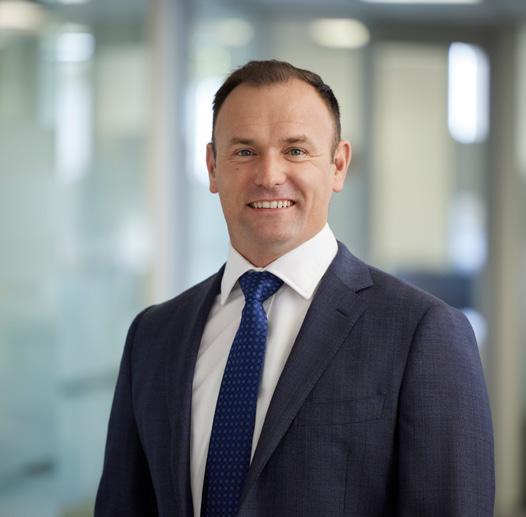
“OUR LEADERSHIP AND MANAGEMENT FOCUS IS ENTIRELY ON DELIVERING MIGHTY PROJECTS SUCCESSFULLY, ON TIME, AND ON BUDGET”
– DAVID BOSHOFF, MANAGING DIRECTOR, BCI MINERALS
However, no success is found without teamwork. Not only has BCI Minerals worked hard to create a collaborative and motivated workforce to ensure that day-today objectives are handled with confidence, but the company also has valuable relationships with its various partners and suppliers.
BCI Minerals has focused on developing long-term strategic partnerships with significant customers, progressing offtake discussions with several counterparties throughout the Asian market.
In mid-2023, BCI Minerals announced offtake agreements with both Itochu Corporation and Indonesia’s MIND ID for the sale of Mardie Salt and Potash’s high-quality salt.
“No project is done by a company on its own. Our trading partners in Asia have come alongside us to look after the Japanese, Korean, Taiwanese, and Indonesian markets, which are key regions,” comments Boshoff.
With Asia being a primary client base that produces soda ash for
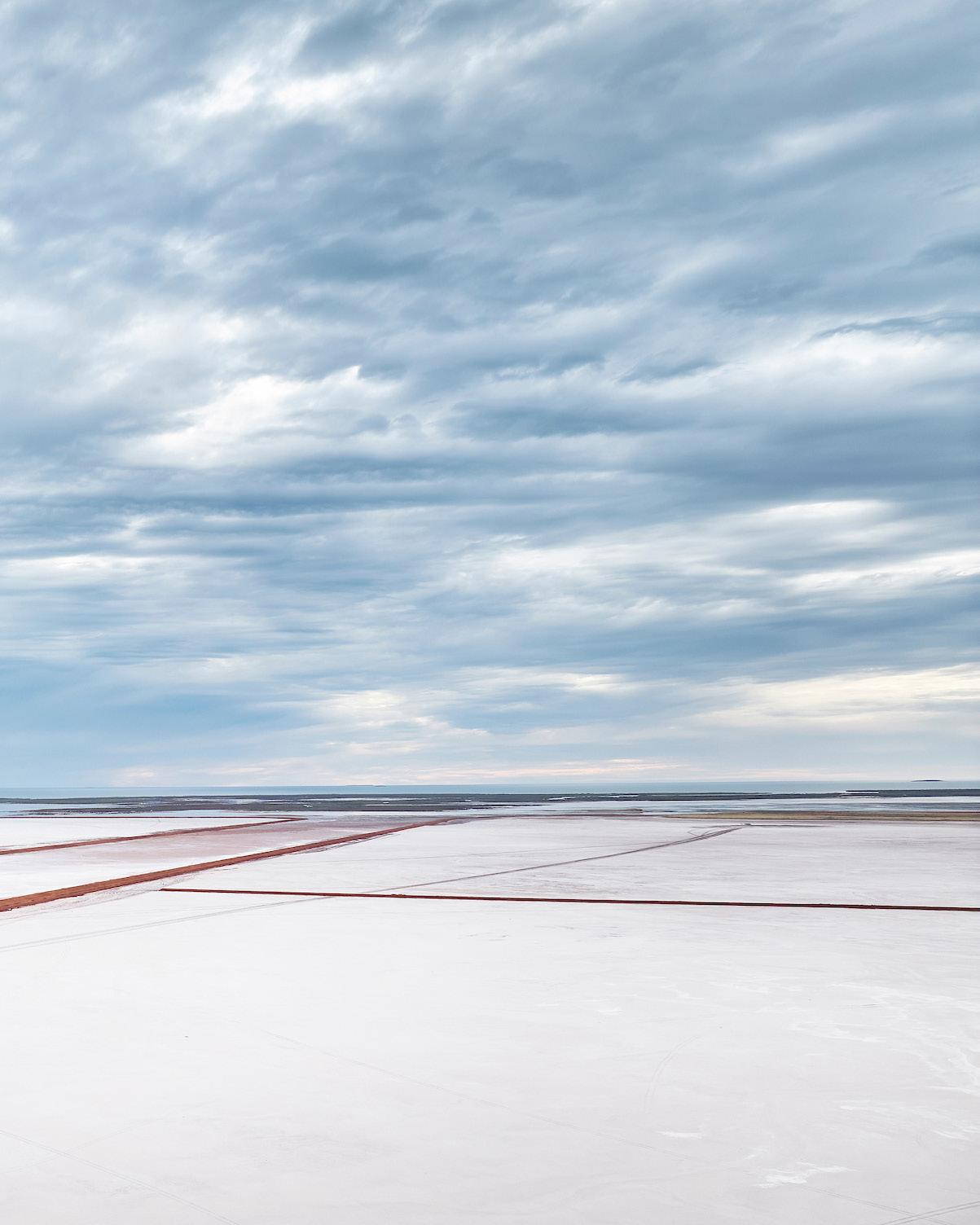
myriad consumer products used globally, these relationships are central to the ongoing advancement of BCI Minerals’ production endeavours.
With the future of sustainable and responsible mining looking bright for forward-thinking organisations such as BCI Minerals, the industry holds an ample amount of potential to be mined by those ambitious enough.
“It is an exciting time to be in the industry. I feel like this is just the beginning; there’s so many more exciting times ahead, and it’s up to us to make the best of each day,” concludes Boshoff.
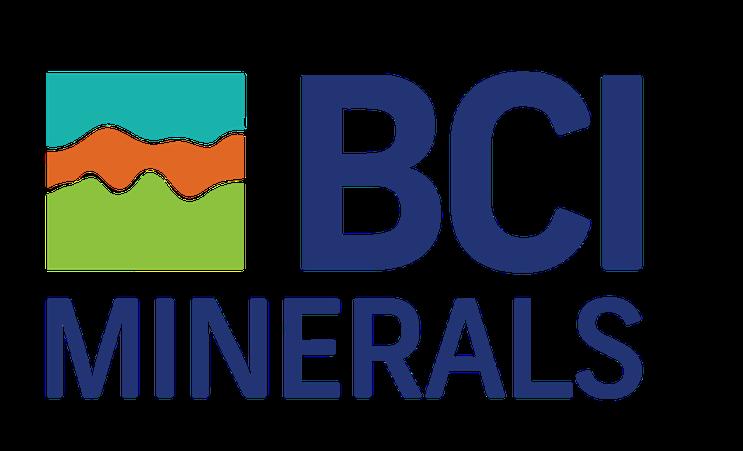
BCI MINERALS
Tel: +61 8 6311 3400
info@bciminerals.com.au www.bciminerals.com.au
As a company that implements high standards of sustainable development, JSC AK Altynalmas is interested in introducing advanced technology to the gold mining industry
 Writer: Jack Salter | Project Manager: Eddie Clinton
Writer: Jack Salter | Project Manager: Eddie Clinton

In the mining and processing of gold, Kazakhstan has rightfully taken a leading position worldwide, with around 70 to 80 tonnes of refined product produced annually by the landlocked Central Asian country.
A total of nine gold mines across Kazakhstan are owned and operated by JSC AK Altynalmas, whose vision is to become a leading company in Central Asia’s gold mining sector.
In line with this vision, Kazakstan is a priority interest of JSC AK Altynalmas, with assets spanning four regions in the country – Zhambyl, Karaganda, Abay, and Akmola.
Minerals are processed at the company’s Akbakai, Aksu, and Dolinnoe gold recovery plants, as well as the Pustynnoe processing plant and Altynalmas Technology precious metals recovery facility.
The Aksu gold extraction plant was put into commercial operation in 2021, with a capacity of five million tonnes.
Last year, gold ore processing volumes were also increased at Akbakai with the launch of the second phase of the project, from 850,000 tonnes to 1.2 million. Phase two of the Zholymbet project in the Akloma region, meanwhile, has increased gold ore processing volumes to 650,000 tonnes, as well as the tailings processing volumes from 2.25 million tonnes to four million.
JSC AK Altynalmas was established in 1993 and is therefore celebrating its 30th anniversary this year.
In that time, the company has grown to over 9,000 highly-qualified employees and deployed more than 120 units of mining equipment in the production process.
With a comprehensive geological, mining, and processing cycle, JSC AK Altynalmas is always looking to expand.
This was recently demonstrated by the company at an international forum held in November 2023 in Astana, the capital of Kazakhstan, which was
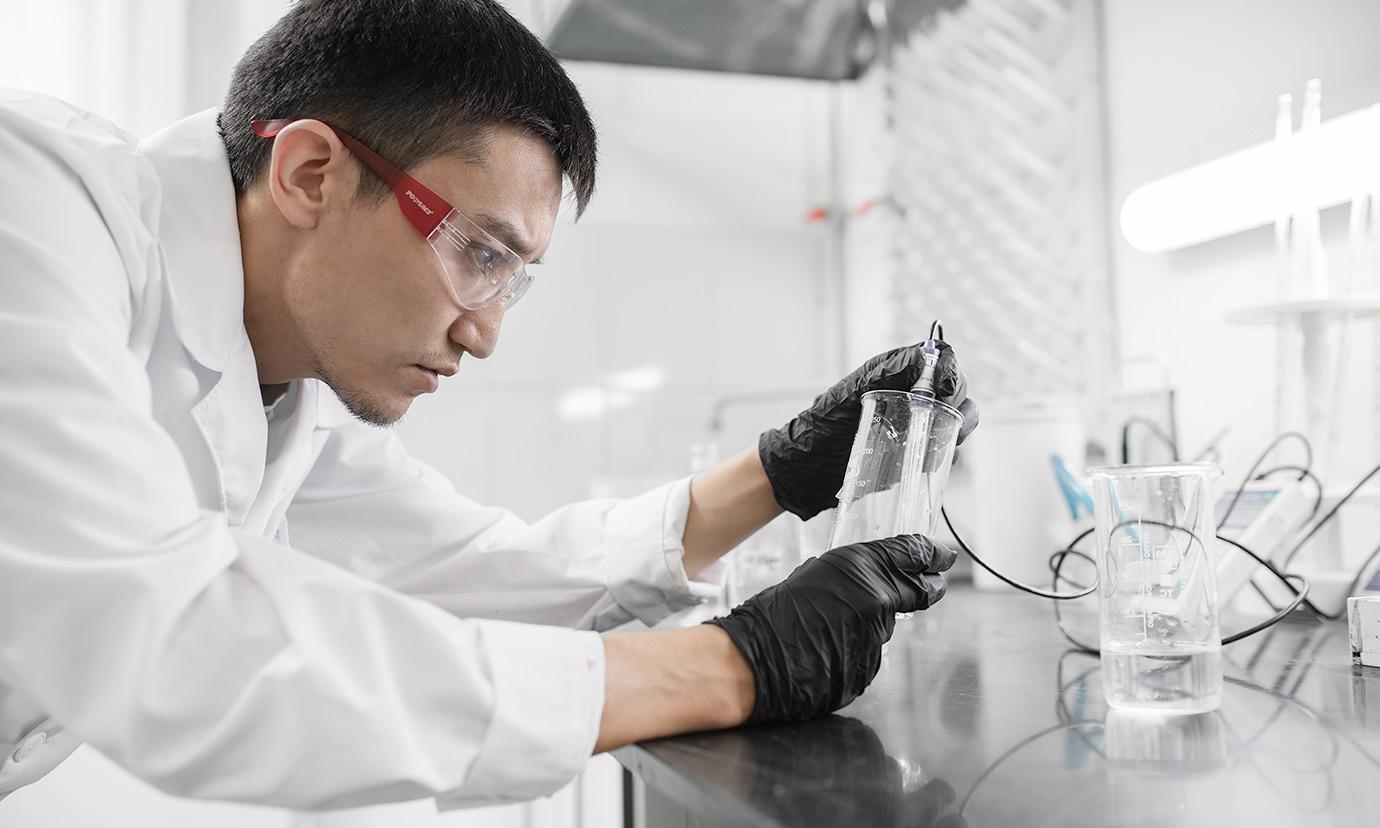
designed to strengthen the focus on the development of in-country value and new initiatives to support Kazakhstan’s commodity producers.
At the forum, JSC AK Altynalmas outlined a sodium cyanide plant construction project with a capacity of 25,000 tonnes per year in the Zhambyl region.
The high-tech sodium cyanide plant will strategically secure Kazakhstan’s gold mining industry, fully satisfy domestic market requirements, and allow imports from Russia and China to be replaced.
With demand for sodium cyanide in neighbouring countries such as Uzbekistan, Kyrgyzstan, Tajikistan, and Mongolia predicted to grow over the next 10 years, the project also has high export-oriented potential.
The sodium cyanide product produced by the plant will be of the highest quality with at least 98 percent purity, for use in the hydrometallurgy of gold.
Sodium cyanide is a key and indispensable chemical for the gold mining industry today. Indeed, a sodium cyanide solution is commonly used to selectively leach gold from ore in a process called cyanidation, which since the 1970s has been the dominant gold extraction technology.
Although there have been several years of considerable scientific research, no other chemical reagent has come close to exhibiting the superior economic and environmental qualities of cyanide in the recovery of precious metals.
The industry is therefore highly dependent on sodium cyanide in order to extract gold from ore.
JSC AK Altynalmas supports the development of in-country value with the implementation of large-scale projects such as the sodium cyanide plant. This will help to create an entire ecosystem that equally meets the needs of government policy and big
• Mining and processing of gold ores
• Geological exploration
• Design, construction, and erection works
• Financing of R&D, design, and exploration projects
• Construction and reconstruction of production facilities designed for the exploration, mining, and processing of precious metals
business, the interests of small and medium-sized enterprises (SMEs), and ensures the sustainable economic development of the country.
More than 100 permanent jobs will be created by the implementation of the sodium cyanide plant.

Borusan Cat Kazakhstan (Borusan) is the primary seller of Caterpillar® (Cat®) equipment in Kazakhstan and has been in partnership with its customer, AK Altynalmas JSC gold mining company (AK Altynalmas) for over 7 years.
The Cat® fleet contains a variety of machines, from skid steer loaders to large dump trucks and high-capacity wheel loaders, operating across two sites.
During its collaboration, Borusan Cat Kazakhstan has provided AK Altynalmas with the following unique solutions:
• Certified the rebuild of the Cat D8R Dozer®, which helped extend the lifecycle of machines and save customers’ budgets.
• Performed regular component repairs to ensure that customers’ production schedules were continuously met.
• Implemented specially developed site assessment systems by Cat® for the analysis of mining operation processes, as well as the maintenance and repair of equipment. The purpose of this initiative was to improve the operation and maintenance processes of the Cat® equipment to increase productivity across two customer sites, with all necessary reports and recommendations completed.
• Launched a training project for female operators that included practical studies in using a Cat® 777E dump truck, conducted by seven female operators who demonstrated various safety skills when operating the machinery. This initiative fully met the requirements of ‘Equal Borusan’, Borusan’s diversity initiative.
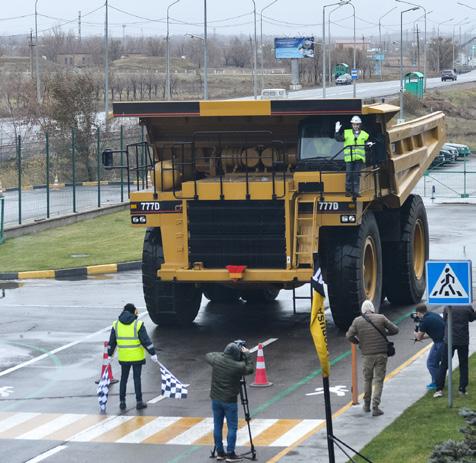


With the purpose statement of “We Create Solutions for a Better World,” the company’s goal is to contribute to the success of customers’ business and to be a leader in each accommodated sector. Additionally, Borusan applies the latest technologies and digital tools to each operation and presents itself as a blow vendor of choice for its partners in the following ready-made solutions:
• The Boom 360 application uniquely combines tools and solutions by using the app, which allows customers to track their fleet and service history, receive various notifications, including service technicians’ visits, and conduct sound diagnostics of the equipment independently.
• The company’s Exchange Programme comprises high quality components rebuilt from genuine Cat® spare parts. These parts have the same warranty as new components at the most affordable prices and stock availability.
• The Comprehensive Cat® CVA solution simplifys Cat machine ownership and improves their mechanical availability parameters.
• Proactive Solutions Management is a project to proactively detect potential equipment failures and provide customers with early solutions to emerging issues.
• Bodies and buckets manufacturing. For nine years, hundreds of buckets have been manufactured and rebuilt. Besides, the status of the“Hardox in my Body” programme participant from the Swedish company SSAB gives a guarantee of excellent quality of released products.
• The manufacture of Ground Force products.The company’s experts complete training at the Ground Force plant, where they study the assembly process of equipment. More than 20 GF machines have been manufactured on the basis of Cat dump trucks.
• As a customer-oriented company, Borusan Cat Kazakhstan continuously improves its processes and develops unique solutions for its customers. The company’s partnership with AK Altynalmas JSC is a true acknowledgement of its chosen strategy and an example of long-term and mutually beneficial cooperation.

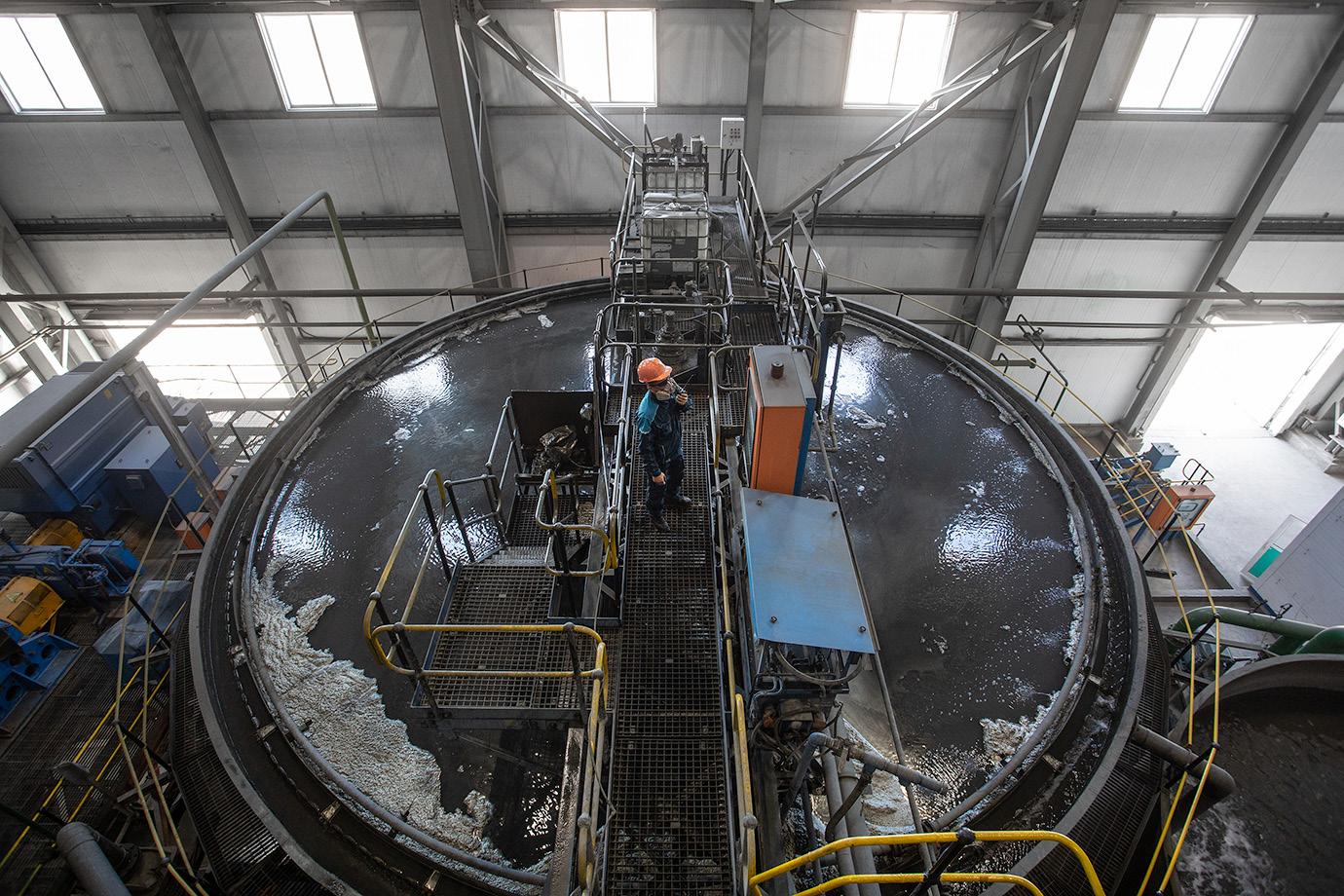
SAFETY – Aiming to achieve zero injuries in the workplace
SOCIAL RESPONSIBILITY –
Providing social support in all regions where the company operates
SUSTAINABLE DEVELOPMENT
– Pursuing best practices in corporate governance
FOCUS ON INNOVATION –
Implementing innovative product automation projects
EQUAL OPPORTUNITIES FOR EVERYBODY – Employing a diverse workforce
The project will also provide a strong impetus for the development of the entire chemical industry, as it will ensure the advancement of allied and related industries by creating additional demand.
The plan is to commission the plant by the end of 2025, with modern technologies applied in the spheres of production efficiency and environmental protection.
The new plant will use the best available technologies and modern health, safety, and environment (HSE) standards. For example, it envisages a zero-emission closed water circuit, as well as an environmentallyfriendly system for the emergency incineration of recycled gases.
Sustainable development is incidentally one of JSC AK Altynalmas’ main values, in which it
builds the business based on best sustainable development practices using industry-leading technologies.
In July 2023, JSC AK Altynalmas became the first company in Kazakhstan’s mining and metallurgical sector to implement green rules at its facilities, establishing key requirements for compliance to ensure environmental safety.
The main goal of introducing these principles, which represent an important tool for increasing environmental culture, responsibility, and self-awareness among the company’s employees and partners, is to eliminate or minimise the impact of production factors on the environment.
JSC AK Altynalmas is committed to environmental sustainability and responsible business practices in its daily activities and will continue to implement best practices
When it comes to protecting your mills from intense wear and tear, our Mill Liners are always at your service.
As an OEM supplier, we offer the full range of Mill Liner options, including composite, steel and rubber solutions for the full scope of mill brands.
No matter the option, one is for certain: You get highly durable Mill Liners that boost your operation’s productivity as they enable your machinery to stay running longer. This means less downtime and higher profitability.
How you benefit from our Mill Liners:
■ Increased profits with higher throughputs
■ Decreased downtime with proven durability
■ Highest safety standards
■ Quick installation

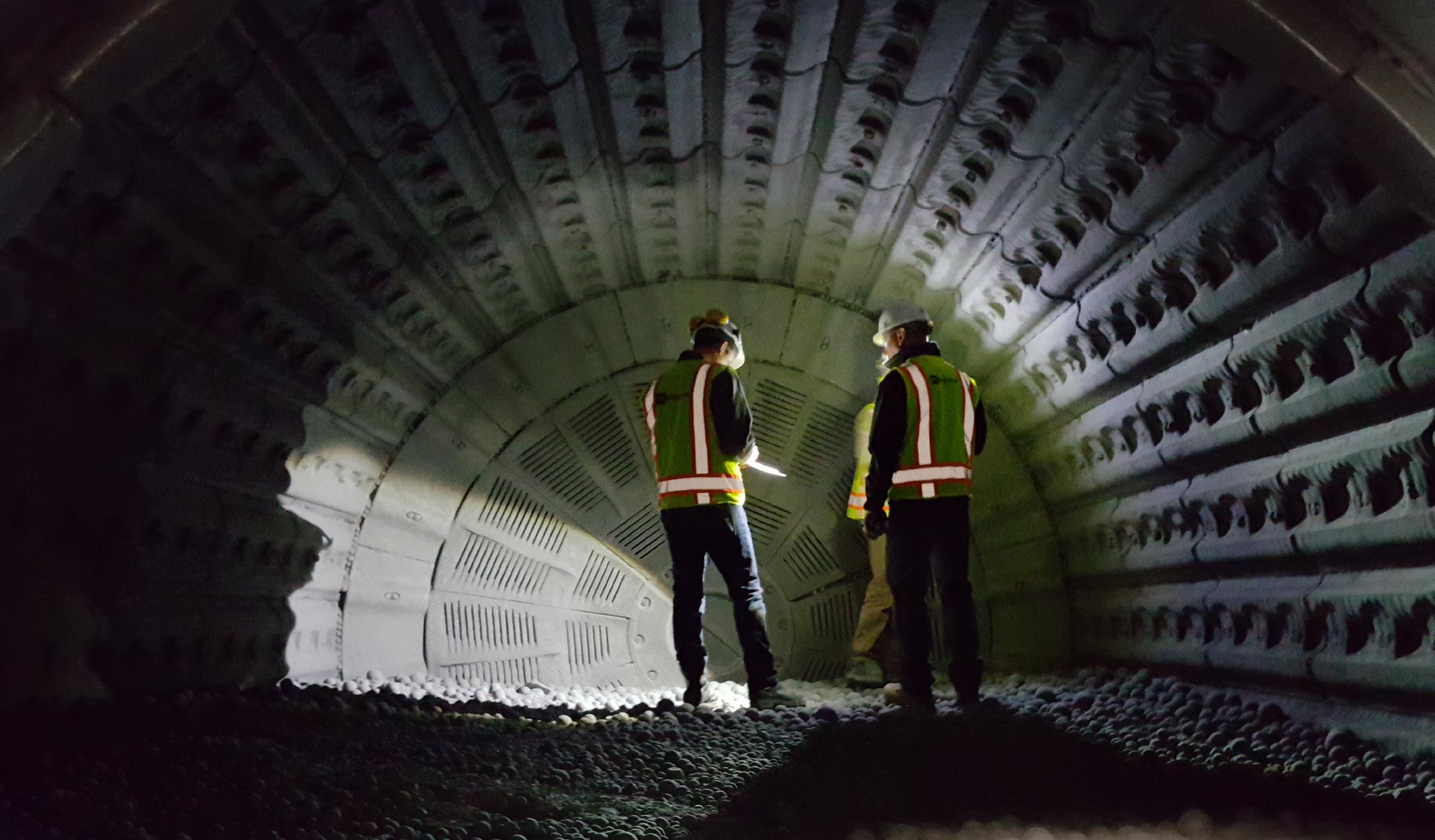

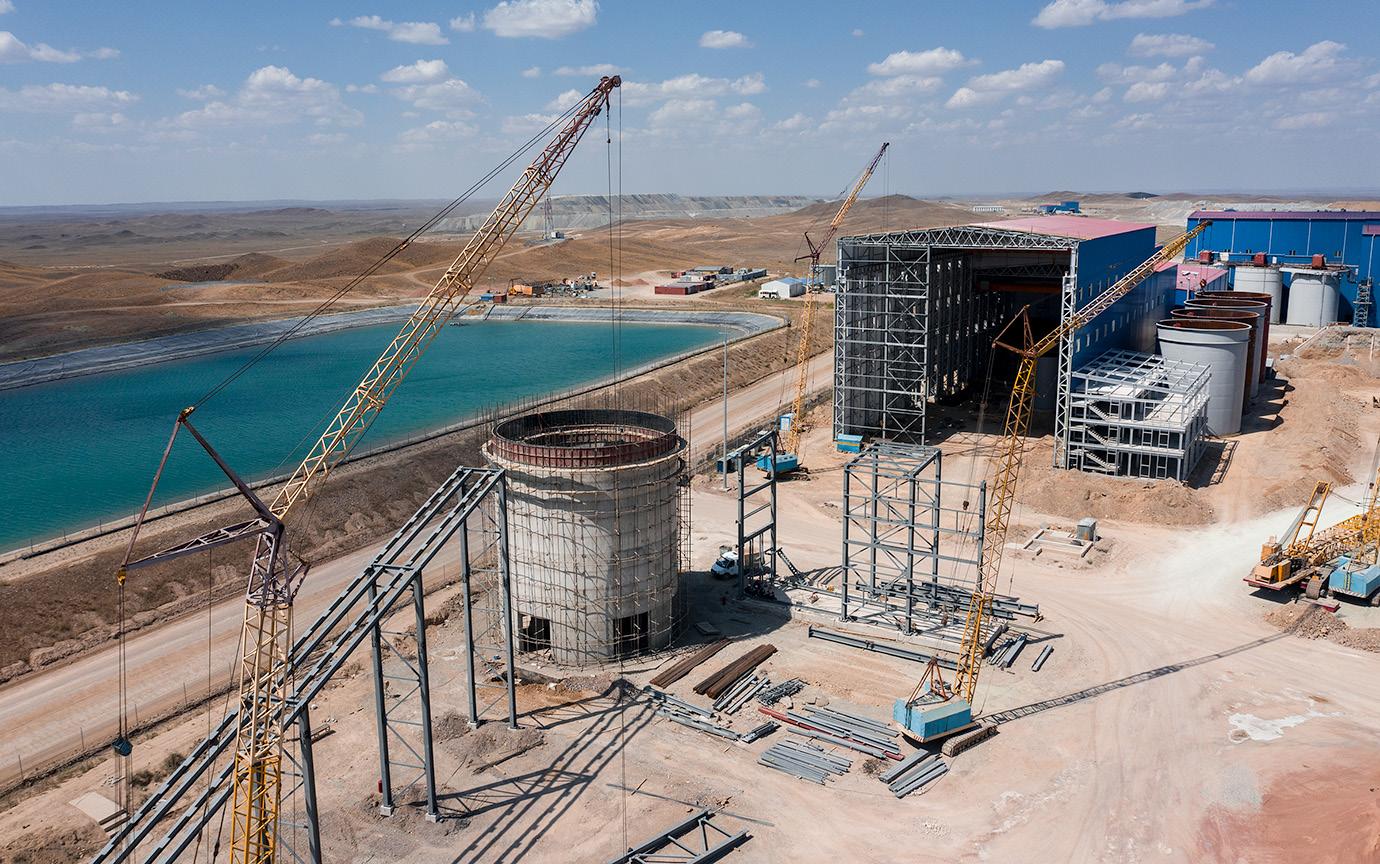
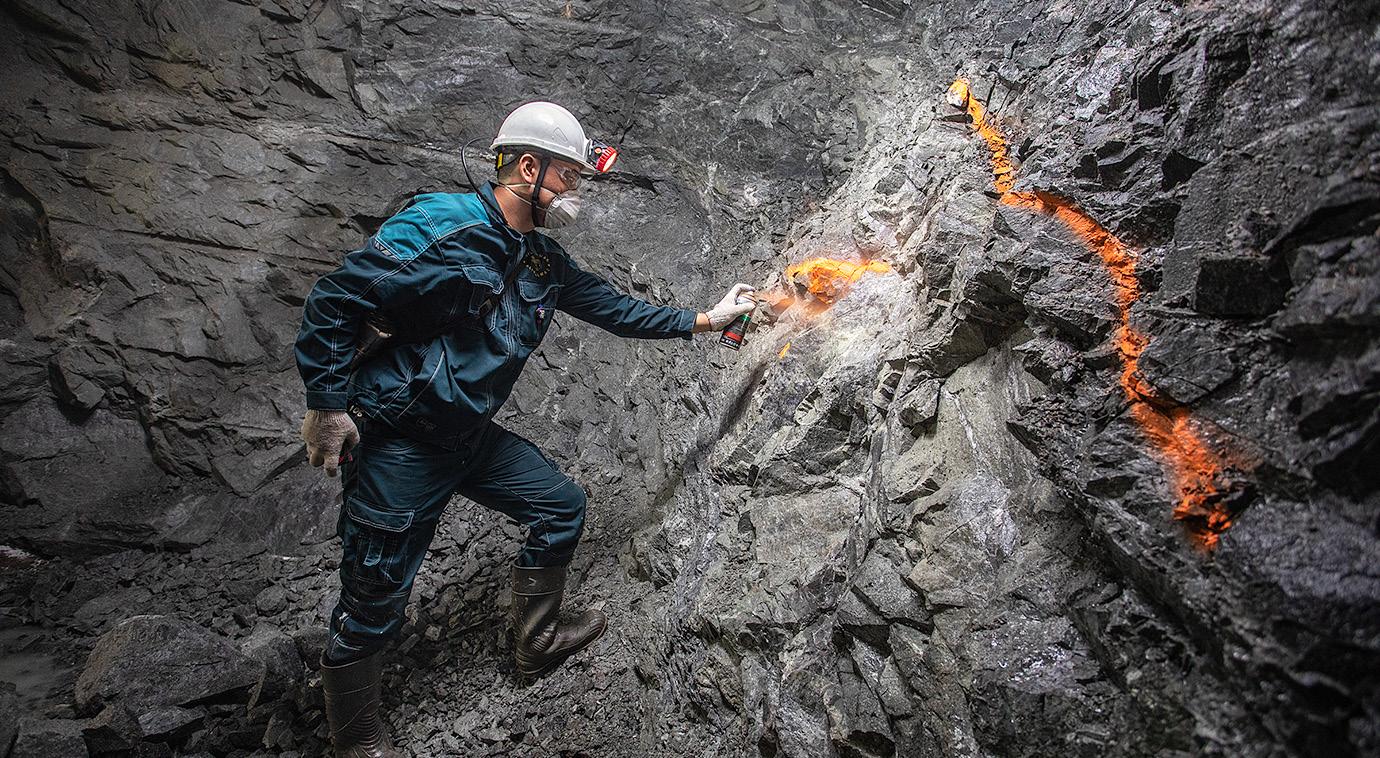

and technologies to minimise the environmental impact of its operations and preserve natural resources for future generations.
This is complemented by the additional values of innovation, cooperation, professionalism, and safety, which further underpin the company’s work.
People are key to the success of JSC AK Altynalmas, whose large-scale and complex projects offer splendid opportunities for professional and career development.
It is the company’s strategic priority to encourage growth in its employees and invest in the development of their competencies, as they strive for continuous improvement.
Although it’s difficult to recruit skilled staff, JSC AK Altynalmas

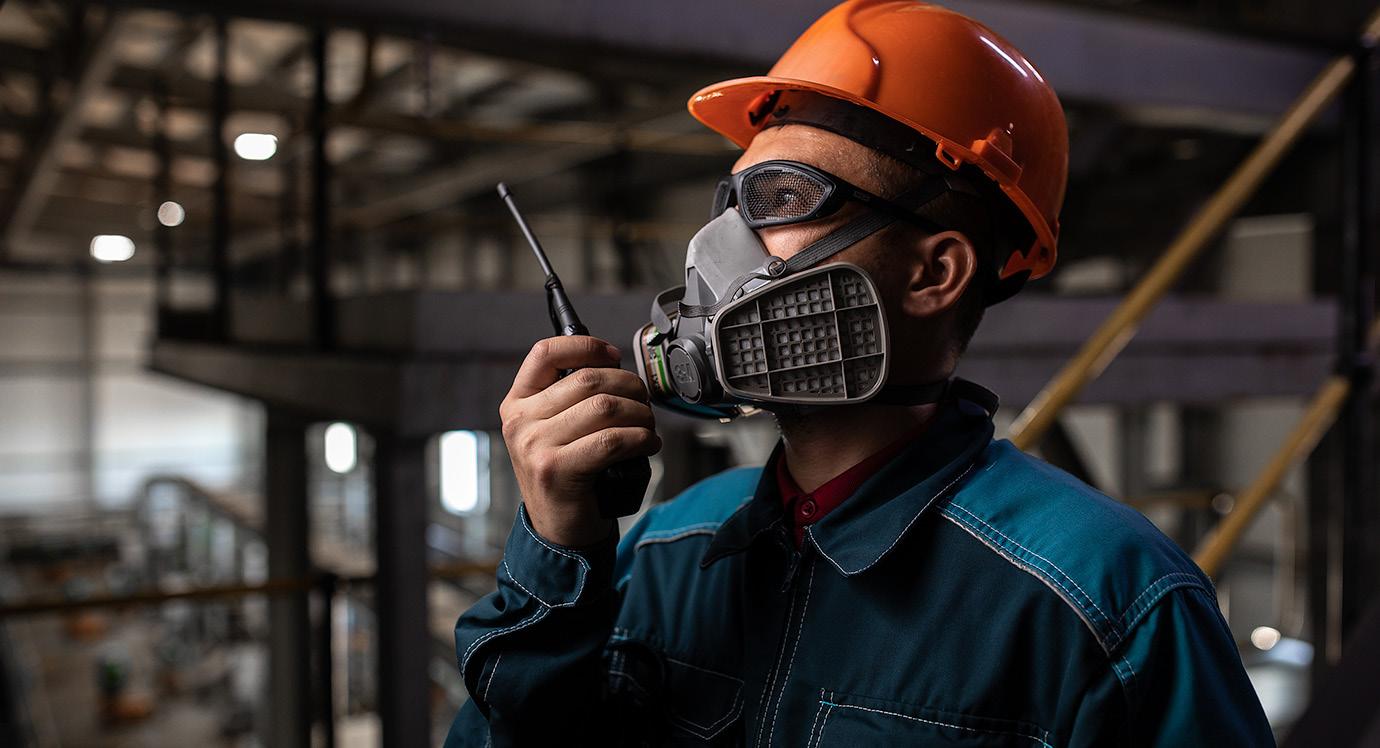
provides in-house training and always promotes from within.
Indeed, over 96 percent of the company’s employees undertake training courses, and each year, staff members take part in more than 450 various training events.
Employees also have higher learning opportunities, with JSC AK Altynalmas sponsoring the education of 59 employees in 2021.
As well as training and career development, the company provides competitive remuneration and has developed a financial incentive system to stimulate high performance based on clear goal setting for each area of expertise.
One of the ways in which JSC AK Altynalmas has aimed to improve staff performance, as well as increase operational efficiency and reduce production costs, is through its Digital Mine programme, which was
approved in 2017.
Business processes have been automated and digitalised by the programme, which includes digital technologies and elements of Industry 4.0. For example, maintenance and repair operations (MRO) for static and mobile equipment have been automated with the development of equipment process flowcharts, the integration of tools for MRO, and the optimisation of MRO resources.
JSC AK Altynalmas’ gold recovery plants have also been automated with an artificially intelligent big data analysis cloud system, whilst advanced exploration solutions have been introduced to the company’s mining and geological operations.
The Digital Mine programme is therefore of great importance to JSC AK Altynalmas, as it looks ahead to the next 30 years of gold mining in Kazakhstan.

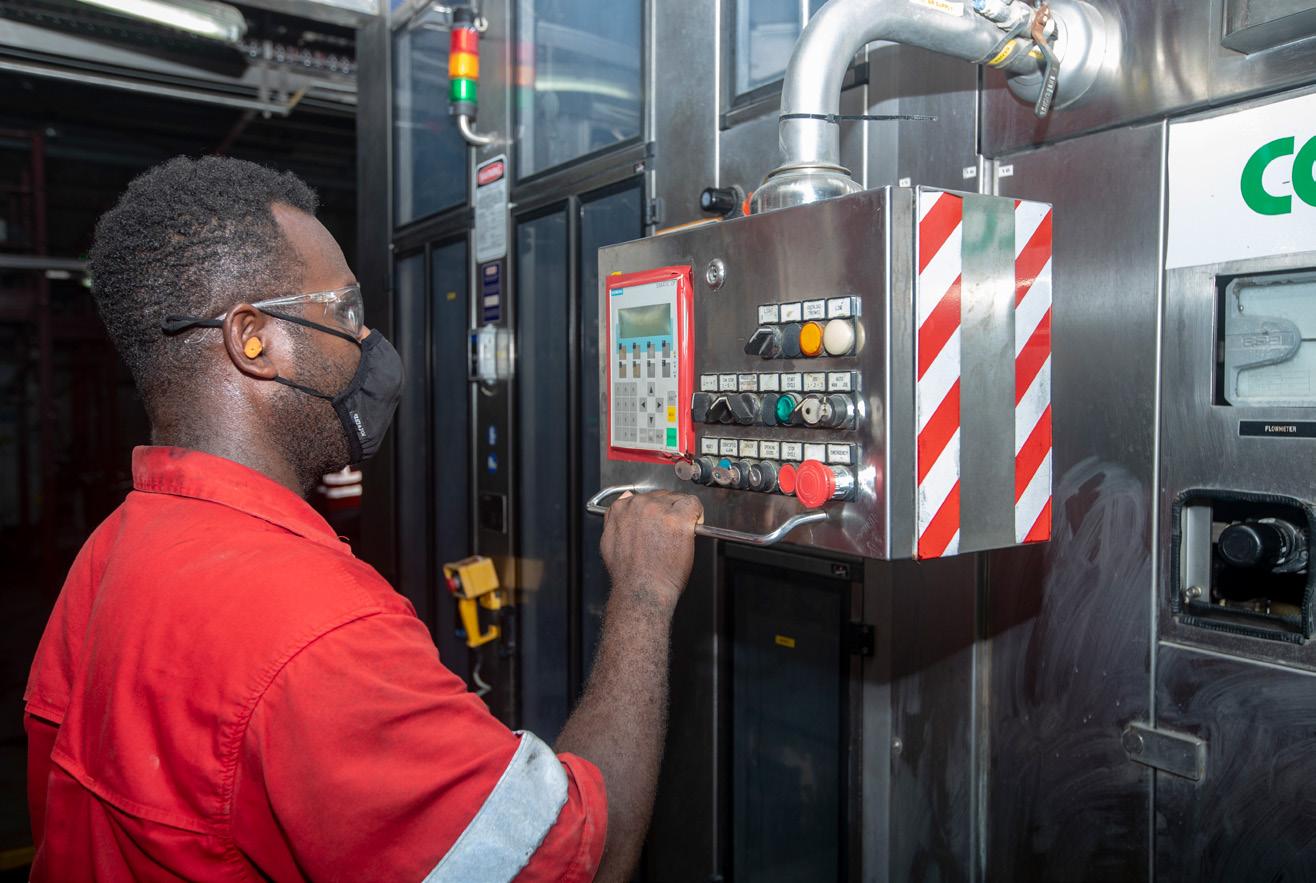


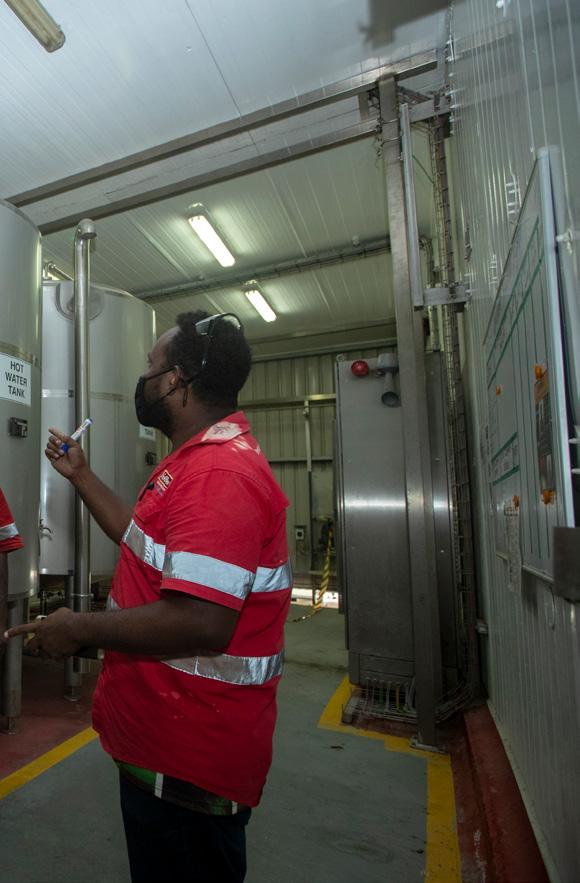
Solomon Breweries has served islanders with refreshing lagers for the past three decades. Its Country Manager, Gilbert Rothmaier, shares the company’s success story
Writer: Rachel Carr | Project Manager: Liam PyeThe archipelagic state of the Solomon Islands is situated in the southwest Pacific Ocean, and its capital, Honiara, in the unspoilt and uncrowded pristine paradise, is home to Solomon Breweries, the country’s first brewery.
Established in 1993, Solomon Breweries plugs into an untapped market, producing quality beers with a range of premix beverages.
The first brand Solomon Breweries introduced to the market was SB Lager, whose full-bodied taste was relaunched in a can with a frigate bird design in 2015 – locally recognised as the symbol of the Solomon Islands.
The award-winning SolBrew Lager
soon followed and has become an iconic local premium beer brand. With Canoe Lager launched in 2015 as the go-to for a day at the beach, it developed into the country’s numberone mainstream beer brand before Canoe Blue was added to Solomon Breweries’ portfolio as a light beer.
Alongside providing people with some libation, 98 percent of the company’s workforce are Solomon Islanders, whilst only two percent are expatriates.
“Our employees represent all the different provinces, ages, and religions in the country. However, we have a young talent pool, and a strong percentage of our workforce
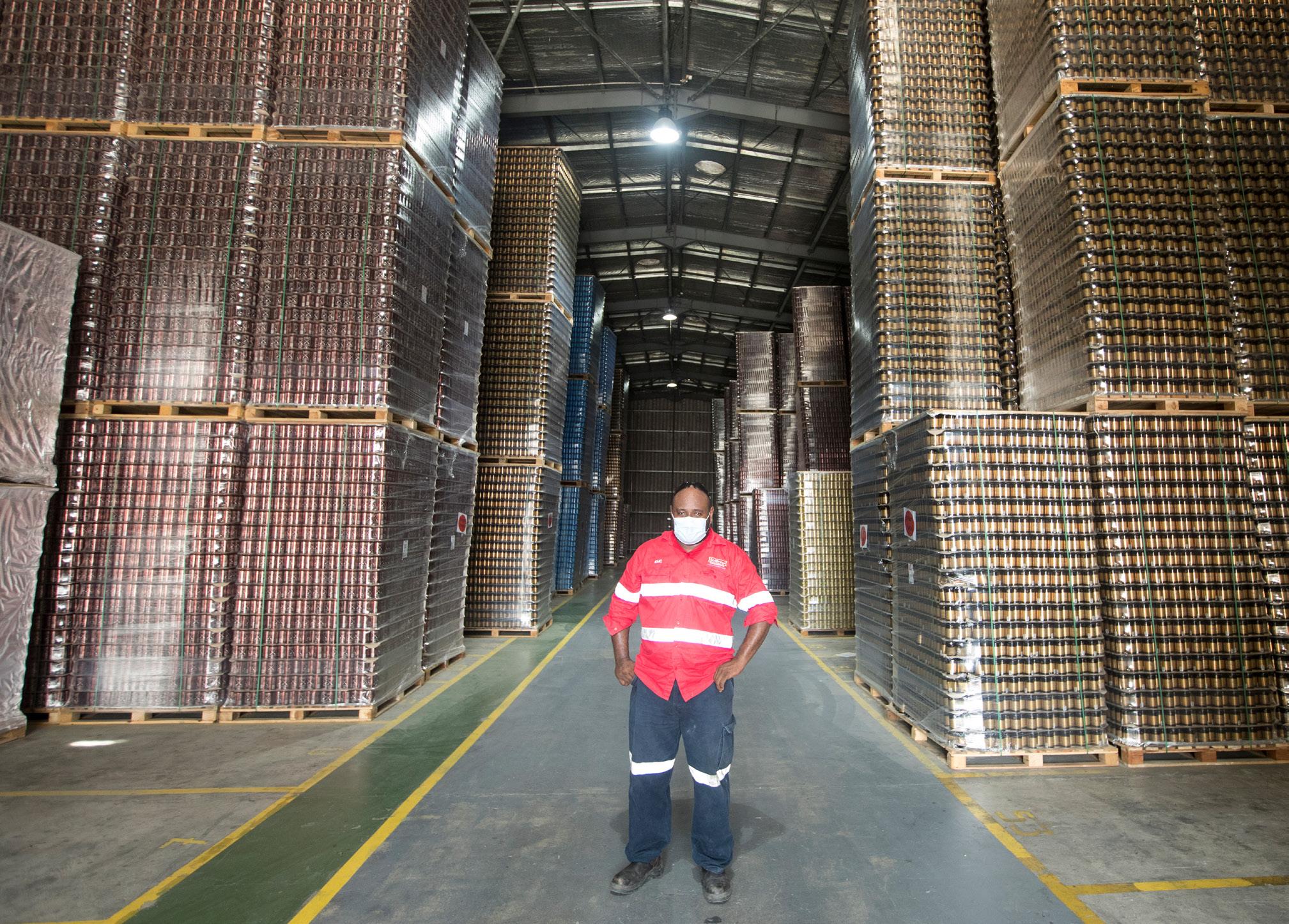
Manager
are women, which happened organically. It’s a natural process for us,” introduces Gilbert Rothmaier, Country Manager of Solomon Breweries.
Driven by talent as well as a code of conduct, Solomon Breweries’ HR department has enforced a domestic violence policy.
“We have a platform where you can report harassment and discrimination. This is an organisation where we discuss issues freely; for example, on International Women’s Day this year, we had a session where young women spoke about the obstacles they experience on a daily basis.
“Stood before their colleagues, they shared that their male counterparts don’t listen to them or take them seriously because of their gender or their age. This generated great discussion amongst all the staff; opening that dialogue enables us to work to become a better place,” Rothmaier informs us.
“POSITIONED IN THE PACIFIC, WE HAVE ENVIRONMENTAL TARGETS AND SEE THE REAL-LIFE IMPACT OF PROBLEMATIC WEATHER PATTERNS. THE SEA LEVEL IS RISING, SO THE TARGET WENT FROM BEING CARBON NEUTRAL IN 2021 TO NET ZERO BY 2030”
– GILBERT ROTHMAIER, COUNTRY MANAGER, SOLOMON BREWERIES
Today, Solomon Breweries is part of the Dutch multinational brewer, Heineken, currently the secondbiggest beer company in the world, and as such, it significantly invests in processes, procedures, and policies to uphold standards.
“Each operating company must make funding available to ensure businesses comply with local laws or the mother company policy.
“Additionally, the production side also has rigorous standards, so when an international organisation such as
Heineken enters a small country like the Solomon Islands, it is a challenge to ensure we meet its requirements,” Rothmaier expresses.
Solomon Breweries unveiled Heineken as an extension of its portfolio at its 20th anniversary celebrations in 2013. The move gave Solomon Islanders a wider choice of beverages, and as the company already had a strong reputation, it was perfectly placed to introduce a brand with global status.
Despite the various challenges of working with a giant of the brewing
Join Solomon Islands Chamber of Commerce and Industry (SICCI) to grow your business.
SICCI is a gateway to many opportunities vital to business innovation, adding value and better return. With over 200 members as well as a number of affiliations to other national private sector organisations, covering approximately 80 percent of Solomon Islands’ private sector workforce, SICCI continues to be a strong advocate of its members of which 60 percent are small to medium enterprises (SMEs) employing less than 20 employees. The Solomon Islands Government remains
Our Vision:
our key stakeholder and our continuous collaboration and engagement with the Government remains critical to establish a conducive business environment where the private sector can grow and jobs are created for our growing population.
Driven by its vision, SICCI continues to working closely with international donor organizations and other stakeholders in advocating, promoting and safe-guiding private sector development in Solomon Islands.
A vibrant private sector, leading to better lives for our people.
Our Mission:
A member driven organisation that (a) champions policies that deliver jobs and development, and (b) supports services that assist members to grow their business.
Our Values: Collaboration, innovation, openness, and professionalism.
SICCI acknowledges the supports from sponsors, donor partners, the government, and its members. Today, the company’s board, members, and the secretariat wish to congratulate Solomon Breweries for its service and support toward the private sector. Solomon Breweries is SICCI’s Platinum Sponsor with strong advocacy spirit to grow Solomon Islands’ private sector.



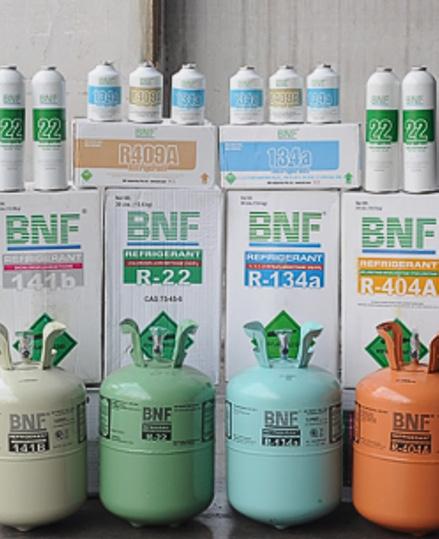

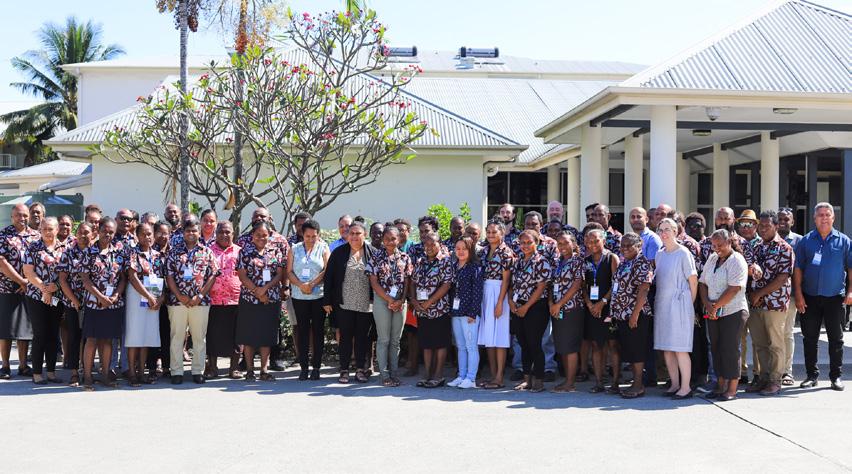
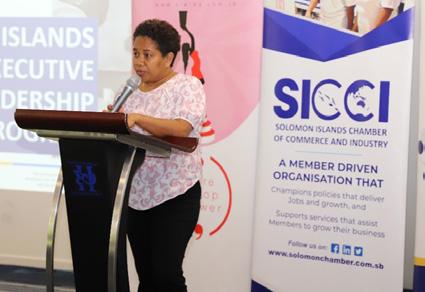


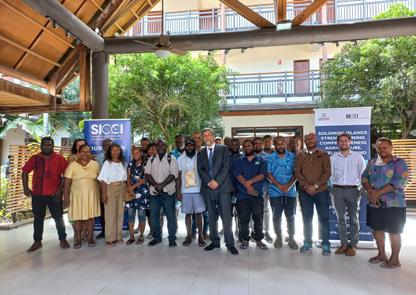
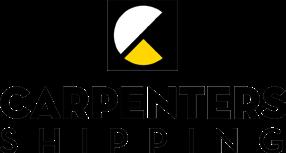

|

Carpenter Shipping Line has connected Asia to the Pacific since 2010. We believe in delivering your cargoes at ease and worry free in this challenging operating environment. MCSL has its own offices in all destination location, hence offering a very reliable service to its client base.
We believe in customer service, and we are here to give our solution in every possible logistical issue our client might face. With a proven record and solid client base since 2010, Carpenter Shipping Line is a fast-growing shipping line that has earned numerous accolades.
customer.service@carpentersshipping.com | www.carpentersshipping.com
world, SolBrew Lager received gold at the 61st Monde Selection Awards in 2022.
Monde Selection offers a comprehensive evaluation of consumer products within the culinary, health, and beauty spheres by the International Quality Institute, founded in 1961 in Brussels, Belgium. Therefore, the esteemed and respected award is a testament to SolBrew Lager’s passion for quality and high standards.
“When I have invited people to the brewery for a tour, they are in awe of the equipment as they don’t realise the level of standards that we have to maintain to ensure that the first
121 direct employees
1,200 indirect employees
SBD$41 MILLION in excise payments to the government last year
SBD$1 MILLION in Pacific Games sponsorship
SBD$150,000+ in annual community sponsorships and donations
SBD$570,000+ worth of free organic by-product deliveries to smallholder pig farmers, including volunteer hours, free spent grain, and delivery
40 PERCENT of women in leadership roles
98 PERCENT of total waste goes to farming (bio by-products)
120 hectolitre (HL) production capacity
12,000 cans per hour packaging capacity
10,000 bottles per hour packaging capacity

bottle brewed is always to a required specification,” reveals Rothmaier.
Every year, Heineken conducts a climate survey; although it is not mandatory, everyone is encouraged to participate. The company requests to see what the climate is around the business, and usually, around 96 percent of employees comply.
“The results are overall quite promising. We engaged with Heineken and some other world-class breweries; the outcome is that we focus on any shortcomings and look forward to the next survey,” he notes.
“Positioned in the Pacific, we have environmental targets and see the real-life impact of problematic weather patterns. The sea level is rising, so the target went from being carbon neutral in 2021 to net zero by 2030,” Rothmaier explains.
Unfortunately, the COVID-19 pandemic impacted the progress of one
of Solomon Breweries’ major projects. The SBD$12 million wastewater treatment plant suffered a setback when the supplier could not complete the final phase, as travel was interrupted during this tumultuous time.
“We are now at the site acceptance testing stage of the wastewater treatment plant after the country was in total lockdown until February last year. That is our biggest project, but we also have a solar energy venture that has been negatively affected by the COVID-19 pandemic,” he adds.
The solar panel project already has designated roof space, totalling around USD$400,000 of investment, aligning with SolBrew’s net zero journey.
“All breweries need to move towards renewable energy such as solar or a hydroelectric system. We had to change some of the previous projects due to the COVID-19 pandemic, so we plan to install the solar panels by Q3 2024.”
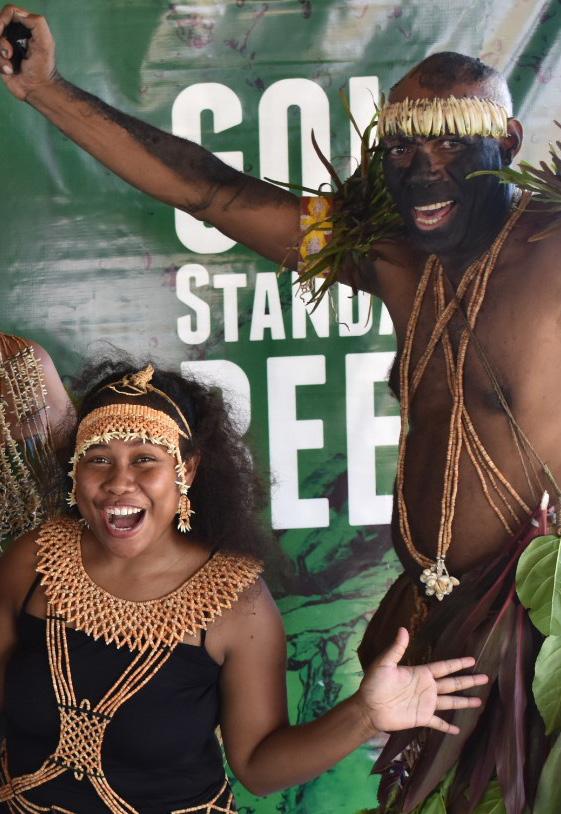





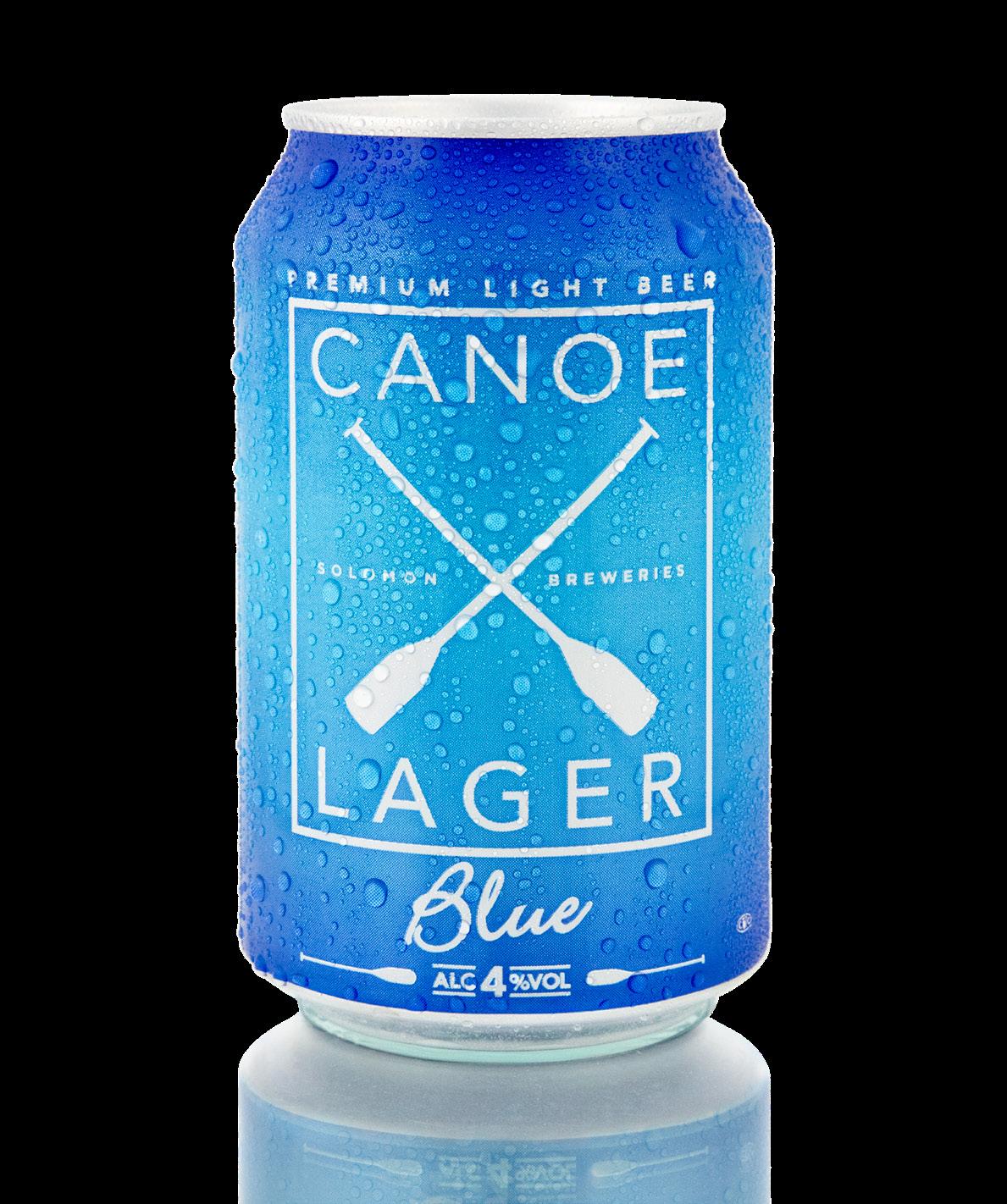
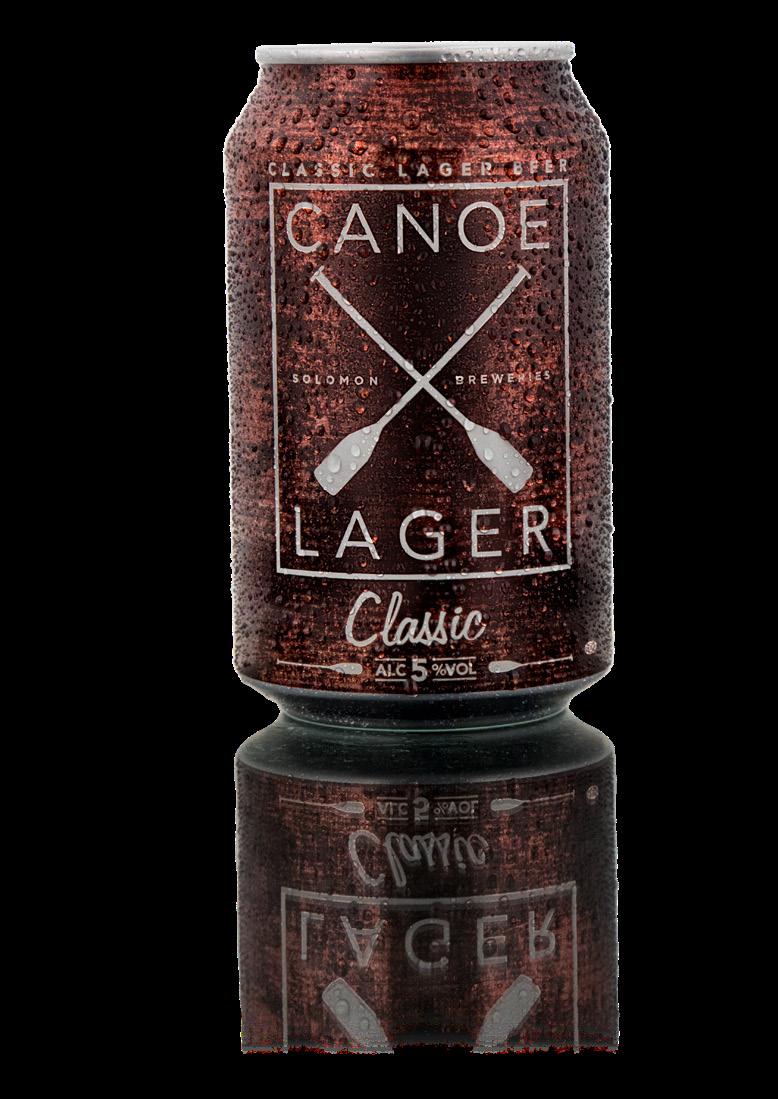
In the task of beer making itself, there is a CO2 recovery plan, meaning it is recouped and cleaned in the production process, then put back and packaged for reuse.
“Our commercial fridges in bottleshops are the latest in terms of compliance, due to investment in suppliers that meet green standards and are 100 percent greener due to investment in Heineken fridges. Moreover, the electricity consumption from the fridges we supply to our distributors is efficient,” shares Rothmaier.
In 2019, Solomon Breweries won the top Heineken Asia Pacific Corporate Social Responsibility (CSR) award for the Zero Waste initiative, where waste is being recirculated into communities for other uses. For example, Brewer’s Grain – an organic by-product of brewing – is provided for free to smallholder pig farmers. This reduces
the cost they pay for pig feed to as much as 50 percent. The company beat other Heineken operations to the award in the region.

Solomon Breweries is a serious investor in community projects, one of which is its partnership with pig farmers, where staff and trucks deliver all the spent grain and yeast, the by-product of brewing beer, from the company’s facilities to the farmers.
“There is a lovely story behind this partnership; all our waste was initially 100 percent going to landfill. We have initiated a pig farming programme, where we buy piglets to start the farmers off and then supply the by-products,” Rothmaier outlines.
Thus, the programme saves farmers money as Solomon Breweries supplies the pig feed. Alongside the pig farm venture, the company engages with the community in other ways by supporting organisations such as the Rotary and Red Cross, and sponsoring sporting bodies.
“Our people also give their time for free with volunteer hours. Furthermore, this is a win in terms of sustainability. We repurpose the ingredients used to make beer as fertiliser or animal feed. Beer is where 98 percent of the by-products come from, which equates to 700 tonnes,” states Rothmaier proudly.



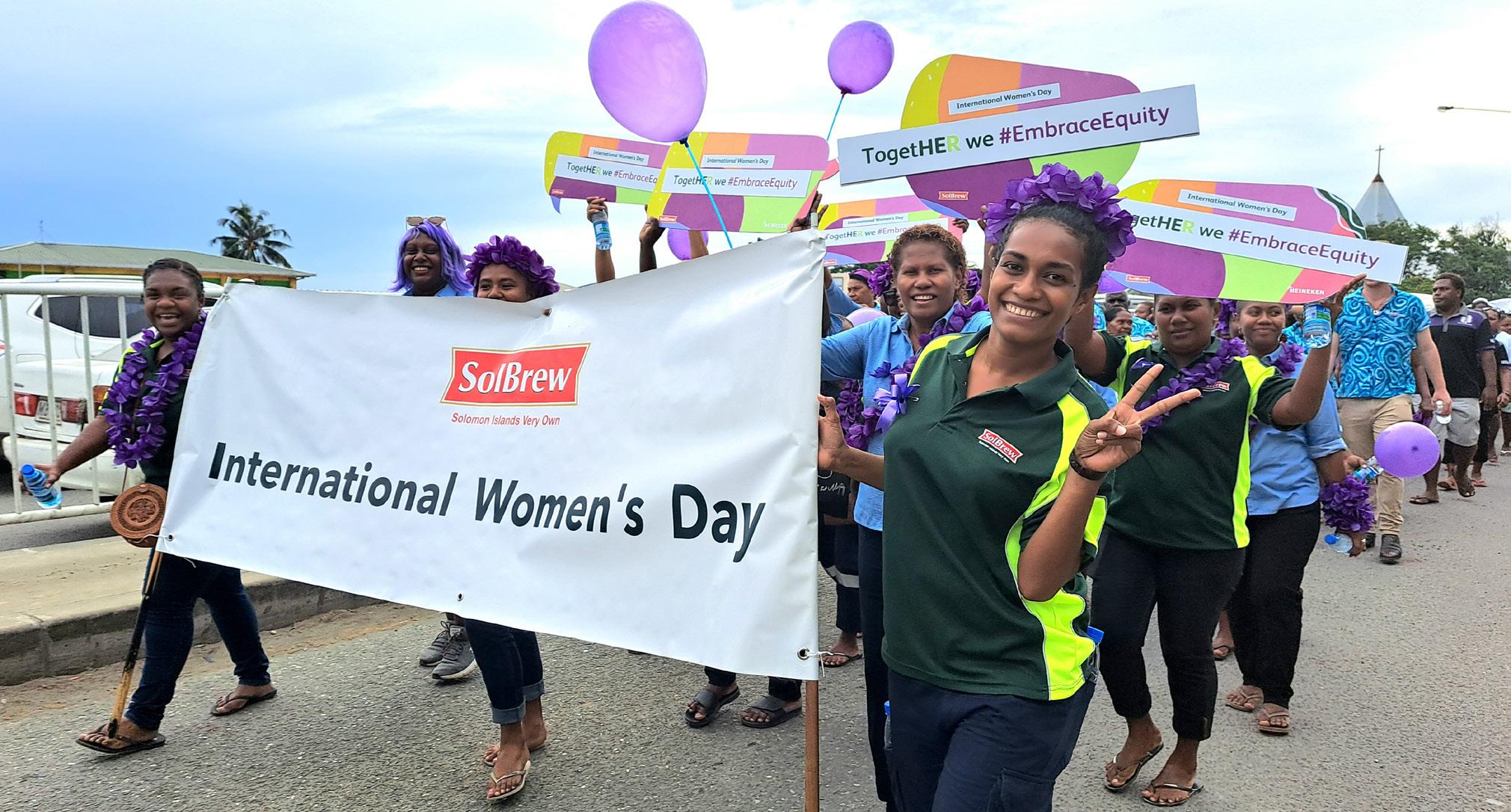
The company’s CSR programme, Brewing a Better World, focuses on five key areas: responsible consumption, water efficiency, zero waste, community, and reducing CO2
“We have CSR targets that range from ensuring human rights to focusing on staff. CSR is not a checklist, but a skill,” surmises Rothmaier.
Solomon Breweries always identifies local talents and offers opportunities to develop and set them on a sturdy career path.

Two of Solomon Breweries’ top employees are presently on a short-term upskilling assignment in Papua New Guinea (PNG) to obtain a different perspective on brewing and experience a bigger operation.
“I have been in the business myself for around 15 years. It is a great place to work; we are very family-oriented and focused on employee welfare and well-being.
“What I find working in the beer industry is that at least 60 percent of the workforce have been in this space for more than five to 10 years, which says a lot about the work environment,” Rothmaier observes.
“WE HAVE CSR TARGETS THAT RANGE FROM ENSURING HUMAN RIGHTS TO FOCUSING ON STAFF. CSR IS NOT A CHECKLIST, BUT A SKILL”
– GILBERT ROTHMAIER, COUNTRY MANAGER, SOLOMON BREWERIES
Around three to four staff members at Solomon Breweries have been with the company for 30 years – making them as old as the brewery. The length of time that people tend to stay in the industry and the brewery itself illustrates how Rothmaier feels about his position.
The iconic SolBrew bottle has had a limited-edition label revamp this year. Its new label, which encompasses the Pacific Games, a multi-sport event held every four years among athletes from Oceania also celebrates the brand’s 30th anniversary.
Looking towards the coming years, Solomon Breweries wants to concentrate on the people side of the operation, particularly in the supply chain. All of Solomon Breweries’ key supplies are delivered from overseas.
“Our key ingredients and materials are sourced from Indonesia. To contextualise, the Solomon Islands relies on imports for everything; for example, unlike Fiji and PNG, we don’t
produce commodities such as sugar,” Rothmaier elaborates.
With investments in solar energy and the wastewater treatment plant being commissioned, the company is keen to reap the benefits of its projects as the Solomon Islands has the highest power tariffs in the world.
“It is quite challenging to operate a business of this size in an expensive country. As we are within the manufacturing space, it is critical to ensure that we observe the guidelines and deliver top-quality products,” he sets out.
Given the current economic situation, the company is focused on operating a sustainable business as efficiently as possible.
“We are concentrating on sustaining our impact on the economy. We also want to obtain the talent the country has to offer, and with our investments, we are ensuring we have the equipment ready for the future,” Rothmaier concludes.
info@solbrew.com.sb
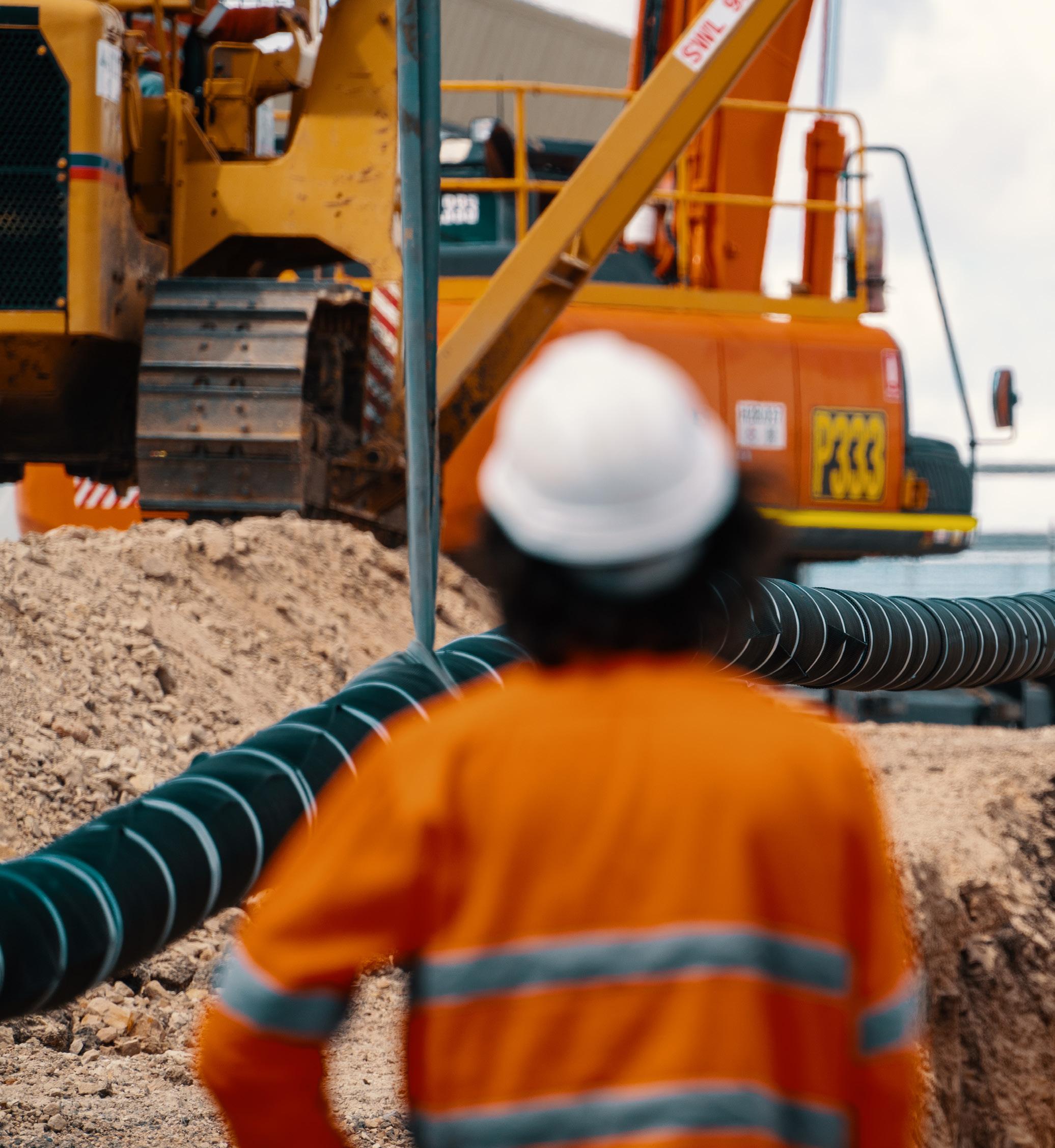
A leader in pipeline construction contracting and horizontal directional drilling, Spiecapag has been operating in Australia for 40 years. We delve into four decades of Australasian pipeline projects with John Walsh, Managing Director of Spiecapag Australia
Writer: Jack Salter | Project Manager: Joshua MannWhen
John Walsh, Managing Director of Spiecapag Australia,first arrived Down
Under in 2013, the gas industry was in the midst of an investment boom.
At the time, a wave of liquefied natural gas (LNG) megaprojects were being constructed, including
upstream production, export facilities and associated pipelines.
Sustaining those heady levels of investment was always unlikely, and although there has since been a drop in new gas infrastructure investment, it has largely been counterbalanced by new investment in water
infrastructure. Natural gas, however, will continue to play a key role in firming domestic electricity supply as part of the transition to net zero in many countries across the region.
Eventually, hydrogen will also be a key part of the transition, as evidenced by the AUD$127 billion pipeline of

hydrogen projects that has been announced in Australia alone – and that brings with it transmission infrastructure opportunities.
“We are currently in early discussions with clients, and it will more than likely become an area of growth in the coming years,” Mr. Walsh outlines.
In the meantime, the existing resources sector remains a strong driving force of the Australian economy, and a number of new mining projects will require both energy and water supplies.
With its regional office based in Brisbane, Queensland since 2015,
Spiecapag also regularly monitors how it can bring its wide experience and expertise to specialised projects in Papua New Guinea (PNG), New Zealand, as well as New Caledonia and further out into the Pacific, and northwards to serve Southeast Asia.
“We had been operating on a
APAC OUTLOOK: WHAT MAKES SPIECAPAG AUSTRALIA A LEADER IN EPC PIPELINE PROJECTS GLOBALLY AND IN OCEANIA?
John Walsh, Managing Director: “Spiecapag has been building pipelines for over 100 years and has a huge (and unequalled) volume of experience and expertise.
“This comes with deep technical in-house capabilities, supported by specialised equipment and worldclass systems. That competence feeds our ability to offer innovative solutions to clients.
“Our team is driven to succeed and never shies away from a challenge, with a culture akin to a small business but backed by one of the largest players in the sector. As part of VINCI Group, we come with a very strong balance sheet that gives clients confidence in our ability to deliver and persist in a challenging time for the construction industry.
“JVs with best-in-class companies as well as reliable and highly competent supply chain partners complement our strengths.”

project-by-project basis across the region for decades before establishing a permanent operation here in Australia, and have now been active in the region for over 40 years. While we operate across the whole region, much of our business is in Australia, and also in PNG, where we have built all the major long-distance, high-pressure gas pipelines,” notes Mr. Walsh.
Spiecapag is part of the French multinational construction conglomerate, VINCI Group, and has had an ongoing programme of work since establishing its permanent base in Australia, with four or five projects typically live at any given time.
The company has grown exponentially from just two employees to 600. With more growth in the pipeline for 2024, staff are at the core of Spiecapag Australia’s strategic focus for the business.
“We are proud to employ the most talented and experienced people in our industry, and as we grow, it’s important we continue to attract and retain key staff with various skills, abilities, and backgrounds,” Mr. Walsh recognises.
Over those years, more than 20 large pipeline projects have been constructed across the region by Spiecapag, who has since added a horizontal directional drilling (HDD) business whose work stretches into Southeast Asia, South Korea, and Japan.
HDI Lucas, the company’s HDD subsidiary, was formed in 2018 following Spiecapag Australia’s acquisition of Lucas Engineering and Construction, the leading HDD contractor in the Australian market.
“Spiecapag Australia has long worked alongside joint venture (JV) partners. This way, we focus on being best-in-class at what we do – pipelines and facilities – and work hand-in-hand with partners who bring additional expertise so that our clients can deliver more complex projects while both reducing costs and having a simpler owner-contractor interface,” Mr. Walsh explains.
“The longest-standing local JV partner we had was Lucas Engineering and Construction, a relationship built over decades which culminated in a marriage of the businesses a few years ago.”
As a result, Spiecapag Australia added another valuable string to its bow, with HDI Lucas having achieved several industry milestones both in Australia and overseas, and taking on some of the most complex and technically demanding horizontal drilling projects globally.
Spiecapag Australia’s modus operandi includes identifying landmark projects that it wants to be a part of.
Locally in Australia, the company’s first project in 1982 was the Sydney-Newcastle Pipeline, where a major focus was minimising the environmental impacts on
“OUR NUMBER ONE PRIORITY AT ALL TIMES IS THE SAFETY AND WELFARE OF EVERYONE WE INTERACT WITH. AS SUCH, OUR HEALTH AND SAFETY TARGET FOR THE YEAR AHEAD IS ZERO INCIDENTS OR INJURIES”
– JOHN WALSH, MANAGING DIRECTOR, SPIECAPAG AUSTRALIA
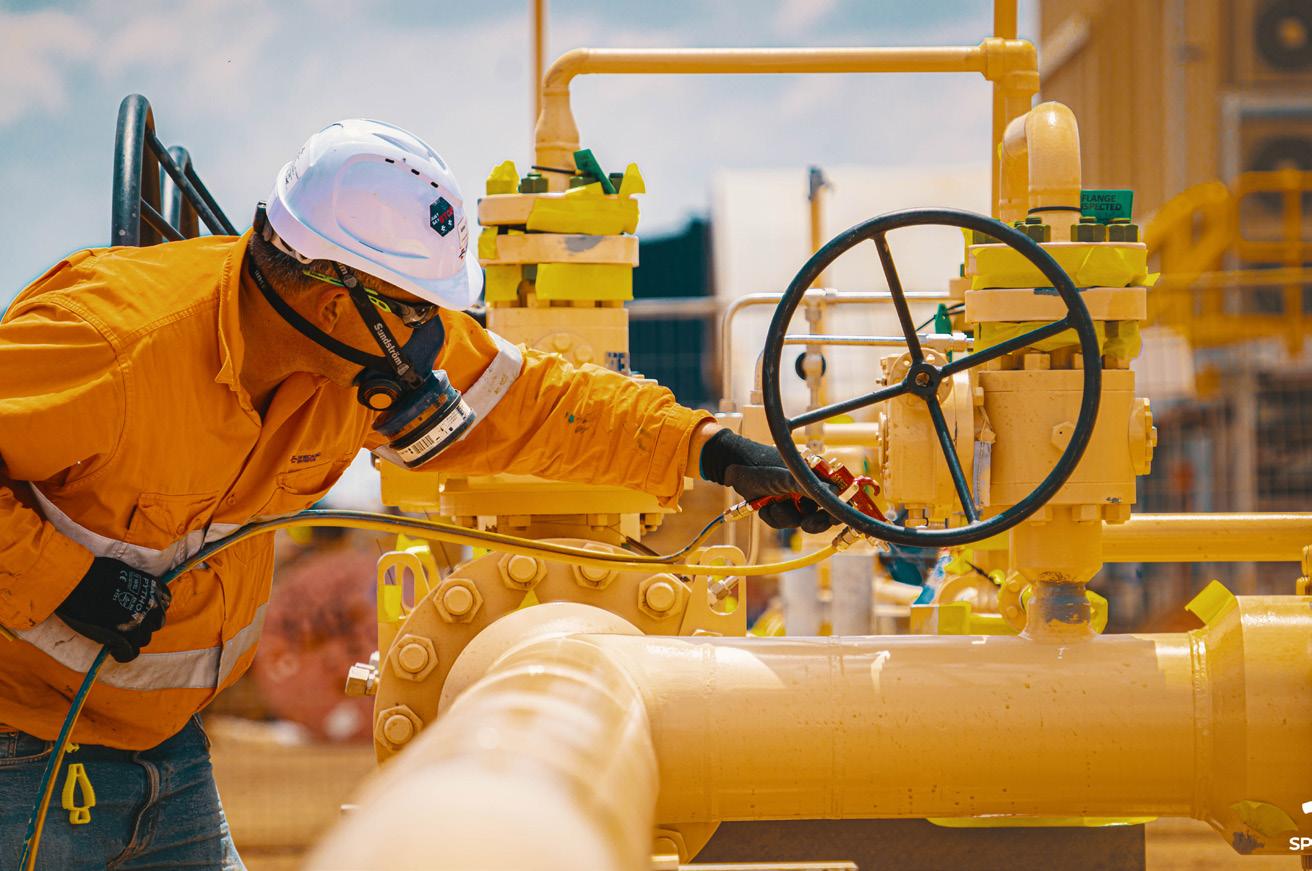

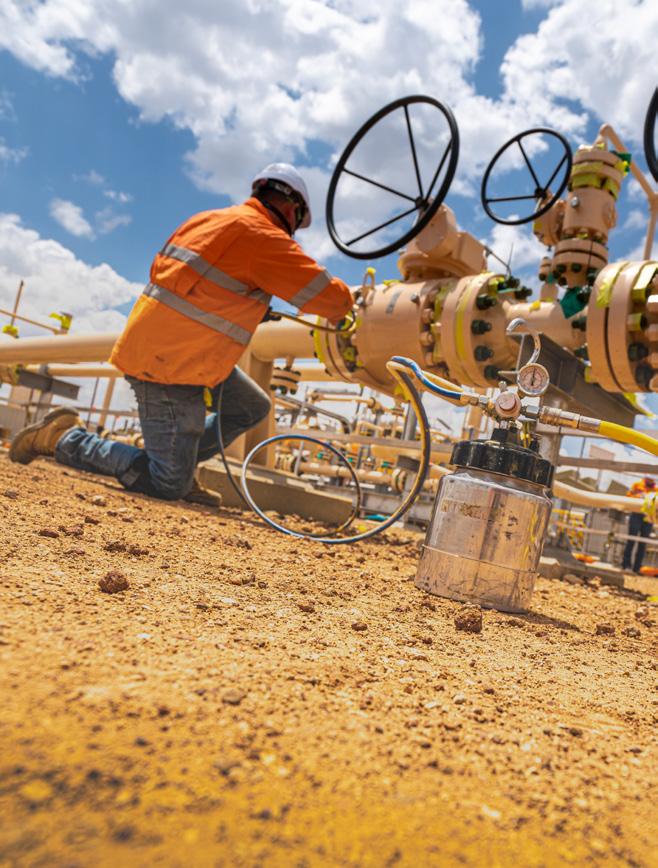
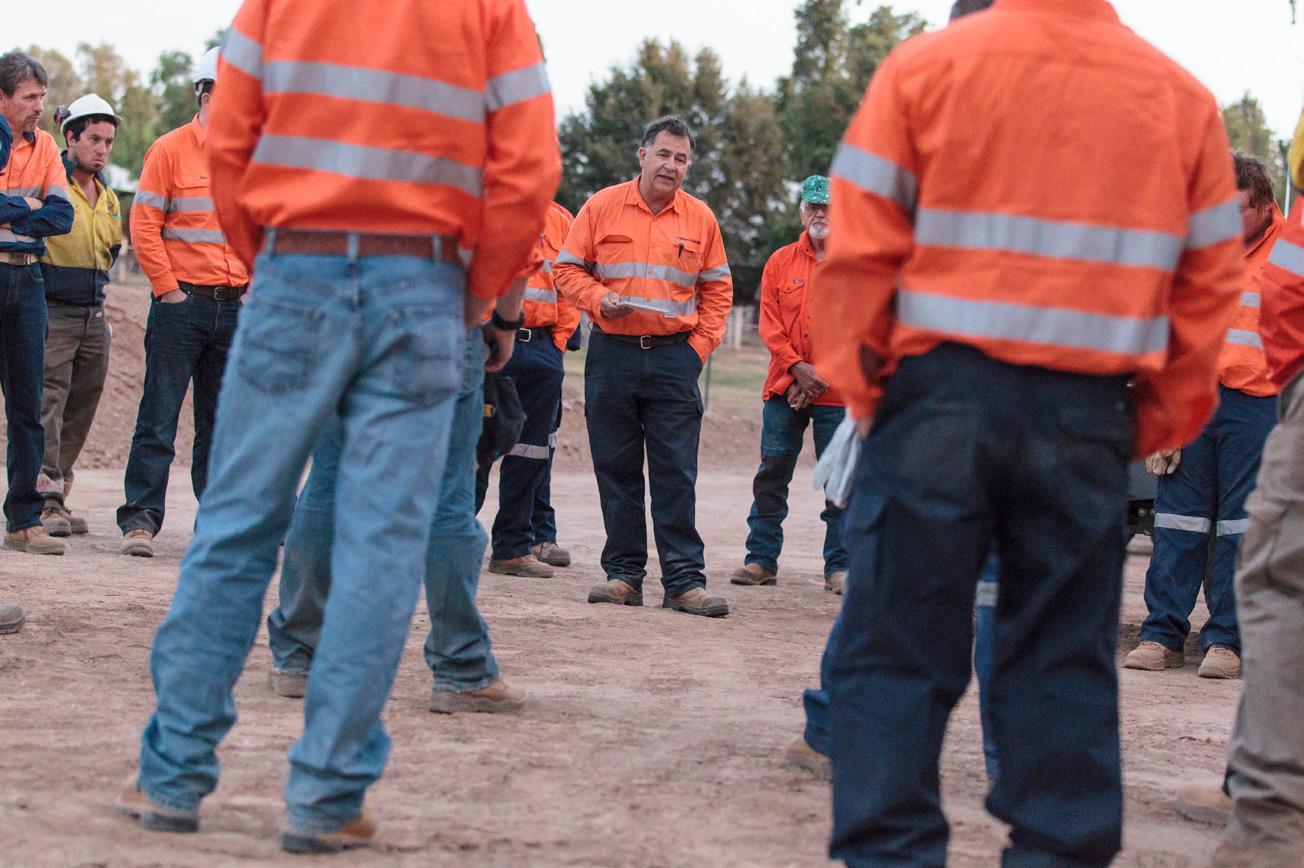
the Hawkesbury River. It was a good learning experience for the company, as those who worked on it had to negotiate many river and infrastructure crossings, as well as steep, rocky sections encompassing large boulders.
Perhaps the most memorable project of the 1990s was the Southwest Queensland Pipeline. Spanning 756 kilometres (km), it bears some similarities to the SEA Gas Pipeline, which at 687km was another long-distance project constructed by
Spiecapag.
“Additional client demand for gas meant that 340km of that SEA Gas Pipeline was expanded during construction to install twin 14-inch diameter pipelines. That was a project where we were the engineering, procurement, and construction (EPC) contractor,” Mr. Walsh informs us.
Both the Southwest Queensland and SEA Gas Pipeline projects were true tests of Spiecapag’s ability to get the logistics of its remote operations right, and great examples of the
importance of working with local Traditional Owners to protect the cultural heritage.
The 2000s brought the second of Spiecapag’s major projects in PNG, with more than 600km of pipelines for the ExxonMobil-led PNG-LNG project, an integrated development that includes gas production and processing facilities.
“This was another monumental test of our logistics and ability to operate in harsh, variable conditions,” states Mr. Walsh.
Australia’s premier induction bend manufacturer Inductabend specialises in high integrity heat induction bending of pipe and other sections for gas pipelines, mining and construction. Generally, if it can’t be cold bent, it can be induction formed.
Founded in 1992 by Barry Crouch and Rob Stead, the business has been servicing the Australian Industry for over 30 years. Its founders both had extensive experience in manufacturing and engineering.
As managing director, Barry has been involved in the day-today operations of Inductabend from the beginning. He and other long serving employees including general manager John Rea, contribute to the wealth of experience and knowledge
Inductabend has at its disposal to aid its customers in ensuring their bends are made to fit their purpose. Presently, Inductabend is undergoing an evolution with the directors committing to the long-term future of the business in Australia. Inductabend is currently undertaking significant upgrades on its plant and equipment whilst
maintaining continued investment in it’s R&D programme developing new induction bending (and heat treatment) technologies. This investment will enable Inductabend to assist the evolving Australian gas pipeline industry with any challenges it faces as it works to incorporate hydrogen, biogas and other innovative approaches into its green future.
Induction bending is a hot bending process specifically designed to produce high quality pipe bends with mechanical properties equivalent to or exceeding those possessed by the mother pipe the bend it’s produced from.
Inductabend has continued to develop and improve its capabilities, product offerings and overall quality as the core value adding proposition for Australia’s industrial markets.
“We work with our customers to tailor bending geometries and mechanical characteristics to their needs. In order to ensure consistent performance of our bends we employ a wide range of destructive and non-destructive testing methods to create custom


testing programs tailored to our client’s pipeline application and risk profile”.
Inductabend owns and operates three induction bending machines that cover a wide range of applications. Pipe diameters from DN25 to DN900 with wall thicknesses of up to 100mm can be bent to the purchasers exact desired angle and radius (generally 2.5D and up) with custom tangent lengths on each end of the bend. Complex compound bends can also be produced, including S bends and even helical bends for specialist applications.
Induction bending is compatible with a wide range of materials including all carbon steels, alloy steels, high X grade steels, stainless steels and other exotic alloys.
Recently, Inductabend internally developed a new world-first method of bending that allows us to utilise induction bending for the forming of bends with radii from 14m and up. This allows for gradual, consistent changes in direction to minimise wear on steel pipelines and deal with any difficult alignments all whilst maintaining

their desired mechanical properties.
Induction bending is generally synonymous with pipe bending but it also has wide applications for high quality bends in structural
sections such as CHS, RHS, SHS and also UB, UC and PFC.
Additional services such as end preparations for welding, Victaulic grooving and coating are also available to customers when placing orders with Inductabend. Inductabend also owns some cold field benders (up to DN1200 capacity) that are available for dry hire.
Inductabend prides itself on its quality products and exceptional customer service.
Clients who procure bends are also afforded maximum flexibility with the ability to modify their orders right up until production begins. Better still, if a project encounters an issue during construction and an additional bend(s) are required on short notice new bends can be manufactured within a week and sent to site minimising costly project delays.
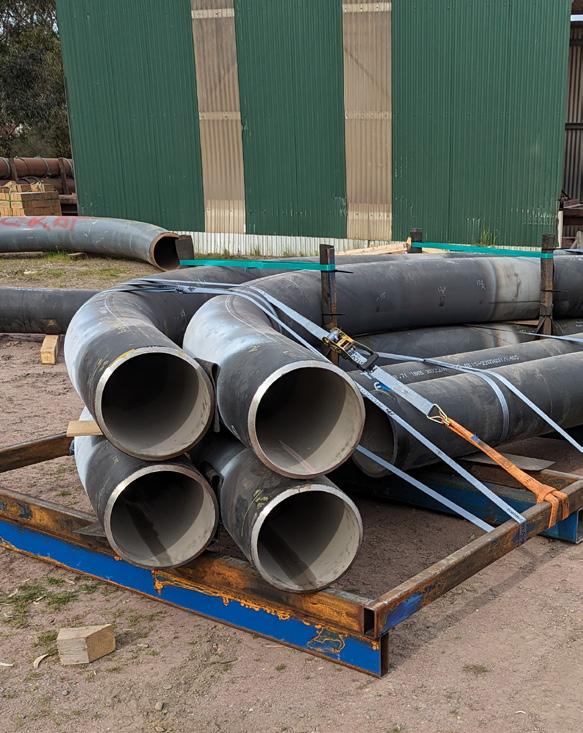
Production and/or deliveries for large projects can also be manufactured in prioritised batches to supply the right bends at the right time and minimise laydown requirements.
For large diameter projects with a high volume of bends talk to us about onsite / near site induction bending and project specific set- ups.

Structural steel section bending
Fully customizable bend geometry
Other specialist heating applications
Onsite induction bending (large diameter high volume projects)
Cold field bending machines also available for hire (up to DN1200)
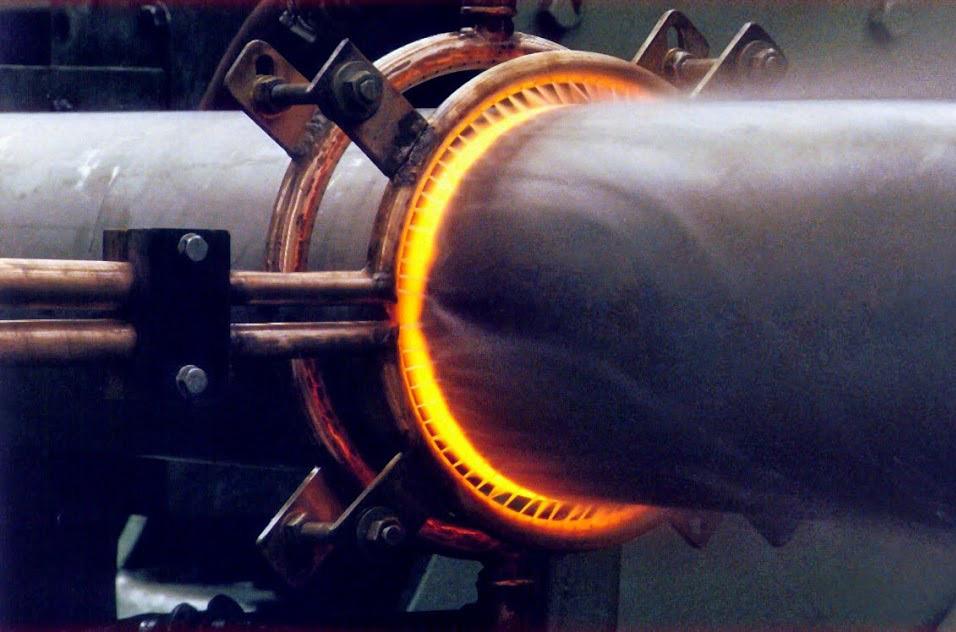


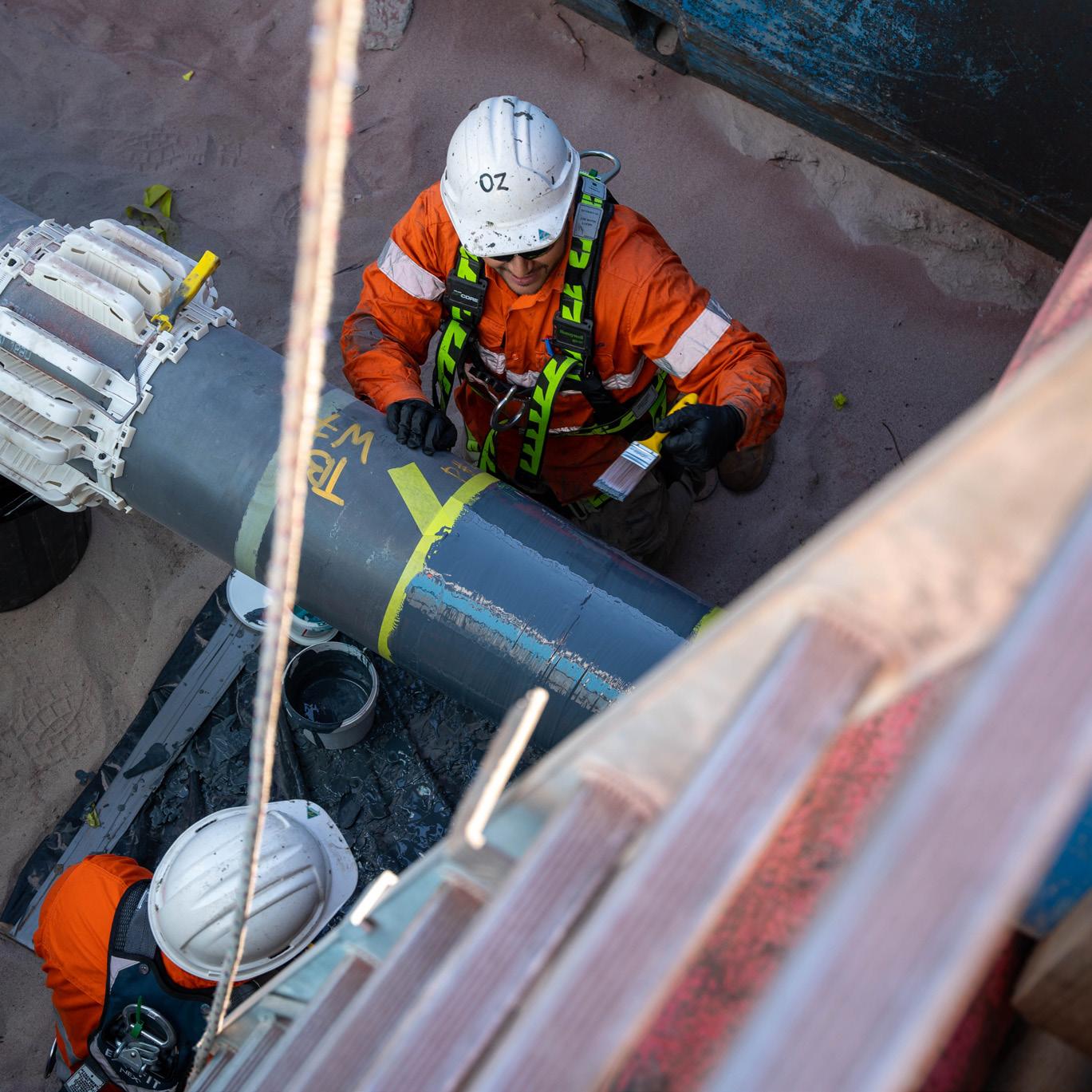

Very soon after the project was commissioned, Spiecapag started work on the Eastern Goldfields Pipeline for APA Group (APA), the first of many for the leading Australian


“OUR MAIN GOAL FOR THE COMING YEAR IS TO SUCCESSFULLY DELIVER ALL OF OUR PROJECTS SAFELY, ON TIME, AND ON BUDGET TO THE COMPLETE SATISFACTION OF OUR CLIENTS”
– JOHN WALSH, MANAGING DIRECTOR, SPIECAPAG AUSTRALIA
energy infrastructure business.
At 293km, it was a comparatively shorter project, but its remote location 12 hours northeast of Perth meant logistics again played a key role in delivering ahead of schedule and maintaining a fantastic safety record and a lost time injury frequency rate (LTIFR) of zero.
“We averaged a construction rate of 5km per day, and rapidly mobilised to get the project started as quickly as possible,” Mr. Walsh tells us.
On projects in remote locations,
such as the Eastern Goldfields Pipeline for APA Group, or the Northern Gas Pipeline for Jemena, Spiecapag also engages with Indigenous groups and works with the client to create economic opportunities for people from these communities.
More recently, Spiecapag constructed the Mardi to Warnervale Pipeline, which was completed during the COVID-19 pandemic for the Central Coast Council in New South Wales (NSW).
‘Everything we do begins and ends with our customers’
- Michael Benson, Austrack MD
Managing the building of major pipelines is challenging, complicated, and expensive.
One call to Austrack and instantly WE become part of YOUR team. We save you all the stress involved with hiring equipment.
Our people bring ‘at the coalface’, hands-on experience to get your project moving.
We have you covered on all fronts with:
• Reliable equipment
• Best brands
• Superior service
• Putting safety first
• New technology
• Great Rates
Our fleet of 300+ machines and 700+ attachments can deploy to anywhere in Australia




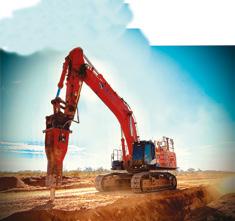

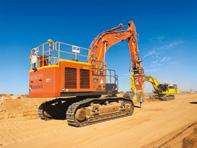


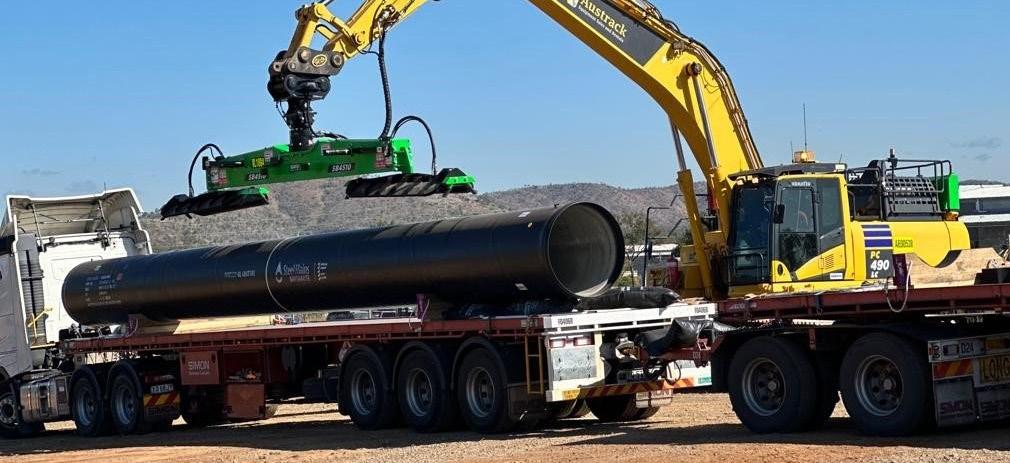


This was Spiecapag Australia’s inaugural venture into government work in Australia, and its first JV with Seymour Whyte, a sister company within VINCI Group.
“Since then, we have continued to pursue water projects with Seymour Whyte on a JV basis,” shares Mr. Walsh.
During the pandemic, Spiecapag also built an oil pipeline in the Perth metropolitan area as part of the METRONET project.
This was extremely challenging, as the Western Australia (WA) state border was shut due to pandemic restrictions, and it was virtually impossible to get in and out of WA.
“Given the specialised nature of what we do, it meant a part of our workforce basically had to move to WA,” Mr. Walsh reveals.
The pandemic era also highlighted the key role of the supply chain and the importance of building strong suppliers relationships.
As environmental requirements have tightened and approval processes toughened, there has been a shift in the past decade to ensure projects are designed and constructed in a more sustainable way.
With clients looking at environmental, social, and governance (ESG) as part of their future business plans, Spiecapag has even participated in some of their materiality assessments, which are performed to benchmark a business and help develop a plan to reduce their future environmental impact.
In addition to this, Spiecapag Australia has seen the training qualifications issued by the Infrastructure Sustainability Council of Australia (ISCA) grow in popularity on large-scale projects in recent years, which will likely filter down to mediumscale projects.
“There is an increased interest within Spiecapag Australia and VINCI Group in the environment. It has become a subject our employees have a vested interest in and want to see us succeed in,” Mr. Walsh emphasises.
To harness this interest, Spiecapag Australia has formulated a Green Committee to develop and implement initiatives to decrease its environmental footprint, whilst VINCI Group has also committed to a 40 percent reduction in CO2 emissions by 2030. Spiecapag also has the benefit of being able to reach into the global research and development department within VINCI Group, giving it early insight into emerging technologies to meet customer expectations.

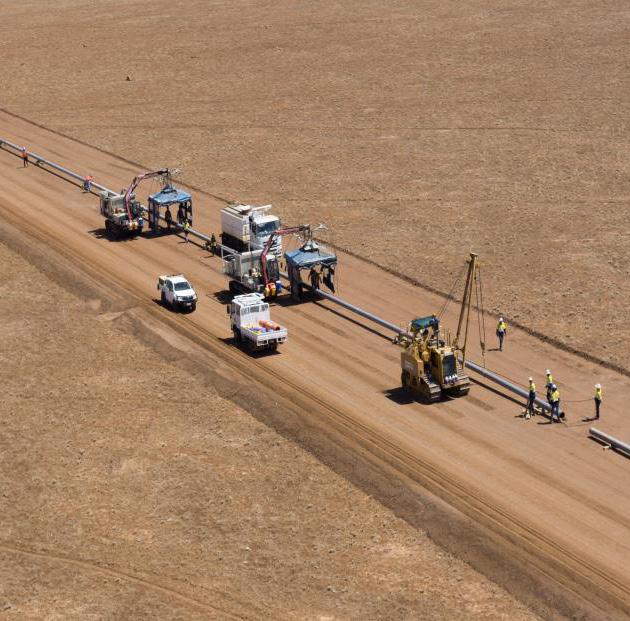
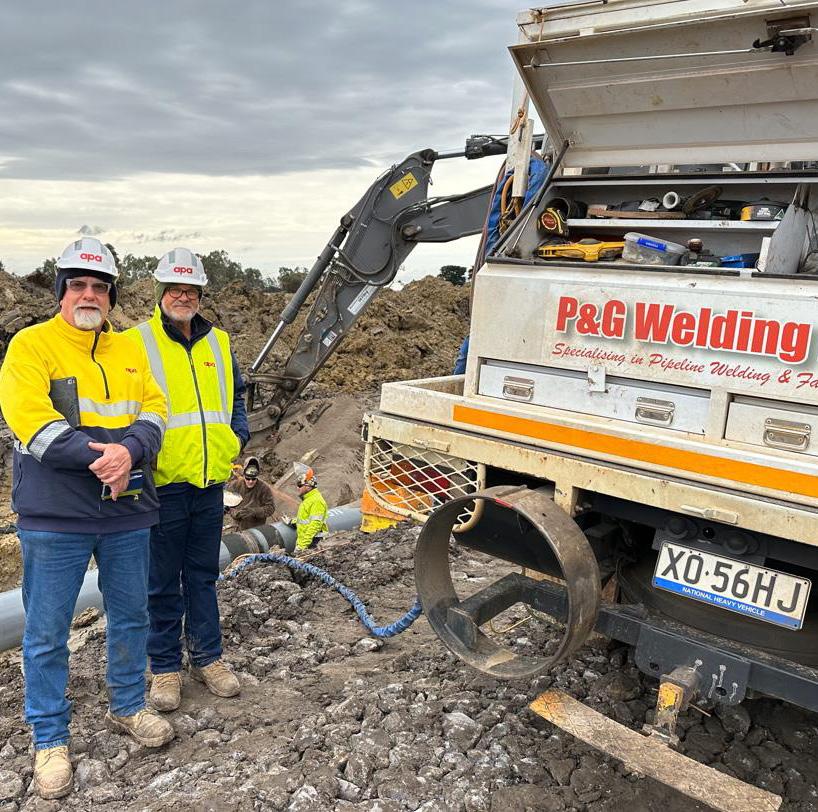
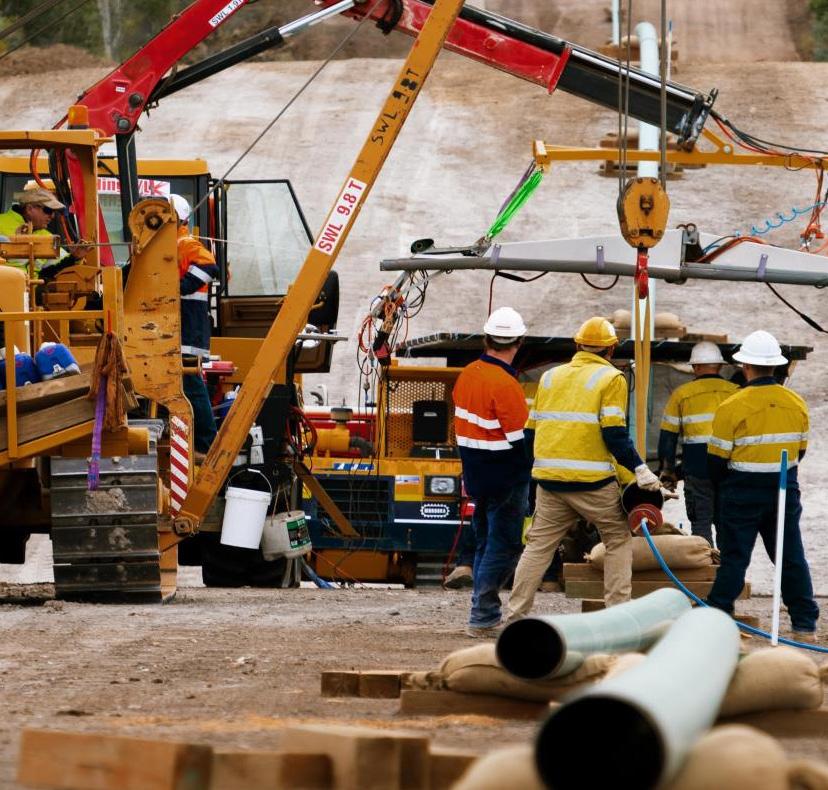
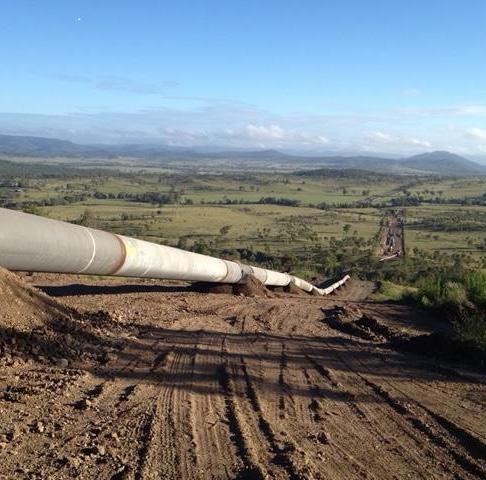
The proven performer, P&G Welding have a HSE record second to none with zero LTIs, TRIFR and total employee engagement. P& G will ensure the critical path on your pipeline project, quality welding, is delivered safely and ahead of schedule.
glittle@pgwelding.com.au
0408516322
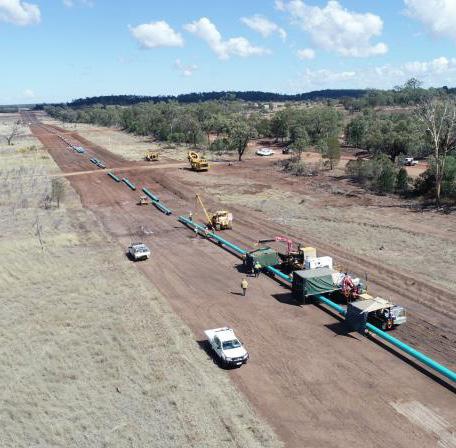

“It was only a 12.5km pipeline, but due to the urban environment, 70 percent of it was installed using our in-house HDD methodology provided by HDI Lucas.”
Currently, Spiecapag Australia is working on a very interesting slope stabilisation project for a mine in the New Ireland region of PNG.
In a slight departure from its core business of constructing pipelines, which is the company’s bread and butter, Spiecapag is building a 240-metre high retaining wall in a geothermally active environment, through a JV with Menard Oceania (Menard), another of its VINCI Group sister companies.
“Combining our expertise in PNG with Menard’s ground anchor specialty made for another successful JV,” acclaims Mr. Walsh.
“As part of VINCI Group, we try to leverage its capabilities and form

JVs with sister companies, such as Menard, Seymour Whyte, or others further afield. However, we remain open to partnering with other players in the industry if the right opportunity comes up, and regularly do.”
In parallel, Spiecapag has teams on the ground on Barrow Island off the coast of WA, where the company is working on the shore approaches for a cable landfall as part of Chevron’s
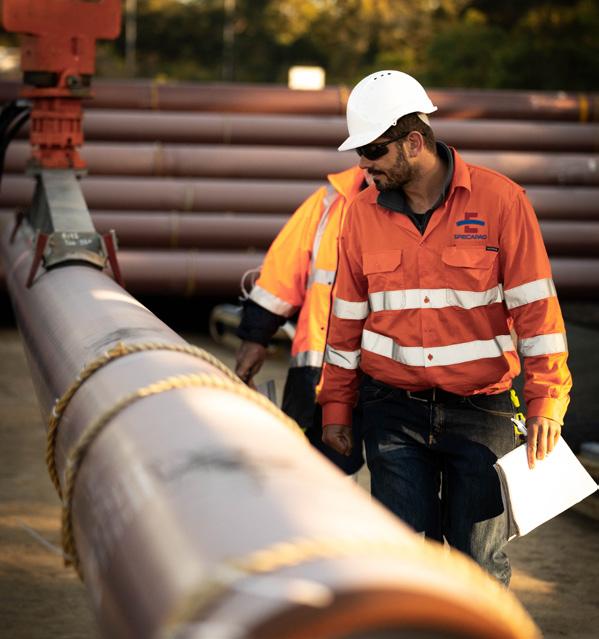
expansion of the Gorgon LNG project.
Spiecapag is also in the process of completing a 51km high-pressure steel gas pipeline in the southeast of Australia. This proved to be on a challenging suburban route, as part of the Western Outer Ring Main (WORM) project on the outskirts of Melbourne on behalf of APA.
At the same time, Spiecapag is currently mobilising to build
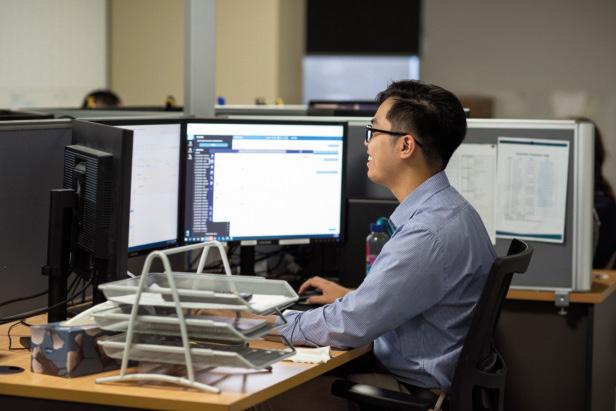
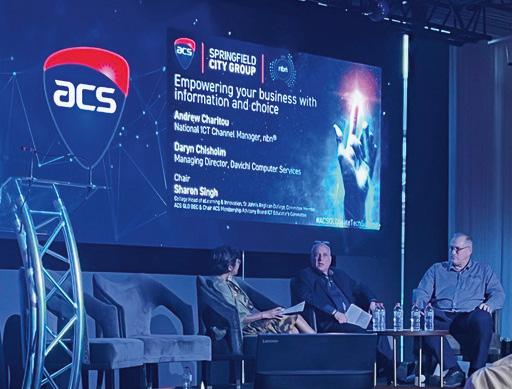


For over two decades, Davichi has been a beacon of innovation and reliability in the IT services industry. Our unwavering commitment extends to diverse sectors such as Construction, Manufacturing, and Engineering, providing invaluable support and expertise.
Our enduring partnership with Spiecapag Australia since 2010 speaks to our trusted reputation as their ICT service provider. Whether it's embedded IT support in Brisbane, remote assistance across Australia and PNG, or on-site support for Speicapag’s significant projects like the ExxonMobil PNG LNG Project, Lihir Ground Stabilization Project on Lihir Island, PNG, or the Northern Gas Pipeline (NGP) Project for Jemena, QLD, we are there every step of the way.
Understanding the complex IT security landscape, our team remains at the forefront of industry advancements, following the Australian Cyber Security Centre's Essential 8 principles. We empower our partners with essential strategies to bolster cybersecurity and mitigate threats effectively.
But our commitment doesn't stop there. Davichi isn't just an IT and cybersecurity specialist; we offer high-speed internet, Voice PBX hosting, Microsoft 365 solutions, and a full suite of IT equipment.
Join our community of satisfied partners for improved efficiency, reduced risk, and enhanced business operations. Your success is our priority. Contact Davichi today to transform your IT environment and secure your digital future.
underground facilities and a connecting pipeline linking a new gas-fired power station in the town of Kurri Kurri to the existing Sydney to Newcastle Pipeline.
This will supplement Snowy 2.0, one of the largest pumped hydro system projects in Australia, ensuring security and stability in electricity supply to support the volatility that arises from intermittent renewables.
Much like natural gas, hydrogen will need to be produced and transported, as Australia casts itself as a future renewable energy superpower.
The company sees pipelines as the most efficient mechanism for its transportation, so the skillsets that Spiecapag Australia has developed over the years through its numerous gas projects are highly transferrable to the hydrogen space.
“The hydrogen production
technology is still being proven, but increasingly, scale production facilities are being discussed,” Mr. Walsh says.
Spiecapag has already started working on a number of feasibility and constructability studies for hydrogen projects around Australia.
The country’s government expects hydrogen exports to be worth up to AUD$10 billion by 2040, with higher growth potential than LNG exports.
Spiecapag Australia’s HDD business, meanwhile, is equally wellpositioned to support the emerging offshore wind industry.
“There are currently no offshore wind projects in Australia, but we will be watching this space in the coming years,” affirms Mr. Walsh.
Several different countries in AsiaPacific are looking at offshore wind, and Spiecapag sees these projects as likely to benefit from the work it has done for clients across the region, assisting them to minimise the environmental impacts of bringing
power onshore and on to existing transmission networks.
As transmission lines are increasingly buried, the company also expects increased HDD opportunities alongside pumped hydro, another area of growth that Spiecapag will be looking at along with its other sister companies in VINCI Group.
“Our main goal for the coming year is to successfully deliver all of our projects safely, on time, and on budget to the complete satisfaction of our clients, to ensure we maintain our position as the leading pipeline and HHD contractor in Oceania,” Mr. Walsh concludes.

SPIECAPAG AUSTRALIA
Tel:
+61 7 30142190
www.spiecapag.com.au

With the oil and gas industry undergoing a rapid evolution, Ian Meynink, Chief Development Officer of Westside Corporation, speaks to us about the ways in which the company is leading the way for the future of energy productionWriter: Lauren Kania | Project Manager: Ryan Gray
As a small, privately owned oil and gas company with operations across Queensland, Australia, and New Zealand, Westside Corporation (Westside) has been leading the way in the energy industry for nearly two decades.
The company’s vision is to pave the way for Australia’s oil and gas industry through safety, people, performance, and cost.
Westside intends to do so through: adding value by having a resultsdriven, innovative, and agile mindset; being valued by holding each other accountable, and working as a team; and valuing others by showing respect for all stakeholders, along with being honest and ethical.



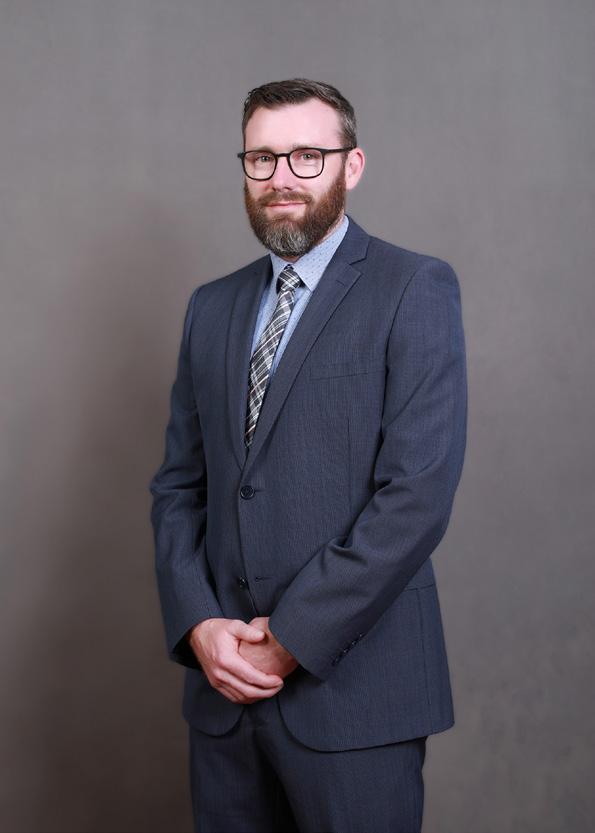
“Westside is a very innovative company that has historically driven optimisation and improvements in a number of areas,” opens Ian Meynink, Chief Development Officer of Westside.
Having been in the oil and gas industry for over 20 years, Meynink
“WESTSIDE IS A VERY INNOVATIVE COMPANY THAT HAS HISTORICALLY DRIVEN OPTIMISATION AND IMPROVEMENTS IN A NUMBER OF AREAS”
– IAN MEYNINK, CHIEF DEVELOPMENT OFFICER, WESTSIDE CORPORATION
has brought a wealth of experience in subsurface, reserves and resources, field development, and, most importantly, passion to the team at Westside.
“As an engineer, I have always thought of the energy industry as not only vital to the well-being of all Australians, but also one that is incredibly interesting and dynamic,” he elaborates.
“Living and working in Australia, I believe that we are very lucky to have so many resources and large-scale projects available for us to be involved in.”
Since its inception, Westside has placed a strong focus on growing
production and reserves and improving drilling and connection efficiencies in its strategically located acreage in a safe and environmentally responsible manner.
The company’s primary asset is the Meridian coal seam gas (CSG) field in Central Queensland, near the town of Moura, which is currently producing 40 terajoules per day (TJ/d) of gas.
With 80 employees along with local contractors across Westside’s various operations, the company provides gas to the domestic market through gas sales agreements (GSAs) with CleanCo, Alinta, and QNP, as well as to Gladstone LNG (GLNG), a major gas customer within the field.
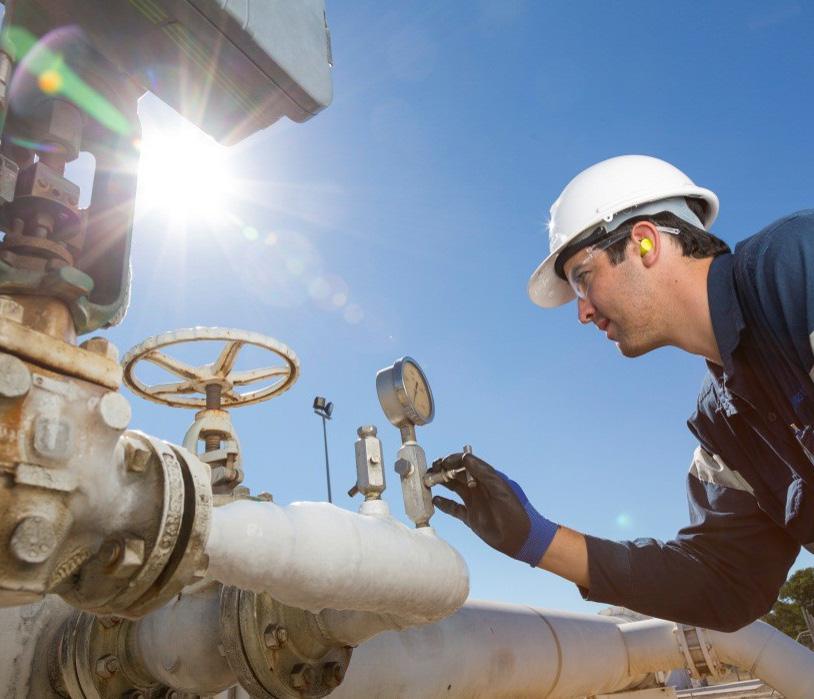
“Right now, the energy industry is an extremely exciting place to work in, particularly at this point in time with the push towards a lower carbon footprint,” incites Meynink.
“Whilst the oil and gas industry has admittedly had a bit of an image problem off the back of poor public perception towards fossil fuels, gas specifically is key in the transition to net zero,” he continues.
With the current high demand for gas in Australia and around the world, the industry is more important than ever.
Recently, it has been a challenge to attract investment in new oil and gas projects, but with a more stable government policy framework and a lack of proven reliable energy alternatives, such projects are important to protect and progress, and Westside is working diligently to do so.
In addition to the Meridian field, Westside has oil and gas assets in the
Rimu, Kauri, and Manutahi fields in Southern Taranaki, New Zealand, as well as an exploration permit in the Taroom Trough with Australia Pacific LNG (APLNG) as its joint venture (JV) partner.
Such JV partners are critical to the success of any business, and Westside is extremely cognisant of these vital relationships and how they ultimately allow for continuous growth and innovation.
The company likewise holds an equally close technical and commercial relationship with Mitsui, a 49 percent JV partner in the Westside-operated Meridian CSG asset who has been working with the company for over a decade.
“Mitsui has been a key member of the Meridian field, having been involved since its inception, and is still a JV partner in the adjacent Dawson coal mine,” notes Meynink.
With these relationships built on a foundation of trust and reliability, Westside has been able to achieve
2005: Begins operating as an incorporated company.
2007: Is listed on the Australian Securities Exchange Ltd (ASX).
2010: Completes the transition from explorer to producer and acquires a 51 percent operating interest in the Meridian gas fields near Moura in Queenland’s Bowen Basin.
2014: Signs a 20-year GSA with GLNG and is acquired by Landbridge Group.
2016: Enters New Zealand’s oil and gas market.
2018: Signs a two-year GSA with Orica in order to supply gas from the Meridian field to the domestic market.
2020: New petroleum leases granted in the Meridian field contiguous to the north.
2021: GSAs signed with CleanCo and Alinta in order to supply gas from the Meridian field.
2022: GSAs signed with QNP to supply additional gas from the Meridian field to the domestic market.
milestones, including drilling improvements compared to 2016, where the time spent on each lateral well dramatically reduced from 18 days to just under 10, whilst the cost of each lateral well has reduced by over 30 percent.
Currently, the company is drilling lateral wells in the Meridian field with two rigs and is planning to drill 100 kilometres (km) of reservoir coal for the calendar year.
Aqualyng is a fully integrated water platform helping Westside Corporation, and many other industries, solve complex water challenges through our innovative and smart solutions, cutting-edge technology, and trusted team of experts at the forefront of Water 4.0.


talktous@aqualyng.com aqualyng.com

With the cultural mindset shifting towards long-term sustainability and environmental awareness, Westside is committed to having a positive impact in all areas in which the company operates.
The three pillars Westside has ingrained into its culture are that of people, environmental impact, and community.
“We take our corporate responsibilities very seriously, particularly in relation to the small
REHABILITATION – Westside has successfully rehabilitated areas of impact, exceeding the requirements of its operating license.
FUEL FLARE AND VENTING – The use of fuel flare and venting is minimised using an established system to bring wells online as quickly as possible.
WATER MANAGEMENT – Westside operations do not fall within the area of the Great Artesian Basin, so water production is minimal. Any excess treated water is utilised beneficially for landholders in farming operations and stock water.
WASTE MANAGEMENT –Westside has an ongoing focus on the beneficial and efficient use of resources to minimise waste.
REDUCING WESTSIDE’S FOOTPRINT – Significant investment in well design and construction improvements is ongoing to reduce the footprint of Westside’s field operations.
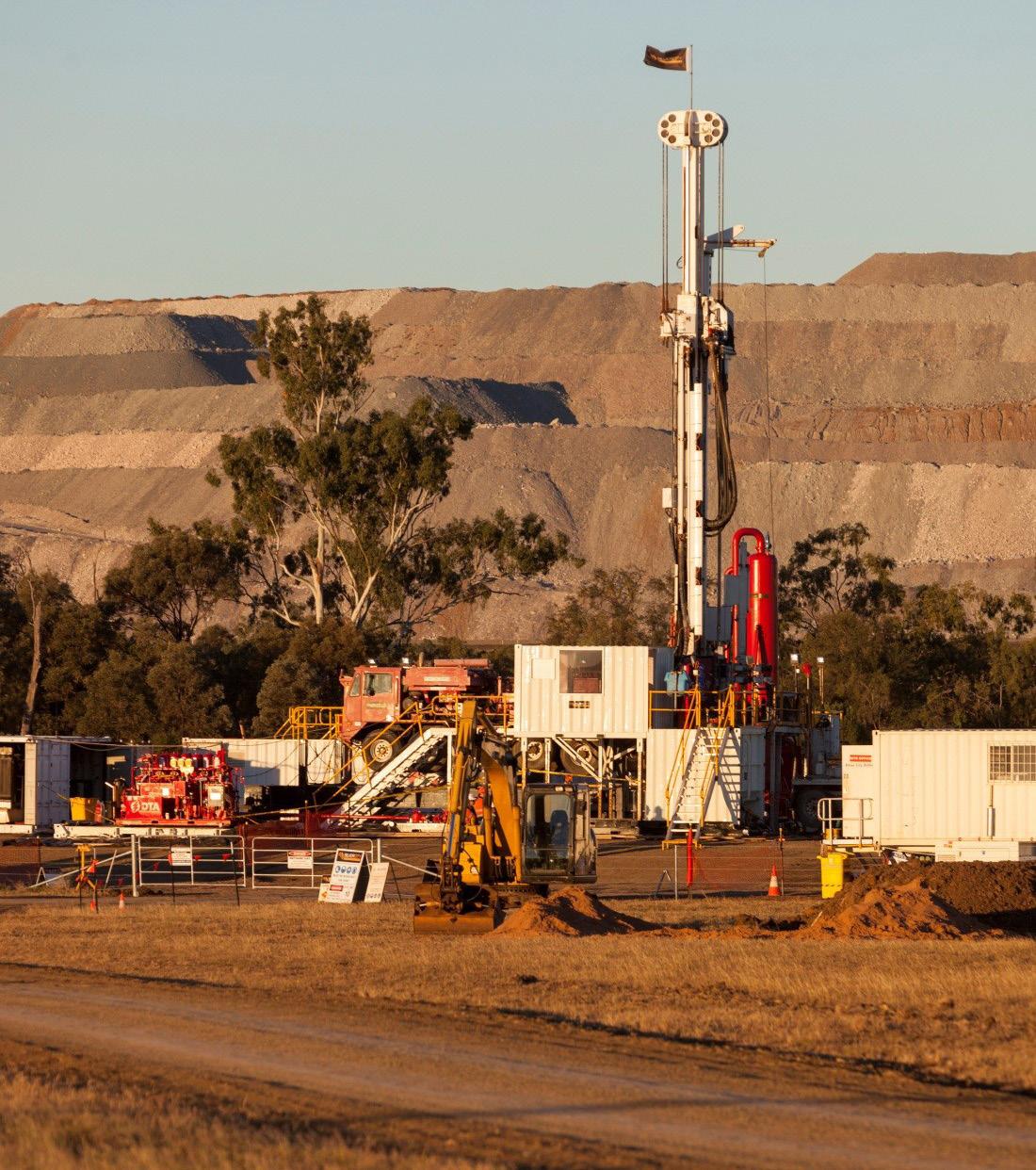
communities in which we operate,” enthuses Meynink.
Actively participating in local communities, Westside works closely with traditional owners and landholders to ensure ongoing communication and consultation in all areas of operation.
For example, within the company’s petroleum leases in the Meridian field, it has entered into voluntary cultural heritage investigation and management agreements with the traditional owners, which formalise the company’s continuous dedication to protecting and managing cultural heritage within its tenements.
Additionally, Westside’s goal has always been to work constructively and proactively to minimise any impact on local livelihoods and lifestyles.
Equally important are the people within the business who work diligently on a daily basis to ensure success, and Westside readily recognises this.
“The people, partners, and suppliers are what make Westside such a wonderful place to work. They are key to our success and what really drive the company forward,” comments Meynink.
“We are nothing without our people. We pride ourselves on being a very innovative company, look to work with like-minded businesses, and seek driven staff to come onboard,” he continues.
With such a talented, vibrant, and diverse workforce, the company is able to offer a team of highly skilled individuals across a range of technical disciplines and support services in the oil and gas industry, while also using specialist and highly competent contractors to support the business in key areas.
Ultimately, Westside takes its corporate social responsibilities to heart and is steadfastly committed to ensuring that it works together with the local community and minimises any negative environmental impact.


Silver City Drilling Pty Ltd is an Australian owned and operated independent company, specialising in deep directional drilling for the oil and gas sector. With headquarters located in Alice Springs, Australia, we enjoy national reach, with operational bases in Two Wells (SA), Perth (WA), Dalby & Moura (QLD), Birdsville (QLD).
Silver City Drilling Pty Ltd has proudly partnered with Westside for over nine incident-free years. Our industry leading drilling team ensures that Westside can continue to successfully explore and produce quality gas and oil from its fields in Queensland.
Over the years, we have developed track record in forging professional relationships with a vast range of clients and key stakeholders. Our extensive support network and backup services consistently meet or exceed the high standards required by our clients. Our combination of fully maintained modern drilling equipment, technical expertise and comprehensive maintenance programmes ensures that we continue to be leaders in safety and productivity. Furthermore, our crews are overseen by experienced managers and supported by extensive in-house and external expertise.
Our proven services include full-service exploration, development and production well drilling as well as a complete range of well-servicing operations (workovers, completions and directional downhole steering). In addition, Silver City Drilling Pty Ltd boasts directional drilling depths of up to 3,500m, which enables us to implement industry leading drilling for our partners.
Finally, our well-equipped, modern fleet means that we are unrivalled in our excellence. We provide a complete range of drilling rigs and ancillary equipment to cater to all clients’ needs. These include a high-capacity Gallagher 660 vertical drilling rig with over 600,000lb Hook Load, Schramm T500XD 500,000lb Hook Load and 5 Schramm 200,000lb Hook Load Gas Rigs right through to a Schramm 685 rated at 90,000lb for shallow goaf style wells.
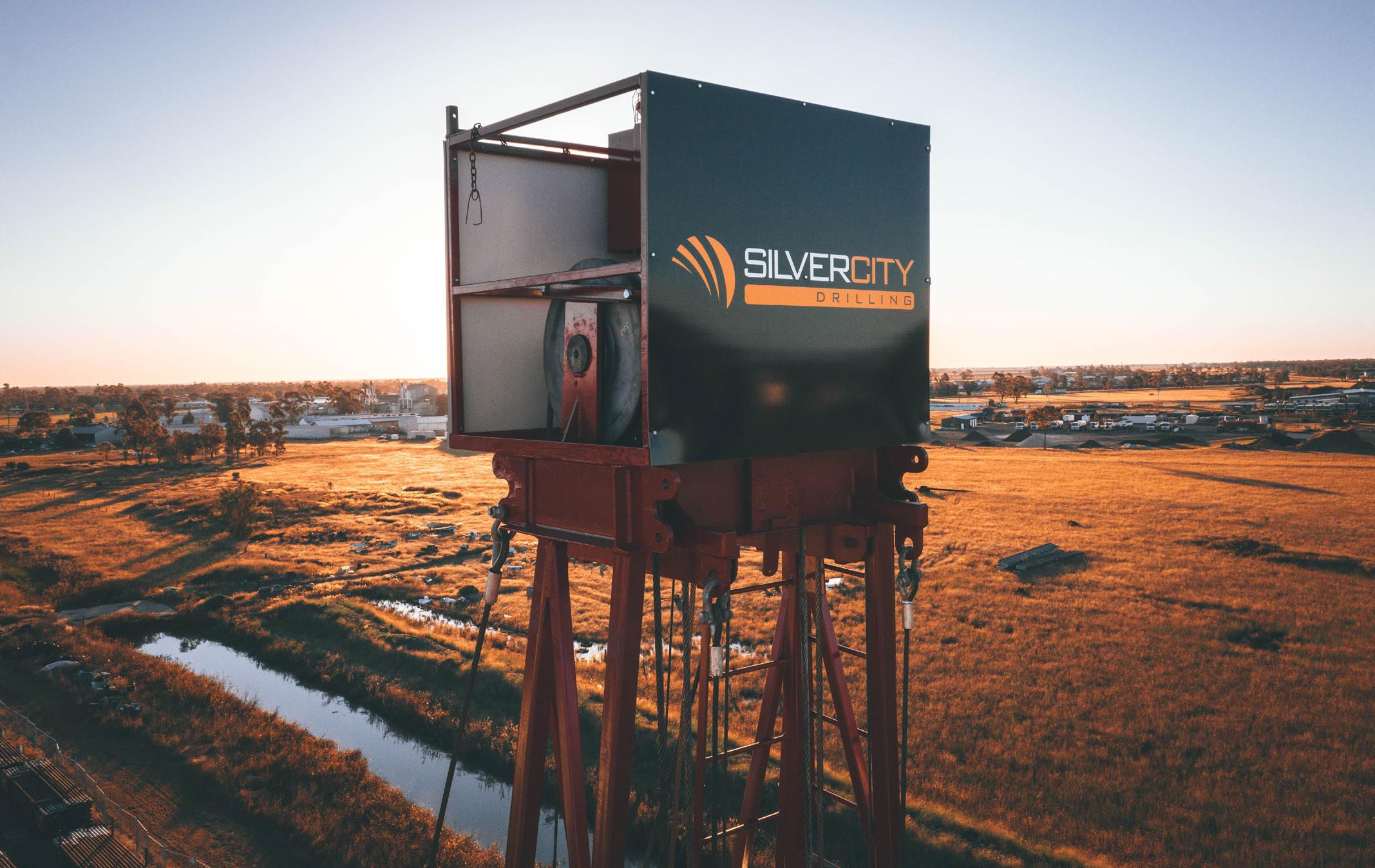


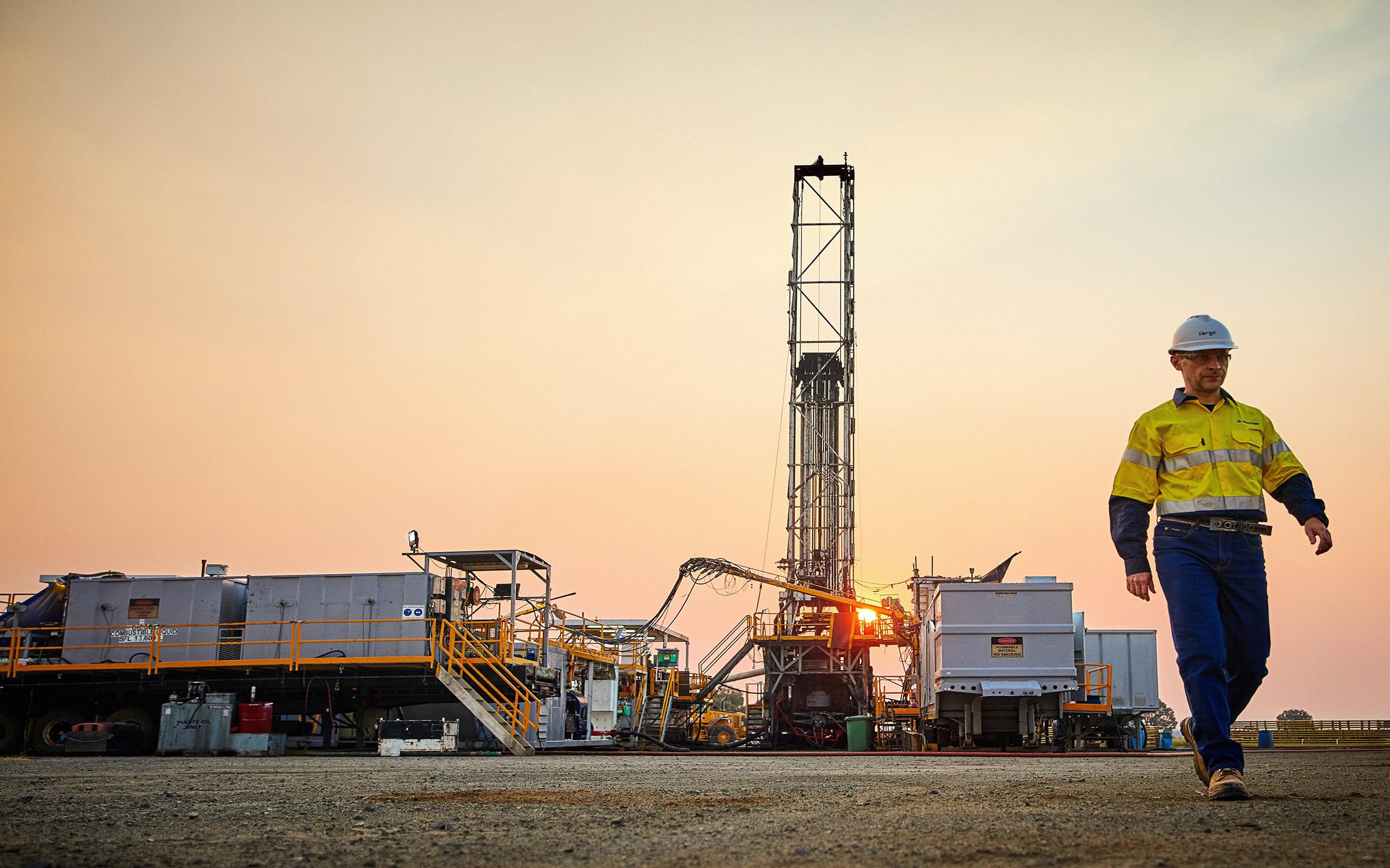
As a number of the initial Queensland CSG fields begins to decline, there is pressure to maintain, or even increase, gas production to both the domestic and global markets.
“This will be a considerable challenge for the industry. Our vision is to cultivate bespoke ways to make the most of each resource opportunity in order to meet this demand. A very important key to that success is to have the right people whilst delivering the projects in a safe and sustainable manner,” explains Meynink.
Westside is maintaining that mindset as it looks towards the future with a plethora of innovative projects under its belt.
One such project that boasts enormous potential is the Kauri sandstone oil leg in New Zealand. This oil leg, which is 300 to 400 metres (m) in thickness, extends over both Westside’s onshore production permits and has two to three billion barrels of oil in place.
Additionally, Westside is looking to continue to increase its gas
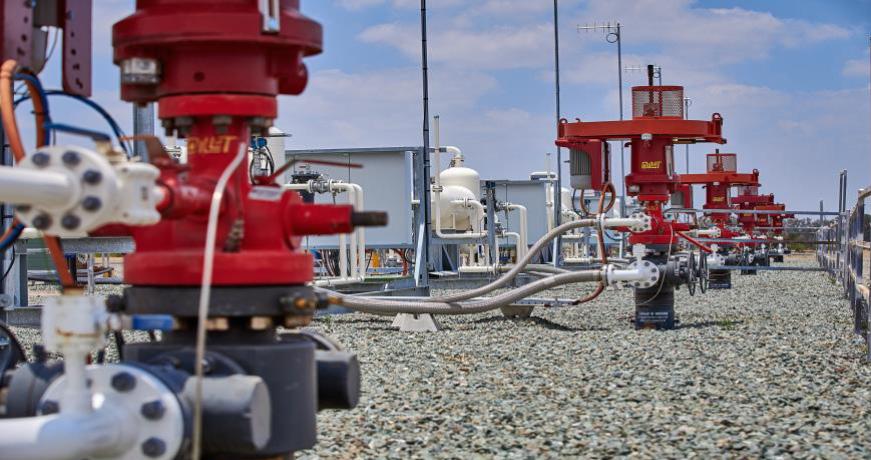
production rates from the Meridian field by drilling in newer areas.
“We will also be progressing the Taroom Trough exploration programme, identifying the best location for the exploration well in 2025, and looking to find a partner to appraise and develop the Kauri oil play,” he expands.
Despite challenges that may have been thrown in the industry’s way, Westside continues to make strides that will allow for the paralleled growth of both oil and gas and sustainability efforts.
“Our goal is to work in harmony with the local communities in which we operate and be the most innovative, low-cost onshore gas developer and operator in Australia and New Zealand whilst maintaining our exemplary safety record,” concludes Meynink.

WESTSIDE CORPORATION
Tel: +61 7 3020 0900
info@westsidecorporation.com
westsidecorporation.com

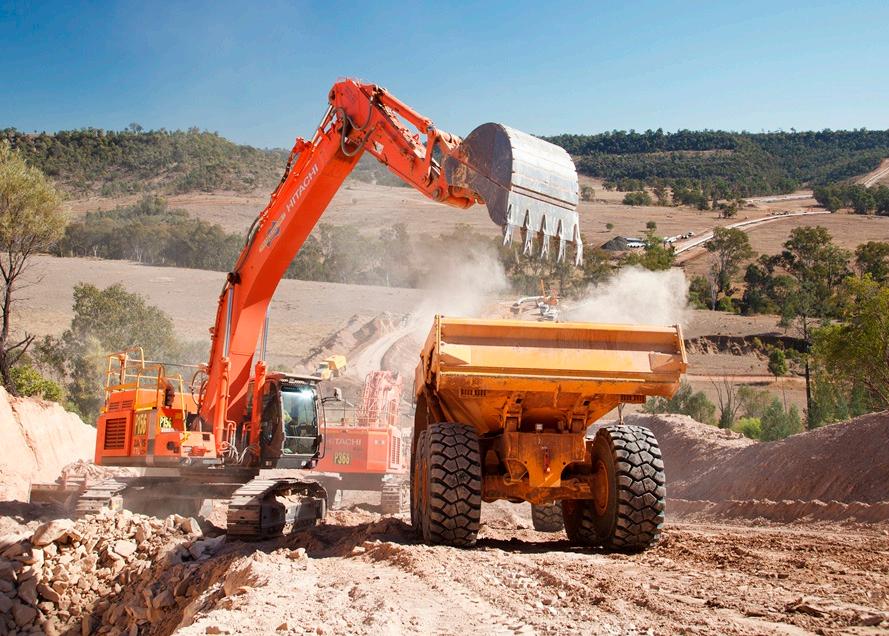
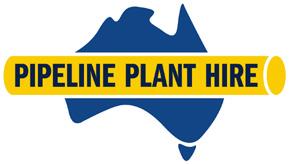




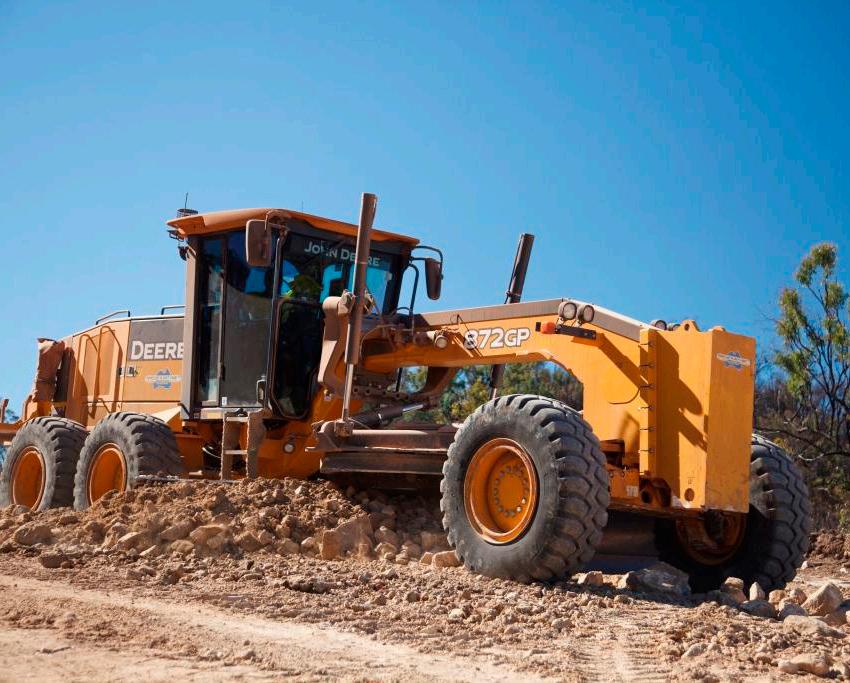

One of the company’s most productive attachments is its large range of VacLift equipment designed and built in Australia. We have developed a strong relationship with Westside Corporation supplying multiple items of equipment as well as personnel to their field development project. Pipeline Plant Hire prides itself on its speed of delivering a complete solution to solve project problems.
The company works with the Australian pipeline construction industry to improve safety and productivity in the workplace, wherever that may be.
Village National Group provides leading workforce accommodation for the oil and gas sector, amongst other industries, across Australia. Chris West, CEO, tells us moreWriter: Lily Sawyer Project Manager: Joshua Mann
Strong commodity prices and a growing oil and gas market in Australia have seen the demand for workforce accommodation continue to increase in recent months.
As demand drives production, more workers need to be accommodated.
Based in Queensland, Village National Group (Village National) is a leading provider of workforce accommodation solutions. The company operates with two distinct divisions: Village National Fixed Camps (VNFC) and Village National Mobile Camps (VNMC).
VNFC offers strategically located static facilities in key resource-rich locations across the country, while VNMC provides flexible mobile camp solutions that can accommodate a
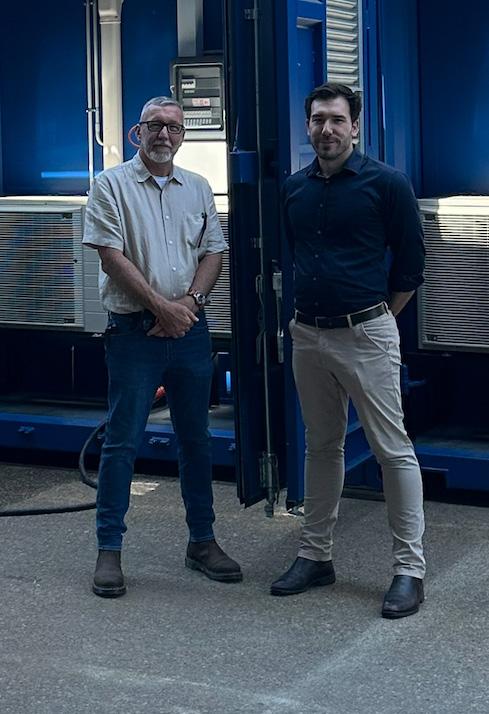
workforce anywhere at any time.
“In some locations it has become very difficult for organisations and their workers to find accommodation, and most of our facilities are running with occupancy rates very close to 100 percent,” opens Chris West, CEO of Village National.
“There is unsatisfied demand across many of our regional centres and this is good for both us and the communities; local businesses also benefit from an influx of workers,” he reveals.
Village National was founded on a desire to provide generous hospitality to some of Australia’s most isolated workplaces and has built a reputation for delivering high-quality services and facilities to its clients, regardless of potentially remote locations.

“IF WORKERS AREN’T WELL RESTED AND WELL FED, THEY ARE NOT HAPPY, AND THIS DIRECTLY CORRELATES TO ON-THE-JOB PERFORMANCE AS WELL AS THEIR HEALTH AND WELL-BEING”
– CHRIS WEST, CEO, VILLAGE NATIONAL GROUP
The company is an unlisted public entity limited by shares and boasts approximately 220 employees working across three companyowned facilities, located in Moranbah and Emerald, Queensland, as well as approximately 25 teams deployed across numerous mobile camps located throughout Australia.
The group services a variety of industries, from coal mining to oil and gas, construction, renewables, and exploration.
The secret to providing good accommodation is simple – comfy beds and delicious food, served by friendly, helpful staff.
Cooking teams within Village National have the freedom to create their own menus and order their own stock with little supervision. To facilitate this initiative, the company sets a per-person, per-day budget and each chef works to this,
allowing individuals the freedom to demonstrate their culinary flair.
“We expect our chefs to know their clientele and cook accordingly – for example, a client group comprised of fitness enthusiasts may want a high protein, low carbohydrate menu, whilst other clients may not; giving our chefs the flexibility to build their own menus ensures both groups can be catered for,” explains West.
Village National aims to develop a reputation within its camps as ‘homely’. Its teams are trained to understand that life for those on a fly-in, fly-out (FIFO) or drive-in, drive-out (DIDO) roster isn’t easy, and as a result they genuinely care about guests.
“Our staff generally know our guests on a first name basis – many of them have stayed permanently in our camps for years. “This results in a can-do attitude with no problem too big or too small to solve,” details West.
Village National’s eco-cabins:
• Are larger than standard cabins (standard is 12-14 sqm)
• Use eco-friendly composite building materials from an innovative blend of 95 percent recycled wood and plastic
• Reduce greenhouse gas emissions by using less concrete and steel
• Promote energy efficiency and thermal insulation by using double glazed windows and glass sliding doors
• Can be easily removed and recycled with very little effort, as they use screw piles and base frames instead of conventional foundations
• Are resistant to fire, earthquakes, termites, mould, and rot, which reduces the need for maintenance and repairs
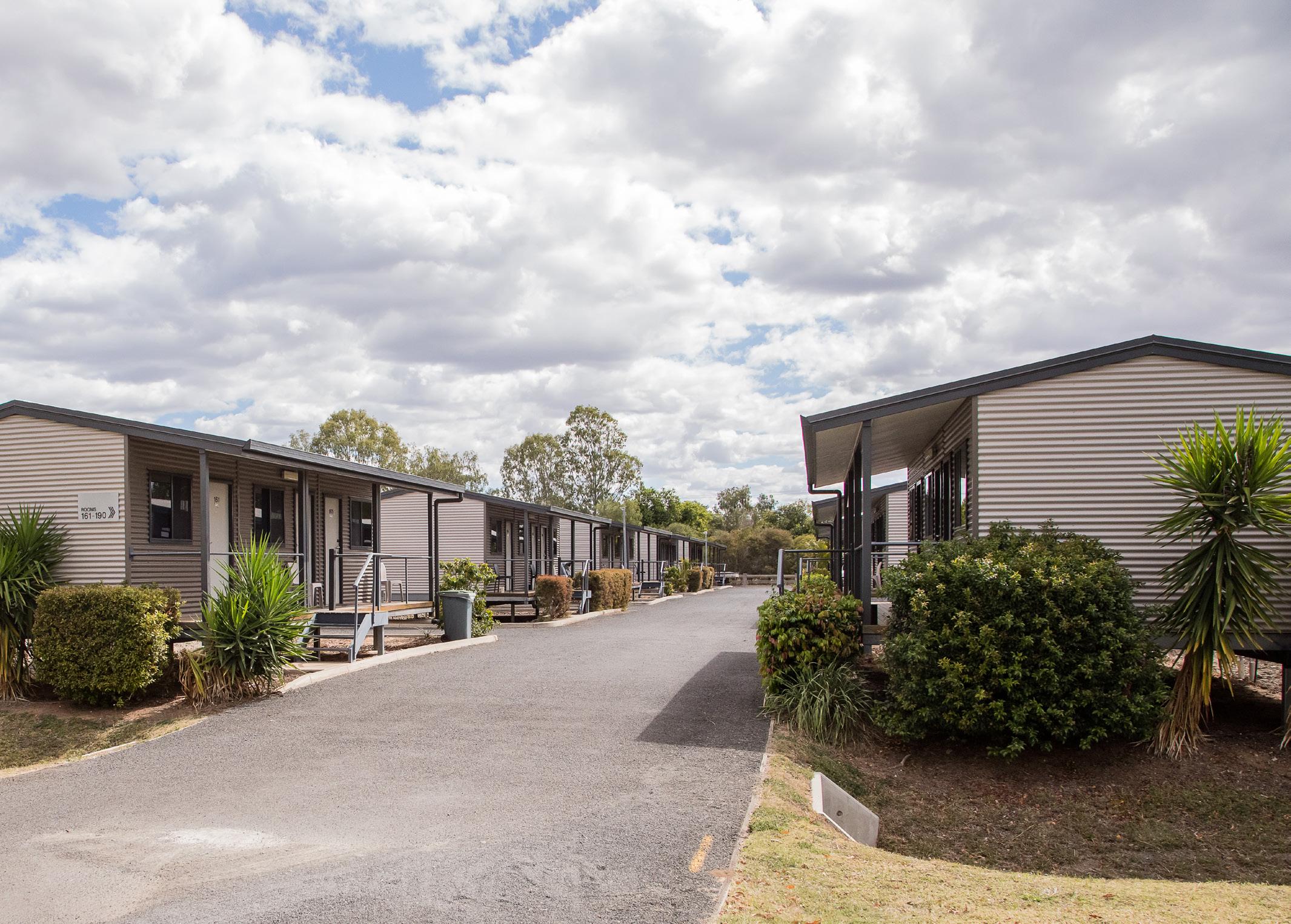
Since our start-up in 2011, we have delivered an innovative and modern approach to building techniques. Our main goal with the Luxwood Building System was to introduce an eco-friendly building method which is affordable to many individuals globally. Today, we have built homes in 22 countries across the world, across 200+ projects. The Luxwood Building System has been hailed for its improvements to traditional methods through having a fire rating of up to five hours, surviving a magnitude 9.0 earthquake, an increased speed of construction and, of course, positive environmental impacts.



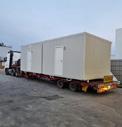

Meet Mark – The Eco-Revolutionary!
Mark’s story began in 1997, with a mission fuelled by a brilliant idea. Inspired by his education, he set out to transform construction methods while tackling pollution head-on. His journey has been nothing short of remarkable. Since 1997, Mark has relentlessly pursued a cost-effective building method that even non-skilled laborers can assemble with ease. It took over a decade, but in 2008, he achieved a breakthrough with the birth of the first successful panel, and that was just the beginning. Today, we proudly produce eco-friendly composite building materials, innovatively crafted from an astounding 95 percent recycled polymer – almost the entire package! We’ve upheld this commitment for over two decades because, in the end, we all want to know that we’ve done our part.


Join Mark and us on this journey toward a greener, more sustainable world. Discover the eco-friendly revolution that’s changing the game. Together, we’re building a brighter future for our planet, one panel at a time.

Fresco’s Quality Meats has been supplying premium quality beef, lamb, chicken, game, small goods, and pork since 1991. As a team, we pride ourselves for being a leader in portion control and vacuum packing of fresh and frozen meat products in Australia.

Fresco’s Quality Meats is ‘FoodSafe Queensland’ and HACCP accredited and has a state of the art temperature controlled modern factory as well as delivery vehicles suited to both fresh and frozen delivery. All stock is checked and all critical control points are monitored daily by our Quality Assurance staff.
Fresco’s Quality Meats has been supplying the Bowen Basin as well as customers in the Northern Territory with portion controlled; vacuum packed products on a regular basis and continues to keep up to date in the latest packaging technologies. We have a competent staff complement of 10 qualified certified butchers so as to ensure the highest standard of cutting and product leaves the facility.


The company allows any individual or manager to internally recognise an employee for an outstanding performance or achievement – or just to say thank you.
Village National’s ‘Years of Service’
recognition programme further motivates staff to strive for the best.
“When we receive direct client feedback, we publicly recognise this via social media channels, as well as internally,” West adds.
VILLAGE NATIONAL EMERALD – Located close to Emerald’s town centre, Village National Emerald is perfectly located for people working in the nearby coalfields and tourists visiting local gemfields. Offering single and double room options, each includes an ensuite bathroom, and a host of other facilities.
VILLAGE NATIONAL MORANBAH – Situated minutes from the Moranbah coalfields, Village National Moranbah is particularly renowned for its central town location. The accommodation has 435 rooms offering a range of options to guests including premium single person rooms, double cabin rooms (some with kitchenettes), BBQ areas, landscaped grounds, and an airport pick-up and drop-off service.
VILLAGE NATIONAL ISAAC – Also situated in the heart of Moranbah, this facility offers higher-end motel style accommodation. It has a bar and restaurant as well as under cover parking. The 93 rooms have recently undergone a refit and the restaurant has a brand new kitchen.
These accommodations boast a range of other facilities, including Wi-Fi access, air conditioning, tea and coffee making facilities, and more.
All facilities provide breakfast, lunch, and dinner, and can even cater for events and functions if required. Village National’s resident chefs use local produce and prepare menus seasonally; the freshness and variety of choice is second to none.
Alongside internal initiatives to cultivate innovation and staff wellbeing, Village National supports local enterprises. By engaging with local communities and purchasing local produce whenever possible, the company aims to empower small businesses.
“We engage with local Indigenous groups, have an Indigenous Engagement Plan, and are working towards a Reconciliation Action Plan,” outlines West.
By engaging with local schools and regional technical and further education (TAFE) facilities as part of its employment strategy, Village National plays a part in bolstering the local economy and developing beneficial opportunities for local people.
Industry wide, Australia has seen a push to improve both the quality of food offerings and facilities at many workforce accommodation camps across the country. Village National has always been passionate about prioritising the employee experience, placing it at the heart of its operation.



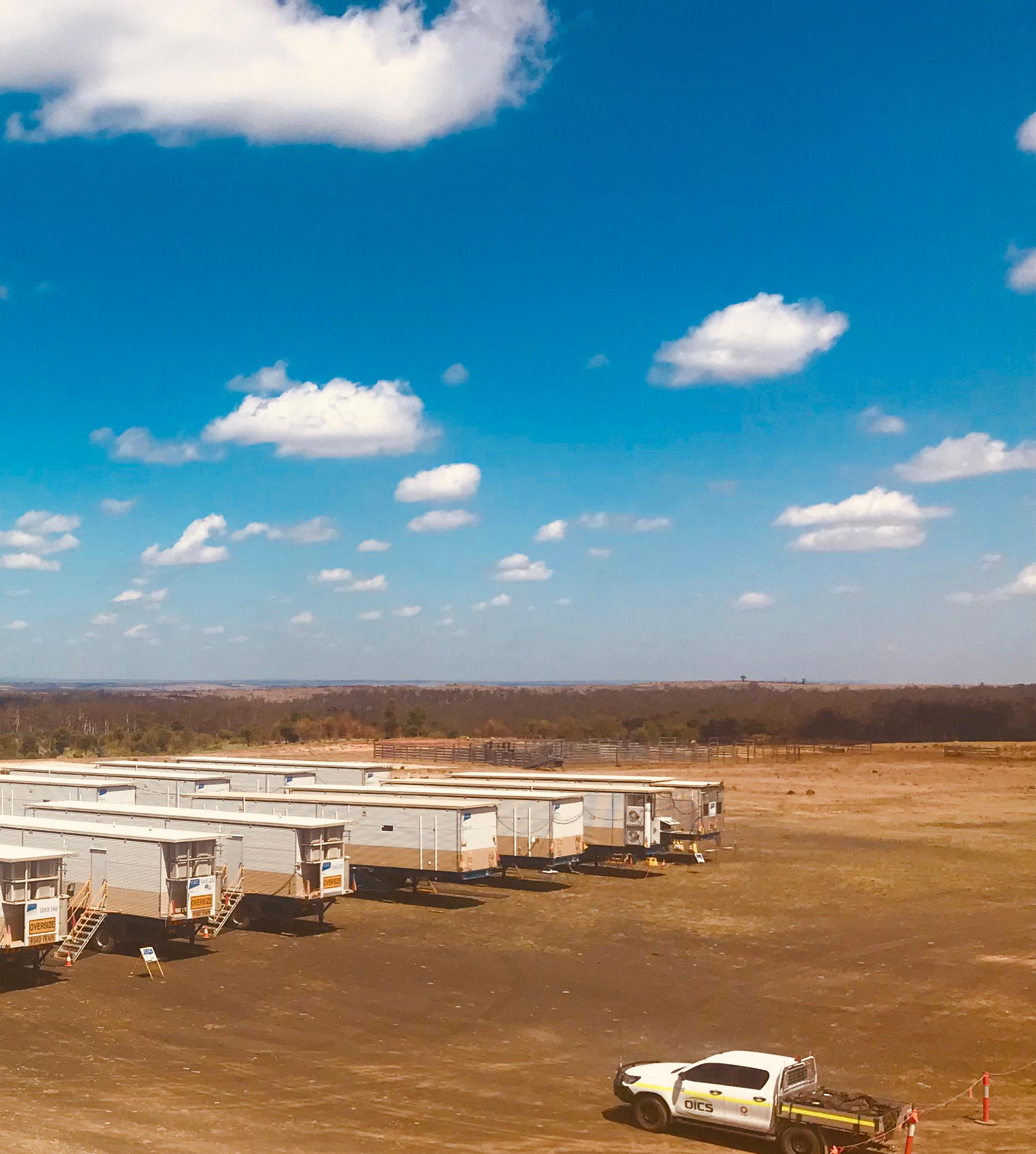
“If workers aren’t well rested and well fed, they are not happy, and this directly correlates to on-the-job performance as well as their health and well-being,” emphasises West.
Village National’s food offering is distinctly different and stands out from the crowd. In each location, the company does not prescribe to a fixed, cyclic menu.
“To guarantee we satisfy everyone’s needs, there must be several options presented at each meal service. We are well known for the high standard of our food,” he states.
Furthermore, Australia has seen demand for an increase in average room size, and Village National has
responded with its current new builds.
At 20 square metres (sqm) per room, the company’s offering is significantly more than the industry standard, with older rooms measuring less than 12 sqm.
“Our new rooms are industryleading – at 20 sqm, they are 60 percent bigger than a standard room,” excites West.
Additionally, Village National strives to develop rooms that are more sustainable with a lower environmental impact, from both a materials and energy efficiency perspective.
Made with a recycled product, double-glazed, and completely isolated from each other, Village
National’s rooms are soundproofed, thermally insulated, and exceptionally quiet – a perfect offering for night shift accommodation.

As Village National continues to expand, its vision for the future means growing its outreach and upgrading its facilities.
“In the last 12 months we have continued to improve our facilities. We installed a new kitchen diner facility in Emerald, capable of feeding 400 to 500 people per day. This building was constructed using the same ecofriendly materials we have integrated into our new rooms,” outlines West.

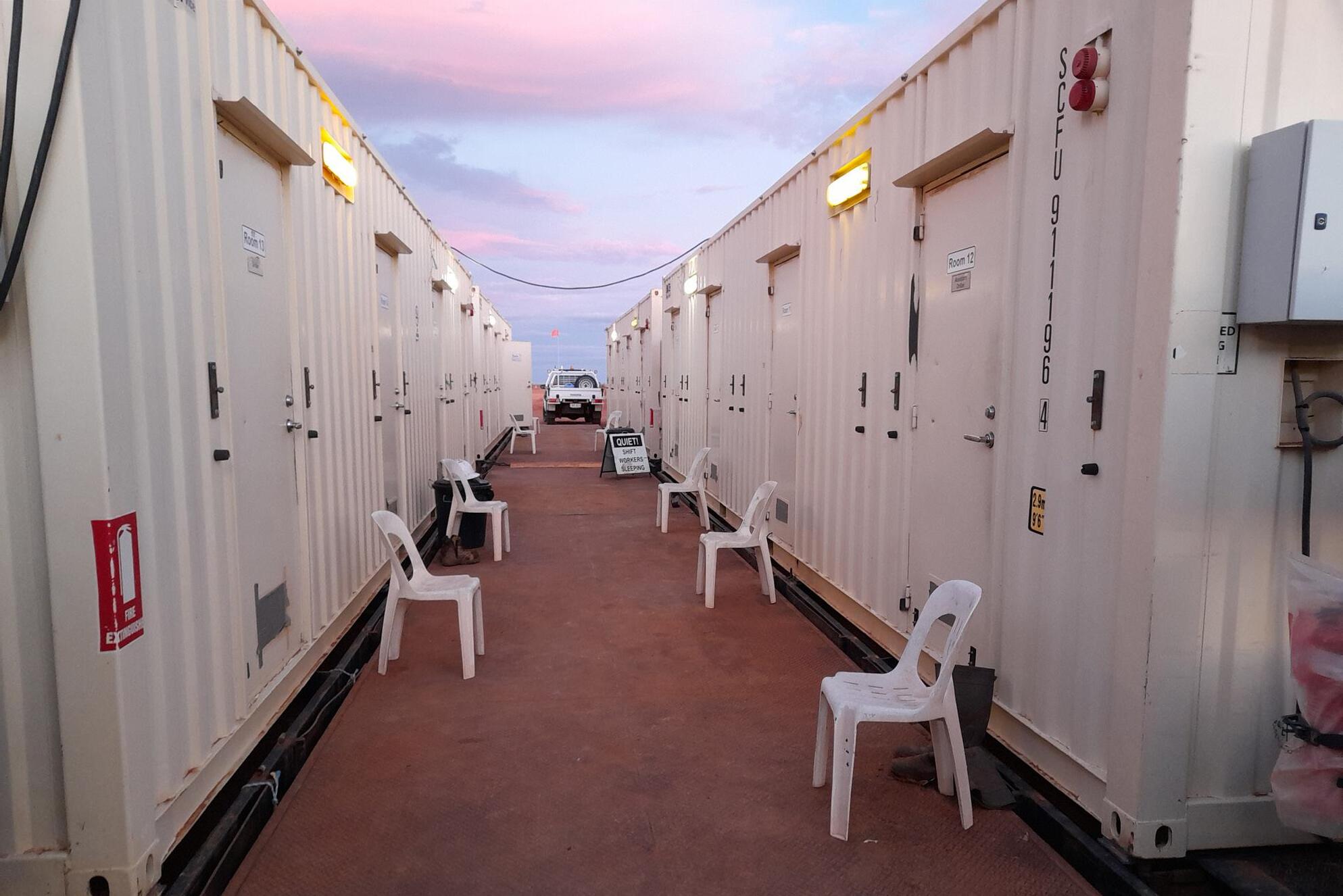
“OUR STAFF GENERALLY KNOW OUR GUESTS ON A FIRST NAME BASIS– MANY OF THEM HAVE STAYED PERMANENTLY IN OUR CAMPS FOR YEARS”
– CHRIS WEST, CEO, VILLAGE NATIONAL GROUP
In other locations, the company has extended kitchen facilities, constructed new laundries, and installed new eco-cabins.
Village National has big plans to expand its fixed camp footprint in an environmentally-friendly way, using purpose-built eco-cabins. Most of this expansion will occur in the coming 12 months.
“We have expansion plans that will add capacity to all our facilities. This growth will be comprised of 20 sqm eco-cabins and will provide improved amenities alongside green advantages,” he details.
Furthermore, the company is constantly on the lookout for merger or acquisition opportunities.
Businesses that suit the company’s
strategic plan are especially advantageous to Village National, as it actively diversifies its business into adjacent markets.
“We are currently working on renewable energy sites, and are actively pursuing additional opportunities in that sector,” West concludes.
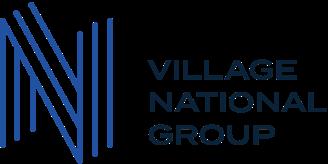
VILLAGE NATIONAL GROUP
Tel: 07 3185 1759
info@villagenational.com.au
villagenational.com.au
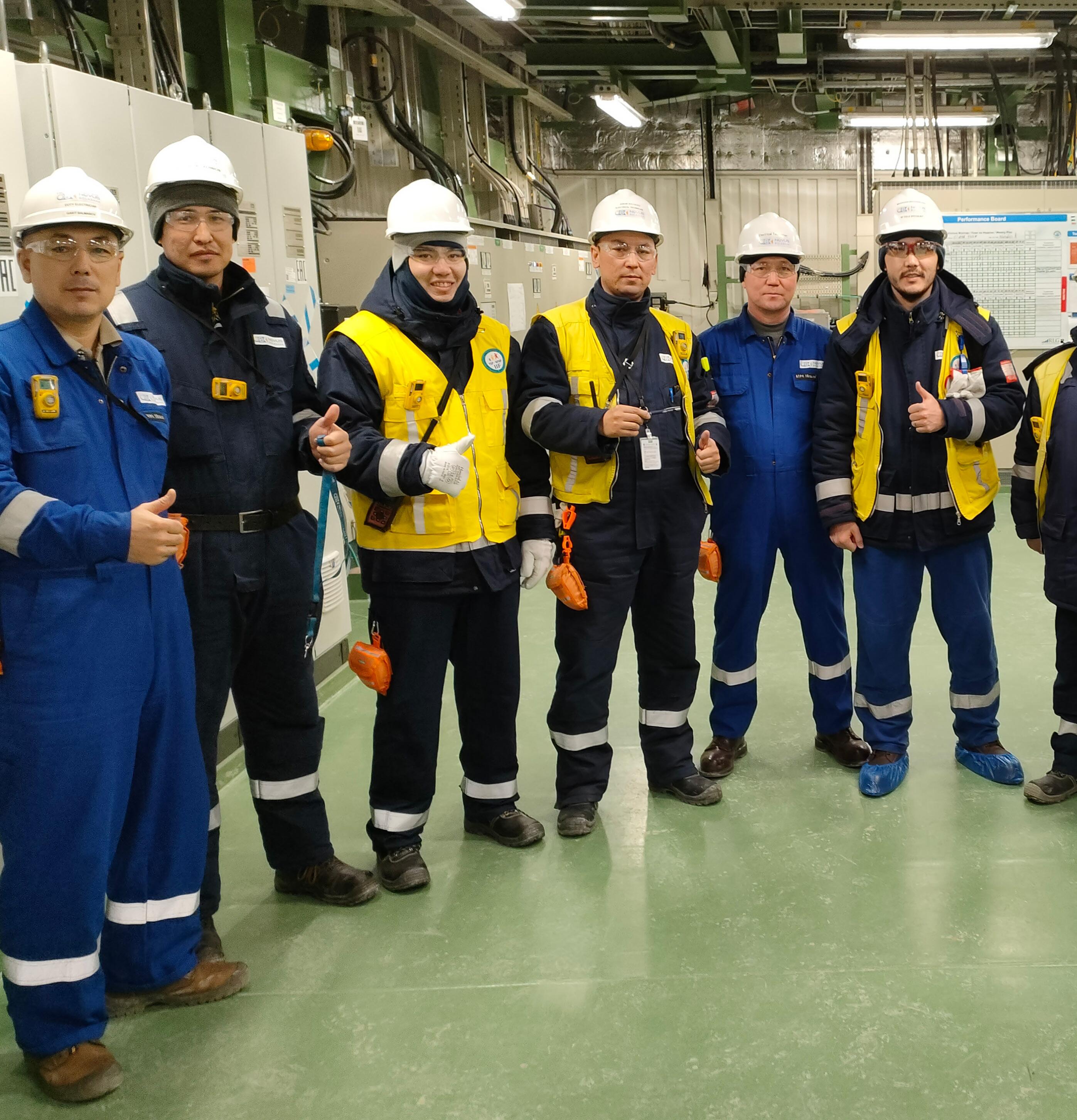
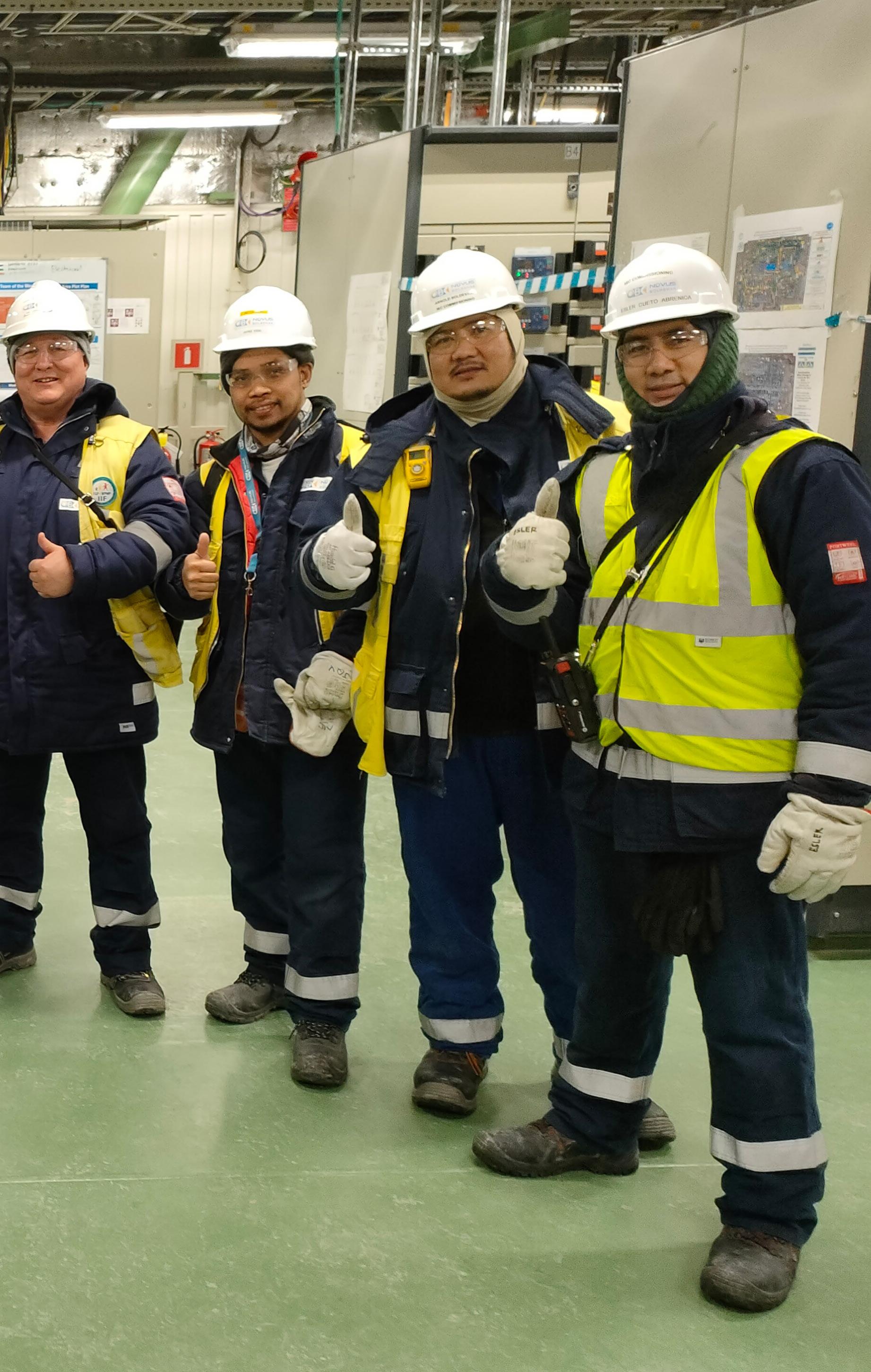
Against the backdrop of the developing Kazakh oil and gas industry, Peter Absalom, Operations Director of Novus Bolashak, highlights how the joint venture company drives local development for international successWriter: Lucy Pilgrim | Project Manager: Joshua Mann
As an unheralded gem in the global oil and gas landscape, Kazakhstan possesses a wealth of opportunity in the production and movement of both these vital resources.
“There is always a certain anxiety for a new country like Kazakhstan, as it has only been around since 1991 after the break from the former Soviet Union,” introduces Peter Absalom, Operations Director of Novus Bolashak.
“It’s a huge land mass with a small population and is absolutely blessed with oil and gas reserves, catering to other developing industries such as power, mining and minerals, industry and infrastructure, life sciences, and technology.”
This aptly represents the importance of Novus Bolashak, which has existed as a joint venture (JV) between Novus Technical Services (Novus) and Bolashak Atyrau LLP (Bolashak) since it was established in 2016.
As a result, the company combines Bolashak’s extensive local experience, resources, and commitment to Kazakh content with the international experience and technical capabilities of Novus.
This makes the JV unique in the sense that Bolashak has been operating in the country for over 20 years and is the provider of the vital manpower that sets Novus Bolashak apart from its competitors.
The joint force of two industry titans has created a fully integrated engineering services and solutions business, which specialises in systems completion, commissioning, shut down, turn around, operations, and maintenance.
“Essentially, we take over when the construction of a project, typically in the oil and gas upstream sector, is finished. It’s our responsibility to

get the facility, whatever it is, up and running so that the owners can start generating income from their investment,” Absalom outlines.
As a large corporate entity, Novus Bolashak operates across 19 countries and services 136 facilities worldwide. Additionally, over the past five years, the company has proudly completed 286 projects with a workforce of 8,500 employees.
“Our mission is to enhance the knowledge and expertise of our people, our clients, and the communities in which we work, ultimately delivering, completing, and commissioning safe, state-of-the-art systems,” he adds.
The aims and objectives of Novus Bolashak would not be achievable without an abundance of opportunities afforded by the Kazakh energy market across upstream, midstream, and downstream operations.
Significantly, the nation’s energy industry is intertwined with global oil and gas titans, who provide funding to companies located in Western Kazakhstan for sizeable giga projects.
An example of this is Tengizchevroil, who has the support of both Chevron and ExxonMobil in the US.
17 MILLION+ man hours without a single lost time incident
4 MILLION+ kilometres (km) driven by vehicles without a road traffic accident
5,000 people on the workforce, with a further 10,500 in reserve

This is alongside Lukoil and KazMunayGas, whose engineering and financing essentially comes from Western partners. Additionally, North Caspian Operating Company (NCOC) is supported by Shell and the Italian energy firm, Eni.
Meanwhile, Kazakh energy companies are forecasting huge plans in the movement of oil and gas which can be used as feedstock for downstream projects, such as polyethylene terephthalate (PET) projects, which are being developed locally on an impressive scale.
As the largest systems completion and commissioning project currently on the planet, Novus Bolashak’s future growth programme/well pressure management programme (FGP/ WPMP) is the third generation of a 30-year operation developed by Tengizchevroil.
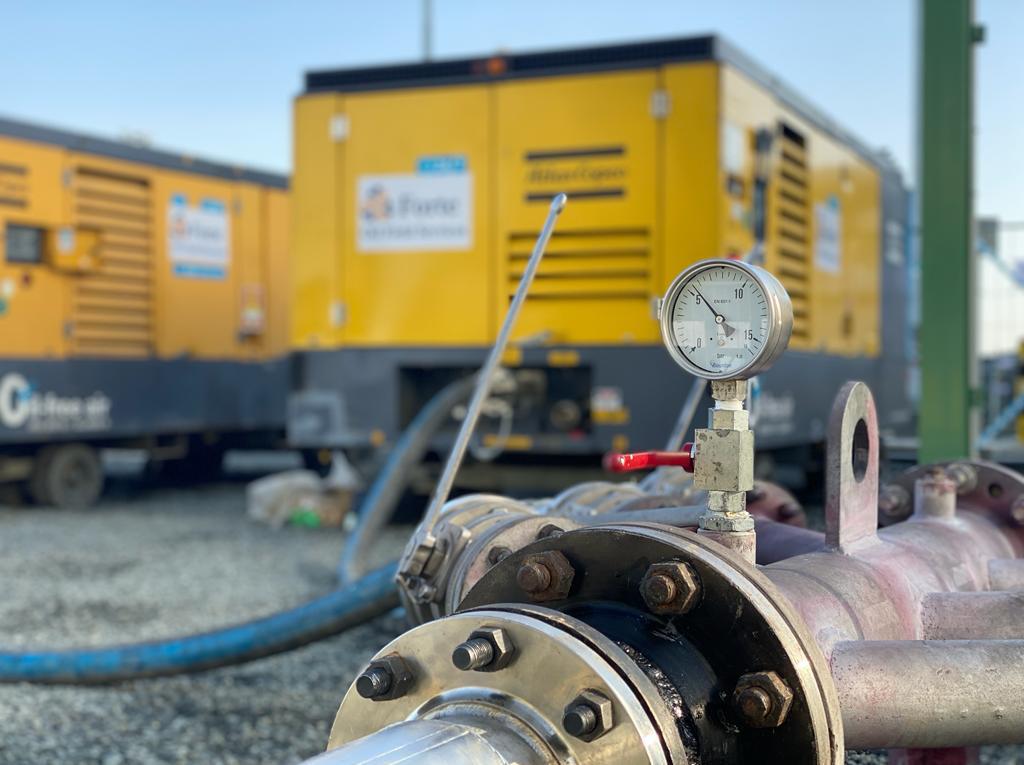
Service quality and clients’ trust have initially been the foundation of all business processes in our company, and have thereby deserved the recognition of leading international companies. Clients in Central Asia include Chevron, British Petroleum, Shell, Novus Bolashak, SLB, and others.
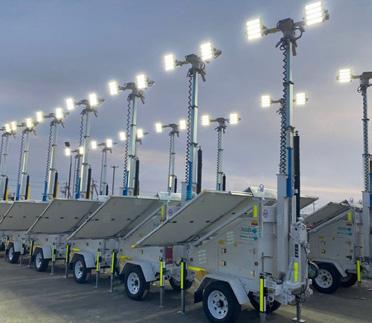

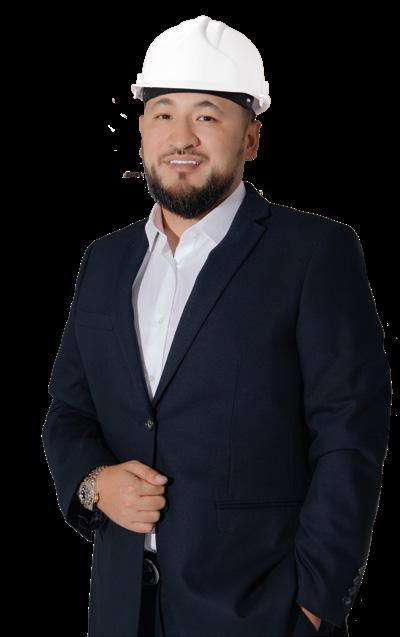
The venture represents the interests of internal companies in the Kazakh oil and gas industry, whilst utilising resources from across the world.
“The design of FGP/WPMP was conducted in the US, the UK, India, and the Phillipinnes. Meanwhile, fabrication was carried out in Italy, South Korea, and Kazakhstan, whilst construction work was carried out by contractors from Turkey, Greece, and Russia,” highlights Absalom.
Despite such a burgeoning global presence, the company holds its local community steadfast in its priorities.
“We have achieved an 80 percent spend on Kazakh content across the entire programme, which is a worldclass measurement,” he proudly adds.
Key to the Novus Bolashak supply chain, its procurement has comprised 3,000 purchase orders in the local


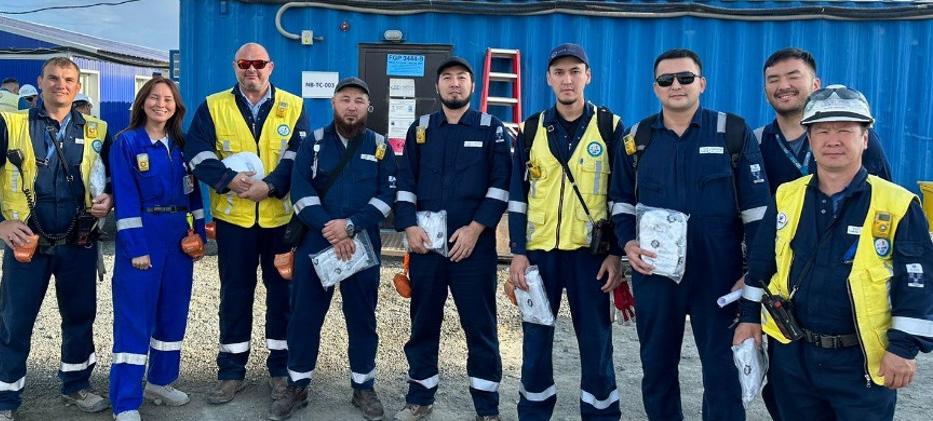

community, with a value of USD$30 million. Additionally, the company has issued over 40 contracts and has a forecast closeout value of approximately USD$400 million.
Evidently, Novus Bolashak’s impact on the local community and wider nation is immeasurable, especially when compounded by its many corporate social responsibility (CSR) initiatives.
For example, the company diligently supports low-income families and sponsors children in the neighbourhood through tertiary education, facilitating the upskilling of younger generations.
“We’ve got people in university
today who are funded by Novus Bolashak, with the students recommended by the Äkim, the local mayor,” Absalom elaborates.
On top of this, the company runs social welfare programmes during annual holidays in which it provides less fortunate families with aid parcels. In this way, Novus Bolashak places itself at the forefront as a vital corporate citizen.
Its volunteering efforts extend to the distribution of gifts at the local orphanage. Commencing two to three times a year, the initiative provides an incredibly rewarding experience for the company as it has a memorable impact.
Novus Bolashak is also heavily involved in a vast range of community development projects in conjunction with the local administration, ranging from landscaping an area with trees, to refurbishing a building which the council had developed into an old people’s home.
Another recent example includes the development of a children’s playground in the local town of Kulsary, in the Atyrau district in, southern Kazakhstan.
“We’re doing this not because the local council can’t afford to do it, but because it’ll get done quicker,” Absalom informs.
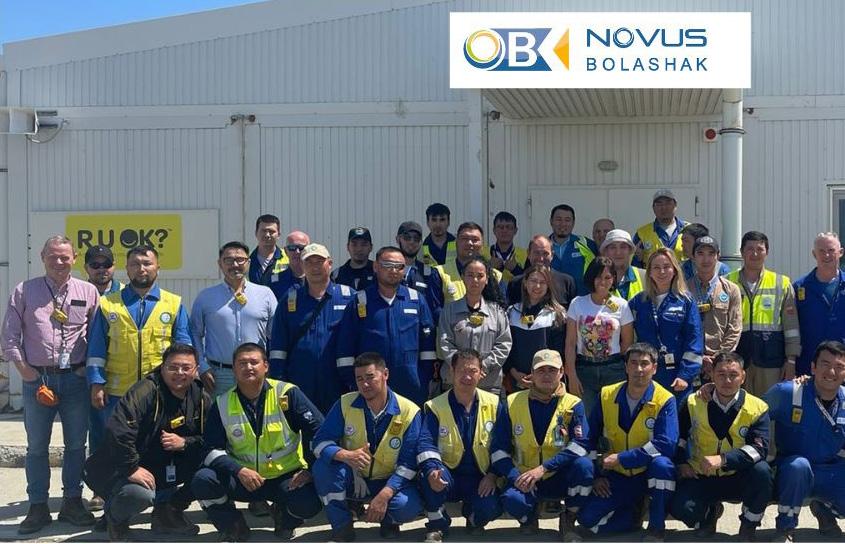
“By bringing in somebody from the industry as a sponsor, you avoid all the red tape of the local administration going to the federal government for approval. We can circumnavigate that by volunteering to help.”
Finally, Novus Bolashak provides further aid to the local government by sponsoring quasi-government organisations, who require further support from private industry bodies.
“These are businesses associated with our industry that are always looking for help. I am proud to say that we are front and centre of this initiative as a gold sponsor.”
With an unwavering commitment to its employees, Novus Bolashak has invested more than 350,000 hours in
craft training to ensure that its staff can efficiently complete the job and subsequently progress further in their careers.
• Complete the FGP/WPMP project
• Continue to develop the country’s infrastructure
• Take the company’s success across the world

“To support our 5,000 people on-site, we have an office in Atyrau comprising approximately 120 people, of which six are expatriates, and the rest are local.
“Therefore, our business is tied to the surrounding community, with department managers in human resources (HR), procurement, training, mobilisation, who are all outstanding,” Absalom gleefully tells us.
Earlier this year, the company decided to strive for a range of ISO accreditations, including 9001, 14001, and 45001. This is a rare achievement for a JV company, but Absalom believes it was necessary to showcase the world-class work of the organisation and how its staff go above and beyond.
Eventually, Novus Bolashak became fully accredited thanks to the fantastic
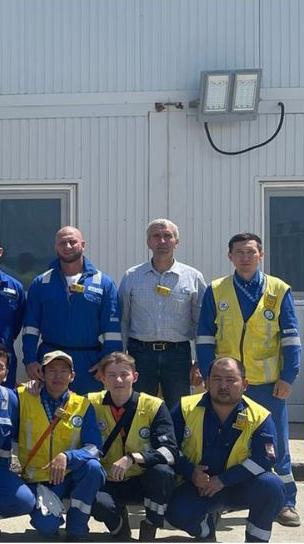
work of 10 staff volunteers and the commitment of the local people.
In return, the company put the respective volunteers on a course to become an ISO auditors, so that each individual could benefit from its success.
“I am proud of our staff who have a huge appetite for work and tremendous capabilities, whilst working in a foreign language,” Absalom reflects.
As the company looks towards 2024, its main priority is to complete the FGF/WPMP project, as this is critical to the shareholders and the nation overall.
“Once we have finished the development of oil production in the Tengiz field, we’ll move from

“WE HAVE ACHIEVED AN 80 PERCENT SPEND ON KAZAKH CONTENT ACROSS THE ENTIRE PROGRAMME, WHICH IS A WORLD-CLASS MEASUREMENT”
– PETER ABSALOM, OPERATIONS DIRECTOR, NOVUS BOLASHAK
400,000 to one million barrels a day.
“That’s what we call a world-class oil field as there are not many other global competitors producing one million barrels a day, which is our biggest priority going into 2024,” states Absalom.
On the back of this success, Novus Bolashak strives to develop a sustainable business in the country, in conjunction with both international and national organisations.
This will bring forward the next stages of oil development, particularly in the realms of onshore and offshore production, as well as the downstream phases of PET.
Regarding the latter, this includes the development of polyethylene plants, polypropylene plants, butadiene, and rubber plants, which are all industries that depend on gas
as a feedstock, facilitated by the work of Novus Bolashak.
“We want to develop the industry so that Kazakhstan can develop from domestic and export revenues, and subsequently transfer this success abroad. Incidentally, we’ve got clear targets for similar giga projects in the US, Canada, Guyana, Qatar, and many other countries,” concludes Absalom.

NOVUS BOLASHAK
info@novus-bolashak.com
cv@novus-bolashak.com
www.novus-bolashak.com
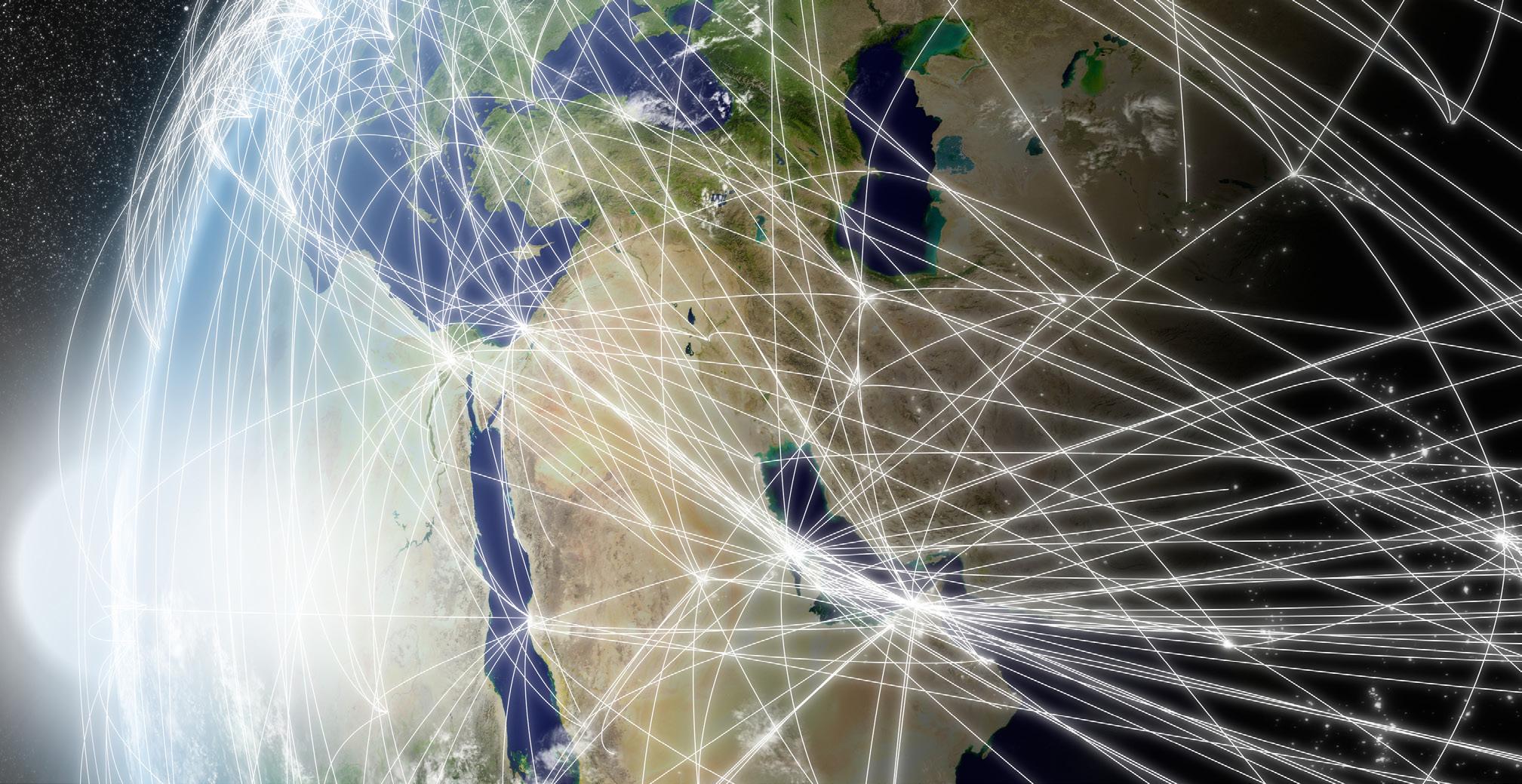



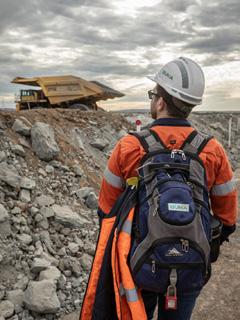








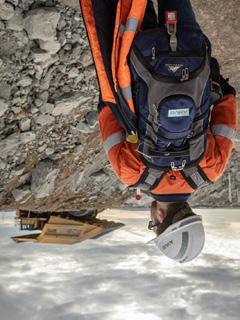




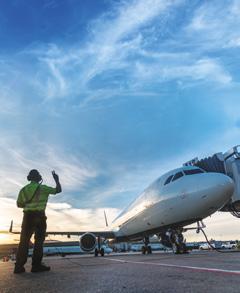



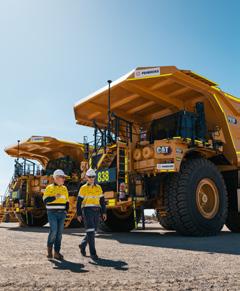




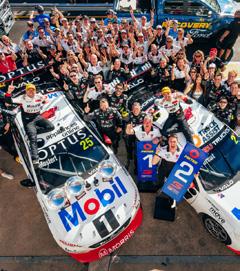
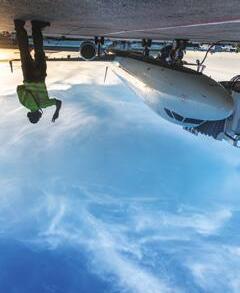



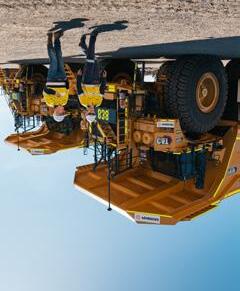

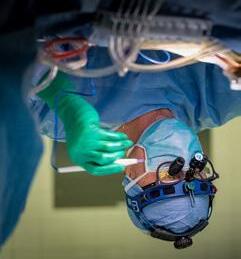

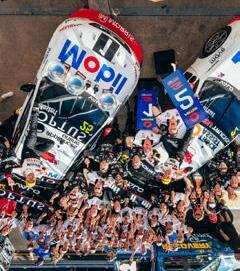
Africa Outlook, APAC Outlook, EME Outlook, North America Outlook, Mining Outlook, Healthcare Outlook, and Manufacturing Outlook are digital publications aimed at boardroom and hands-on decision-makers, reaching an audience of more than 800,000 people around the world.
With original and exclusive content compiled by our experienced editorial team, we look to promote the latest in engaging news, industry trends and success stories from across the globe.
Your company can join the leading industry heavyweights enjoying the free exposure we provide across our platforms with a free marketing brochure, extensive social media saturation, enhanced B2B networking opportunities, and a readymade forum to attract new investment and to help you grow your business.
Visit www.outlookpublishing.com/get-involved for details on how your company can feature for free in one of our upcoming editions.


A production-line of exclusive content, delivered straight to your inbox
Building on the global success of its regional titles – Africa Outlook, EME Outlook, APAC Outlook, and North America Outlook – Outlook Publishing is proud to introduce a digital magazine and web platform dedicated to the manufacturing sector.
As manufacturing organisations worldwide confront unprecedented change, embracing technological innovations and incorporating critical environmental sustainability agendas, now more than ever is the time to showcase the strides being taken in this dynamic sector.
A multi-channel brand, Manufacturing Outlook brings you the positive developments driven by organisations across the global manufacturing industry through its various platforms. Discover exclusive content distributed through our website, online magazine, social media channels, and dispatches delivered straight to your inbox with a bi-weekly newsletter.
Through this compelling new venture, we foreground the movers and shakers of the industry. To participate as a featured company and join us in this exciting endeavour, contact one of our Project Managers today.
www.mfg-outlook.com/work-with-us
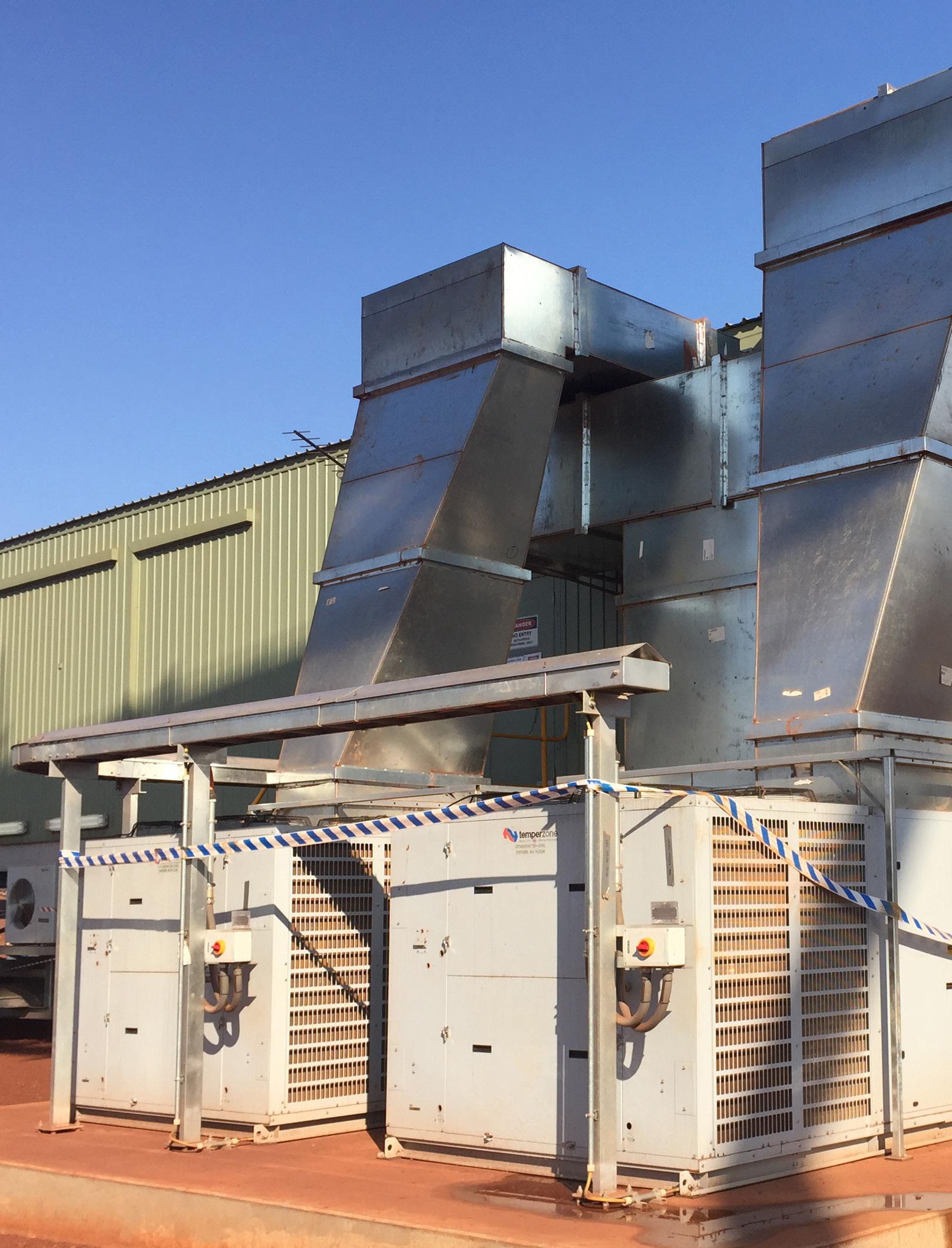

As electrical infrastructure in Australia continues to evolve, Chris Ware, General Manager of Mayfield Industries, shares how his company contributes to the growth, development, and success of the industry
Writer: Lily Sawyer | Project Manager: Nicholas Kernan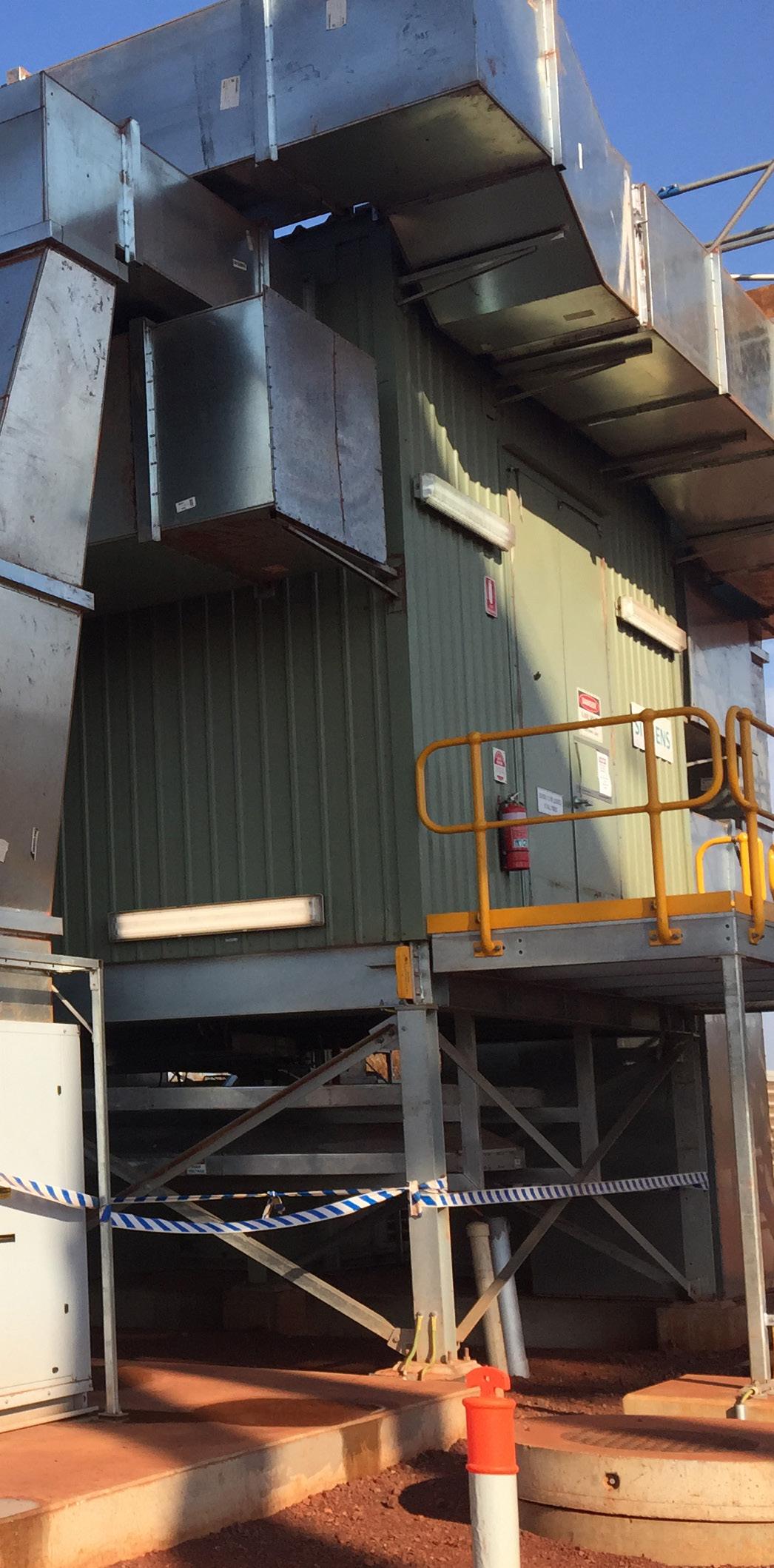
The electrical industry in Australia is undergoing a transformative phase driven by the transition to a low-carbon economy.
This evolution is characterised by the widespread adoption of renewable energy, the continuous development of cutting-edge technologies, and a growing consumer demand for increased choice and control.
Within this dynamic landscape, the sector faces a range of challenges and opportunities. These include maintaining the reliability and security of energy supplies, integrating energy storage, fortifying grid resilience and flexibility, and reducing overall greenhouse gas (GHG) emissions.
Operating in this evolving space proves to be both challenging and rewarding for Mayfield Industries (Mayfield), an Australian company that specialises in electrical infrastructure, such as low-voltage (LV) and medium-voltage (MV) switchboards, switchrooms, motor control centres, transformers, protection systems and kiosk substations.
“As a company, we actively engage with industry shifts, applying our collective skills and knowledge to navigate challenges and capitalise on emerging opportunities,” opens Mayfield’s General Manager, Chris Ware.
“We collaborate closely with diverse stakeholders to create value for our clients, ensuring that our products and solutions align with the changing demands of the market,” he continues.
In recent years, the oil and gas industry has experienced a period of deceleration, however signs of recovery are evident as clients within this sector increasingly invest in projects geared towards reducing their carbon footprint.
Mayfield is strategically positioned to seize the opportunities arising
from the shift towards a decentralised power generation market; its suite of products is well-suited to meet the diverse requirements of power generation and distribution.
Since its inception in 1936, Mayfield has expanded its capabilities and national footprint, becoming a leader in engineering, design, manufacturing, and servicing.
It provides critical electrical infrastructure for various industries, such as mining, power generation, renewable energy, oil and gas, water, and wastewater.
The company strongly focuses on project management, value engineering, agile modification,
documentation, and 24/7 maintenance services.
A comprehensive product range enables Mayfield to accommodate a diverse range of specifications and operational requirements, reflecting its commitment to delivering tailored and innovative solutions.
“Over the years, we’ve not only cultivated our own intellectual property but also secured various manufacturing license agreements. As a result, our product line is characterised by its ability to offer custom solutions, such as Modular Demountable (Moducell) and Modular Fully Withdrawable (Okken) configurations,” informs Ware.
“To stay abreast of market demands, we continually subject our
they remain at the forefront of industry requirements,” he continues.
Crucially, Mayfield’s consistent employee base of 160 across facilities in Adelaide, Perth, Sydney, and Brisbane underscores its dedication to fostering a skilled and stable workforce.
This approach to staffing enables the company to maintain high levels of locally available expertise and service quality, ensuring the continued satisfaction of its clients nationwide.
In 2019, Mayfield made the strategic decision to centralise its production of Moducell, relocating it from Malaysia to Australia.
The switch to local manufacturing

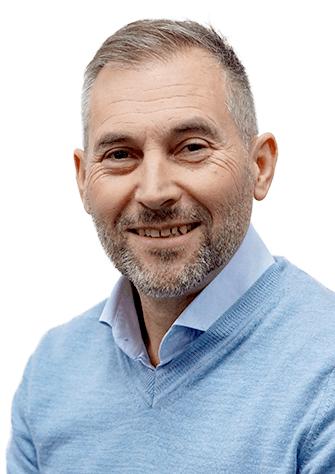

caused by the COVID-19 pandemic, such as offshore production limitations and disruption to delivery lead times.
The company’s manufacturing facility in Edinburgh, Adelaide, where the majority of local production takes place, boasts a comprehensive production plant and remains dedicated to ongoing product improvement.
“A notable example of our commitment to innovation is our ability to provide a typetested arc fault containment for our Moducell switchboards on the line side of the incomer. This distinctive feature sets us apart, positioning us as a leader in delivering advanced and reliable solutions,” Ware divulges.
Additionally, safety is at the forefront of Mayfield’s design philosophy, which is embedded throughout the entire lifecycle of its products.
“From conception to production and beyond, we prioritise the
CHRIS WARE, GENERAL MANAGER: “At the heart of our commitment to local manufacturing is a strategic approach to sourcing components from the Australian market, reflecting our dedication to supporting and bolstering local industries. We buy 99 percent of our components from Australia.
“To facilitate this process, Mayfield boasts a centralised procurement team tasked with managing purchasing activities and overseeing the company’s procurement needs from a company-wide perspective.
“The centralisation of our procurement operations enables us to harness synergies and economies of scale, offering our suppliers consolidated purchasing opportunities across the broader operations of Mayfield.
“By consolidating our purchasing efforts with a collaborative approach, we not only enhance efficiency but also contribute to the overall growth and sustainability of the local supply chain.”
well-being of users and ensure that our products not only meet but exceed safety standards,” shares Ware.
This holistic approach underscores the company’s commitment to providing cutting-edge solutions that prioritise the safety and satisfaction of its clients.
Mayfield is an active and important contributor to Australia’s mining sector, which is currently experiencing a surge in demand and investment.
Within the industry, it provides a range of solutions for mining operations across Australia.
The company’s projects within the sector encompass power distribution systems, motor control centres, transportable switchrooms, data centres, and substation kiosks.
“Mining remains a cornerstone of our business and is our most robust sector. At Mayfield, we’ve cultivated robust relationships with Tier 1 miners, positioning ourselves as a trusted supplier in this industry.”
Due to its commitment to
excellence and technical expertise, Mayfield finds itself as a preferred partner for many clients.
“Our dedication to delivering highquality solutions has allowed us to consistently meet the unique demands of Tier 1 clients,” elaborates Ware.
Broadly speaking, Mayfield’s product variety and versatility means it can be considered a key supplier to a vast range of sectors.
Its key sector contributions include mining, renewables, utilities, infrastructure, and power generation and distribution.
Mayfield has made strides in the renewable energy sector, particularly in solar, wind, and battery energy storage systems (BESS).
“The convergence of solar, wind, and BESS technologies represents a promising avenue for clean and reliable power generation,” explains Ware.
Mayfield has successfully supplied products to numerous significant BESS projects nationwide, making impactful contributions to ventures
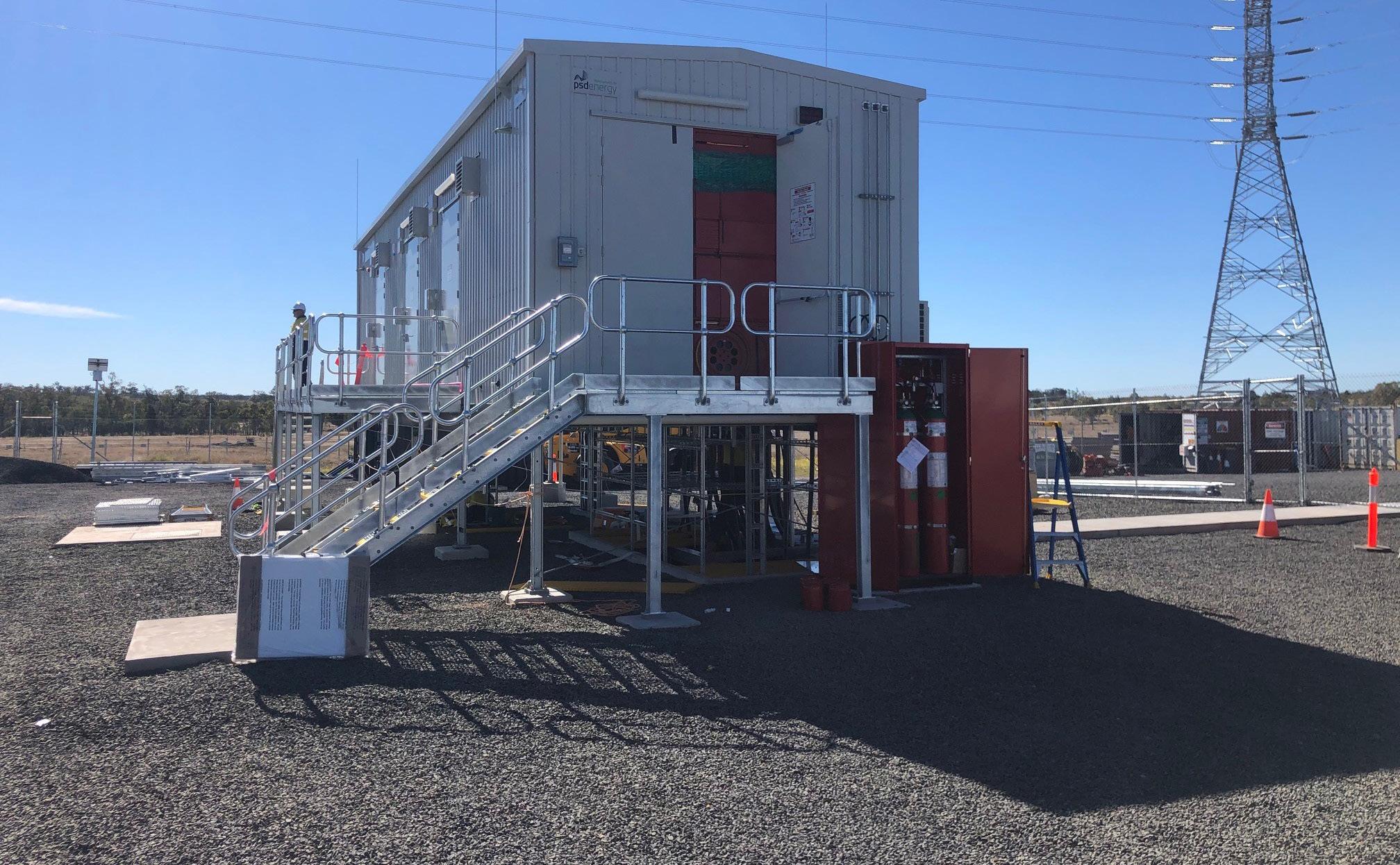
Since 2011, DIS Fire Systems has offered complete fire consultancy solutions to a broad range of clients in all sectors of the fire industry.
Our comprehensive database has an impressive list of customers: Sydney Metro Line Wide, Melbourne Metro Line Wide, Brisbane Airport Traffic Control, Wambo Wind Farm, Geoscience, Arafura Rare Earths, and Pilbara Minerals are just a few projects completed by us within the last 12 months.
As design engineers, distributors, and contractors, DIS Fire Systems is fast becoming the largest independent solutions provider for all fixed fire systems in the country. With offices throughout Australia, each warehouse houses enough stock to provide important local support.
Headquarters which is located in Seaford, Victoria, DIS Fire Systems are able to maintain its expertise by providing internal and external training, participating in high-level technical advisory and special interest groups for the Fire Protection Association of Australia (FPAA) and the National Fire Industry of Australia (NFIA).
The many elements that comprise the company’s core skills provide additional support, including research, development and training, writing design guidance, and advising on fire safety policies. Our fire systems specialists are local engineers, maintenance, and admin support, and they ensure they maintain close relationships with fire contractors, consultants and end users.
Engineering services include site commissioning, full function testing, integration, system specifications, systems budgets, objective system alternatives, objective
design solutions, remote site works, preliminary design layouts, and detailed system design and engineering.
DIS Fire Systems have focused their energy through their internal engineers to investigate solutions for Lithium Ion battery fires, we now have access to solutions that not only suppress the fire but detect the possibility of fire before thermal runaway and a fire starting. These solutions are specifically tailored to each application and are at the forefront of technology.
The fundamental principles that DIS Fire Systems adhere to include working with clients to clearly outline requirements, outcomes, and objectives. This is alongside scoping, and



managing and executing work in a cost-effective and timely manner, whilst providing a practical and quality solution.
It is essential that DIS Fire Systems maintains a flexible, compliant, and professional approach with its customers. Putting clients at the forefront, we will also minimise costs by applying efficient and practical working methods, while using the experience of focused, competent, and dedicated personnel.
We ensure that our personnel have extensive industry experience and proficiency; individually, they possess specific expertise combined with a practical and flexible approach. This allows DIS Fire Systems to successfully undertake a broad spectrum of activities within the fire industry.
Our approach is to be the benchmark of quality and delivery within the industry.
Positioning itself in multiple vertical markets, DIS Fire Systems provides fire engineering services across all sectors of the industry, such as mining, marine, offshore, manufacturing, defence, energy, telecommunications, and oil and gas. With different levels of engineers, procurement, and technical support, each state retains a similar set up. We are a distributor of Komtes Siex Systems and a total solutions provider of Hygood, TYCO / Johnson Controls, Marioff and Kidde products originating from the US and Europe.
DIS Fire Services provides specialist consulting with its dedicated engineering services to support fire equipment operations and maintenance, engineering change execution, minor and major project scope of works and delivery, troubleshooting and operation analysis, risk integrity reviews, and business improvement consulting.
DIS Fire Systems has an extensive product range of gaseous suppression systems, foam concentrate, foam equipment, foam proportioning systems, high-pressure water mist, low-pressure water mist, and high-speed deluge.
Other products and systems the company offers are high pressure pipe and fittings, wet chemical products, dry chemical products, marine systems, vehicle suppression systems, and SIEX trace (UL/FM).
We offer design, supply and support of detection systems including VESDA, pre-engineered vehicle systems, fire hydrants and fire hose reels, room integrity testing, hypoxic system air handling fire prevention systems, systems design and verification of sprinklers, deluge and pre-action sprinkler systems.
Additionally, DIS Fire Systems can provide fire stopping solutions such as, fire pillows, fire collars, fire wraps, fire
1300 476 588 sales@disfire.com.au disfire.com.au
rated sealants and mastics, fire insulation for a large range of different applications.
Our wide range of fire dampers consists of pressure relief vents with an aesthetically pleasing design of various shapes and sizes. The solid welded construction has a multi-flow vent and is four-hour fire-rated, with a 90 percent free vent area. Options for fire dampers include combined pressure relief/extraction fans and boxed pressure relief/extraction fan units with the choice of an acoustic louvre to minimise noise levels.
Gas suppression products offered are Inert (IG-541, IG-55, IG-100), Novec 1230 (FK-5-1-12), FM200 (FE227-EA, HFC227), Carbon Dioxide - CO2, Aerosol Systems and In-Cabinet Trace Systems.
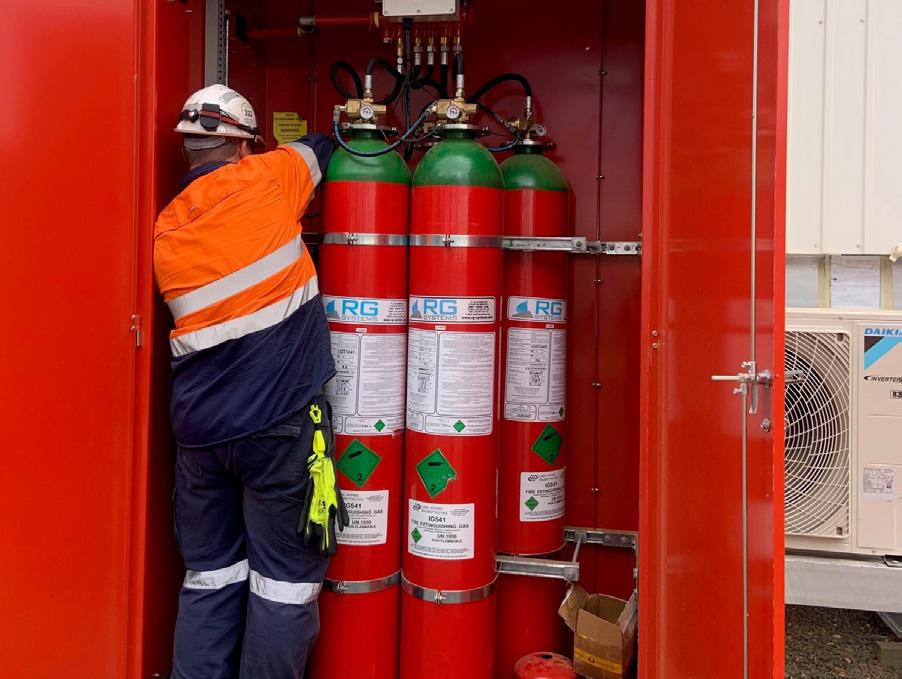
Delivering projects ranging from feasibility studies to delivery of equipment, DIS Fire Systems provides the following services:
• Site survey/audit
• Technical writing and specifications
• Concept engineering studies
• Detailed design execution
• Project management
• Procurement execution and management
• Quality control management
• Fabrication and construction
• Government
• Construction management
• Healthcare
• Commissioning support
• Water management
DIS Fire Systems is the complete package of engineering design, hydraulic calculations, technical drawings, on-site testing and commissioning, full-function fire testing, room integrity testing and certification.

SAFETY – Safety first in everything Mayfield does.
PARTNERSHIPS – Mayfield’s clients and suppliers are partners in its mutual success.
PEOPLE – People are core to Mayfield’s future.
INNOVATION – The company creates value through continuous improvement and innovation.
INTEGRITY – Mayfield is engaged, decisive, and acts with integrity.
QUALITY – A reputation for high standards.
COMMUNITY – The company supports its community.
ENVIRONMENT – Protecting the environment is important to clients, communities, and businesses.
“BASED ON A BELIEF THAT OUR PRODUCTS AND SERVICES CAN BE CATALYSTS FOR POSITIVE CHANGE, WE ASPIRE TO LEAVE A POSITIVE MARK ON THE ENVIRONMENT, SOCIETY, AND ECONOMY”
– CHRIS WARE, GENERAL MANAGER, MAYFIELD INDUSTRIES
such as the Victorian Big Battery, Sydney West, Torrens Island, and more recently, Western Downs and Collie.
These endeavours underscore the company’s dedication to playing a pivotal role in advancing the clean energy landscape in Australia.
Mayfield’s ongoing collaboration with Tier 1 EPCs exemplifies its commitment to advancing clean energy solutions. The collaboration leverages expertise and industry experience to bring innovative and sustainable products to the forefront.
Mayfield prioritises industry collaboration as a cornerstone of its strategy in order to remain at the head of a rapidly evolving energy market.
“Looking ahead, we are actively engaged in developing a range of new products designed to catalyse further growth within the renewable energy sector,” Ware states.
“We anticipate that these locally manufactured and supported products will not only reinforce our presence in the renewable sector but also stimulate job creation, foster economic growth, and fortify our competitive edge in the market.
“This strategic move aligns with our vision to benefit not only our shareholders but also our stakeholders and society at large,” he adds.
As Mayfield anticipates the upcoming
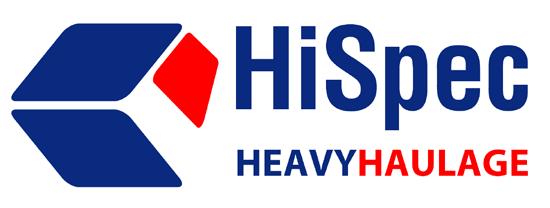
HiSpec Heavy Haulage (HHH) is based in Edinburgh SA and we specialise in oversized and heavy load transport across Australia. With years of practical experience and knowledge, we have an in-depth understanding of wide load transportation requirements and standards. As one of Australia’s most reliable and trusted heavy and abnormal load transport companies, let us transport your load with safety, precision and expertise.
While standard loads can easily be moved on roads with minimal fuss and preparation, some additional planning and expertise is required for larger and oversized loads. At HHH our professionals draw upon over 30 years of experience to effectively plan and execute moves of oversized loads interstate and across lengthy distances.
Offering strategic solutions, we can discern ideal vehicles and floats, identify the most efficient and safe routes, secure additional escorts, complete surveys, and arrange permits and approvals from government departments and authorities.
We feel that our overall knowledge with respect to competitive pricing, adaptability, expertise and experience enables us to successfully undertake any project your company may have and welcome all your transport requirements.
Our company fleet is comprised of Volvo Prime Movers with a comprehensive range of low loaders and specialised platform trailers. Our reliable and professional drivers can provide Australia wide service, seven days a week.
To ensure reliability and availability, our equipment is maintained onsite in our workshop facilities by our qualified mechanics or by the manufacturer’s workshops.
All regulatory authorities and escorts are arranged prior to commencement
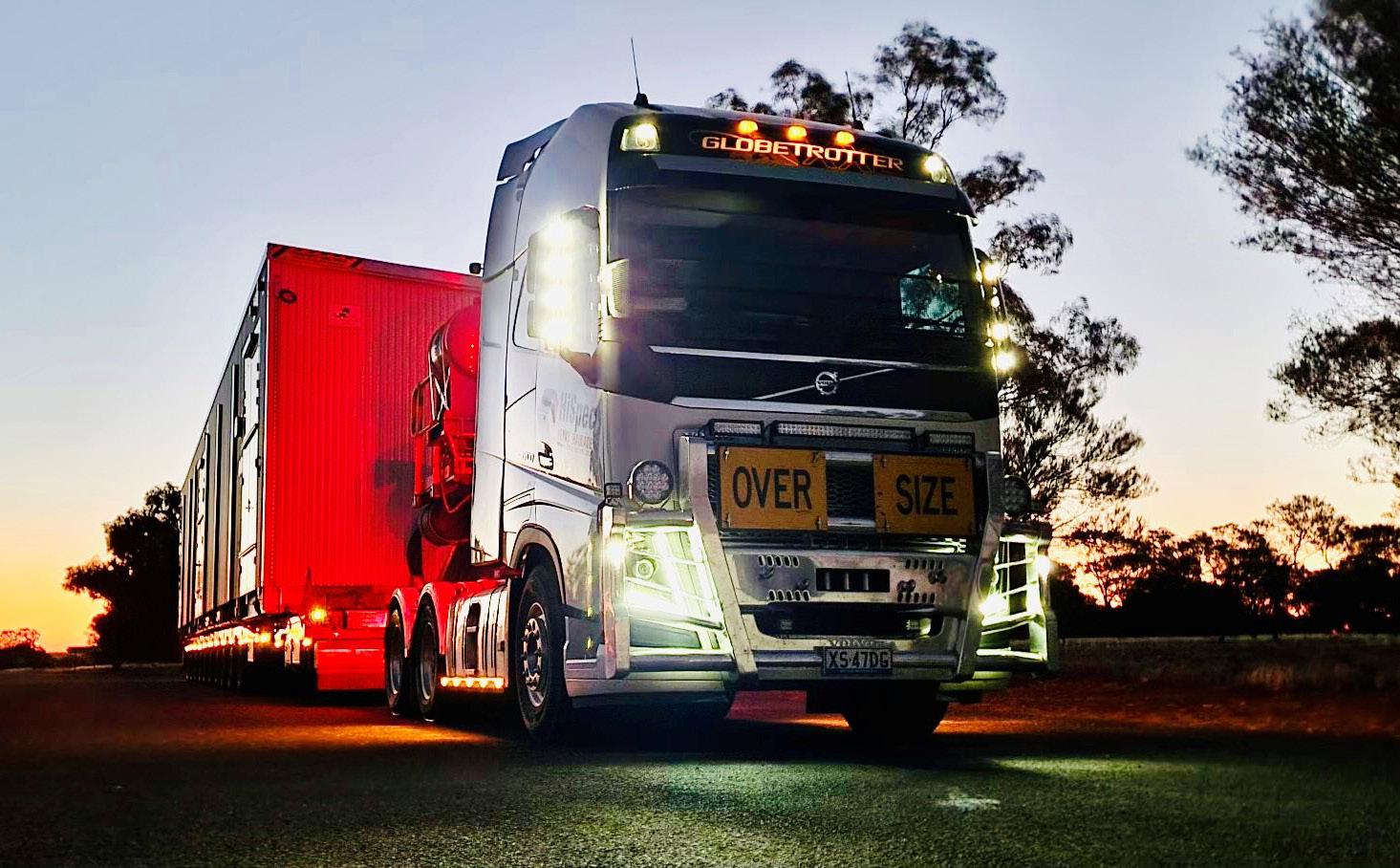

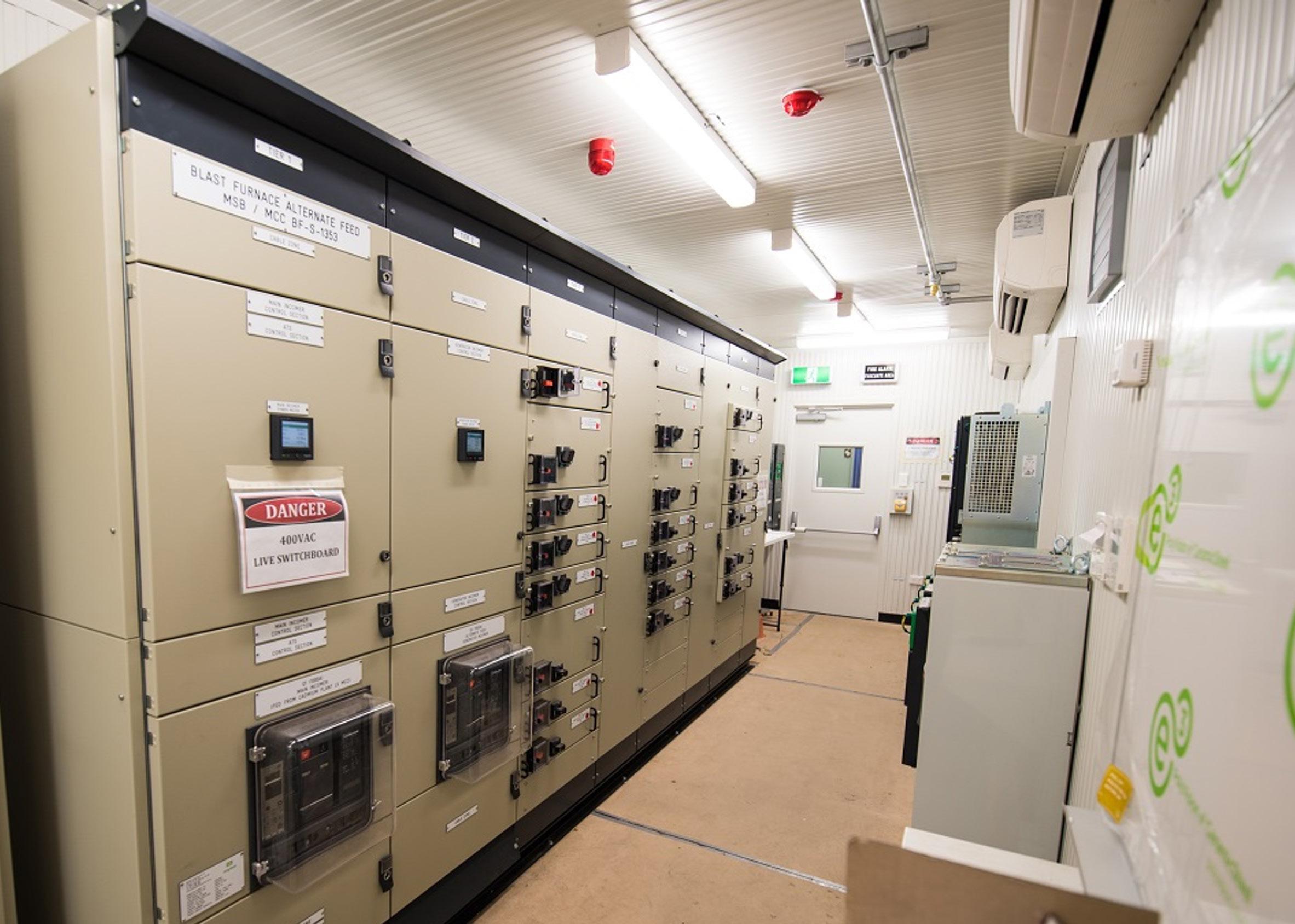



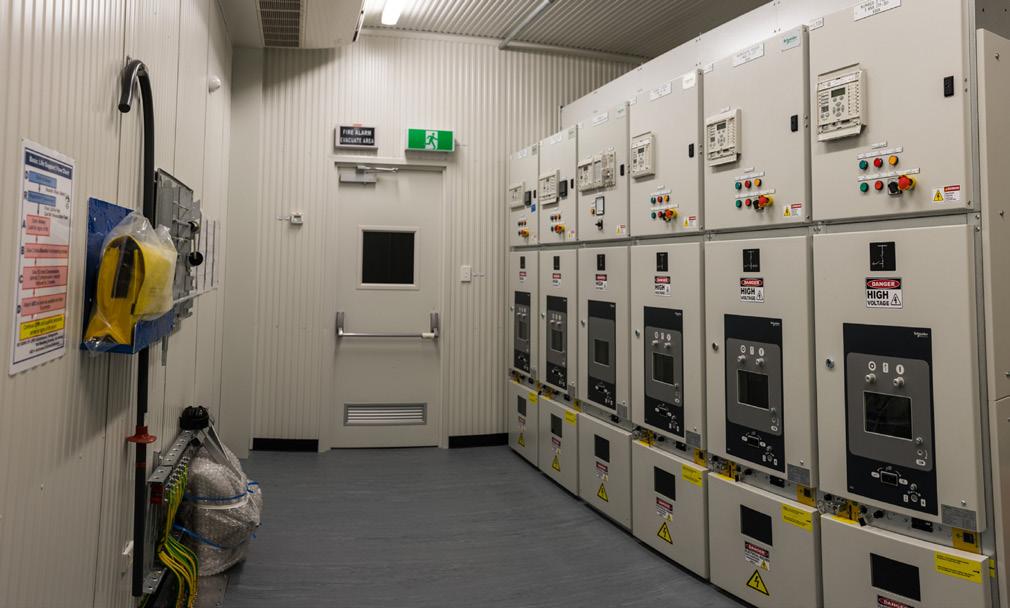
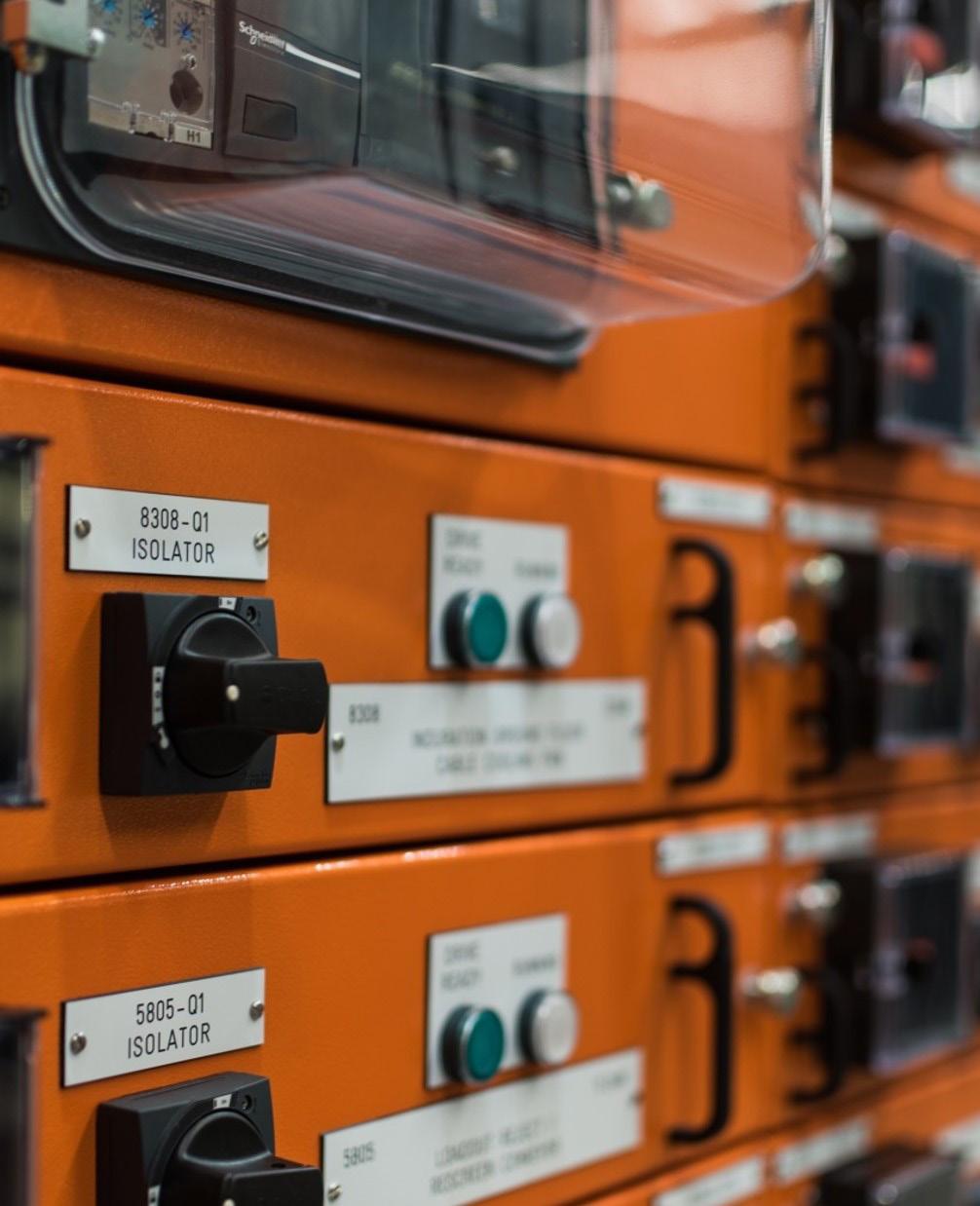
In a demanding industry, we are focused on quality when sourcing and supplying copper, brass, bronze, aluminium, stainless steel, nickel alloy and high-performance alloys.
Quality-assured company Nationwide warehouses Extensive range Prompt delivery
Detailed catalogue online and hard copies
Expert metallurgical knowledge Service focused Established in 1913
Apart from thousands of standard items in stock, we can provide stocking arrangements where customers require non-standard products, special sizes and to your unique specifications. Austral Wright Metals is a leading importer and distributor of nonferrous and stainless steel products. Call us and put us to the test.
Proud major supplier to Mayfield Industries
“BY CONTINUOUSLY INTRODUCING CUTTINGEDGE SOLUTIONS, WE AIM NOT ONLY TO MEET BUT EXCEED THE EVOLVING NEEDS OF OUR CLIENTS AND THE MARKET” – CHRIS WARE, GENERAL MANAGER, MAYFIELD INDUSTRIES
year, its central focus revolves around a set of key priorities aimed at enhancing operational excellence and fostering continuous improvement.
“A paramount goal of ours is to elevate and institutionalise awareness and process efficiencies, a mission we intend to accomplish through the implementation of 5S (sort, set in order, shine, standardise, sustain) and LEAN methodologies,” outlines Ware.
The integration of 5S principles instils a culture of organisation, cleanliness, and standardised work processes within the company.
Simultaneously, Mayfield’s LEAN principles emphasises waste elimination, streamlined workflows, and the continuous pursuit of perfection.
“This methodology aligns with our overarching goal of achieving operational excellence and delivering maximum value to our clients,” emphasises Ware.
Employee engagement and training initiatives are integral components of Mayfield’s strategy to empower its workforce with the skills and knowledge necessary to drive positive change.
The company’s key priorities for the coming year are rooted in the fundamental belief that ongoing improvement is essential for sustainable success.
“Through the adoption of 5S and LEAN methodologies, coupled with a dedication to employee development, we aspire not only to meet our targets but exceed them, thereby ensuring the long-term resilience and success of Mayfield,” Ware concludes.
MAYFIELD INDUSTRIES
Tel: +618 8169 1000
enquiries@mayfieldindustries.com.au
www.mayfieldindustries.com.au

We speak to Bernie Quinn, Engineering Director and Partner at Premcar Pty Ltd, about how the company is helping global carmakers and their Australian importers create new cars that buyers really wantWriter: Lauren Kania | Project Manager: Thomas Arnold
When the three big brands – Ford, GM-Holden, and Toyota – stopped assembling cars in Australia, there was a public belief the car industry in the country had died. This wasn’t true.”
The opening statement of Bernie Quinn, Engineering Director and Partner at Premcar Pty Ltd (Premcar), reflects the reality of how many of the companies underpinning the Australian automotive industry have continued to grow with new car engineering and manufacturing.
In the case of Premcar, an Australian engineering services provider and new-vehicle secondary manufacturer, the company has not only continued despite the disappearance of traditional big car brands but has experienced exponential growth unlike anything seen before.
“All of this is evidence that Australian car-making never died. At Premcar, we transferred our deep experience and skills into the next

evolution of car manufacturing in Australia,” confirms Quinn.
Today, major carmakers of all sizes commission the company for almost everything. From developing entire new-vehicle platforms to enhancing a model series for a new buying
audience to tuning a new car model’s steering and handling, Premcar does it all.
Premcar’s tagline – “Engineered. Enhanced. Electrified.” – aptly summarises what global automakers have come to rely on the company for.
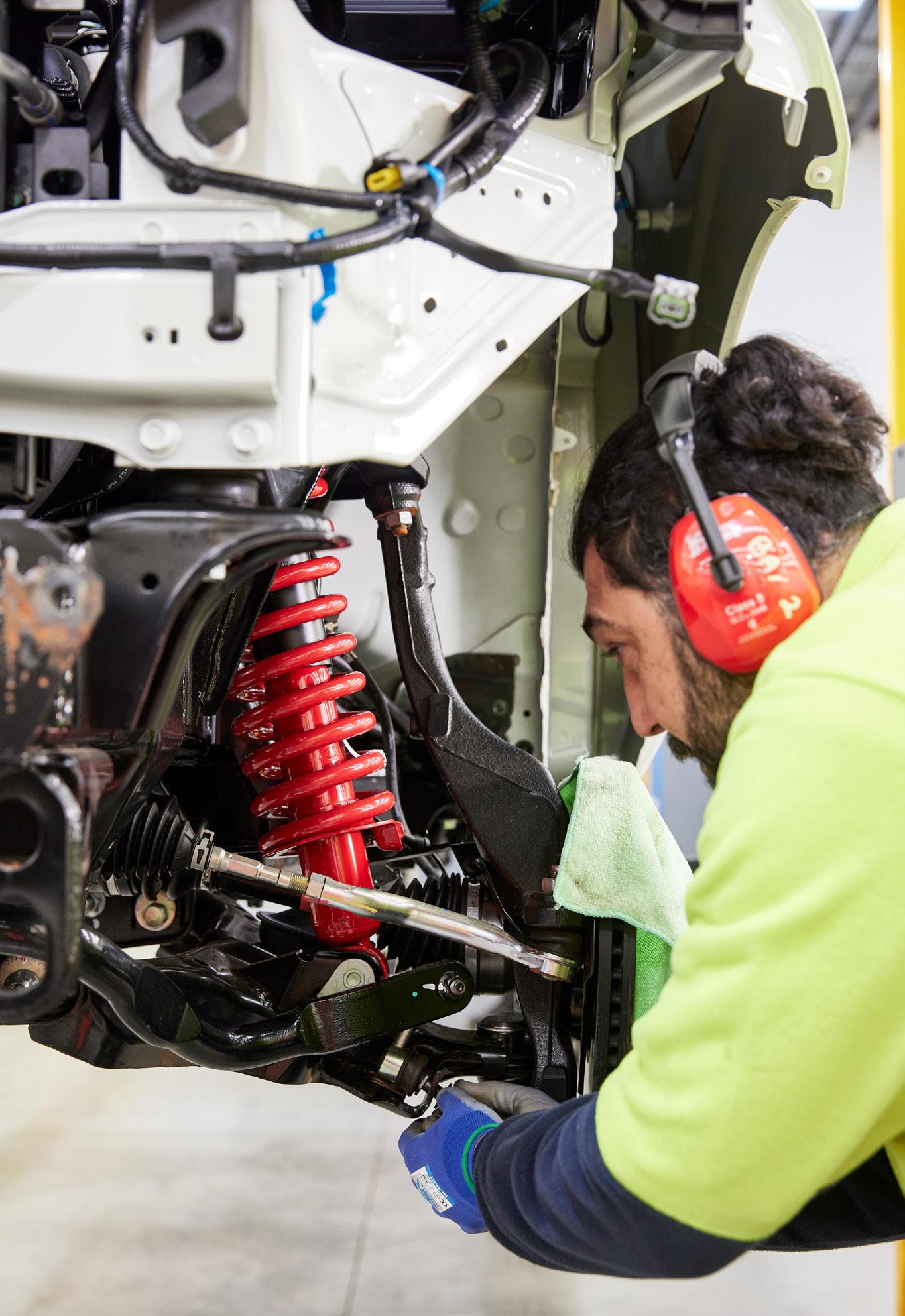
Based in Epping, Australia, Premcar has been in business for nearly three decades and has proven its reliability and deliverance of high-quality services and products through consistent evolution and an innovative mindset.
Having been an engineer for 28 years, 20 of them spent at Premcar, Quinn has always held an inexhaustible passion for cars.
“Everything I did in my earlier years enabled me towards working with cars, so it was natural for me to pursue
an engineering degree to participate in an industry that I’ve been obsessed with my entire life,” he excites. Invigoration and unstoppable enthusiasm are ingrained within the core structure of Premcar and are evident in everything the company provides to its vast clientele.
“We’re seeing a renaissance of manufacturing in Australia, especially
in the car industry. In the case of Premcar, this change has been customer-driven,” explains Quinn.
Australian automotive consumers have been the centrepiece of Premcar’s mission since its inception. With buyers walking into new car dealerships wanting vehicles that satisfy their particular needs and wants, it is critical for companies to meet these expectations and provide high-quality, exceptional cars.
As a prime example, highperformance AMG models have accounted for as much as 30 percent of total annual new car sales for Mercedes-Benz in Australia.
“Everyone at Premcar understands why; as the company behind Ford Performance Vehicles (FPV) for many years, Australian buyers want something special,” comments Quinn.
Premcar offers exactly that to its customers: something special.
One of the biggest differentiating factors when comparing Premcar to the competition is how the company puts its customers at the centre of every decision made, through its triad of business, product development, and manufacturing processes.
“We’ve built all three of these with the original equipment manufacturer (OEM) carmaker, and their customers in mind. This is why we use our own proprietary product development system, which we created to accurately fit our manufacturing process,” specifies Quinn.
Additionally, Premcar uses a systems and design-led approach when engineering and enhancing new cars. Doing this means that customers receive the new vehicle they want, which is of the utmost importance as ‘Made in Australia’ is a big drawcard for new car buyers in the country.
“Ultimately, our attention to detail and understanding of what our customers need makes us a company of choice. The new cars we create all have this understanding built into them, which explains why they’re so

Bernie Quinn, Engineering Director and Partner: “With a very low staff turnover, the feedback from our team is that we’re an employer of choice because we empower them and help to build their careers.
“In fact, we’re about to celebrate a number of staff who have dedicated 20 years to the company.
“We work to create the best environment for our team by recognising people and rewarding them appropriately. We’re also flexible due to the varying needs of everyone in our company. Balancing all of this is critical because it helps us attract and retain the best individuals and build their careers so they’re fulfilling and rewarding.”
popular with buyers – it’s what we’ve been doing for 27 years,” confirms Quinn.
Working primarily with large global car manufacturers such as Nissan, Toyota, Ford, and Mazda, Premcar highlights the importance of partnersupplier relationships and how they contribute to the company’s success.
“We have great connections with our suppliers because we foster mutually respectful relationships; we don’t approach these commercial arrangements with a typical customer-supplier attitude,” notes Quinn.
“We take a relationship approach and always keep a long-term view. We thoroughly believe that openness and fairness are the best ways for
everyone to benefit from these relationships,” he continues.
This effort to form strong, longterm connections with suppliers results in unparalleled quality and service that is tailored to the Australian market, allowing manufacturers and consumers alike to feel confident in their purchase.
Additionally, Premcar, along with its Australian supplier network, which includes SKF for specific bearing products and Tenneco for springs and dampers, collectively employs thousands of people in the local car industry, contributing to the overall longevity of this critical market.
“With some of our suppliers having been with us for more than two decades, we know that when a newmodel vehicle is about to be released to the market, we can rely on them to be on-site and agile to help ensure every final check is met according to quality, time, and cost,” comments Quinn.

When it comes to vehicle suspension systems, finding the right balance between comfort, performance, and practicality is essential. Whether you’re driving a classic workhorse from the 1980s or a late model with more bells and whistles, having a reliable and versatile Air Suspension kit can greatly enhance your driving experience. Airbag Man has been established for over 25 years and takes pride in offering specific kits that cater to the needs of both old faithful models and the latest vehicles on the market. Airbag Man’s long relationships with esteemed brands such as Firestone Airide, DriveRite AMK Group & Dunlop Systems & Components ensure a commitment to innovation, quality and customer satisfaction.
Let’s take the iconic leaf sprung Land Cruiser as an example. Airbag Man has specific Air Suspension kits from the 60 Series and right through the range of 70 series Land Cruisers over the years, covering models from the 1980s all the way up to the current LC70 range. However, Land Cruisers are not the only vehicles they cater to. Airbag Man’s range of kits also includes popular models such as the Ford Ranger, Toyota Hilux, Isuzu D-Max, Holden Colorado, Mitsubishi Triton, Mazda BT-50, and VW Amarok. No matter which vehicle you drive, Airbag Man has a kit to help your suspension when needed.
One of the key advantages of Airbag Man is its Air Suspension kits are adaptable to existing factory suspension setups or aftermarket suspensions. This versatility allows you to upgrade your suspension system without major modifications and ensures you can enjoy the benefits of air suspension to assist your existing suspension setup. Whether you’re seeking to enhance your stock suspension or improve aftermarket components, air suspension seamlessly integrates and offers customisable solutions for your specific needs.
What sets Airbag Man apart is the simplicity of its Air Suspension kits. They have designed them as easy add-ons that provide the necessary support when needed, without detracting from the ride quality when your vehicle is empty. This means that whether you’re towing a heavy load or driving with only passengers and fuel, Airbag Man Suspension kits will adapt and provide optimal performance.
To further enhance the functionality and convenience of these kits, Airbag Man offers a range of modular on-board
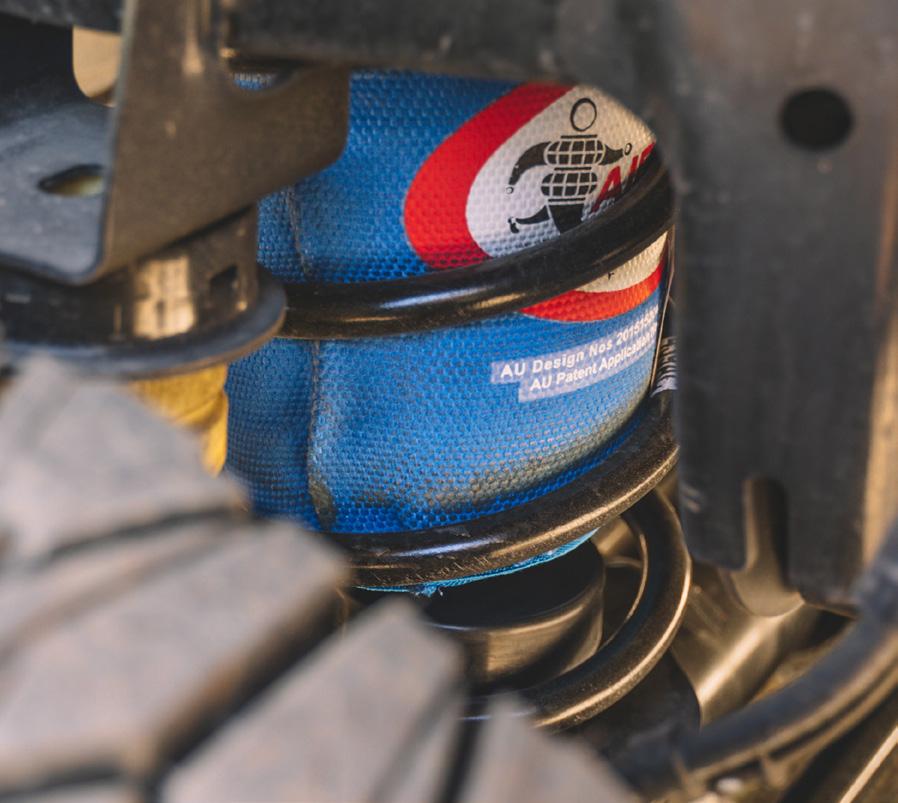

air control options. The standard kits include tyre-style inflation valves, allowing you to adjust the air pressure as required. However, if you desire additional features, Airbag Man has various options available to suit your needs and budget. From pneumatic switches to wireless remote controls and auto-leveling capabilities, you can customise your air suspension system to perfectly meet your needs.
Investing in an air suspension helper kit, whether it’s to compliment your coil spring or leaf spring suspension, not only improves your driving experience but also offers practical benefits. By ensuring proper load levelling and weight distribution, you can enhance safety and stability while towing or carrying load. Additionally, the adjustable nature of air suspension allows you to fine-tune your vehicles optimum height, under all load conditions. This prevents unnecessary “bottoming out” of the suspension, resulting in improved comfort and maintaining the full suspension articulation over various terrains.
With a lifetime airbag manufacturer’s warranty, Airbag Man stands behind the quality and durability of its products with decades of proven results and customer satisfaction. This warranty offers peace of mind, knowing that your air
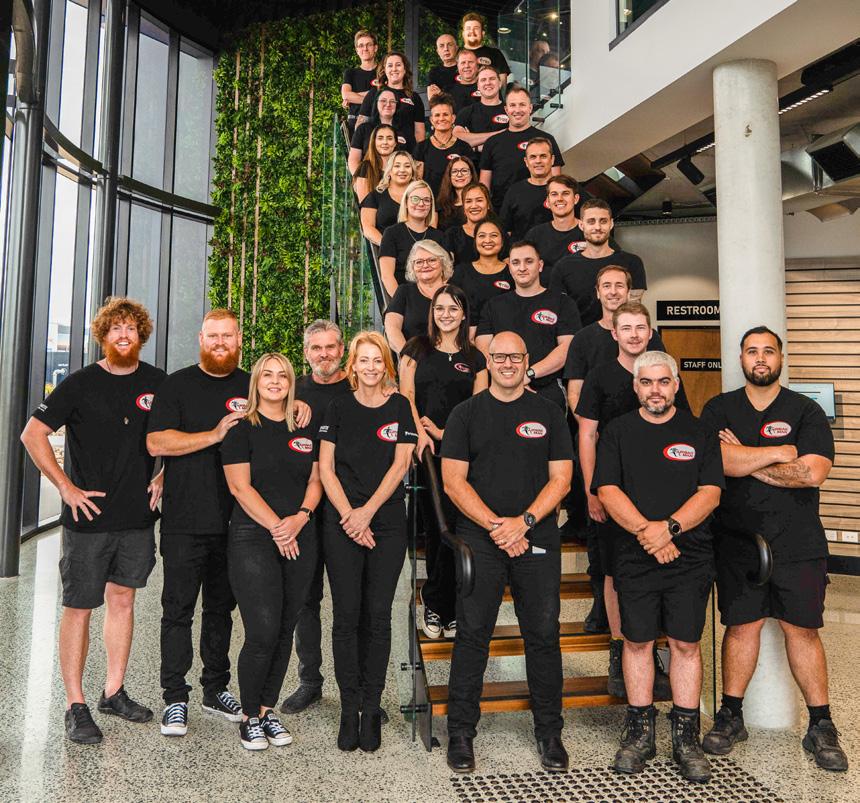
suspension system is built to last and backed by the manufacturer.
Air suspension has a proven track record, having been utilised successfully for decades in various applications. For reference, Airbag man has designed and manufactured solutions for Isuzu, and our helper kit for the Ford Ranger is a Ford Licensed Accessory. Its reliability and effectiveness have been demonstrated in commercial vehicles, off-road enthusiasts’ rigs, and everyday drivers’ cars.
The longevity and positive reputation of air suspension systems speak volumes about their performance and customer satisfaction.
Airbag Man’s range of products goes beyond the light commercial sector. They offer solutions for Heavy Truck and Bus, Agriculture, Industrial, Custom Applications, Caravans, Trailers, and more. Airbag Man designs and manufactures a significant range of Air Suspension systems for the caravan market, and is currently supplying to Premcar under their Terraglide suspension. Additionally, Airbag Man provides solutions for wheelchair accessible vehicles, ambulances and other emergency vehicles.
Whatever your vehicle or application, we have the perfect air suspension solution to meet your needs.
Visit airbagman.com.au for more information, email info@airbagman.com.au or call 1800 247 224
One such example of a successful release is Premcar’s recent Nissan Patrol WARRIOR, a world-class, fullsize 4x4 SUV.
Retaining all of Nissan’s famed luxury, versatility, and quality, the WARRIOR was developed in Australia with local engineers using locally developed components that make it perfectly suited to Australian roads and terrain.
A major part of the WARRIOR’s success is due to it being engineered like that of an OEM-level new vehicle. All of the locally developed components and systems were fully integrated to work together with the vehicle, meaning that it operates as if the carmaker themselves created it.
“The WARRIOR is a great story about the depth of Australian engineering know-how and the quality of our local manufacturing. Believe me, you need both to create a vehicle like this,” prides Quinn.
Meeting and exceeding the necessary high standards for design,
“THE BIG CAR BRANDS MIGHT HAVE STOPPED ASSEMBLING CARS IN AUSTRALIA, BUT AUSTRALIAN BUYERS HAVEN’T LOST THEIR DESIRE FOR ‘MADE IN AUSTRALIA’. CAR-MAKING IS ALIVE AND WELL”
– BERNIE QUINN, ENGINEERING DIRECTOR AND PARTNER, PREMCAR PTY LTD
engineering, and manufacturing is what Premcar prides itself on, ensuring that innovation and customer-centricity are always at the forefront of the company’s priorities.
With a vast majority of new car buyers wanting vehicle choices that are tailored, special, and fit for a particular purpose, Premcar is not only meeting these expectations but surpassing them.
A commonly expressed desire that is continuing to increase in popularity
is that of electric vehicles (EVs).
“New car propulsion systems are changing. Battery-electric vehicles (BEVs), for example, are quickly becoming mainstream, and EV technologies are crossing different vehicle classes. We are keeping pace with these changes and the many others being brought to the carmaking world,” expands Quinn.
Premcar locally developed its first EV back in 2009 when it converted an Australian Ford Territory SUV to full battery-electric power. It has remained close to EV developments ever since.
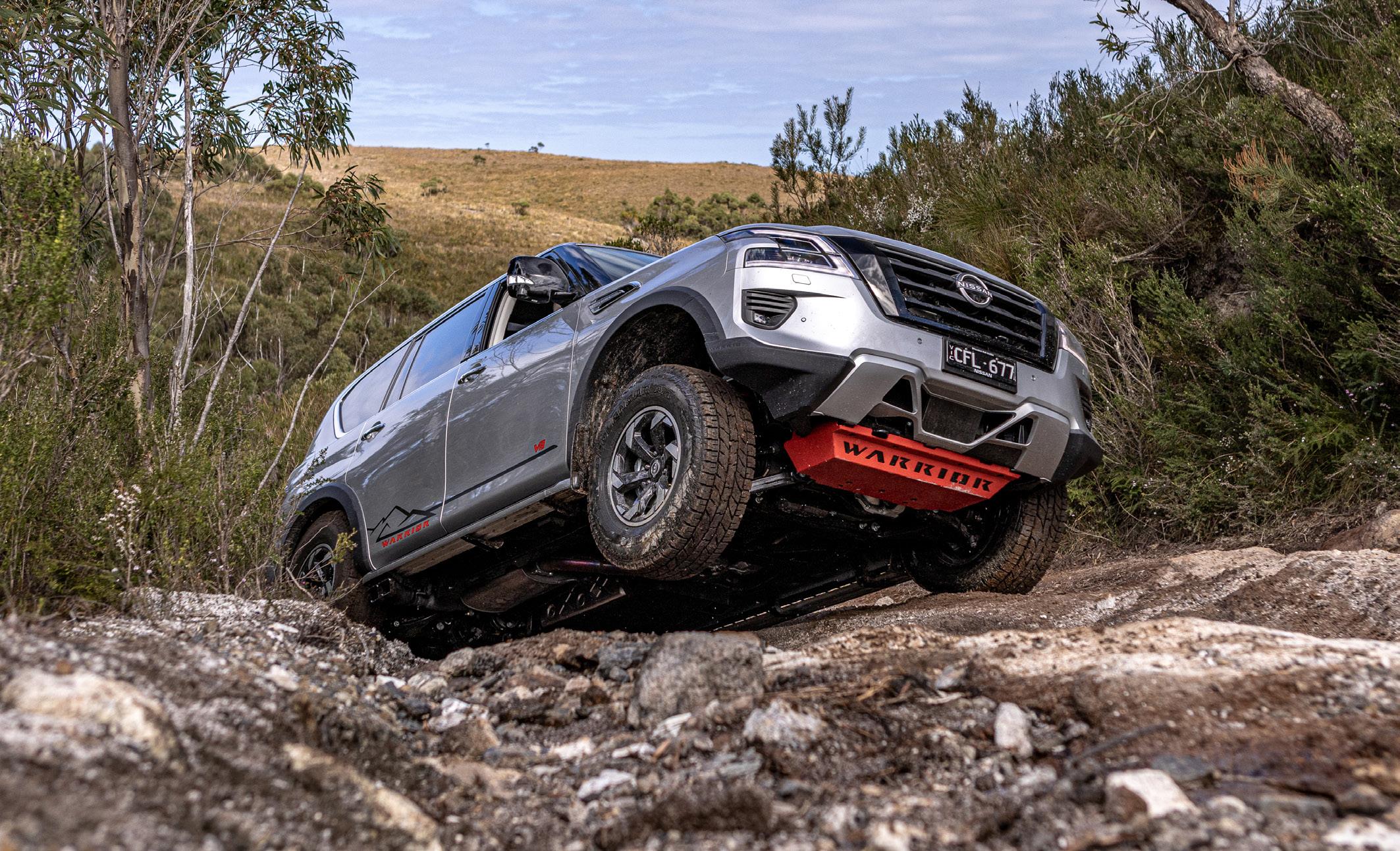
1996: Tickford Vehicle Engineering (TVE) was established in Australia with the launch of the Tickfordenhanced Ford Falcon GT.
2001: TVE becomes Prodrive Automotive Technology Australia.
2010: The supercharged Ford ‘Miami’ V8 petrol engine is revealed.
2012: Prodrive Automotive Technology Australia becomes Premcar after a change in ownership.
2017: Leading international automotive engineering firm RLE International joins Premcar.
2019: Leading global carmaker Nissan teams up with Premcar to develop and build a new rangeleading version of its awardwinning Navara pick-up model.
2023: New vehicle production milestone with Premcar’s engineering and production centre in Epping producing its 5,000th new car. The award-winning Nissan Patrol WARRIOR is released to critical acclaim.

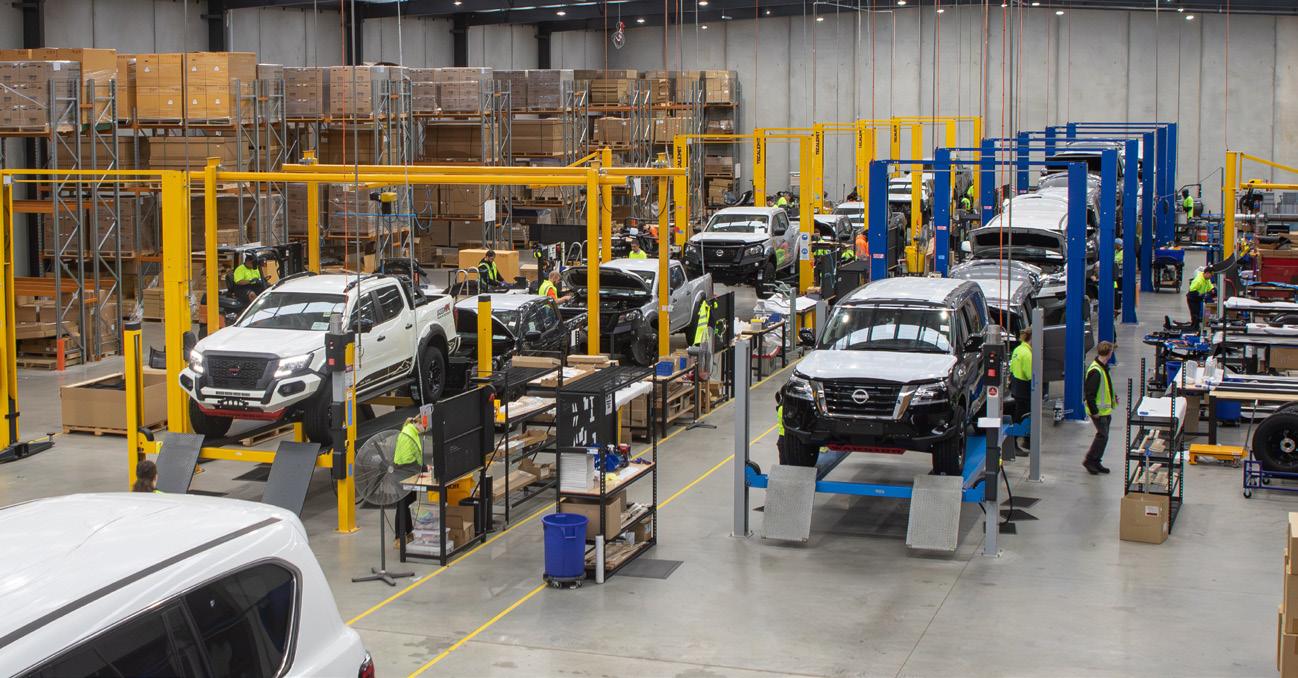
its corporate social responsibility practices seriously by participating in the annual R U OK? Day, offering mental health awareness sessions with external providers, and even hosting on-site massages for its staff.
The company has gone on to complete different EV projects for automakers, such as complete platforms for new EV model ranges and new car EV conversions.
“We are very well-versed in EVs. We’ve got the right skills and knowledge to create zero-emission vehicles to global OEM car-making standards,” confirms Quinn.
With the company’s engineering skills and experience, Premcar is actively contributing to the greater global need for cleaner transport.
Additionally, the company takes
“It’s all about making people aware of the importance of not only their own personal well-being, but the well-being of others around them, and even people outside of the company,” explains Quinn.
Continuing to manage the significant growth the company has been creating in a healthy and sustainable manner is a key priority for Premcar in the upcoming years.
As demand increases for new cars developed and manufactured in Australia, employee numbers at Premcar will continue to grow.
By the end of 2023, the company will have expanded its revenue by approximately 50 percent.
“We’ve experienced a lot of business expansion in the last 10 years, and we pride ourselves on being a large Australian car industry employer and player,” concludes Quinn.
The future is tremendously exciting for Premcar. Being in such a dynamic and constantly evolving industry, the potential is endless.


The power of rotation is found everywhere throughout modern society, whether it is the cars, buses, or trains that take people around, wind turbines that provide power to millions, or even aeroplane engines that transport travellers and cargo around the world.
In fact, wherever there’s movement, SKF’s solutions can be used. For over 115 years, SKF has been developing products and solutions that help in friction reduction and contribute to improved energy efficiency and greater value for our customers’ operations. Today, our products are used all over the world and in a large variety of rotating applications, ranging from renewable energy, such as wind and ocean power, to heavy industries like mining, metal, and pulp and paper.
SKF is a prime example of combining hands-on industry experience with a vast product portfolio and knowledge around bearings, seals, lubrication management, condition monitoring, and maintenance services to meet customer needs across a wide range of industries and numerous geographies.
Today, SKF is setting new standards and creating partnerships, as it has with Premcar, to develop products and solutions that offer competitive advantages to customers, and at the same time, contribute to a sustainable society.
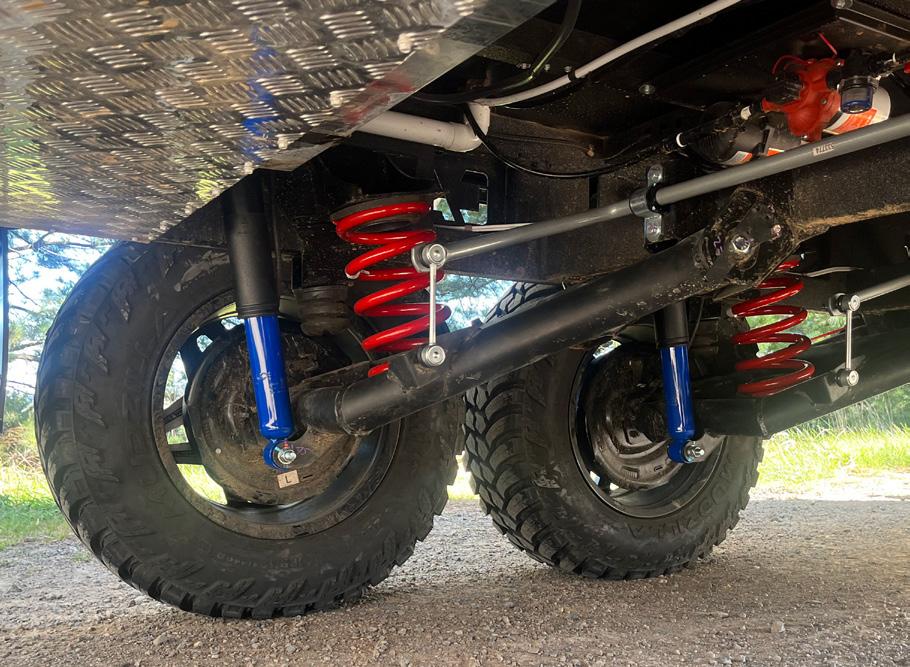
APAC Outlook (AO): Can you introduce us to SKF with an overview of your main products and services?
SKF: We have been operating in Australia for over 100 years. The company’s presence dates to 1908 when SKF was the first to import bearings into the country. Since then, SKF has steadily expanded its operations and product offerings. Today, SKF offers a broad product range
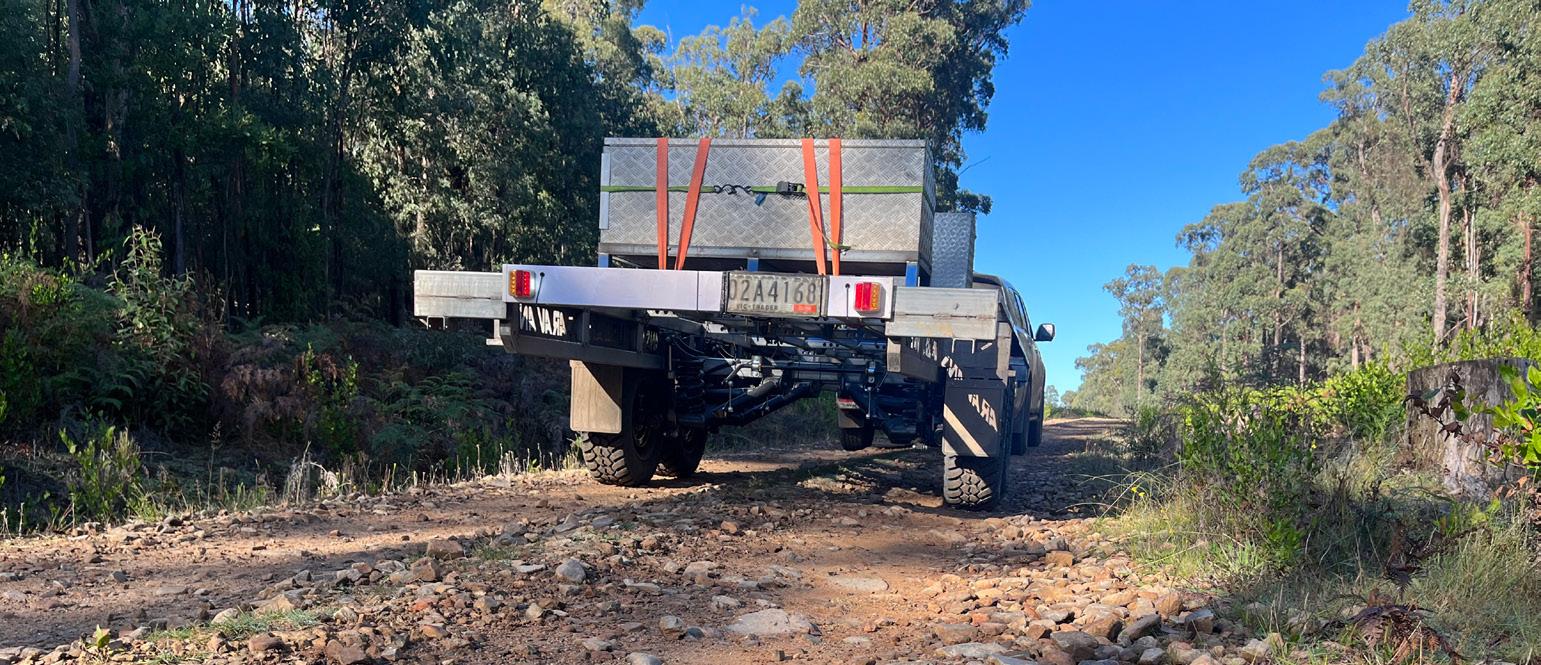
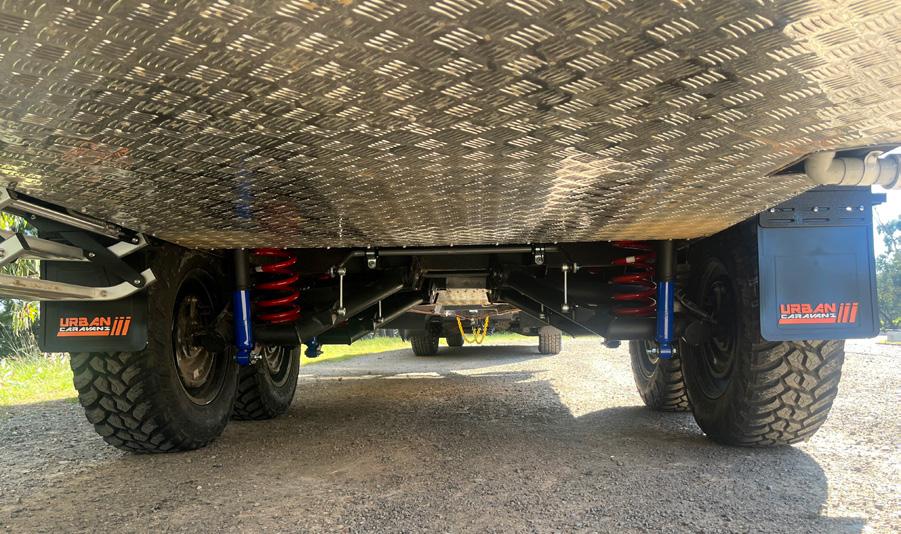
including bearings, seals, and lubrication systems, as well as rotating shaft services and engineering solutions. With such a broad offering, we cater to Australia’s leading industrial sectors such as railways, mining, and metals as well as automotive sector including vehicle aftermarket for passenger vehicles and commercial vehicles segment. We are headquartered in Melbourne, where we offer sales, engineering, and customer support and have strong presence in Perth, Queensland, and Sydney. With the help of our distributors and partners, we remain committed to providing value-added solutions to our customers across industries.
AO: Can you delve into the partnership that you have with Premcar?
SKF: As a purpose-led company, we are always looking for ways to collaborate for the continuous advancement of our products and solutions. The opportunity to collaborate with Premcar started in May 2022 at one of the largest automotive shows in Australia. This led to further collaborations on bearing selections, and eventually the hub bearing unit was selected. Additionally, we worked closely with our automotive and engineering team in India to make sure that we are offering the right solution to the customer.
The automotive market in the country is usually focused on the aftermarket since Australia is not a design and manufacturing hub. For us, it’s a market we have never been much involved in. However, this partnership with Premcar offered a new foundation for expansion in the growing vehicle aftermarket.
As a trusted manufacturer of wheel end, engine,

drivetrain, and suspension components, plus the bearing, tooling, and lubrication products that underpin them, we are well-positioned to become a preferred supplier for the commercial vehicle segment that requires a steady supply of high-quality repair components for the aftermarket.
AO: What about the specific support and services that you provide to Premcar?
SKF: For us, everything begins with understanding the needs of our customer. With Premcar, we started with discussing the product concept, then diving into preliminary selection and basic dimensioning, followed by choosing which one of our products would be the best fit. Secondly, we used our advanced simulation tools to collect the inputs that go on a wheel bearing, for example, the diameter of the tire and the type of speed the vehicle is going to be travelling at. Along with our team in India, we worked on the simulation to ensure that we are as realistic as possible. This is because if you design something that doesn’t work during trials and you need to go back and redesign it, that costs time and money. Thirdly, we had several rounds of dialogue for gathering inputs, reviewing the design parameters, and re-running the simulation to develop the final solution in the shortest time possible. It’s interesting that at the end of this process, the next generation is already under discussion. This is a good example of how our response to an idea has led to more business opportunities.
SKF: SKF has something that very few industrial companies have - a deep understanding of almost all industrial and automotive applications. With 41,000 employees in over 129 countries, SKF develops technologies that offers our customers a competitive edge. Our products, solutions, and services help machines run smoother and with less emissions, as well as enabling the growth of clean technologies, such as renewable energy and electric vehicles. SKF’s ability to master the complexity of meeting customer needs across a wide range of industries and numerous geographies, is our greatest strength and key to our success. As we position ourselves for future, will continue to invest more

into the development of solutions for these industries, growing hand in hand with our customers.
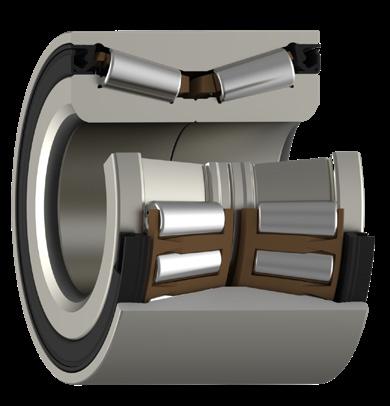
SKF: This partnership with Premar is a very good example of SKF’s unmatched customer-centric approach, our true capability, and what we can do to solve customers’ challenges. It exemplifies how we can collaborate both externally and internally to develop products and businesses faster and more easily. We believe in working closely across the full value chain - customers, sales, logistics, manufacturing, supply chain, and R&D to generate ideas and then move them towards implementation in the shortest time possible.
As a global leader within the industry, we want to keep pushing the boundaries. This means continuously developing new ways to do business, to innovate, and to work together with our customers and partners to help transition to a cleaner world. www.skf.com
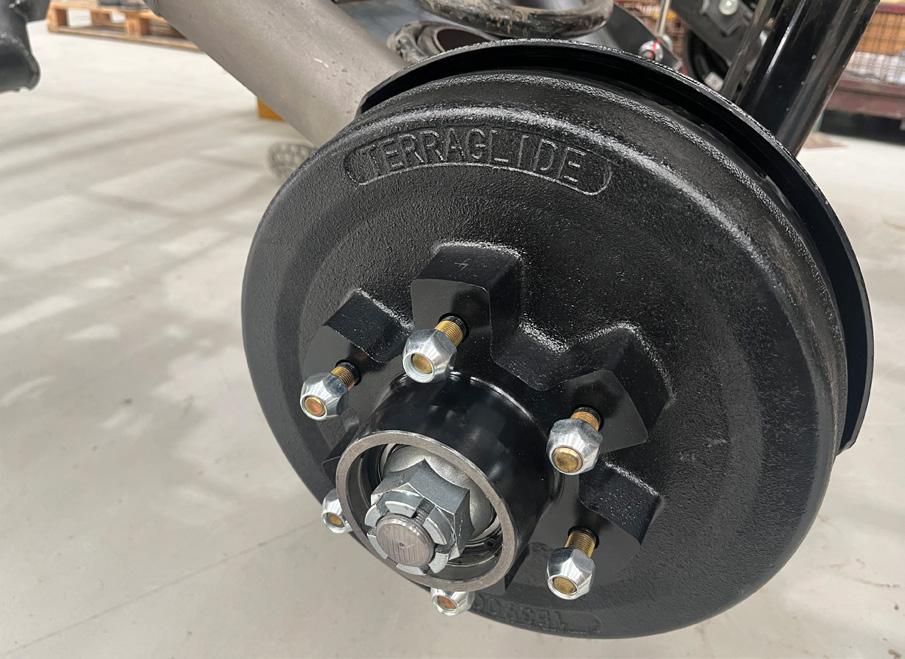 Hub mounted on the Axle
SKF Bearings
Hub mounted on the Axle
SKF Bearings

Enabling net zero, Hamish Moffat, Managing Director of Zenith Energy, speaks to us about the company’s sustainable future
Writer: Lauren Kania | Project Manager: Jack BeltonZenith Energy (Zenith) is one of Australia’s leading independent power producers (IPPs), having established its presence by providing remote power generation solutions to major projects since 2006.
With a portfolio spanning throughout Western Australia (WA) and the Northern Territory, Zenith’s mission is to enable customers
in its chosen markets to achieve their environmental, social, and governance (ESG) goals, including net zero emissions through electrification. Zenith is leading the energy transition in Australia’s mining sector and grid connected communities, deploying innovative technology with a complete range of renewable energy generation, battery energy
storage, and low-emission thermal technologies to decarbonise power systems at scale both cost-effectively and reliably.
Hamish Moffat, Managing Director of Zenith, has worked in and around the energy sector for over three decades, having joined the company in 2015 and immediately setting the strategy for where the business was

to head.
“Our core business has grown up on mining and resources, and we’ve provided power solutions to mining and oil and gas houses predominantly throughout Australia and even overseas,” Moffat opens.
“We’ve focused on efficiency and emissions reduction for a number of years, and the decarbonisation
potential has driven what we do,” he continues.
With the mindset of creating a renewable energy future today, Zenith specialises in bespoke, offgrid power generation and grid connected community energy solutions, integrating a complete range of thermal and sustainable energy with innovative technologies
to deliver greener, cost-effective, and reliable hybrid power solutions for its increasingly diverse set of clients.
The company also prides itself on offering a flexible approach, meaning that it is free from traditional energy-type restraints, enabling it to deliver optimum power solutions with proprietary techno-economic modelling.
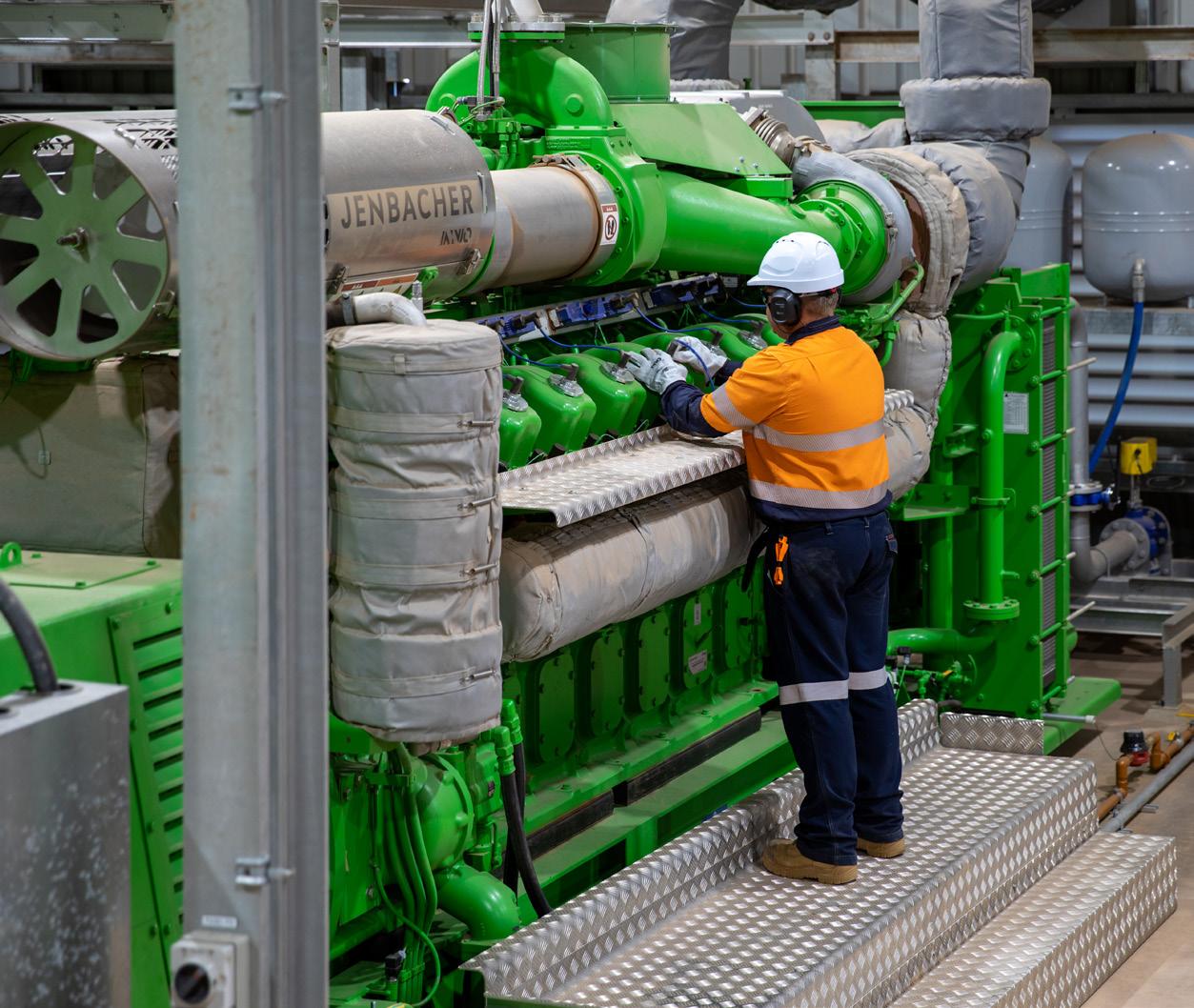
“WE PROVIDE CLIENTS WITH THE HIGHEST LEVEL OF SURETY AROUND DELIVERING PROJECTS AND MEETING THEIR PERFORMANCE CRITERIA AND RELIABILITY OF SUPPLY”
– HAMISH MOFFAT, MANAGING DIRECTOR, ZENITH ENERGY
HAMISH MOFFAT, MANAGING DIRECTOR: “Environmental, social, and governance (ESG). We’ve focused on ESG for a number of years, particularly the environment, but now we also have a much greater focus on social and governance.
“A lot of that focus really came either through the COVID-19 pandemic or immediately after.
“We completed, for example, Australia’s first large-scale, nongovernment supported, purely commercial solar-diesel hybrid system long before it was trendy and topical.
“We continue to lead in that space and are delivering the majority of Australian off-grid projects that are low-emission.”
This modelling allows Zenith to develop innovative, custom-built power solutions that are tailored to a client’s specific location, load profile, site conditions, and decarbonisation objectives.
With an extensive knowledge of and experience in the remote power industry, Zenith is an unparalleled leader in hybrid power solutions with proven delivery, security, and quality of supply.
Zenith sets itself apart from the competition in myriad ways, one of the most prominent being its
vertically integrated offer.
“We do everything from design, engineering, procurement, construction, operations, maintenance capabilities, and more. We even have our own in-house legal team,” expands Moffat.
This allows Zenith to streamline and ultimately optimise the services offered to its clients, ensuring that the entirety of a project is constructed and managed with the highest level of care and attention.
Additionally, Zenith offers a build–own–operate (BOO) service model, which allows clients to deploy their capital more effectively within their respective businesses.
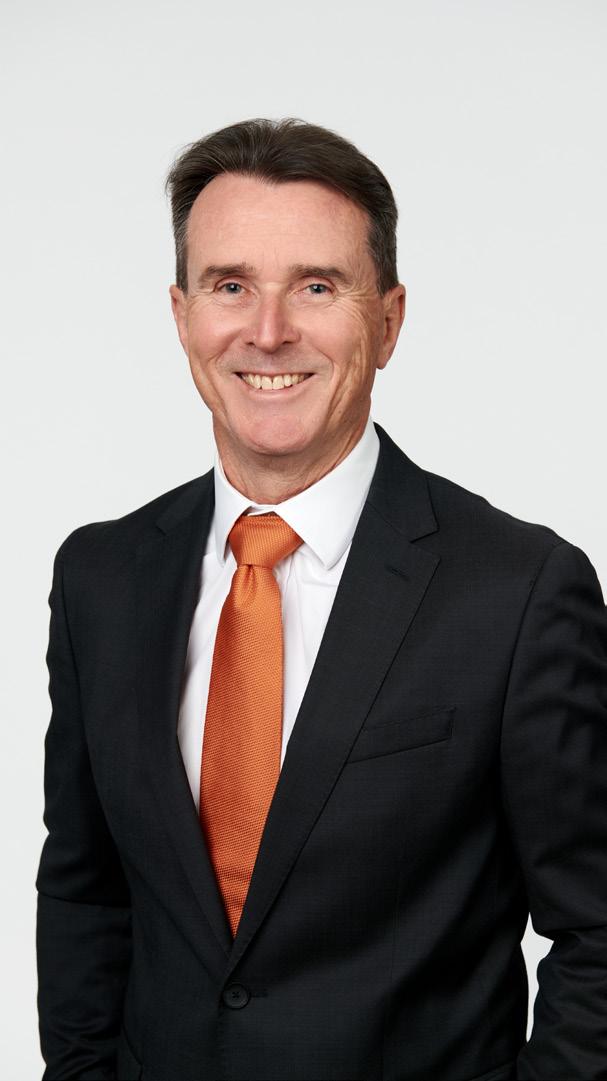
Founded in 2011 in Perth, 360 Logistics has developed an enviable reputation in delivering tailor made solutions to the resources and construction sectors.
Together with our global network partners, as well as domestic partners throughout Australia, 360 Logistics provides world-class global logistics, domestic transport, and warehousing / storage solutions for its customers, and develops long-term relationships with our clients and service providers alike to support sustainable business growth. Service and quality are at the heart of what we do at 360 Logistics. Our experienced personnel and bestin-class service providers ensure a dedicated and efficient service.
We take the time to understand our customers’ business requirements and range of products along with any special handling and time limits to become an integral part of their business. When engaging 360 Logistics as a service provider of choice, we strive to deepen our knowledge of our clients’ products and requirements. We aim to help create a competitive advantage by continuously innovating and improving our processes.
We specialise in the movement of project cargo including break bulk, containerised, general, and heavy haulage. We also offer jacking and skating services Australia wide. This is at the heart of the services we provide for Zenith Energy.


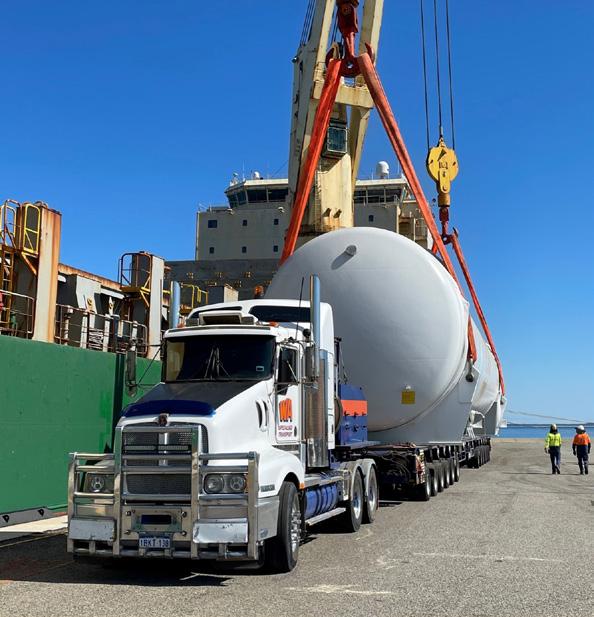
Recent projects completed or in progress include Bellevue, Jundee, Kathleen Valley, Nova, and others. The services provided include, but are not limited to:
• Shipping from China, and in Australia: transport and positioning of liquefied natural gas (LNG) tanks to foundation at multiple remote mine siteS
• Delivery of large-scale solar farm equipment
• The transport and handling of various sized transformers, switch rooms and BESS Units.
In addition, 360 Logistics has developed a niche with its mining customers to provide amongst other things:
• Project logistics for the construction stage of the project
• Consumable and reagent supply from global or domestic locations to site
• On-site ore haulage and road maintenance
• Mine to market logistics to transport the concentrate or finished product off the mine to any domestic or international location that is required.
360 Logistics has been entrusted by Zenith Energy over the past three years with handling the logistics component of several large and complex project shipments and domestic transport requirements.
For more information, please visit: www.360logistics.com.au; or contact Jeremy Stevens by email at: jeremy.stevens@360logistics.com.au; or by mobile at: 0435 526 519.
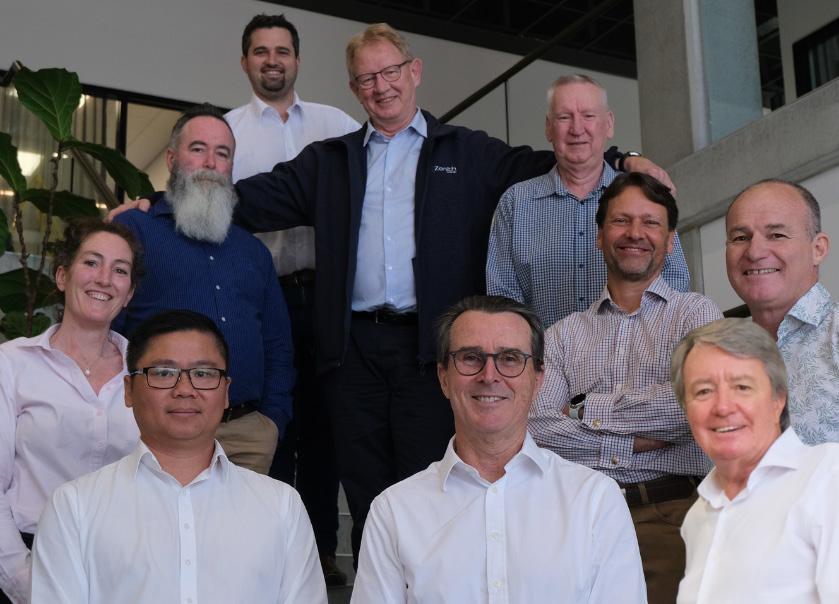
These contracts are a cost-effective solution, providing reliable, state-ofthe-art power for the life of a project that Zenith has recently expanded into grid-connected networks and microgrids.
Along with this model, which allows for a plethora of client benefits, the company is leading the deployment of large-scale hybrid islanded projects in Australia.
One such endeavour is the Bellevue Gold project – currently the highest penetration renewable hybrid project in Australia.
“Bellevue Gold – a gold mine – will be a high-penetration wind, solar, battery energy storage, and liquefied natural gas (LNG) solution that will have an 80 percent renewable energy fraction, which is extraordinarily high in the current market,” notes Moffat.
Zenith will finance, build, own, operate, and maintain the cuttingedge 88 megawatt (MW) hybrid power station for an initial term of
“WE’RE ALWAYS PUSHING TO INNOVATE AND BE AT THE FOREFRONT OF THE MARKET; THAT’S WHAT MAKES THIS SPACE SO EXCITING”
– HAMISH MOFFAT, MANAGING DIRECTOR, ZENITH ENERGY
15 years. The hybrid power solution will allow the project to operate on 100 percent renewable energy and seamlessly switch to an engineoff mode during periods of high renewable energy generation.
Projects such as these highlight the company’s unique services, which differentiate it from the rest of the market, along with its dedication and strides towards a more sustainable future.
With the right balance of ambition and ability, Zenith is working to create sustainable outcomes that deliver value
whilst strengthening the environment and the local communities in which the company operates.
While the Australian federal government has outlined its plan to reach net zero emissions by 2050, Zenith has earmarked 2035 as the year it will achieve this target.
“We are actually the first and only IPP in Australia to issue a net zero objective by 2035, which is well ahead of the rest of the market,” excites Moffat.
“In fact, we had an interim target of 20 percent reduction in our carbon intensity by 2025, and we have
Established in 1996, RJE provides multidiscipline engineering and construction services to complex projects across a diverse range of industries including, Mining and Renewable Energy, Light Rail, Communications, Power and Utilities, Power Generation & Distribution, Transport & Infrastructure.

already achieved that goal based on contracted power purchase agreements (PPAs),” he continues.
As a leading IPP in the mining and resources sector along with grid-connected community energy solutions, Zenith has committed itself and its team to reaching 100 percent renewable power generation, predominantly via bulk solar and wind power.
In addition to this net zero commitment, Zenith is the only IPP working with the Electric Mine Consortium in Australia.
“The consortium is working around the electrification and decarbonisation of mines through innovation and new technology trials with all participants,” expands Moffat.


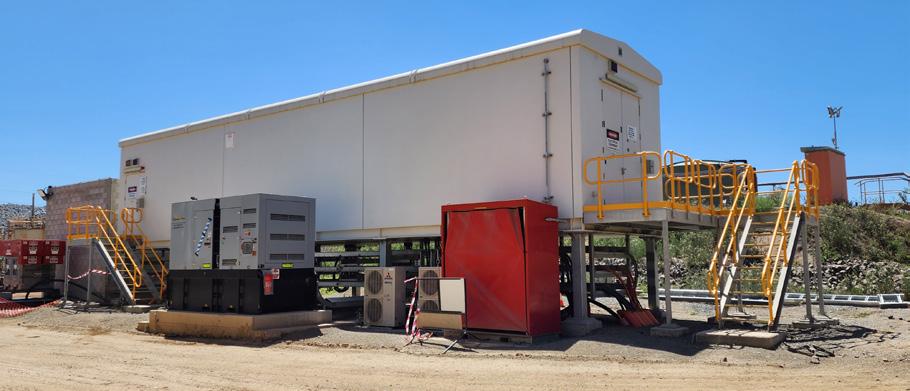
SPARK values are key principles that govern Zenith’s strategic direction, business practices, and decision-making.
SAFETY – A commitment to protecting the safety, health, and well-being of Zenith’s team, contractors, customers, and the environment.
PERFORMANCE – Dedicated to providing safe, reliable, and sustainable solutions with real benefits to customers and shareholders.
ACCOUNTABILITY – Valuing the ability of Zenith’s people and its organisation to work diligently and honour its commitments and responsibilities.
RELIABILITY – Inspiring confidence in Zenith’s business model and products, and further enhancing its reputation in the market.
KNOWLEDGE – Continuous technical development and innovation of the company’s products, services, and its team.
As part of the transition to renewable energy, Zenith is actively working with like-minded companies and original equipment manufacturers (OEMs) to develop industry solutions, including increasing renewable penetration among legacy clients, and participating in collective groups such as the Electric Mine Consortium.
The culmination of these achievements was recognised this
year with Zenith scooping two titles at the 2023 Asian Power Awards – one for ESG Programme of the Year –Australia, and a second for IPP of the Year – Australia.
“We’re not just your typical corporation where it’s all about the bottom line; it’s about how we get there in a responsible and sustainable manner,” asserts Moffat.
Zenith doesn’t take its reputation as one of Australia’s leading power producers lightly.
The company is acutely aware of the need to continue to learn and grow, not only in its methods of power generation but also in its engagement with local communities.
An important undertaking for Zenith is Traditional Owner engagement. Within the broader diversity and inclusion framework of the company, it has various
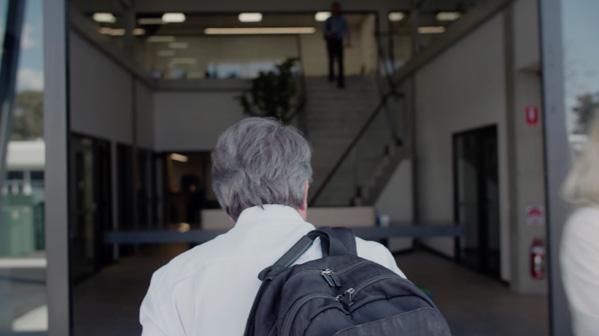
programmes for Indigenous engagement, having participated in a number of firsts in this area.
“We did the first IPP First Nations engagement agreement in the country, and now we have established a joint venture (JV) majority owned by the Traditional Owners – a milestone in Australia,” insights Moffat.
Along with this endeavour to acknowledge and support the

traditional custodians of the land, Zenith also has measures in place to support a more diverse workplace.
This includes implementing the company’s Reconciliation Action Plan and providing culturally appropriate support and cross-cultural awareness, ultimately supporting employees in observing cultural events even in remote, on-site locations.
With the intent to make a difference
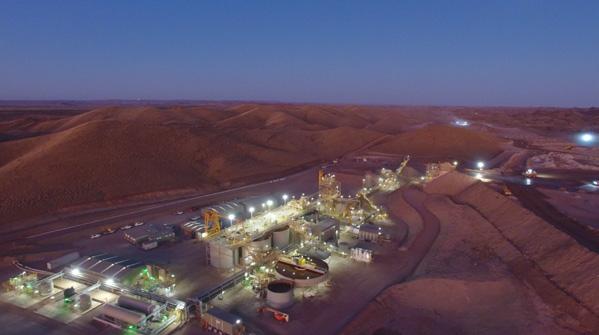
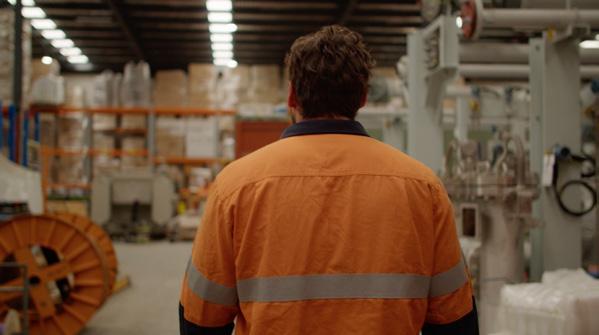
in the lives of employees and the communities in which they live and work, a key part of Zenith’s mission is the development of open and rewarding relationships, placing an emphasis on honesty and respect.
“Our people are our most important asset. I know it’s a bit of a cliché, but as a resources-based offer, it’s all about our capability and competency,” notes Moffat.
No organisation is a single person, and Zenith is acutely aware that the development of a strong, positive, and inclusive workplace is vital if the company, and the wider mining and resources industry, are to continue to grow both culturally and economically.
With the renewable energy sector being such a dynamic and engaging place to be in with seemingly neverending developments and advances, Zenith is paving the way for the future of the mining and resources industry in a manner that is sustainable, economic, and reliable.
“We’re all about growth, whether it’s organic, inorganic, geographic, or segmental,” concludes Moffat.
Having grown to become one of

Australia’s leading IPPs, Zenith is tirelessly looking for ways to progress and ensure that it can continue the delivery of tailored, sustainable, reliable, and cost-effective power solutions for years to come.

ZENITH ENERGY
Tel: +61 8 9416 2005
info@zenithenergy.com.au zenithenergy.com.au
In recent years, practising sustainability has become an important requirement within the environmental engineering industry. Jeanette Lee, CEO of Envipure, shares how her company achieves this goal by implementing sustainable systems and solutionsWriter: Lily Sawyer | Project Manager: Nicholas Kernan
The environmental engineering industry, particularly in pollution control, odour abatement, water and wastewater treatment, is a dynamic and evolving space.
A global emphasis on sustainability, coupled with technological advancements, changing regulations, and increased public awareness, has driven up demand for innovative solutions.
“The sector presents significant opportunities for professionals and businesses to make a positive impact on the environment while staying at the forefront of cutting-edge technologies and contributing to global sustainability goals,” opens Jeanette Lee, CEO of Envipure.
Established in 1979, Envipure is a distinguished leader in environmental engineering solutions and services,
possessing over four decades of experience.
The company is the go-to provider of operations and maintenance services for semiconductors, public water and power utilities, and oil and gas facilities in Asia, the Middle East, and the South Pacific.
It also specialises in air and odour pollution control, as well as water and wastewater treatment.
The company has a dedicated team of some 200 staff at its headquarters in Singapore, along with 70 employees in neighbouring Malaysia.
“Testament to our operational competence, Envipure boasts a wide arsenal of prestigious licenses and certifications. Additionally, Georg Fischer, one of our trusted partners, has helped us to achieve industryleading status,” Lee continues.


With a core focus on creating sustainable solutions, Envipure is dedicated to environmental excellence, client satisfaction, safety, and compliance.
Envipure was acquired by Nordic Group in 2019, a strategic collaboration that brought both companies into a new era of growth and innovation in the semiconductor and environmental engineering space, marked by a heightened focus on sustainability and an expanded portfolio of services.
“Being acquired by Nordic Group has been instrumental in catalysing the elevation and expansion of our services and customer base,” Lee divulges.
The acquisition has allowed Envipure to enhance sustainable revenue growth by amplifying emphasis on boosting maintenance and facilities engineering services (FES) sales.
What differentiates Envipure from the market competition is its holistic approach to environmental solutions.
Unlike competitors that specialise in a single field, Envipure offers an integrated suite of treatment solutions and services for both air and water in industrial plants.
“By providing an integrated solution, we streamline the interface for plant owners, eliminating the need to coordinate with multiple vendors. This results in cost savings and contributes to enhancing overall environmental performance,” details Lee.
In addition, Nordic Group’s support has empowered the company to extend its market penetration to high-demand sectors with significant growth potential such as the petrochemical, pharmaceutical, and semiconductor industries.
“Diversification of our sector focus mitigates the risks associated with over-reliance on a single-sector market fluctuation, ensuring a more robust and resilient business model,” Lee clarifies.
Envipure is dedicated to environmental stewardship, public health, and

renewable energy generation.
It strives to create sustainable solutions that address environmental challenges, promote public health, and actively contribute to pollution control through innovative engineering solutions.
“These commitments are reflected in our daily actions, from selecting sustainable materials and technologies to optimising processes and incorporating innovative solutions.
“We believe that our dedication to these principles will positively impact the environment and the communities we serve,” enthuses Lee.
Envipure understands that innovation is crucial for addressing evolving environmental challenges. Therefore, it dedicates significant resources to ongoing research and development, to ensure that its projects incorporate the latest advancements in environmental engineering.
“This commitment to innovation allows us to deliver cutting-edge solutions that minimise environmental impact and support our clients’ sustainability goals,” she comments.
JEANETTE LEE, CEO, ENVIPURE: “At Envipure, our supply chain operations are pivotal to our business strategy. We place great importance on collaborative relationships with partners, suppliers, and subcontractors to ensure the success and sustainability of our operations.
“We prioritise suppliers who align with our core values of business integrity, sustainability, quality, and innovation. These strong partnerships grant us access to cutting-edge technologies and materials, positioning our projects at the forefront of innovation.
“This not only contributes to the timely and cost-effective delivery of our solutions, but also enables us to consistently exceed client expectations. The success of Envipure is a testament to the strength of these vital relationships, driving our continued growth and impact in the environmental engineering sector.”
In line with its commitment to social responsibility, Envipure actively boosts local economies by generating job opportunities and fostering economic prospects in the communities where it operates.
“Diversity and inclusivity hold a significant place in our values,” declares Lee.
The company actively cultivates a welcoming workplace, offering equal job opportunities and supporting employee resource groups to champion employee diversity.
“Moreover, ethical integrity is a top priority across all aspects of our business,” she stresses.
Envipure upholds stringent ethical standards by adhering to applicable laws and regulations. It treats employees and stakeholders with respect by conducting business in a transparent and ethical manner.


“AT ENVIPURE, WE ARE DEEPLY COMMITTED TO ENVIRONMENTAL STEWARDSHIP, CONTINUOUS INNOVATION, AND REGULATORY COMPLIANCE. THESE PRINCIPLES ARE EMBEDDED IN OUR DAILY ACTIONS AND DECISIONS”
– JEANETTE LEE, CEO, ENVIPURE
Additionally, Envipure prioritises the well-being of its team, clients, stakeholders, and surrounding communities through strict health, safety, and environment (HSE) measures.
From maintaining stringent safety protocols to proactive risk mitigation and emergency response planning, the health and safety of employees and stakeholders is of paramount importance to Envipure.
The company also works to sustain corporate compliance by adhering
to regulatory standards and industry best practices. Every decision it makes is informed by a thorough understanding of current and anticipated regulatory requirements.
“Dedication to compliance means that we can anticipate and adapt to future regulatory changes, safeguard our clients’ interests, and protect the environment,” Lee emphasises.
Envipure is progressively fulfilling its outstanding projects.
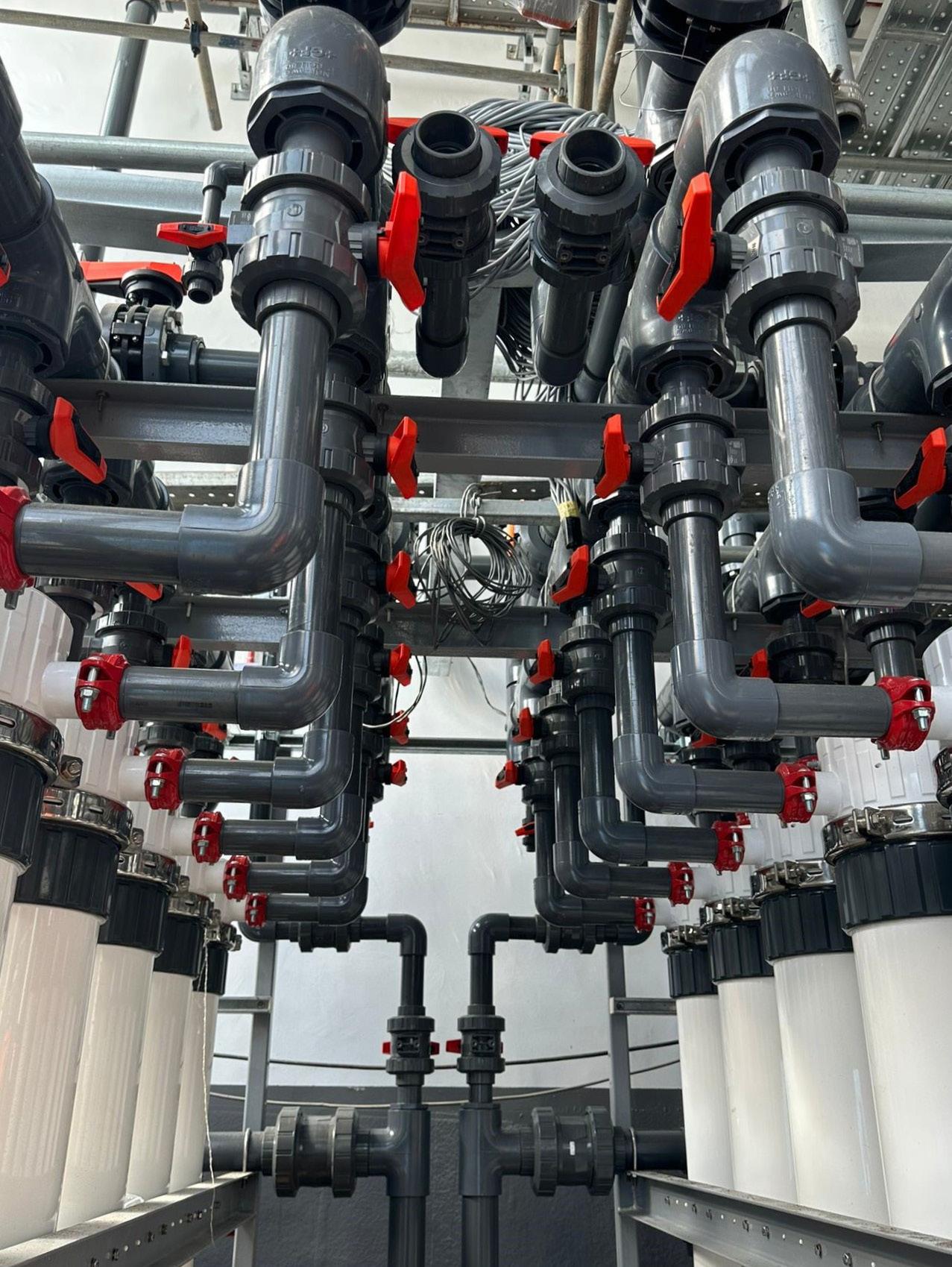



As two industry-leading organisations respectively, the established, enduring partnership between Envipure and George Fisher Ltd has elevated both companies to greater heights, as the collaboration has secured more competitive price points for materials and services.
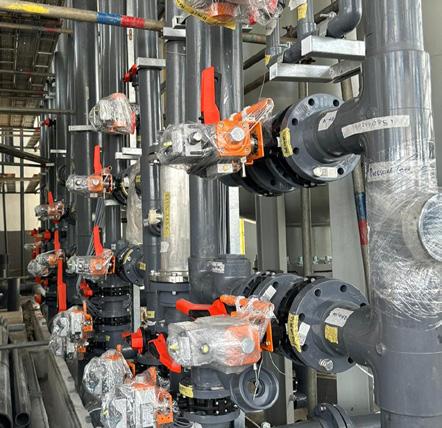
Georg Fischer Ltd comprises of four distinct divisions: GF Piping Systems, GF Uponor, GF Casting Solutions, and GF Machining Solutions. As a result, the company is an all-encompassing solutions provider and has been devotedly collaborating with environmental engineering titans, Envipure, for over 15 years.
The long-standing partnership has facilitated continuous cost reduction through the optimisation of the ordering and delivery processes, bringing forth many complementary strengths.
The synergy between the two companies is based on a mutually beneficial arrangement that was created to enable the attainment of shared goals, such as achieving optimal quality.
Additionally, through a collaborative effort, both Envipure and GF Piping Systems can leverage each other’s complementary strengths to streamline processes and enhance efficiency, ultimately fostering an environment where both parties thrive in the pursuit of common objectives.
Through Envipure’s vast multitude of projects, GF Piping Systems expertise is most greatly highlighted in the Micron Singapore Fab 10 and Infineon Melaka Block 11 projects. These stand as recent examples of the expertise between Envipure and GF Piping Systems, as well as the collective strengths of each company in delivering successful outcomes.
In times of challenge for Envipure, GF Piping Systems comprehensive solutions have been instrumental in addressing and alleviating difficulties. In testament to this, Envipure has not yet encountered any product failures or non-conforming products, which underscores the consistent reliability and high standards GF Piping Systems has become known for.
In the upcoming year, Envipure envisions the flourishing continuation of the partnership between itself and GF Piping Systems as it places great value on the collaborative pursuit of offering high-value, sustainable products and solutions.
• Faster turn-around on quote
• Lead time optimization to meet their project schedule
• Economical: low maintenance costs and fewer interruptions to operations

Visit our webpage to get in touch
with your local specialist:
sgp.ps@georgfischer.com
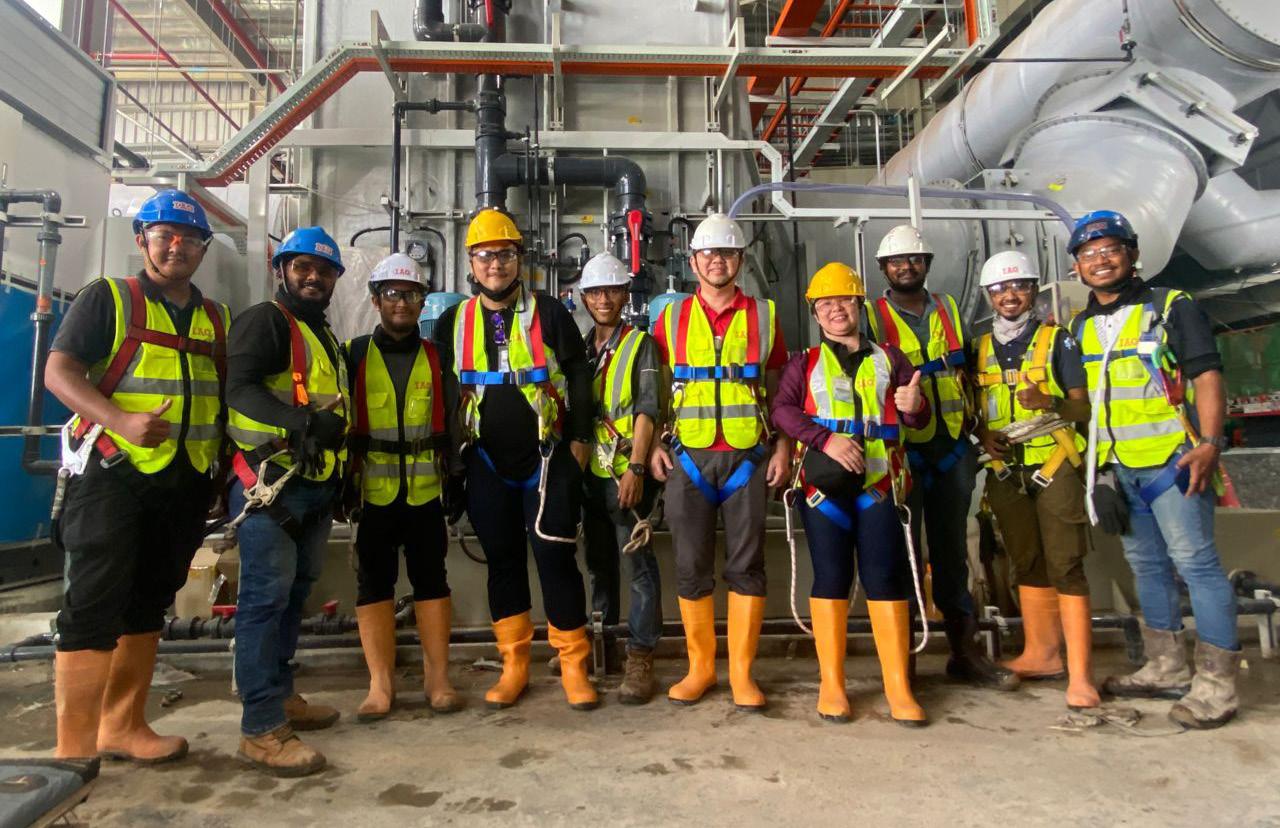
As a subsidiary, Envipure is aligned with Nordic Group’s core values. Offered as guidance in the way Envipure operates, each letter in ‘Nordic’ represents:
NURTURE: Moulding an environment that encourages growth and development.
OWNERSHIP: Inculcating a strong sense of accountability and developing pride in each project.
RESPECT: Respecting differences and embracing diversity.
DISCIPLINE: Reinforcing compliance with guidelines and processes.
INTEGRITY: Building trust through honesty and integrity in its actions.
COLLABORATION: Promoting a spirit of synergy to achieve greater heights. Envipure is not just a provider of environmental solutions, but a dedicated partner in fostering sustainable practices, ensuring compliance, and contributing to a cleaner and healthier world. The company’s focus on innovation, reliability, and environmental stewardship positions it as a leader in the industry.
In a recent noteworthy project, Envipure successfully completed the installation of two treatment plants within a food facility factory in Singapore, encompassing odour abatement and wastewater treatment systems.
“These projects stand out due to our innovative approach to digitalisation, incorporating internet of things (IoT) with real-time data analytics and visualisation capabilities,” highlights Lee.
Another significant project involves supplying semiconductor plants in Malaysia, providing engineering, procurement, construction, and commissioning (EPCC) for the provision of ultra-pure water essential for production needs, and a wastewater treatment system to reduce water waste, along with the scrubbers and regenerative thermal oxidiser for the air pollution control system.
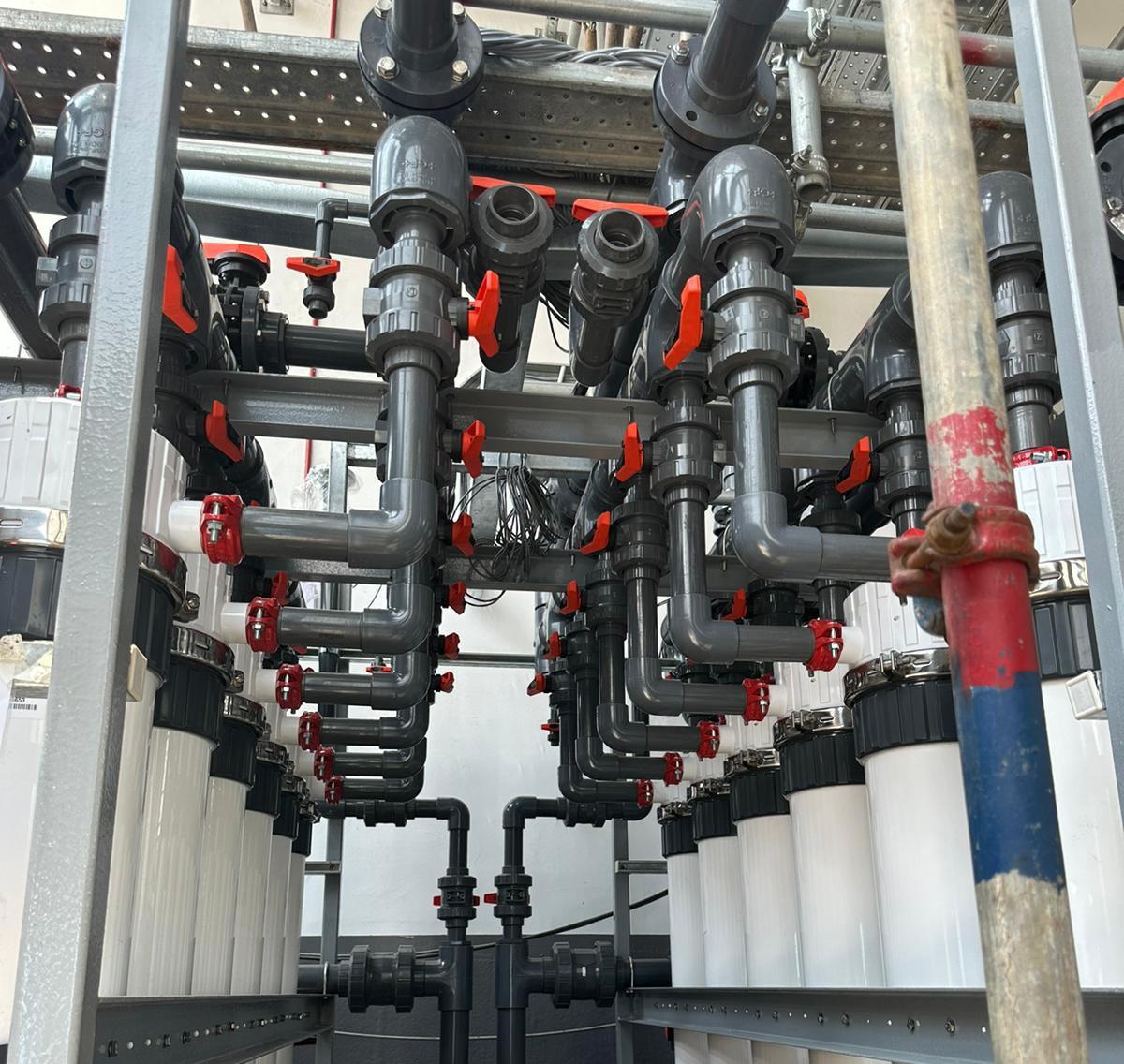
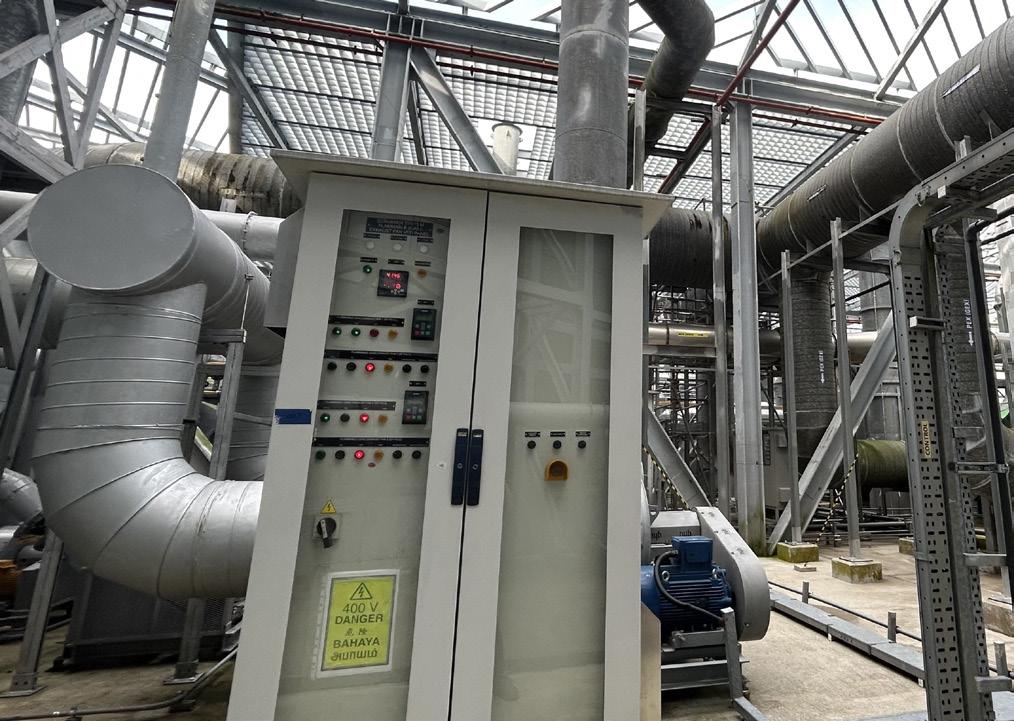
“Our dedication to technological innovation, environmental responsibility, and client-focused solutions is showcased by these projects,” summarises Lee.
Looking forward, the company is broadening its sector coverage to include the petrochemical and healthcare industries.
This new growth direction represents a significant scale-up in the treatment of air and water pollutants, which requires the company to


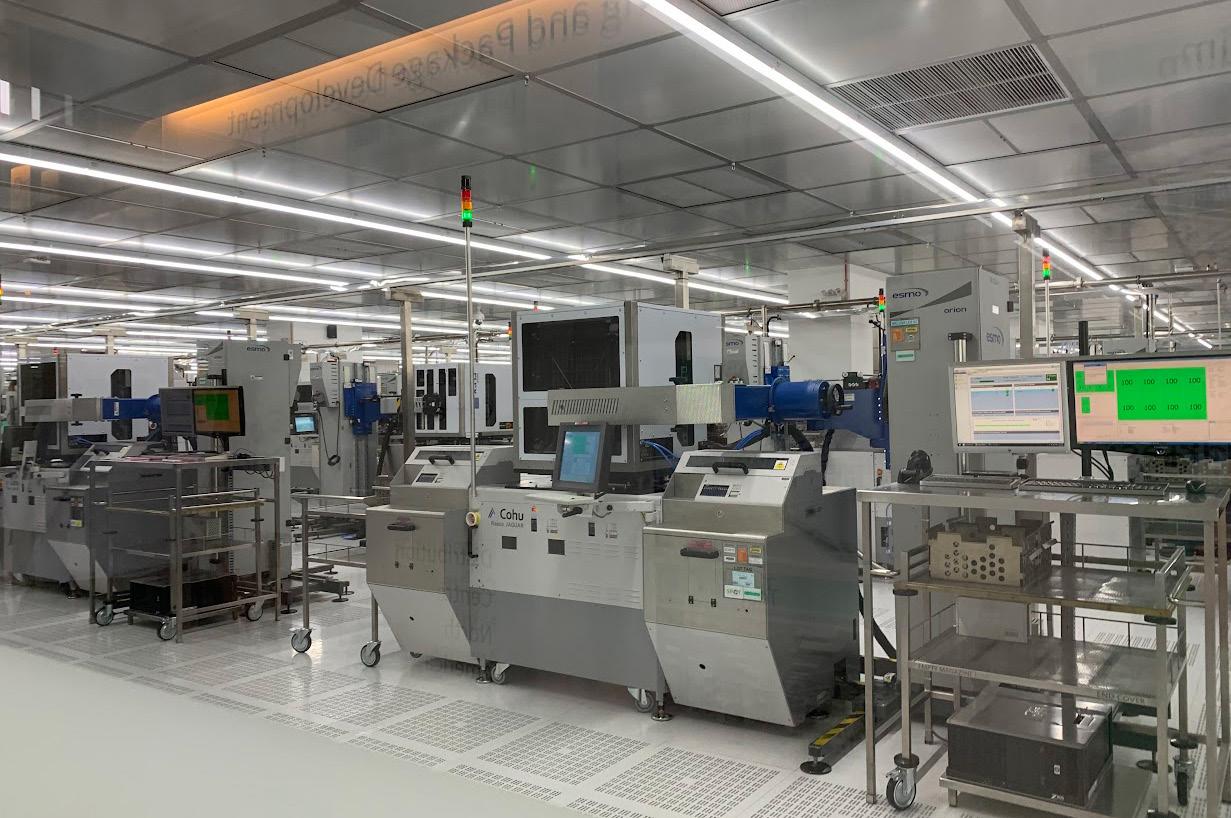
greatly ramp up its capabilities.
In terms of future planning, Envipure aims to stay relevant and at the forefront of the ever-evolving market.
The company plans to embed new digital technologies into its systems to improve efficiency and effectiveness for the end user.
“This is an ongoing effort that requires my team and I to be prudent and agile in order to remain relevant,” outlines Lee.
Envipure is also planning to continue to expand its operations globally in the coming years.

“This includes exploring new opportunities in developing countries and emerging markets,” she concludes. ENVIPURE
https://nordicgrouplimited.com/ our-business/envipure/
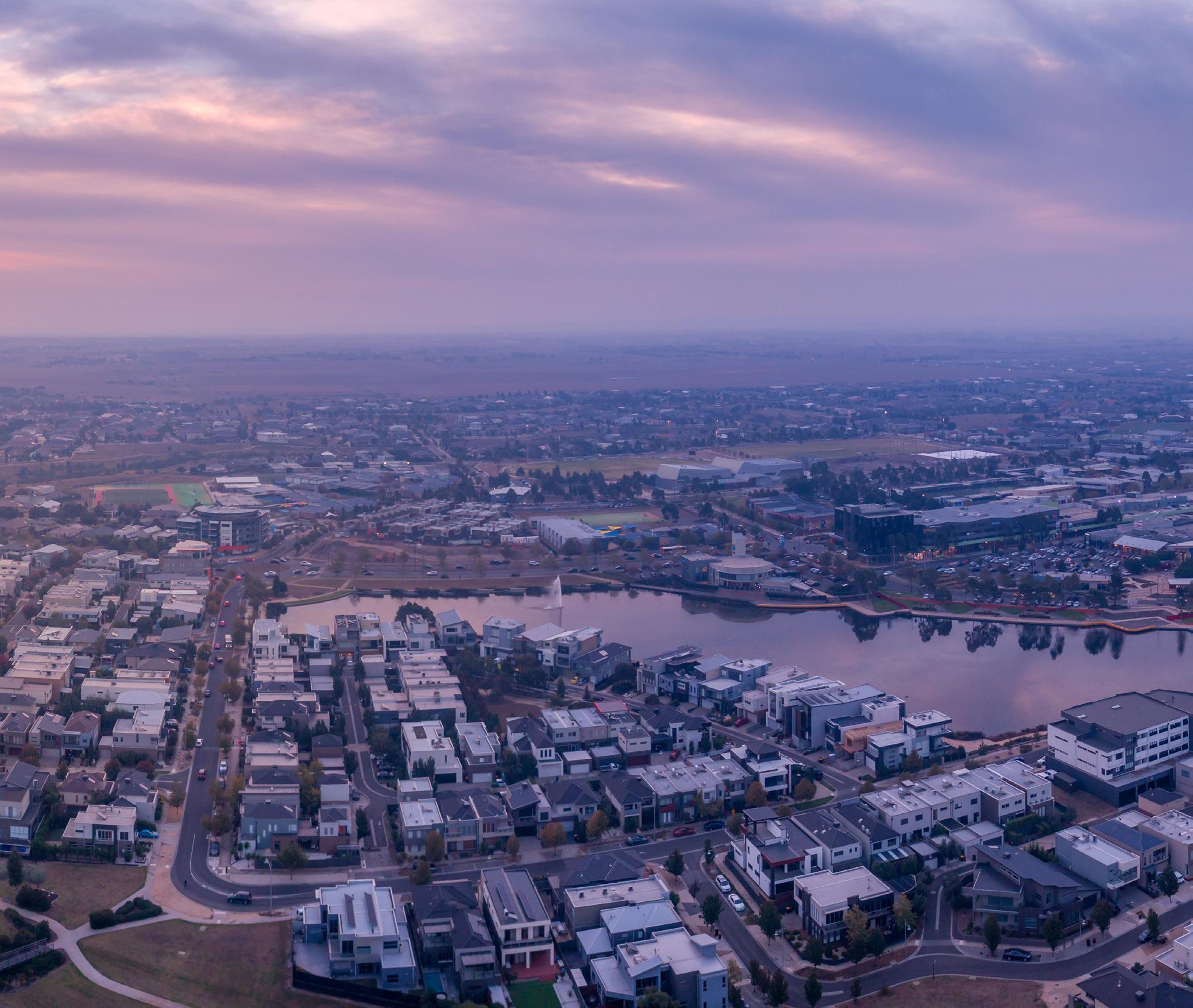
deally located in the heart of Melbourne’s west, the City of Melton is Australia’s fastest-growing local government area and home to an increasing number of national and international businesses.
Alongside rapid population growth, the investment in countless significant projects is creating a productive and sustainable economy that provides a mix of employment opportunities for an evolving workforce across a variety of sectors.
More than 70 percent of the city’s residents travel outside of the municipality for work, showing a large, highly skilled workforce searching for gainful employment closer to home.
Companies of all sizes have discovered that, with the right investment, they can harness talented workers who will find it irresistible to work close to where they live and embrace a robust economy that sees business as the backbone of continuous growth.
At the forefront of this is Melton City Council, which is eager to seize the untapped opportunities of the municipality.
“It takes a hard-working, dedicated team that is committed to making the City of Melton thrive, as well as careful and continuous planning for the future,” says Roslyn Wai, CEO.
“This involves leveraging ways
to accelerate the local economy, alongside strong and clear advocacy for change and engagement with the community.”
The City of Melton is an integral part of Melbourne’s western growth corridor, connected to the state of Victoria’s major freeways and airports, as well as the state’s largest industrial hub and Port of Melbourne.
Significantly, the Western Highway, the second-largest freight carrier of any national highway, runs directly through the city, making it well-positioned to embrace the booming workforce and harness the opportunities that the significant availability of land in the region offers.
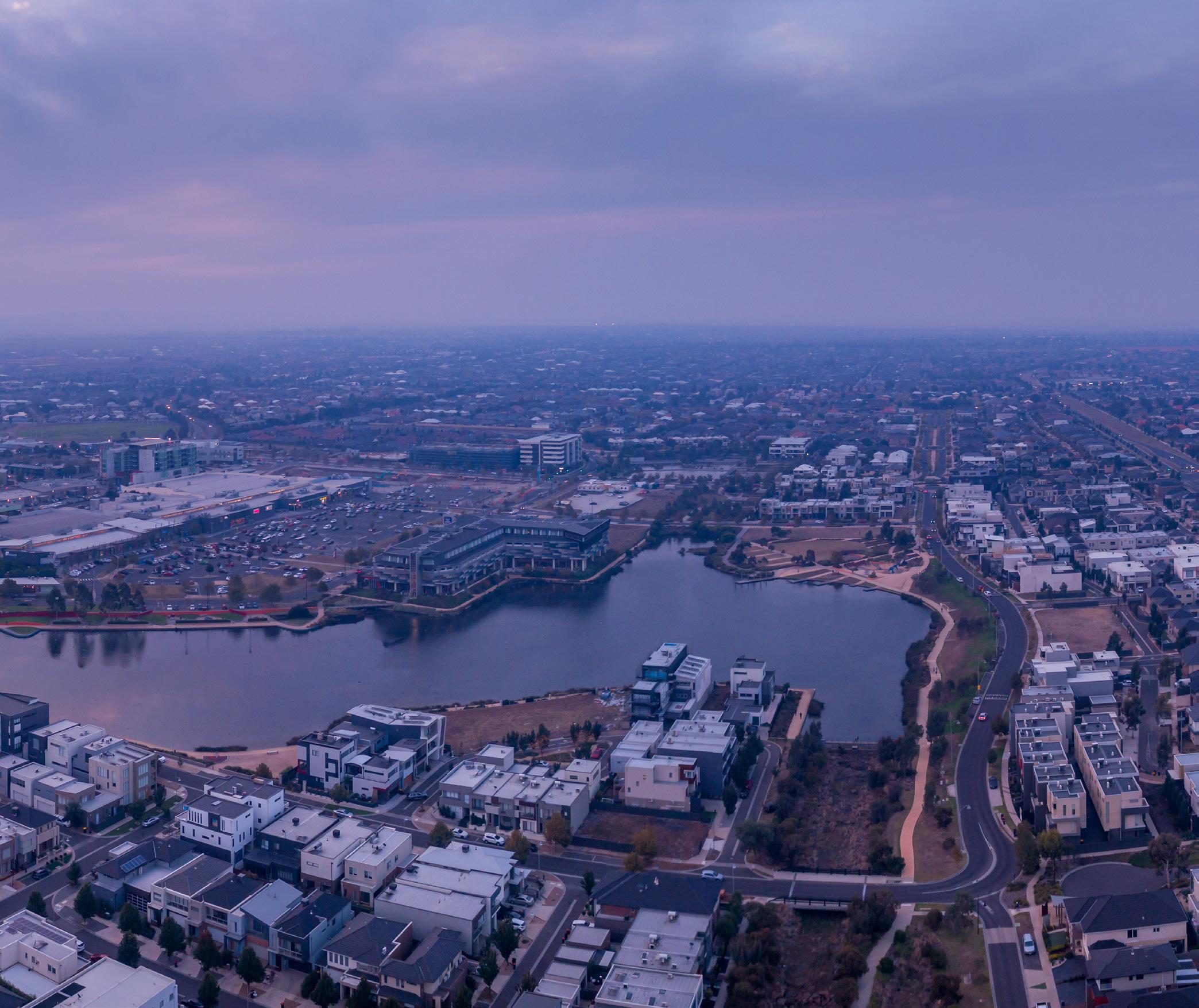
Roslyn Wai, CEO of Australia’s fasting-growing council, explains how it is preparing the city for unprecedented growth, creating a diverse and resilient economy that is ripe for job opportunities and state-of-the-art infrastructure
Through the dedication and longterm planning of Council, the city’s potential, via its abundant access to Melbourne’s key metropolitan and interstate road networks, including the Western and Calder Freeways and Western Ring Road which links into other key freeways, is being unlocked.
The industrial precincts also boast enviable proximity to major logistics infrastructure such as rail, seaports, and airports, linking business to national and international markets.
“The region is experiencing rapid growth, with many new residential and commercial developments underway, all contributing to the City of Melton and offering an outstanding
mix of established and new residential options,” Wai says.
As part of its role, Council strives to truly take hold of the assets at the municipality’s disposal, which is shown in its deliberate and strategic approach to providing services, programmes, and infrastructure to residents within the City of Melton.
“We make sure our Council’s focus is in alignment with the people of our city by re-engaging our community every four years in their vision and aspirations. We are always taking a helicopter view on innovative ways to respond to the challenges of being
Australia’s fastest growing area,” Wai emphasises.
With a can-do approach, Council looks at innovative ways to reduce the burden on ratepayers and proactively explores alternative revenue options.
This is evidenced by the Infrastructure and Strategic Investments Reserve that utilises proceeds from a joint venture between the council and Lend-Lease communities in the Atherstone residential development in Cobblebank to fund infrastructure.
Furthermore, Council advocates strongly for state and federal government investment to facilitate the city’s rapid growth and works
hard to cater to the needs of the community. This strong relationship with the state and federal governments has resulted in a strong investment pipeline.
Supply chain and logistics hubs, supported by significant parcels of commercial and industrial land in close proximity to freight corridors such as the Western Highway, Calder Highway, and regional rail lines, will open up more than 39,000 new jobs over the next three decades within the Western State Significant Industrial Precinct (SSIP), Victoria’s largest SSIP.
To support the need for more transport investment, the council developed the Moving Melton Transport Prospectus 2022, which details the road, rail, bus, and active transport infrastructure projects required as well as the economic and environmental benefits of each investment.
“We analysed data on population growth, travel patterns, and traffic congestion to identify the transport projects required for our business and
“WITH SIGNIFICANT LAND AVAILABILITY AND A BOOMING WORKFORCE, THE OUTLOOK FOR THE CITY OF MELTON IS ONE THAT WILL DRIVE REGIONAL AND STATE ECONOMIC ACTIVITY FOR DECADES TO COME”
– ROSLYN WAI, CEO, MELTON CITY COUNCIL
residential community. Subsequently, we prepared costings, project designs, traffic projections, diagrams, and renders of what the projects would look like.
“We are laying the strong foundation to build a liveable community with a diverse and vibrant workforce offering,” Wai outlines.
To further boost local employment and capture the value of a diverse workforce, Council has created an Investment Attraction Strategy.
Significantly, the strategy outlines the Council’s long-term objectives,

including a target of bringing forth 100,000 additional jobs by 2050, along with an evidence base to bring forward major infrastructure investment.
In the shorter term, the addition of 13,000 new jobs in the next five years bodes well for the Council’s target, resulting in a significant boost in local employment self-sufficiency.
As such, its current main focus is to create more local jobs, providing more employment opportunities closer to home.
“To this extent, our Investment Attraction Strategy is coming to life, and our job target is on track.



“For example, the new Melton Hospital development is progressing well and a new tertiary facility is planned. A Business Case to upgrade the Western Highway is also underway, and we are seeing strong investment in infrastructure that will help unlock employment precincts and catalyse job creation,” Wai says.
The commercial sector is seeing the advantages of doing business in the City of Melton. Significant commercial investments include NewCold’s AUD$147 million investment to double the size of its Asia-Pacific headquarters in Truganina, boasting a storage capacity of 225,000 pallets.
Meanwhile, other commercial investments include Horizon 3023, a 130 hectare (ha) estate on Christies Road, Ravenhall, which continues to attract national and international brands such as Amazon, eStore Logistics, Nike, HelloFresh, Myer, Elders, Scalzo, and Electrolux, establishing some of the most advanced warehouses in Australia.
Stockland’s 260-hectare Melbourne Business Park in Truganina has seen stage one sold out with Makita, Califam, Pelligra, and Universal committing to the site.
Elsewhere, on the Westcourse Industrial Estate, an AUD$300 million,
ROSLYN WAI, CEO: “The Australia-India Economic Cooperation and Trade Agreement (AI-ECTA) will see a large reduction in tariffs and greater cooperation between our two countries. Melbourne’s outer-west is home to Australia’s largest Indian diaspora and there is an opportunity to attract Indian investment and support entrepreneurs from this community.
“Moreover, the Regional Comprehensive Economic Partnership Agreement (RCEP) is the world’s largest free trade agreement and includes all Association of Southeast Asian Nations (ASEAN). This recently signed agreement will provide a strong platform to expand trade and promote expenditure.
“The City of Melton offers a strong possibility for investment to seize the opportunities afforded by these trade agreements.”
23 ha development will provide 500 additional jobs during the project’s construction phase.
A major precinct set to drive investment and job creation is the Cobblebank Metropolitan Activity Centre (Cobblebank MAC).
“This precinct, south-east of the Melton Township, will be one of the biggest metropolitan activity centres in Melbourne,” Wai highlights.
Activation of the precinct is well underway. The precinct is already served by the Cobblebank Train Station and the Western Business Accelerator and Centre for Excellence (BACE), as well as a retail centre and sporting precinct.
In support of the Cobblebank MAC, Council is investing AUD$10 million to extend a major road that will set the
foundation for the Melton Hospital, which is being delivered by the Victorian Government and is set to open in 2029.
The hospital will be instrumental in generating an uplift in local employment opportunities, creating 3,825 ongoing jobs, and providing AUD$300 million in funding for the local economy.
Investment in a private hospital has also commenced, and together with the public hospital and future allied health services, Cobblebank MAC will become a health precinct of state significance.
The Victorian Government has also committed AUD$55 million to build a new tertiary facility in the precinct. The council is investing AUD$20 million for a purpose-built, state-of-the-art community services hub in Cobblebank MAC.
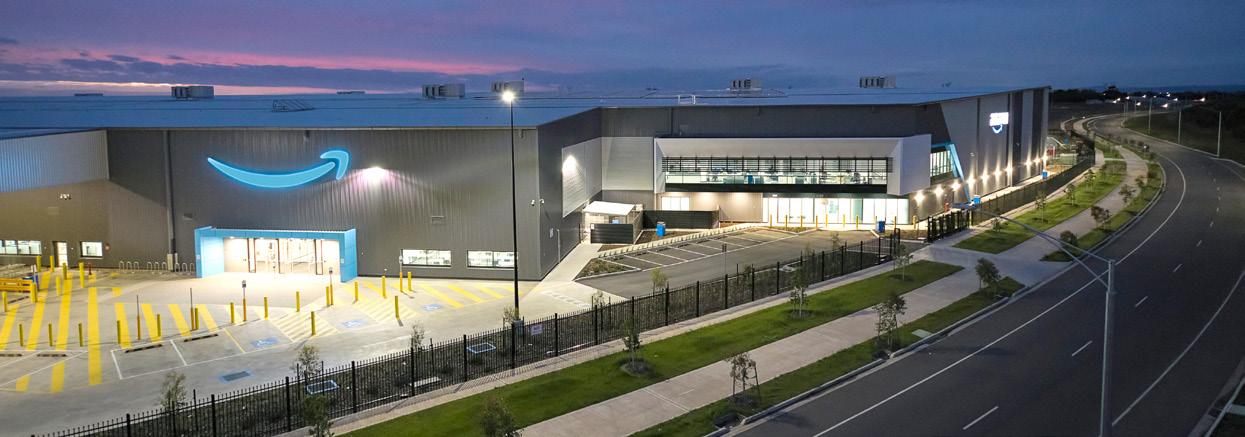
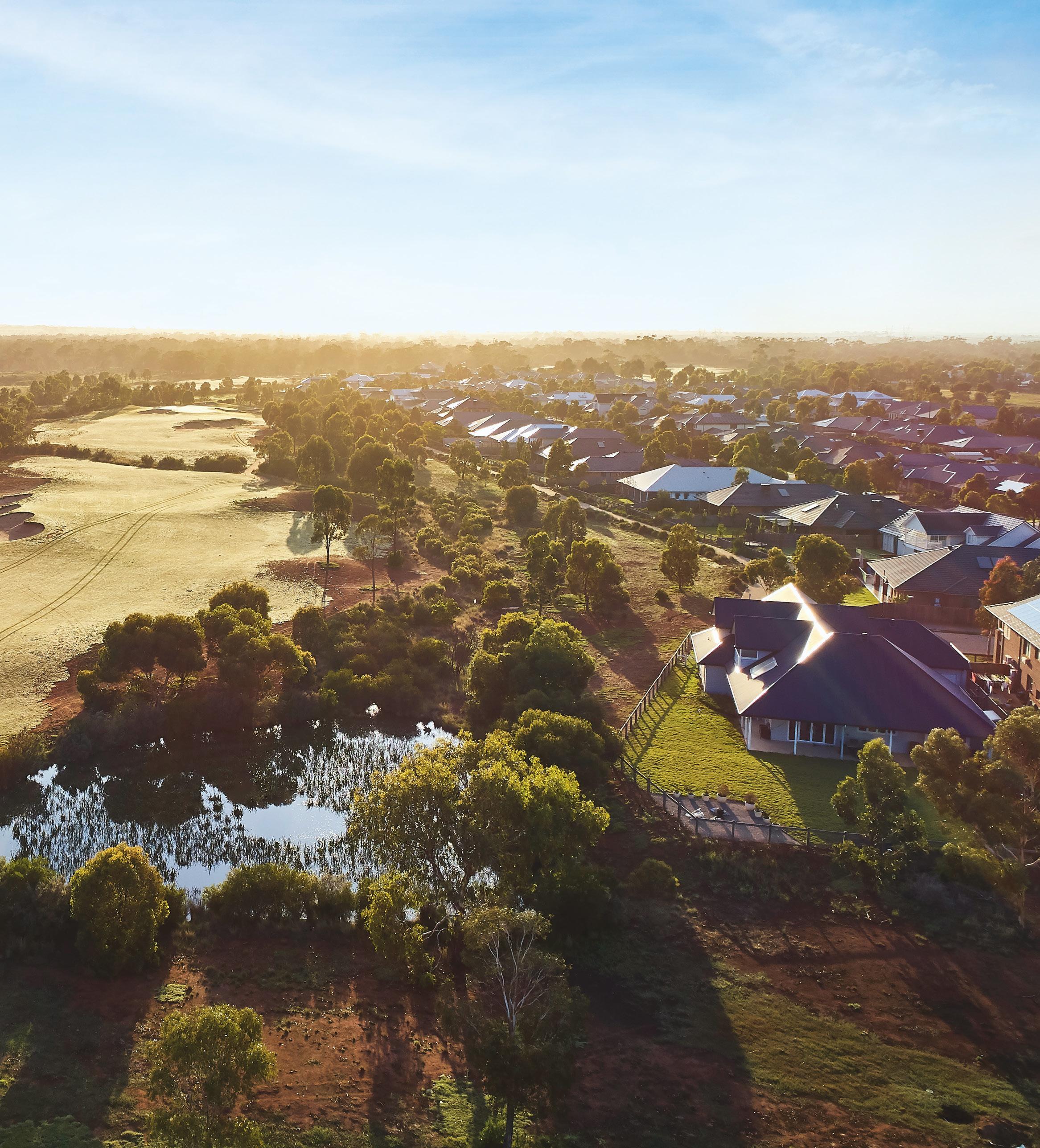


We're a highly skilled, close-knit team that thrives on genuine communication and collaboration, ensuring exceptional project outcomes across all sectors of the property development industry for our clients.
info@kwhiteman.com
www.kwhiteman.com
When it comes to Town Planning, we're your comprehensive solution, handling everything from defining your project charter to managing design, coordinating subcontractors, and skilfully navigating negotiations with statutory authorities.
In Development Management, we take care of everything, from feasibility analysis, acquisition, planning, design, construction, through to marketing and sales.
WPA are proud to announce our appointment by Resimax Group on Eynesbury. WPA has been appointed to manage the rezoning and Planning Scheme Amendment across both the Melton City Council and City of Wyndham LGAs. At
Our roots run deep in the Melton City Council area. With a proven track record of over 20 projects in the Local Government Area (LGA), totalling more than 6,000 lots, and dozens of permits in collaboration with Council, we have an in-depth understanding of local regulations and a strong partnership with the Council.
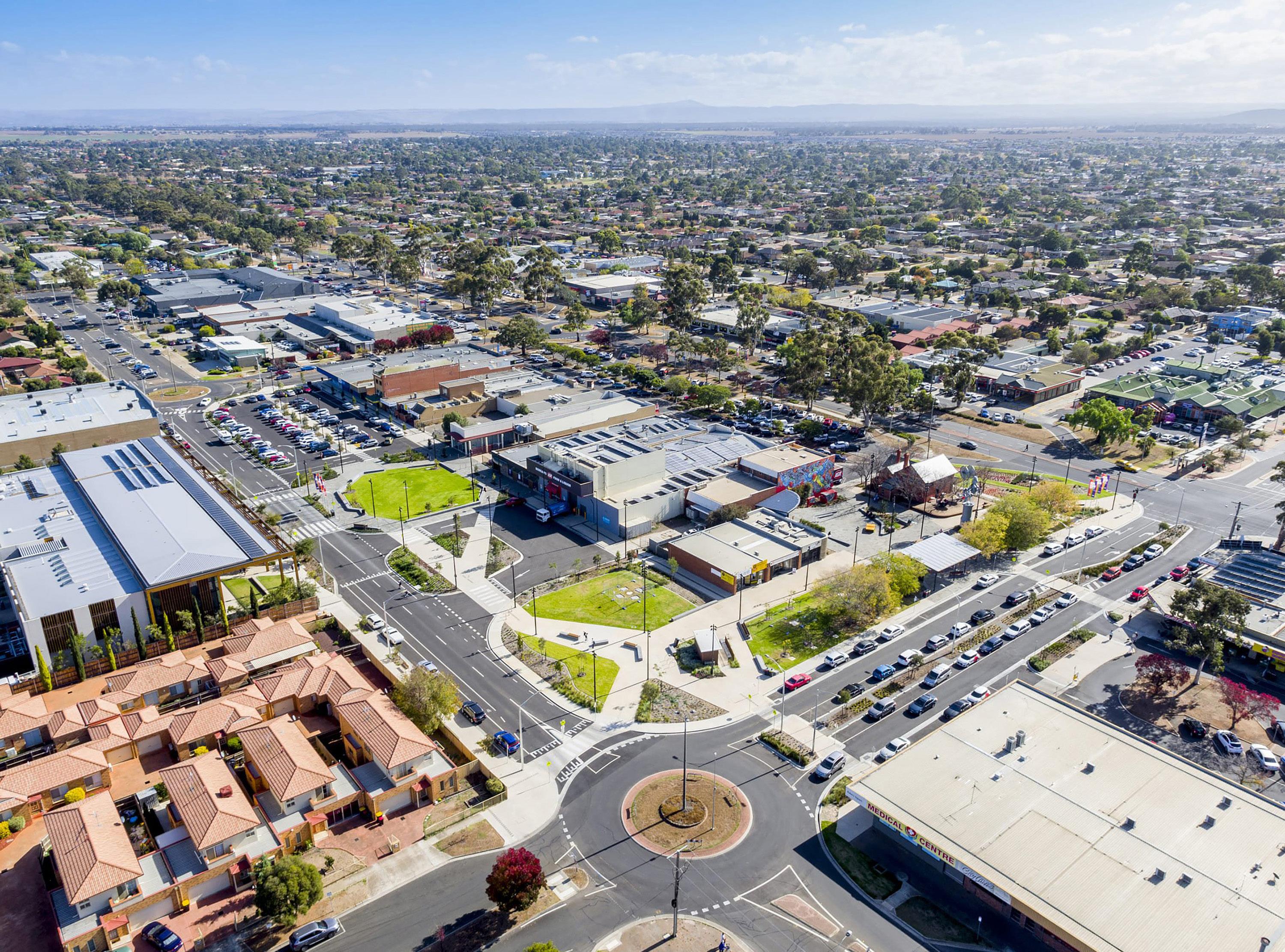
“The Community Services Hub will provide space to accommodate a range of community, allied health, and education services to meet the needs of our growing local community and the broader region. Construction of the hub is expected to start at the end of 2024, with the centre operational in 2026,” Wai explains.
In the longer term, Cobblebank MAC is expected to include a justice district, university campus, civic buildings, and commercial offices, which combined will ultimately support 22,000 jobs.
As reflected by the likes of Cobblebank MAC, Council is focused on delivering capital projects in the coming year, working closely with the Victorian and Australian governments to upgrade and deliver new infrastructure that will help attract investment and manage its rapid growth.

Key advocacy priorities include upgrades to the major road network in the short term. In the longer term, priorities include construction of the Outer Metropolitan Ring (road and rail), a transformational project that will connect the outer north, west, and south-west of Melbourne with freight hubs and the employment precinct, not to mention connecting millions
of residents in outer Melbourne and creating greater accessibility.
Investment by the Victorian and Australian governments in the Western Intermodal Freight Terminal at Truganina, will deliver freight by train and be the catalyst for thousands of local jobs, with the removal of up to 2,000 daily truck movements from Western Melbourne.
• Approximately AUD$1 billion for a new 24-hour public hospital in Cobblebank.
• An AUD$650 million commitment to extend train platforms on the Melton line to accommodate nine-carriage VLocity trains for increased capacity and frequency.
• A new Melton train station.
• A new AUD$55 million TAFE in Cobblebank focusing on construction skills.
• The removal of five level crossings in Diggers Rest, Melton, and Truganina.
• An AUD$14.9 million upgrade to the Melton Highway to duplicate a section of the road in Plumpton.
• Two new bus routes from Melton to Eynesbury and Diggers Rest to Sunbury Station.
• The construction of new schools and modernisation of existing schools.
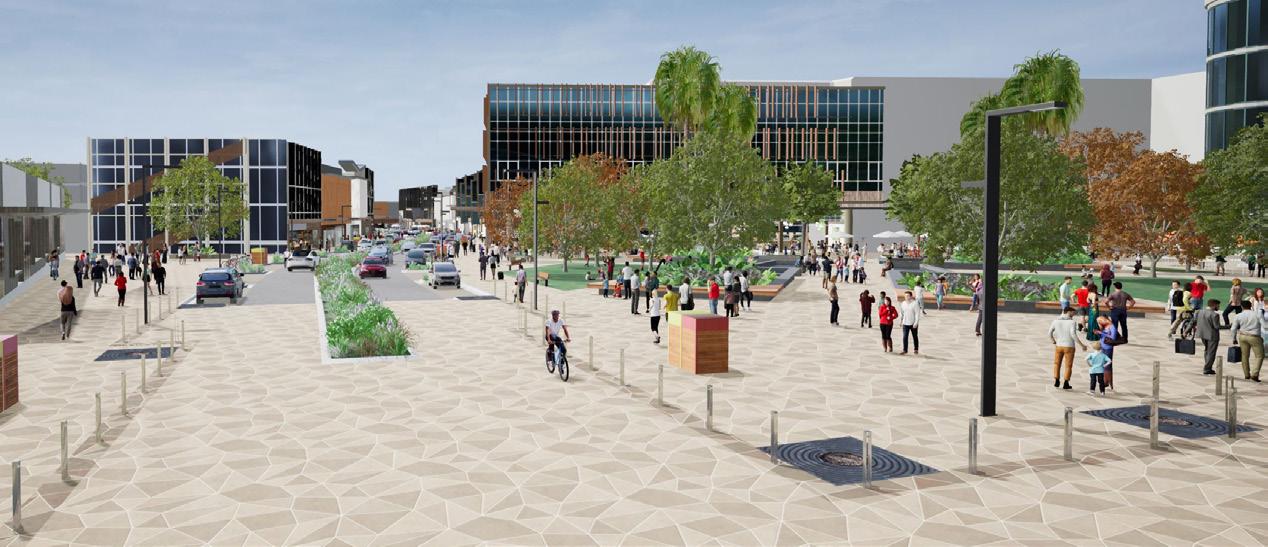


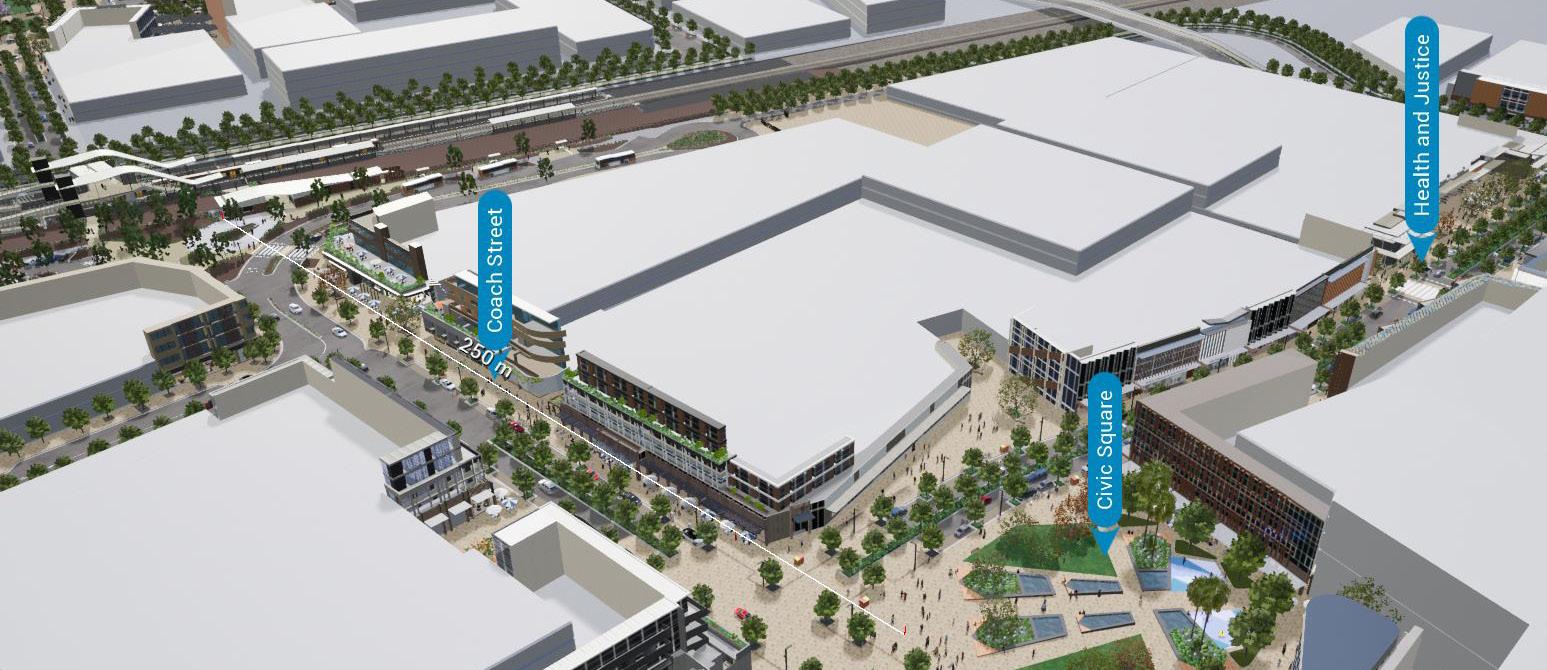
Alongside the planned TAFE facility in Cobblebank, Council is calling for the creation of a new university to educate doctors and allied health specialists for the outer metropolitan areas, regional areas, and provide a workforce for the new Melton public and private hospitals.
Council is developing an Employment and Industrial Strategy to leverage economic uplift from the city’s abundant commercial and industrial land, population growth, and state and national investment. This strategy will set out a land
use vision for the growth and diversification of the City of Melton’s economy and will establish a framework to guide investment in employment and industrial lands to 2036. This will provide certainty to the private sector and community in the long-term and demonstrate preferred uses in employment precincts which will inform investment decisions.
“A new plan for our future, with more jobs, better infrastructure, and investing in young people’s education is at the heart of the council’s bid for further state and government funding.
“We also want to build upon our success in attracting investment in employment hubs, and identify further growth opportunities in the manufacturing and service industries,” says Wai.

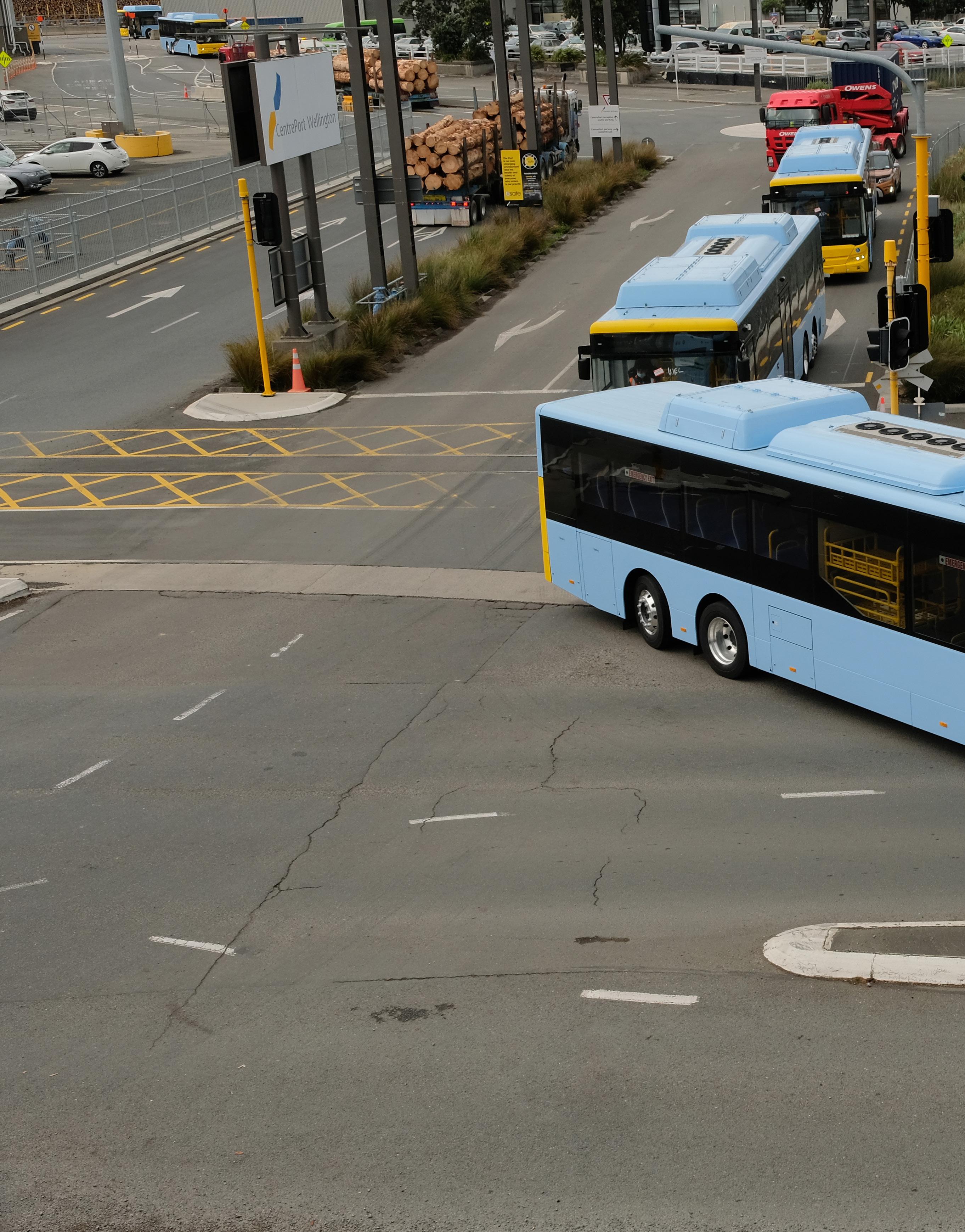

Greater Wellington’s Metlink runs a public transport network that intertwines the region, successfully delivering 38 million journeys a year across bus, rail, and more. We jump on board and travel through the regional council’s transport story with Group Manager, Samantha Gain
Writer: Ed Budds | Project Manager: Ryan GrayAn effective transport network is key to the way we live and work.
Wellington, the New Zealand capital city, and its surrounding region must contend with hilly and uneven terrain that has major implications for
public transport links.
Historically, transport planners have considered Wellington a favourable location for public transport, as the region’s unorthodox topography concentrates its settlements in valleys and along the sprawling coastline,
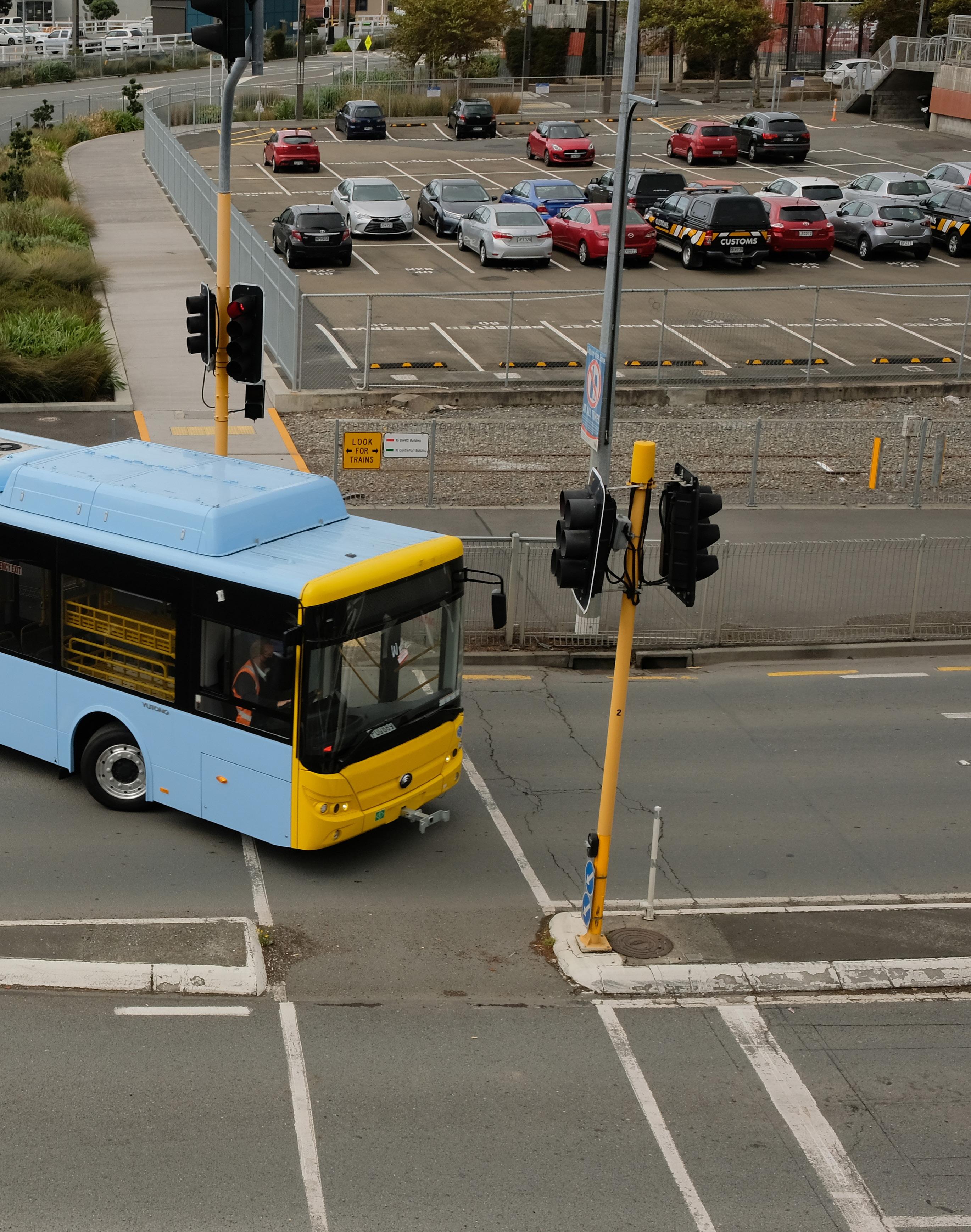
paving the way for concise corridors playing host to key transport routes.
Greater Wellington (GW), under the brand name Metlink, brings a public bus, rail, and ferry transport network to the wider region, including Wellington, Hutt Valley, Porirua, the

Kāpiti Coast, and the Wairarapa. Metlink works with a specialist network of transport operators to deliver a connected, integrated transport network with patronage across all modes of transport growing at a rapid rate.
“We continuously refine and improve our network based on customer research and feedback. Our goal is to deliver an effective, efficient, and integrated public transport network for the people of Wellington,” sets out Samantha Gain, Group Manager of Metlink.
GW works in partnership with Waka Kotahi NZ Transport Agency (NZTA) to plan and fund the region’s public transport network.
Today, Metlink runs the Wellington region’s public transport network of bus, train, and harbour ferry services, comprising five rail lines, nearly 100 public bus routes, more than 180
school bus services, and four harbour ferry wharves.
“We’re a busy region and it’s our role to help people move quickly and safely in, out, and around GW,” acclaims Gain.
“We move around our region in different ways – driving, walking, cycling, or taking public transport – so we plan carefully to make it work for everyone,” she adds.
This includes managing and funding all public transport and working closely with partners who are responsible for the roading corridors and rail lines. In this way, Metlink also supports safe and sustainable transport to work and school, while ensuring that disabled and elderly people have access to transport.
“We’re determined to keep our region humming. Safe, efficient transport networks play a huge role in that.”
• Metlink’s procurement policy outlines various standards that its contractors must meet, including fair pay and ensuring a commitment to certain environmental practices, such as the use of environmentally sound products.
• Recycled materials are used for maintaining and building new shelters, with sustainable materials such as pine preferred to native hardwoods. Additionally, all old structures are recycled or repurposed by Metlink where possible.
• The community is involved in new Metlink developments, beyond just the consultation stage. A great example is the work Metlink undertook with a school in Lower Hutt to create a mural with students for a bus stop.
• Students in nearby Trentham have been called upon to help design and add a splash of colour to the newly built underpass at their local railway station.
• Two key bus stops on Metlink’s network – one at the city’s university and one at a newly developed transport hub – are being built with living roof structures, which include native plants and succulents to encourage insects, bees, and birds to visit.


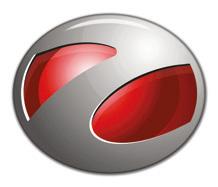

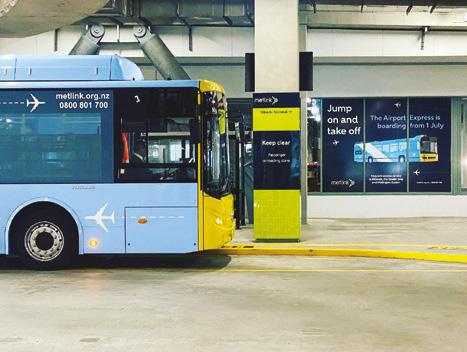

One particularly exciting development is that Metlink has now expanded Snapper from bus to rail services.
Snapper is an electronic payment card that provides passengers with a faster, cheaper, and more flexible travel payment option.
“You can have a total of two rail passes and two bus passes loaded onto your Snapper account at any

time. Bus and rail passes can both be used without conflicting with each other,” explains Gain.
“If you have two passes of the same type on your Snapper card, the second pass will not activate until the first pass has expired. But you don’t need to have a pass; you can also load credit onto the card, and register for concessions. For each part of your journey, you’ll need
to tag on and tag off so that the correct fare can be calculated,” she tells us.
Snapper provides a seamless way to pay for transport on Metlink’s bus and rail services, allowing travellers to load up their cards with credit or a travel pass, then simply tag on and off, similar to the Oyster card system used on the London Underground.
“WE’RE A BUSY REGION AND IT’S OUR ROLE TO HELP PEOPLE MOVE QUICKLY AND SAFELY IN, OUT, AND AROUND GW”
– SAMANTHA GAIN, GROUP MANAGER, METLINK
Snapper then automatically charges the correct fare based on where users choose to tag on and off with their card.
Metlink previously used a paper ticket system, which on rail stretched all the way back to 1840, so this new method of digital travel also enhances Metlink’s environmentally-friendly credentials.
“The Snapper system has been a really great step into the 21st century and a project that we’re very proud of in terms of it being delivered on time, on budget, and how it now enables people to use all bus and rail services on the Metlink network with one card,” Gain enthuses.
The innovative system, which is
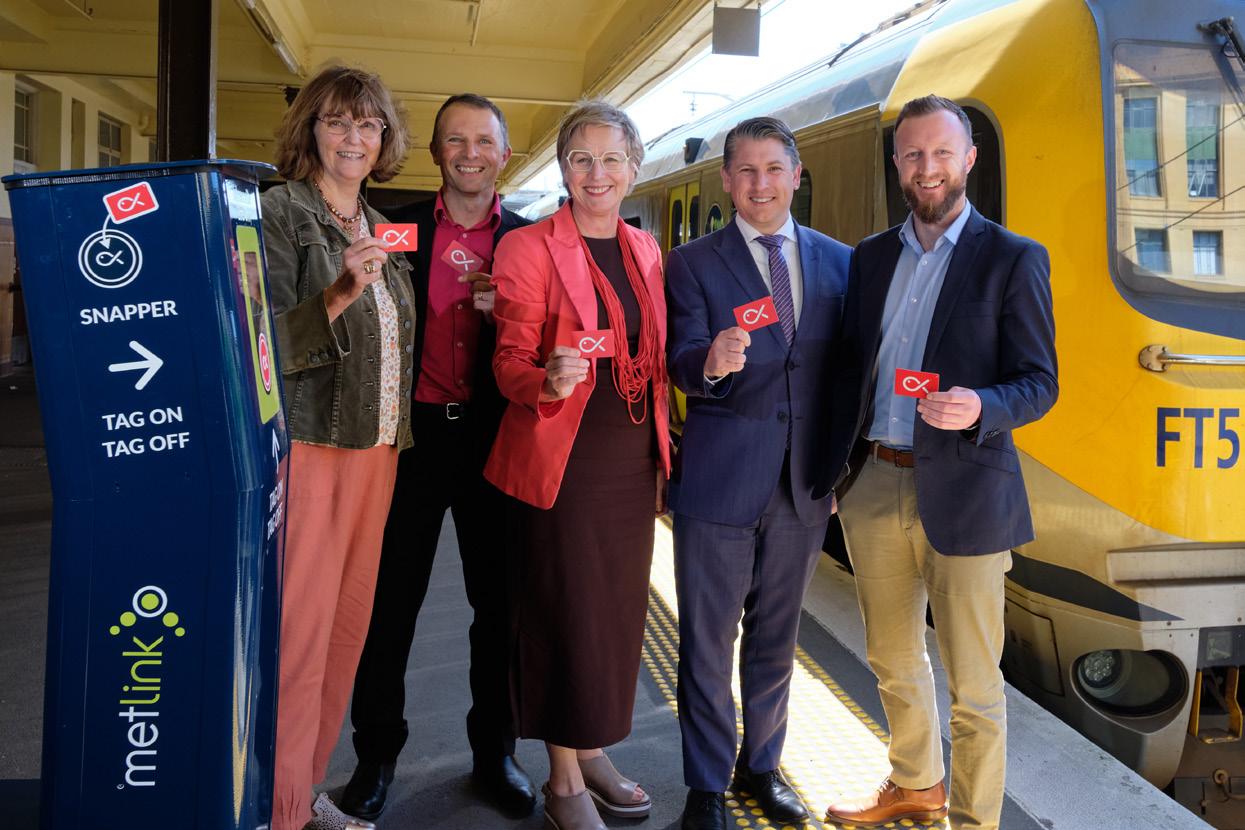

a transitional measure towards the introduction of the National Ticketing Solution (NTS), also gives Metlink access to a more complete and comprehensive collection of travel data, in order to analyse new trends and identify fresh developments.
Metlink is working with NZTA to implement the NTS, which will make it easier for Wellingtonians to pay for public transport through a centralised system, providing customers with a
consistent experience nationwide. This will encourage more people to use buses, rail, and ferries more often.
NZTA has partnered with Cubic Transportation Systems, a global supplier in the ticketing industry, to design and implement the NTS for
public transport across New Zealand.
“The NTS is a flexible, modern ticketing system aimed at providing more ways for customers to pay for public transport,” Gain excites.
Once the NTS is introduced, passengers will be able to pay for public transport using contactless debit or credit cards, as well as digital payment methods like Apple Pay or Google Pay, while still having the option of using a prepaid transit card.
The NTS supports the goals of Metlink and the government towards creating safer, less congested roads, and reduced emissions.
Canterbury will be the first region to move to the NTS in the second half of 2024, with all other regions planned to move by the end of 2026. GW is expected to transition to the NTS in 2025.
The Transport Choices programme also aims to demonstrate what’s possible for communities across New Zealand, by quickly providing people with more transport options and making it easier to travel in ways that are good for everyone, as well as the environment.
No matter the location, people need to be able to move easily around a city in ways that help protect the climate. Now more than ever, there is a need to transition to a low-emission and climate-resilient future for the benefit of all New Zealanders and generations to come.
This initiative is therefore important because transport makes up almost half of New Zealand’s carbon emissions, most of which come from road transport.
Another point of pride for Metlink is its Airport Express (AX) bus service, which runs seven days a week every 10 to 20 minutes, except for the first few morning and last evening services.
At present, the travel time from Wellington Station to Wellington International Airport is approximately

25 to 35 minutes, depending on traffic. Passengers can enjoy free Wi-Fi, USB charging, and luggage racks which are all available on board.
“AX is an integral part of the Metlink network, connecting the airport with the wider Wellington region. Nine new purpose-built electric buses run on this low-cost, environmentally conscious service for travellers, people working in and around the airport, and commuters into the city when capacity allows,” Gain elaborates.
The timetable is designed around airport departure and arrival times and train services at Wellington Station.
With ground-breaking and
innovative initiatives such as Snapper, AX and the NTS continuously being brought to fruition for the betterment of the region, Metlink is creating a more efficient, environmentally friendly, and accessible transport network for Wellington and its citizens.
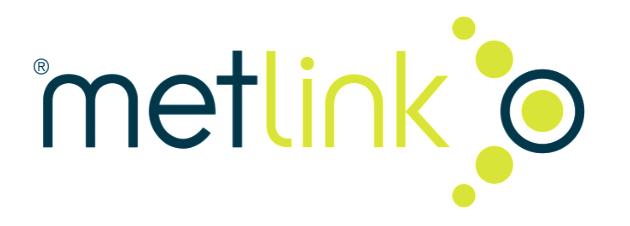
METLINK
Tel: 0800 801 700
info@metlink.org.nz
metlink.org.nz


Tech Foundations is the Atos business line leading in managed services, focusing on hybrid cloud infrastructure, employee experience and technology services, through decarbonised, automated, and artificial intelligence (AI)enabled solutions. Its 52,000 employees advance what matters to the world’s businesses, institutions, and communities. It is present in 69 countries, with an annual revenue of €6 billion.
As the Country Manager for Tech Foundations in Malaysia, the Philippines, and Japan, Neville Smith tells us more about the Malaysia delivery centres for Tech Foundations, which support both Hybrid Cloud Infrastructure and Digital Workplace services. This article explores the development of services supported by Malaysia, including the growth in local multilingual Digital Workplace services and the establishment of cyber recovery services for global and local support
Writer: Lucy Pilgrim | Project Manager: Dennis Morales
In Asia Pacific, Tech Foundations is present in 10 countries with more than 11,000 talents and 300 clients.
Recently, Tech Foundations announced the renewal of a five-year contract in Australia to deliver hybrid cloud and core infrastructure services for public healthcare.
The company will continue to deliver cutting-edge technology solutions tailored specifically to support the ongoing digitalisation of health records and systems, helping ensure that the Western Australia community continues to receive a healthcare standard that is among the highest in the world.
In China, Tech Foundations has renewed its Value-Added Telecommunication Services (VATS) licenses, enabling it to run world-class digital services and data centres across the country.
Atos Cloud Computing has
retained the licenses since 2019, being the first authorised, foreignfunded company to operate cloud computing, VATS-regulated activities in several Chinese cities including Beijing, Shanghai, and Wuhan.
“Core to what we do is ensuring the integrity of our clients’ data,” opens Neville Smith, Country Manager for Atos’ Tech Foundations operations in Malaysia, the Philippines, and Japan.
“Over time, I have seen the evolution of outsourced managed IT services, progressing from purely taking over a client’s operations, through evolving solutions and offerings on a utility basis, to today’s hybrid, multi-cloud environments,” he observes.
Smith has been a vital part of the Asia Pacific segment of the company for over 20 years and has been heavily involved in providing the technical
foundations for clients in banking, manufacturing, telecommunications (telecoms), and healthcare.
Tech Foundations helps its 1,200 customers grow their business through creative use of technology and open ecosystems to address not only today’s challenges, but also those of tomorrow.
Its customers face the challenges of implementing digital transformation in a context where IT ownership costs are rising and there is an evolving mix of legacy and next-generation technologies. These enterprises need to accelerate often complex migrations to multi-cloud environments, whilst maintaining sovereignty and meeting regulatory frameworks.
Leveraging an agile employee

“CORE TO WHAT WE DO IS ENSURING THE INTEGRITY OF OUR CLIENTS’ DATA”
– NEVILLE SMITH, COUNTRY MANAGER FOR TECH FOUNDATIONS IN MALAYSIA, THE PHILIPPINES, AND JAPAN, ATOS
base and a customer-centric, industrialised, and automated operating model, Tech Foundations supports its customers to meet these challenges by:
• Creating the workplace of tomorrow, optimising workplace environments, and running mission critical operations 24/7.
• Managing the complexity of a multicloud environment and modernising application development.
• Providing trusted private and sovereign cloud platforms while meeting compliance requirements. Tech Foundations in Asia Pacific offers a portfolio of hybrid cloud infrastructure and employee
experience through decarbonised, automated, and AI-enabled solutions.
In Malaysia, Atos has built a delivery centre to support its core offerings for both global and regional clients. With its multicultural background, the centre provides operations in English, Bahasa Malay, and several Chinese/ Indian dialects. In addition, local language support is provided in Thai, Japanese, Indonesian, and Korean.
The two core businesses are tailored to answer specific or transversal challenges:
• Hybrid and cloud infrastructure:
“If we take a closer look at the Asia Pacific infrastructure continuum, it becomes evident that the
successful delivery of infrastructure services necessitates a mastery of hybrid, multi-cloud solutions. This mastery is where we truly set ourselves apart and has earned us recognition as a leader in Gartner’s Magic Quadrant,” says Smith.
“Drawing upon extensive experience spanning two decades in traditional infrastructure, coupled with an adeptness in hybrid cloud technologies, Atos has been instrumental in guiding numerous clients through the intricacies of cloud migration. An emphasis on Sovereign Cloud is aimed at achieving a harmonious equilibrium between sovereignty and cost-effectiveness.”






• Digital workplace: Provides end-to-end employee experience through digital collaboration and productivity tools, as well as intelligent customer care services.
“The market shows strong conviction in the relationship between company performance and engaged employees. Research indicates that engaged individuals can drive up to 23 percent more performance and Atos believes that the workplace plays a crucial role in fostering employee engagement,” comments Smith.
The company’s multi-lingual portfolio has been augmented with an immersive experience and generative AI, leveraging customers a more efficient and effective way of communicating. In fact, Atos is working closely with Microsoft on their newly launched co-pilot services.
“We substantially innovated how we provided these solutions by right-shoring operations, introducing virtualisation, and increasing levels of automation. However, our core has always been a solid team of experts running operations that our clients can rely on,” Smith adds.
“IT’S VERY REWARDING TO STEP INTO OUR OPERATIONS CENTRE IN MALAYSIA AND WITNESS THE GROWTH FROM A FEW HUNDRED PROGRAMMERS 20 YEARS AGO TO OVER 1,000 EXPERTS WORKING ACROSS GLOBALLY CONNECTED OPERATIONS”
– NEVILLE SMITH, COUNTRY MANAGER FOR TECH FOUNDATIONS IN MALAYSIA, THE PHILIPPINES, AND JAPAN, ATOS
Tech Foundations’ services expand across a variety of industries and governmental institutions, including financial services and banking; healthcare and life sciences; manufacturing; telecoms and media; and the public sector and defence.
The storage demands from clients have altered from relatively low volumes of data on a spinning desk, backed up onto tapes that were shipped to offsite and cross-site locations, to today’s vast volumes of data that are kept in solid-state fast storage.
These facilities offer compression, deduplication techniques, and encryption, which can be backed up automatically to remote locations on
the cloud. Furthermore, to enhance cyber threat protection, air-gaped cyber vaults have been established, allowing a clean copy of backups of critical data to be available for cyber recovery if required.
In Malaysia, the delivery centre provides world-class infrastructure management, which includes different teams managing infrastructure, storage, and backup, supporting local, regional, and global customers.
The systems managed by the team in Malaysia range from physical and virtual servers, network, storage, middleware, and databases, to mainframe operations and cloud.
To ensure recovery after a cyber event, the team works with the
cybersecurity operations centre to analyse the data in the air gapped cyber vault to ensure the copy is clean. If required, the clean vault can be used as the source for cyber recovery. The core team supporting such services is based in the company’s operations centre in Cyberjaya, Malaysia.
Such technologies set Atos apart from its competitors, enabling greater influential reach as the data industry shifts to an international mindset.
“At the end of the day, it’s all about providing innovative technical solutions for our clients, freeing up their time so they can focus on their own business knowing they are in safe hands, whilst providing an exciting environment for our teams to flourish and grow,” Smith elaborates.
“It’s very rewarding to step into our operations centre in Malaysia and witness the growth from a few hundred programmers 20 years ago to over 1,000 experts, working across globally connected operations managing our clients’ technology foundations for both Infrastructure and Digital Workplace,” highlights Smith.
As the company looks to the future, Atos highly anticipates the next steps in the digital infrastructure and cloud connectivity space.
• Multi-cloud adoption and modernisation: Generative AI services are becoming more prevalent, contributing to flexibility and resilience in the face of evolving technical landscapes.
• Evolution towards Intelligent Connectivity: From an evolutionary standpoint, there’s a noticeable shift in products. They are moving away from being hardware-centric to becoming more intelligently connected and autonomous. This development is primarily driven by advancements in software and data services.


• Distributed Architecture: The increasing distribution of architecture adds complexity to core business operations. The emergence of edge computing combined with vision AI for safety and compliance is notable. Managing this complexity is a challenge, but it presents a favourable position for Atos.
• Commercial Models and Sustainability Prioritisation: In terms of commercial models, there is a prioritisation of customer intimacy. The focus is on co-creation and exploring use cases centered around pay-per-use and pay-per-outcome arrangements. Sustainability is a significant focus, anticipating heavy investments, especially in light of upcoming regulatory announcements regarding sustainability performance.
The company further looks forward to being a vital element of the Paris 2024 Olympic and Paralympic Games. Atos has been the worldwide IT Partner of the Olympic and Paralympic Games for the last 20 years. It secures

and orchestrates all the IT systems behind the games, including over 150 critical IT applications to manage and broadcast the games.
Paris 2024 will be Atos’ 12th consecutive Olympic Games and ninth Paralympic Games as the Worldwide IT Partner. As the lead integrator, the company will orchestrate over 150 key applications to manage and broadcast both Games, manage the 300,000 applications received on the volunteer portal, and conduct 250,000 hours of testing to ensure a safe and secure delivery.
Atos is also the Official Technology Partner for UEFA National Team Football (UNTF), delivering technological support for UNTF and its competitions. It manages and secures the underlaying hybrid-cloud environment and the infrastructure required to host UEFA’s services, applications, and data.
In addition to the activities related to the organisation of UEFA events, Atos also provides a full range of services – with advanced Digital Workplace, user support, and network solutions – to optimise UEFA’s IT operations and improve the internal user experience.

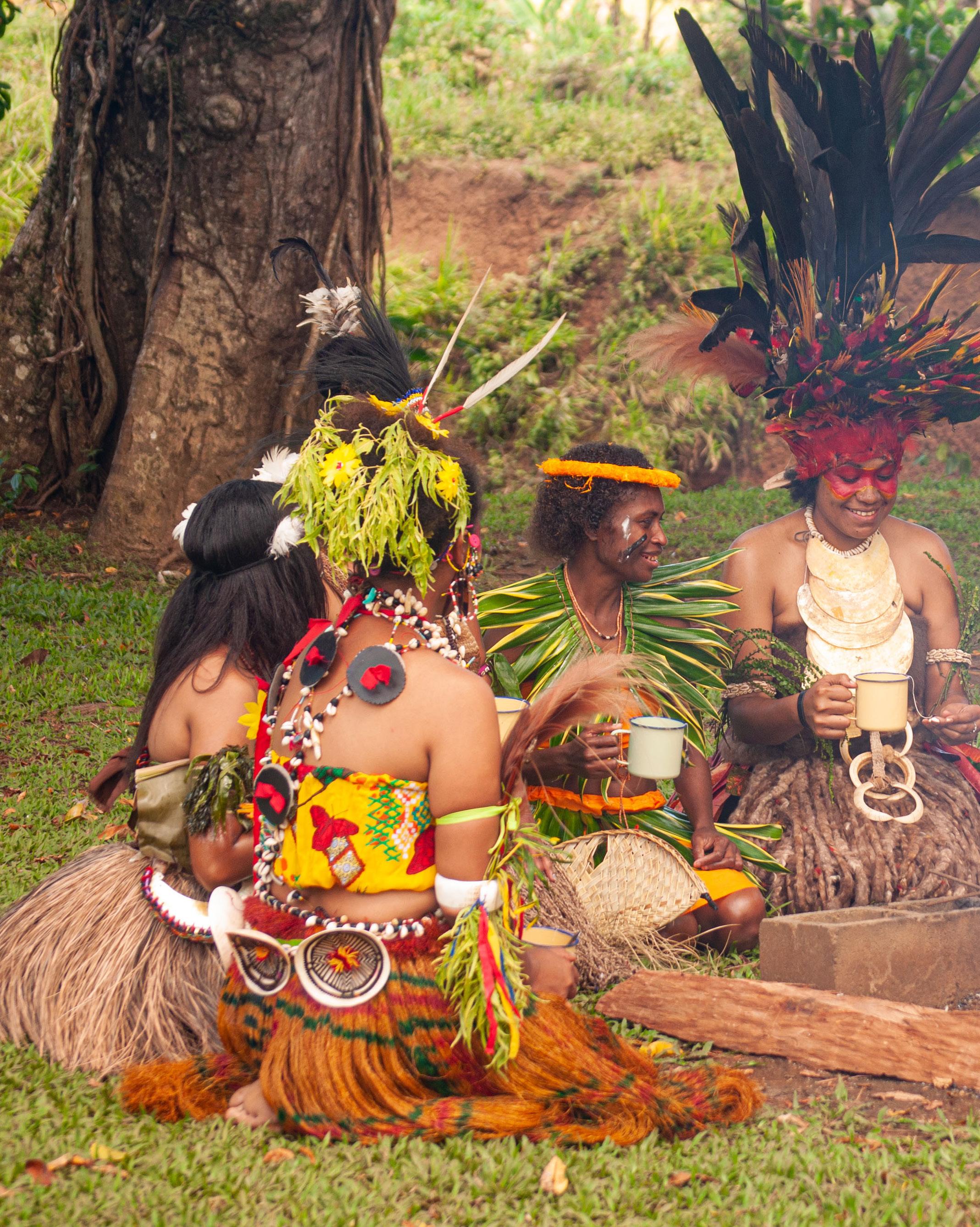
As Papua New Guinea’s largest distributor of consumer goods, BNG Trading can be considered a pioneer of the country’s retail sector. Greg Baker, Group Sales and Marketing Manager, tells us more about the company’s continued growth
Writer: Lily Sawyer | Project Manager: Josh Hyland
Competition between brands within the retail sector in Papua New Guinea (PNG) has intensified in recent years, both locally and internationally, as new companies emerge.
As an international retail brand, BNG Trading (BNG)
remains conscious of ongoing developments in the market.
“The retail industry is always an exciting space to be working in. It is the heartbeat of PNG and is always a good indicator of how the economy is performing,” opens Greg Baker, Group Sales and Marketing Manager of BNG.
BNG commenced operations in 1924, and is PNG’s oldest and largest importer, distributor, and marketer of fast-moving consumer goods (FMCG).
The company boasts a wide range of products, from food and beverage offerings commercial cleaning products.
BNG’s head office, manufacturing, warehousing, and distribution centre in Port Moresby is where most of its activity takes place.
A warehousing and distribution centre in Lae is also key to the company’s output, whilst other warehouses in located in Kiunga, Mount Hagen, Wewak, Manus, Buka, Rabaul, and Alotau play a significant role.
Aside from owning successful brands, BNG works with some of the largest multinational consumer companies in the world, including Unilever, Lion Nathan, General Mills, Mars, Wrigley, Bakels, Kikkoman, and Woolworths Australia.
GREG BAKER, GROUP SALES
AND MARKETING MANAGER: “For us, 2024 is about strengthening our personnel levels and skill sets, and firming up supply lines.
“With new resource projects on the horizon, manpower will be key to continue to deliver what we do as food requirements increase.
“Ensuring availability when our customers need products is always a challenge; focusing on manpower, skill sets, and improving efficiencies in supply lines will go a long way in achieving this.”
Originally established as BNG Trading Company in the early 1900s by Gal Loudin, when BNG stood for “British New Guinea”, the company has evolved significantly since its inception.
Sold to Burns Philp & Co in 1930, BNG witnessed significant growth in the years before the Wallace family company, Baradeen Holdings, acquired it in 1998.
“Having been with the company for
over eight years, I’ve seen a number of changes in the FMCG industry that have provided both opportunities and challenges,” informs Baker.
BNG acquired Papua Niugini Freezers in May 2005; now a notable division of the company, it offers a full range of lamb, pork, beef, chicken, seafood, and dairy products, expanding BNG’s overall portfolio.
“Increased demand for affordable protein has seen our smallgoods business strengthen,” Baker elaborates.








Additionally, BNG also recently acquired Wimble & Co, an affiliate that primarily supplies the printing industry.
As the company continues to grow, major acquisitions such as Papua Niugini Freezers and Wimble & Co are pivotal to enabling BNG’s global outreach.
However, more products entering the market from countries such as China, Indonesia, and other Southeast Asian countries are placing pressure on well-established Papua New Guinean brands that have been in the market for many years.
“Greater competition amongst retailers and wholesalers has seen a shift in business from the old guard to the new,” Baker reflects.
PAPUA NIUGINI FREEZERS - In May 2005, BNG made a major acquisition by purchasing the Port Moresby Freezers (PMF) business. The decision to rename the company as Papua Niugini Freezers was suggested and approved by the Board of Directors at the time, to reflect the company as a nationwide enterprise, servicing all of PNG. Since its acquisition, the number of products and brands offered by Papua Niugini Freezers to its customers and consumers has grown significantly.
WIMBLE & CO - Originally part of Wimble Australia, Wimble & Co has operated solely as a PNGbased company since the country obtained independence in 1975. It has supplied printing, graphics, and related products in PNG and the South Pacific islands for over 100 years from its warehouses in Port Moresby, Lae, and Kokopo.
“WE ARE VERY FORTUNATE IN THAT WE HAVE HAD LONG-STANDING RELATIONSHIPS WITH OUR KEY SUPPLIERS AND SERVICE PROVIDERS. WITHOUT THEM, WE CANNOT DO WHAT WE DO ON DAILY BASIS”
– GREG BAKER, GROUP SALES AND MARKETING MANAGER, BNG TRADING

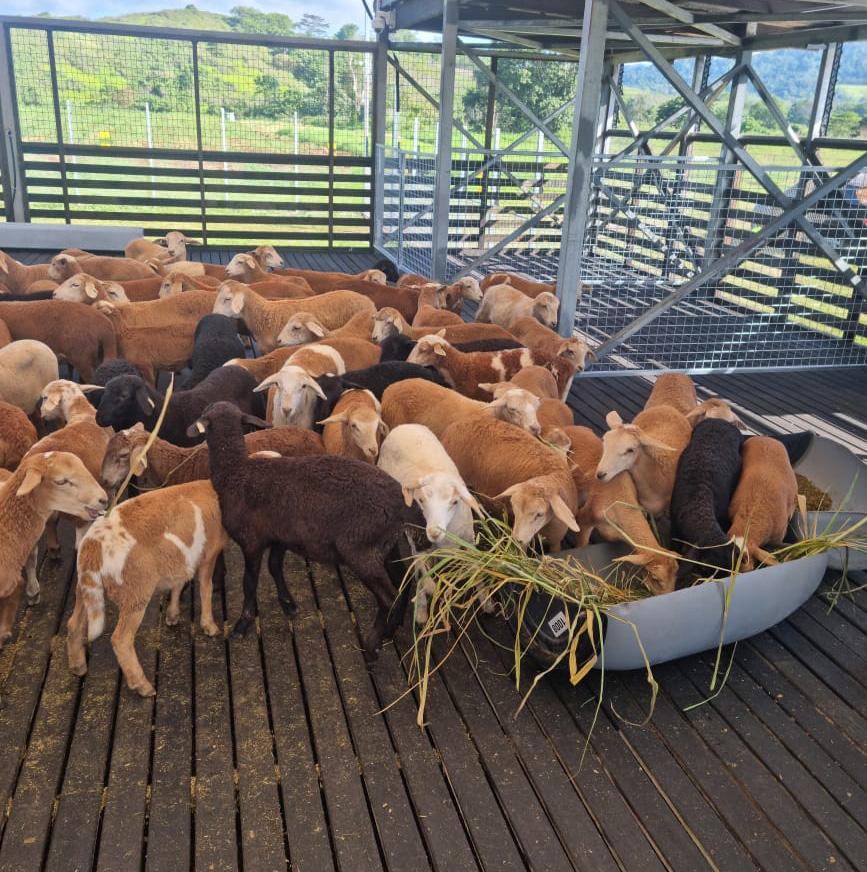
Despite growing external pressures, BNG has continued to evolve substantially.
“The BNG brand now includes Antap PNG, our meat trading business; Blue Planet Logistics, providing logistics and shipping agent solutions; Bikpla.Net, providing connectivity and communication solutions; and QwikBai, offering endto-end procurement services.”
November 2023 was another milestone month for BNG, which saw operations commence at the PNG Protein Park, including a 180-strong live sheep import.
The PNG Protein Park operation, which has been in development for the past four years, will officially be opened on 6th December 2023.
“Unfortunately, the COVID-19 pandemic contributed to a delay in getting this project started, however in November 2023, we were finally able to import sheep into Port Moresby for the start-up,” explains Baker.
The importation of the sheep was a major logistical challenge, as they arrived by air. This required the involvement of various government departments to inform protocol and policy.
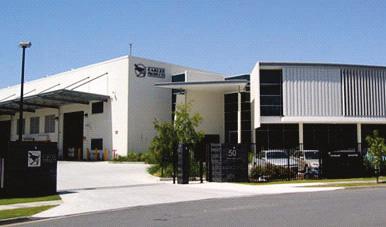










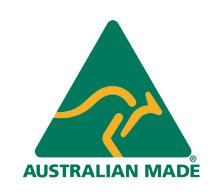
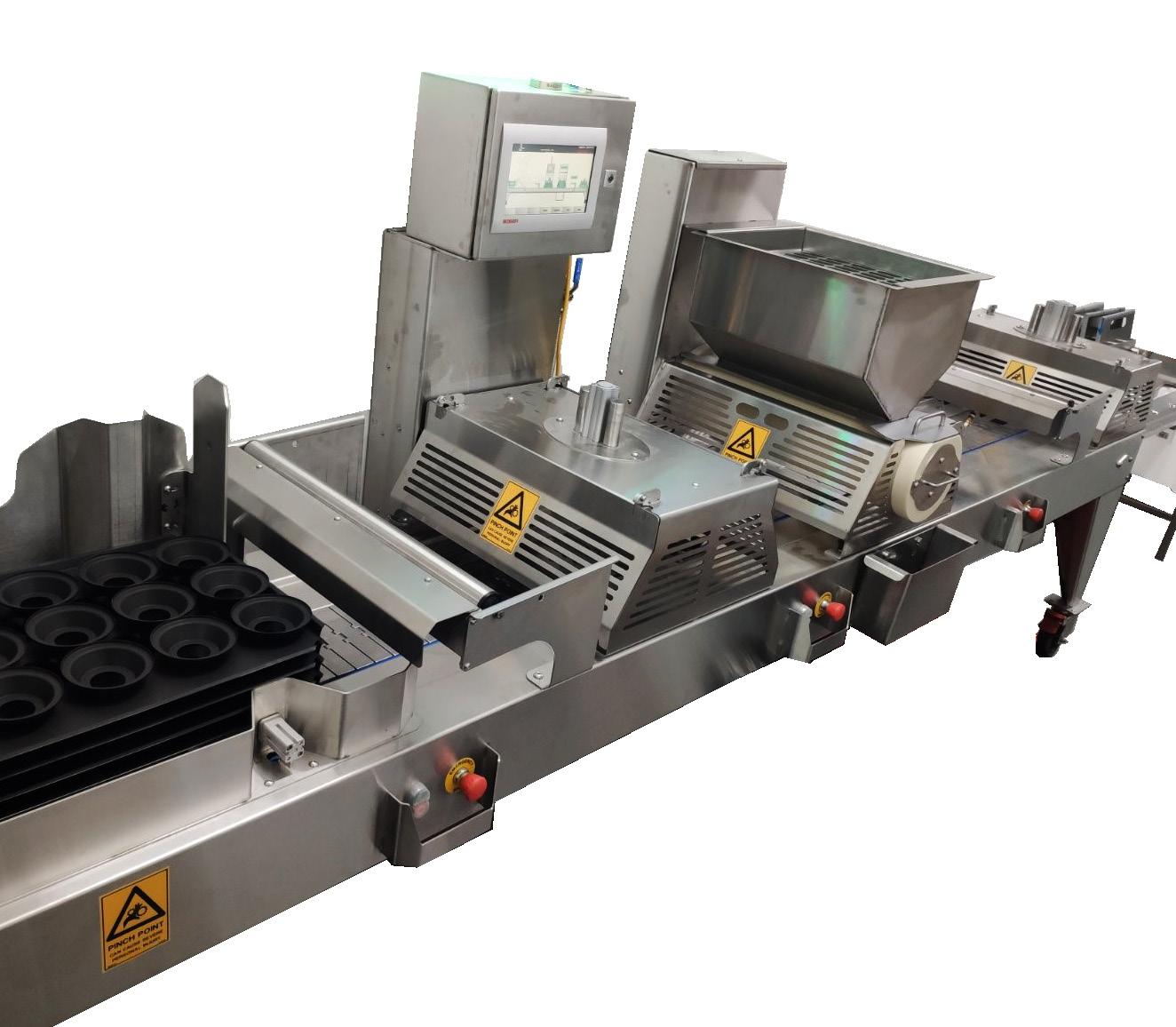
The PNG Protein Park is based in Sorgeri, approximately a one-hour drive inland from Port Moresby.
“The project is still in its preliminary stages. However, the longer-term goal is to breed, grow, and process lamb for supply to the domestic market. Watch this space!” excites Baker.

Delights, a range of home baking products including desiccated coconut, icing sugar, and cornflour, are packed locally at warehouses in PNG, where operations are expanding. Shortly, a new cake mix will be released under this brand.
canned mackerel products in early 2024.
In addition to the PNG Protein Park development, BNG has several of its own brands that are well known and popular in the FMCG sector, epitomising the company’s growth and development in recent years.
“Our peanut butter brand, Peanutter, is very well known throughout PNG and has been in the market for 20 years,” Baker outlines.
Further to this, BNG’s Bakery
“We also launched our Five Masks brand in 2017, starting with wine, and we recently expanded it into both the tea and coffee categories,” he adds.
SunBrite, launched earlier in 2023, is BNG’s household cleaning solutions label, whilst Kleen is another well-established brand, featuring a dish paste, dishwashing liquid, and sponges.
BNG anticipates additional growth in the near future, as it looks forward to the launch of SeaKai’s range of
BNG currently employs over 700 employees and 50 expatriates within the business. As the country undergoes economic growth, primarily enabled by the mining sector, the company continues to expand.
“We currently have 50 expats in the business, and we see this number growing. We are very proud of our workforce and have a very diverse skill base throughout,” Baker divulges.
A large portion of BNG’s training is done on the job. This may occur in the office, store, warehouse, or container yard, depending on the needs of the employee.



“WE ARE VERY PROUD OF OUR WORKFORCE AND HAVE A VERY DIVERSE SKILL BASE THROUGHOUT”
– GREG BAKER, GROUP SALES AND MARKETING MANAGER, BNG TRADING
However, a range of contributing factors have resulted in changes to BNG’s workforce of late.
“Maintaining skilled staff is always a challenge, particularly when working with mining and petroleum project start-ups,” Baker explains.
A government scheme that has caused a recent drain on BNG’s labour is PNG’s overseas worker programme. The company has lost a number of staff to this programme, meaning that it must restart the training process with new recruits.
Despite ongoing modifications to staffing, BNG remains steadfast in its supply chain operations, in which strong partnerships have provided a robust foundation for many years.
“Supply chain and logistics, both domestic and international, are critical to our business. With a number of key raw materials for our smallgoods factory coming from overseas, we need an effective and efficient supply chain,” expands Baker.
BNG’s key partner in this area is Blue Planet Logistics, who handles
and manages all the company’s logistics requirements.
BNG has a strong procurement team, both onshore in PNG and offshore in Australia, and deals with over 250 different suppliers on a regular basis.
“We are very fortunate in that we have had long-standing relationships with a number of our key suppliers and service providers. Without them, we cannot do what we do on daily basis,” concludes Baker.

BNG TRADING
Tel: + 675 303 6550
info@bngtrading.com.pg
www.bngtrading.com.pg
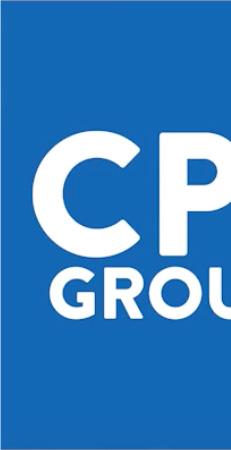
CPL Group is committed providing Papua affordable and quality and services. We company continues the solid foundations diversified and resilient



committed to New Guinea with quality products explore how the continues to reinforce foundations of its highly resilient business
Project Manager: Josh Hyland


The economy of Papua New Guinea (PNG) continues to recover from the global shock inflicted by the COVID-19 pandemic, although this gradual rebirth has been inhibited by the rise of energy and food prices due to recent conflict in Europe.
PNG’s government has increased spending once more across all sectors, however, the delayed re-opening of the nation’s crucial Porgera mine facility has subdued confidence and continues to starve the flow of currency necessary to sustain business.
Despite these substantial headwinds, for one of the nation’s most iconic institutions, the turnover growth rate of CPL Group (CPL) was recently recorded at 4.7 percent.
At its core, CPL aims to provide better health outcomes for PNG consumers and the operational nursing stations found throughout
the country, enabling thousands of people to obtain safe and affordable services that they would otherwise be denied.
Growth in the company’s iconic ‘Stop and Shop’ stores remains a challenge in reflecting increased competition, as well as the rising price of basic food items which places additional pressure on household affordability.
Meanwhile, in the face of global adversity across the retail space, CPL continues to invest in key categories such as fresh produce, bakery, and meats, which is complemented by the opening of a new meat processing plant and commercial bakery in Gerehu.
CPL’s pharmacy store footprint has also expanded with the opening of a new store in Kundiawa.
Despite this array of global and local challenges, today, CPL is PNG’s largest retail and wholesale
organisation and is listed on the Port Moresby Stock Exchange. The company started as the City Pharmacy chain, bringing primary healthcare support to citizens across PNG.
CPL has worked tirelessly to establish itself as one of PNG’s pre-eminent corporations through its tactically astute acquisitions and multiple brand expansions. It continues to partner with several key brands to bring new products and services to the people of PNG, with the overall goal of helping the nation’s citizens to live healthier and better lives.
CPL’s people drive everything the company does on a daily basis, across every facet of its vast business operations. Furthermore, CPL is committed to making extraordinary

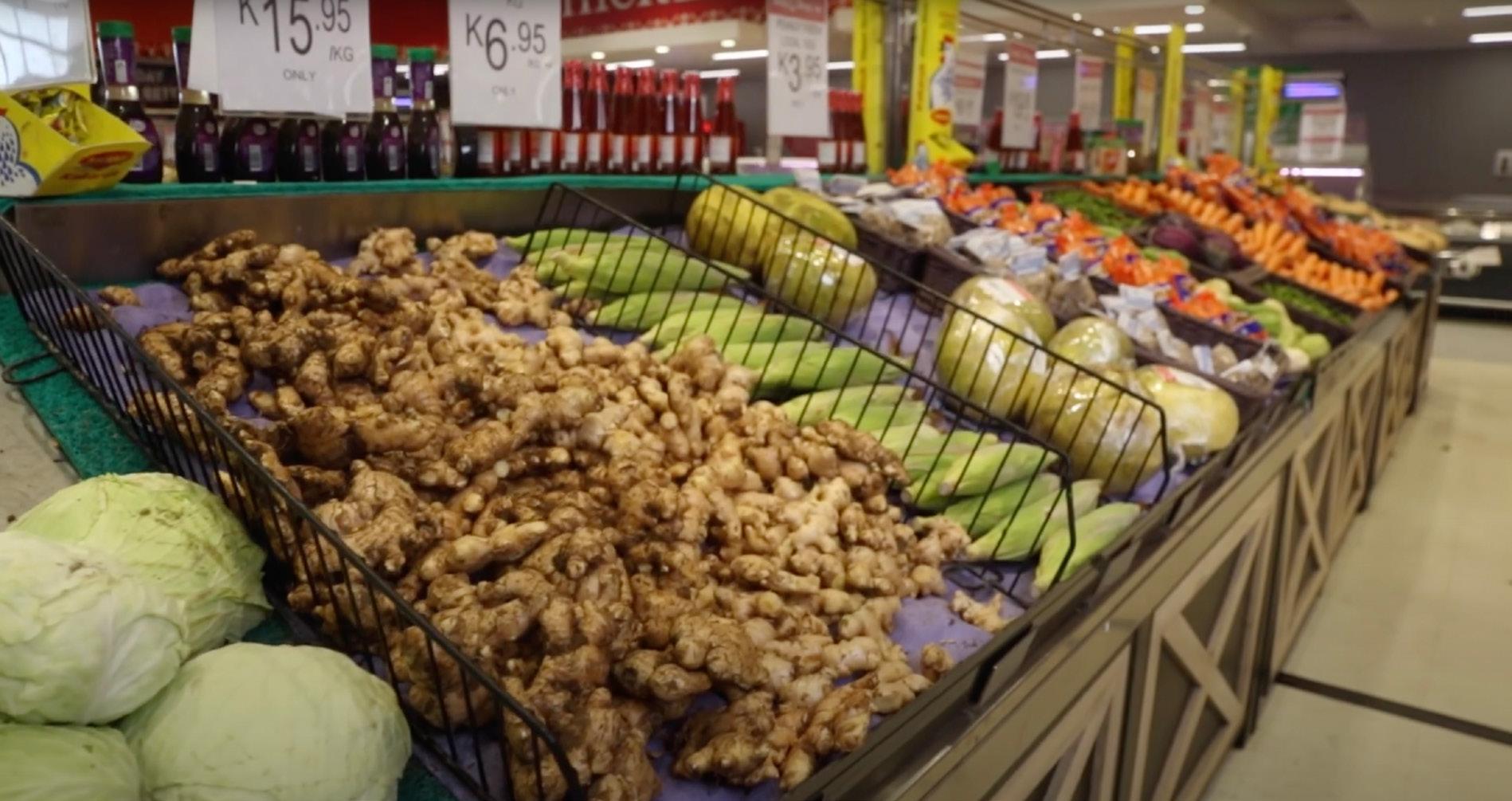
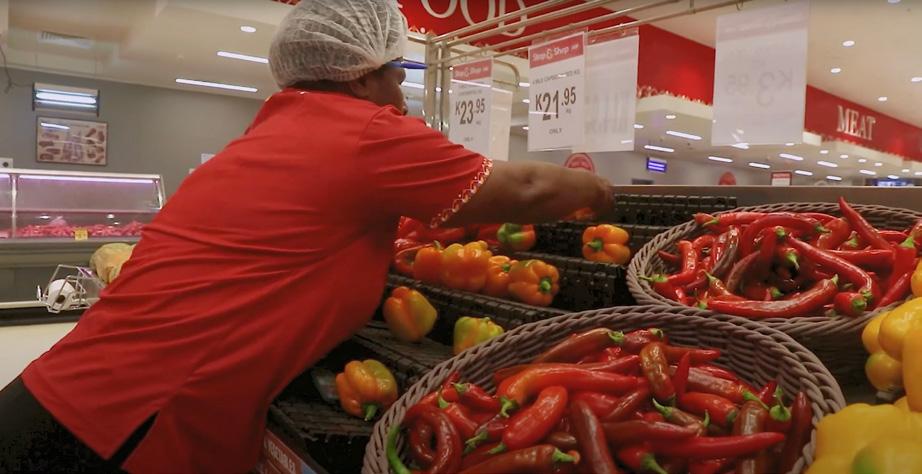

efforts to provide its workforce with a best-in-class, inclusive work environment to deliver their full potential.
The company has a robust talent development programme and focuses on recruitment and retention, which remain essential components of its ongoing recipe for success.
In the last few years, CPL has been working hard towards building a sense of belonging whilst simultaneously championing its diverse culture and guiding principles.
Knowing how its people feel is important to CPL, so the company is pleased with the participation and
quality of feedback it has received in recent employee surveys, indicating that staff engagement is trending positively. Based on this valued feedback, CPL aims to continuously improve its people’s journey and create an optimal workplace teeming with the power of possibility.
To build an even stronger team, and create an optimal employee experience, CPL will continue to emphasise professional development, internal promotions, and succession planning to ensure leadership continuity and a strong company legacy.
One of the most important differentiators between CPL and
its competitors is the experience it provides. The easiest way to ensure customers enjoy themselves is by providing high levels of customer service, and this can only be achieved with a cohesive and empowered workforce.
Separate from the retail side of the business is the highly successful CPL Foundation, which aims to empower women and girls through access to education, literary programmes, improved healthcare services, and enhanced economic empowerment opportunities.


pNG’s capital city Port Moresby is looking for sustainable ways to combat plastic pollution and thanks to the efforts of Coca-Cola PNG, this is now becoming a reality.
Port Moresby residents can now return their empty PET plastic beverage bottles in exchange for cash, as the result of a partnership between Coca-Cola Europacific Partners PNG (CCEP PNG), Coca-Cola Papua New Guinea and Branis Recycling.
CCEP PNG Commercial Director, Tim Solly, said: “As a beverage manufacturer in PNG, we believe it is our responsibility to have a longterm commitment to the sustainability of our packaging. Packaging waste is undoubtedly a major challenge, and it’s also a solvable one if we take action. Our plastic bottles have an ongoing intrinsic value, and we need to treat them this way.”
“We have partnered with Branis Recycling to collect PET plastic beverage bottles of any brand, to prevent them going into landfill, waterways, or the environment. Members of the public are paid an incentive of one kina per kilogramme. The collected beverage bottles are pre-processed, using a shredder, and then sent offshore for further recycling due to the absence of a PET resin recycling facility in the country,” he said.
Beginning as a pilot in August 2022, 40 tonnes of PET plastic beverage bottles have already been collected and shipped offshore for recycling as part of the program.
Consumers can bring their empty PET plastic beverage bottles, of any brand, to Branis collections centres at Ahui Street, Gordons; Spondias Street, Hohola; Gerehu Yard, Stage 6; and they will be paid in cash for the return of the bottles. There is no need to remove caps or labels from the beverage bottle. No washing is also necessary, unless they have been used to store oil, detergent or another non-beverage substance. To help increase the capacity of beverage bottles that can be recycled, Coca-Cola PNG has also purchased two PET shredders which will pre-process the material and turn the PET beverage bottles into flake, making it easier and more cost effective to ship the material offshore. Up until now, PET plastic beverage bottles have been baled before being shipped.
One of the shredders, the first to be operational in the country under the agreement, is now situated at Branis’s site in Port Moresby and has
begun flaking PET plastic beverage bottles.
“If we can turn the bottles into plastic flake before they are exported, it means more bottles can be recycled because it significantly reduces the costs of shipping,” said Mr Solly.
He said CCEP PNG and Coca-Cola PNG aim to expand PET collection across the country, with plans for collection to begin next in Lae. The second shredder will be based at Branis’s site there.
“The ability to recycle PET plastic beverage bottles is only one piece of the puzzle. Education and awareness of how to recycle is critical. That’s why we’ll soon begin using the well-recognised Coca-Cola brand to encourage recycling behaviour in Papua New Guinea,” Mr Solly said.
Russell Mahoney, Vice President of Public Affairs, Communications and Sustainability for Coca-Cola ASEAN & South Pacific, said the company is very proud to be launching PET collection in PNG in partnership with CCEP PNG and Branis Recycling.
“Like most people, we don’t want to see our bottles end up as litter. We are committed to doing more and being part of the solution. Our ultimate goal is to help collect and recycle the equivalent of one bottle for every bottle we bring to the market by 2030.
“However, we can’t achieve our goals alone. Addressing plastic waste and recycling challenges requires collaboration between industry, the public sector and civil society and we look forward to working with these groups in Papua New Guinea to significantly increase the amount of PET plastic beverage bottles collected,” Mr Mahoney said.
The collection of PET plastic beverage bottles is one of several sustainability initiatives currently being undertaken by the Coca-Cola system in PNG.
In 2020 CCEP PNG operated a can collection project in Kokopo, East New Britain Province, by placing collection bins in local markets, retail outlets and hotels and have created Coke bottle-shaped PET plastic beverage bottle recycling bins for events, making it easy for people to recycle their empty bottles when they are out and about.
In addition, CCEP’s sustainability targets include goals on decarbonising the business, sustainable sourcing of ingredients, water security, building a resilient, low carbon supply chain and championing inclusion.
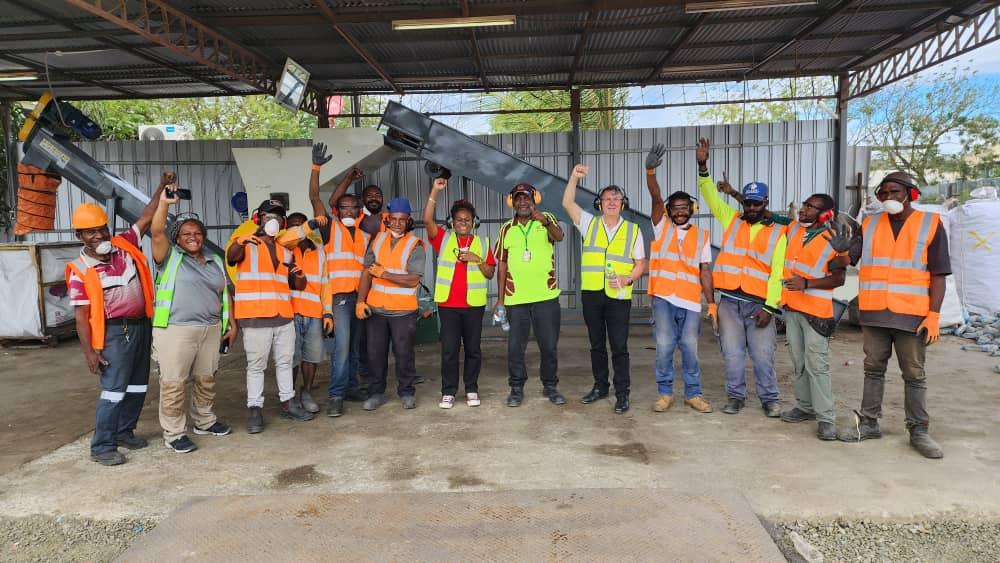



Coca-Cola Europacific Partners (CCEP PNG) has a proud history as a local bottler, with a focus on beverage products, pushing boundaries, blazing trails and creating possibilities, for more than 100 years.
In Papua New Guinea (PNG) life began in 1904, as British Tobacco Company Limited, before diversifying into printing and ultimately packaging, moving offshore into the Australian food and beverage industry.
But it was in 1941, during the Second World War that thousands of Australians had been introduced to a great new drink by American troops. Of course, that drink was Coca-Cola and by 1965, the brand was a household name.
In 1969, a locally owned company, Pacific Industries, was granted the bottling license to produce Coca-Cola products in the New Guinea Islands region, an operation they would hold until 2009.
Coca-Cola’s entry into Southeast Asia followed soon after with the formation, in 1991, of town strategic joint ventures in Indonesia, and the acquisition of the two major Coca-Cola bottling operations in PNG.
Over the next decade CCEP would further consolidate this position in Indonesia, expanding our operations in Australia, Fiji and New Zealand.
As the 90s came to a close, the organisation was divided into two entities, demerging our European interests and creating a new listed European bottler, Coca-Cola Beverages Plc.
In 2021, Coca-Cola Amatil became part of Coca-Cola Europacific
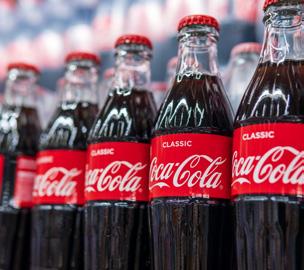


Partners (CCEP). In PNG, the heart of our operations is in Lae, Morobe province, where our head office is located.
Over the last two years, CCEP has invested AUD$12.4 million into expanding our operations.
To meet consumer demand, the multimillion-kina investment the construction of the new head office, the mega warehouse, a new canning line, a water treatment plant and a syrup room.
CCEP PNG bottles and sells Coca-Cola, Coke Zero, Sprite, Fanta, BU energy drink Nature’s Own water, Minute Maid Juice and the Schweppes brand.
With a workforce of more than 500 employees, CCEP PNG has two production plants in Lae and Port Moresby and offices in Mt. Hagen in the Highlands region and in Kokopo in the New Guinea Islands region. CCEP’s success and future is built on great people, great service and great beverages and operating in a sustainable environment.
Globally, CCEP is the world’s largest Coca-Cola bottler with 33,000 employees and a footprint covering more than 25 countries. www.cocacolaep.com

Over the years, the CPL Foundation has paved the way to strengthen women’s education, health, and access to the workforce. This is not only a moral imperative, but a development goal.
THE COMPANY’S FOCUS IS TO:
• Develop businesses to serve the health, food, housing, and lifestyle sectors, as well as meet the required needs of the people of PNG.
• Expand its burgeoning portfolio of brands.
• Develop well-recognised home brands across all sectors.
• Expand on its new medical and laboratory equipment business.
• Helping the people of PNG live healthier, better lives.
• To be the preferred shopping destination by delivering outstanding value, an exceptional customer experience, and maximising shareholder value.
• Remain customer-focused, as the consumer always comes first.
• Ensure responsible practices and take care of the company’s people, community, and the environment.
• Win together as a team.
• Deliver on commitments and achieve what is promised.
• Deliver quality and enact continuous improvement across all operations.
The CPL Foundation is committed to seeing tangible and sustainable results that emerge from partnerships, both private and public, domestic, and international.
Regarded as the philanthropic arm of CPL, the foundation strengthens the existing connection between the business and its communities by fulfilling its commitments through copious corporate social responsibility (CSR) activities.
CPL delivers interconnected programmes focusing on women’s well-being, health, education, and economic empowerment.
The foundation remains resolutely results-oriented, and CPL acknowledges that sustainable outcomes are possible by working in partnership with PNG’s communities. Through this refined approach, CPL strengthens relationships, builds
capacity, and makes the most of the available resources and opportunities to deliver its initiatives successfully.
Digital literacy remains crucial to CPL Foundation’s offering as technology continues to relentlessly advance. Across PNG, young people remain vulnerable to online risks, and it is therefore crucial for parents and caregivers to empower and support their children to have safer and more positive online experiences.
In response to rapid internet and broader technology advancement in PNG, there is a lack of awareness and information regarding safe cyber practices.
As planned, the foundation has introduced more education programmes across the nation in 2023, involving local government in each province to support and participate in the training.
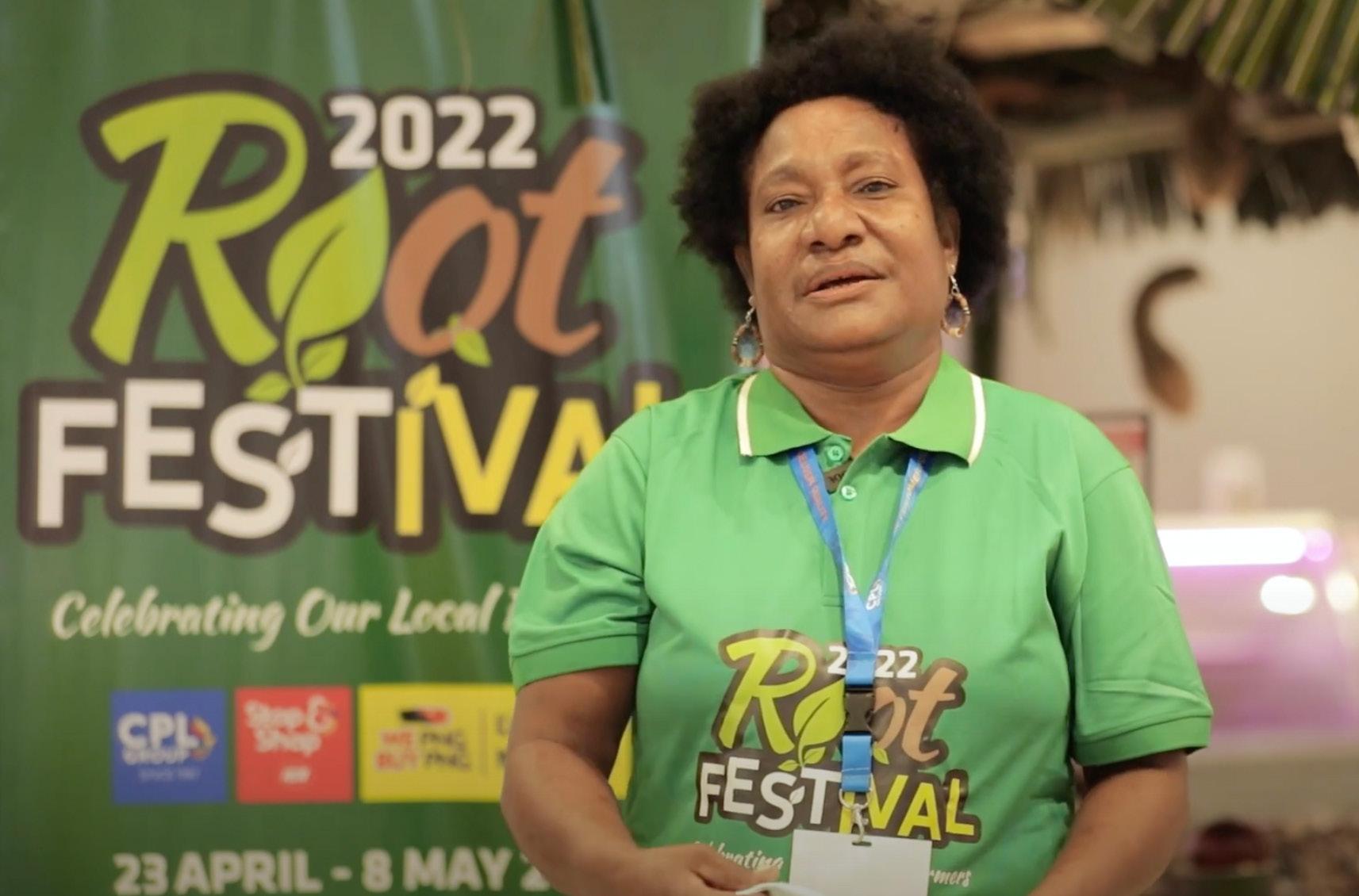
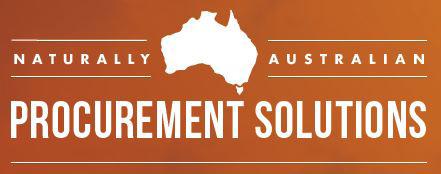





• State-of-the-art facilities
• Supplying Foodservice, Retail, Wholesaler and Hoteliers, Building and Construction, Engineering and Agricultural services
• A turnkey supplier for Camp Management
• Procurement specialists
• Engineering equipment
• Spare parts
• Timber and Hardware
• Kitchen fit out
• Consumables
• Camp management supplies
• Food supply
• Consolidation
NAMAG: NAPS:
• Exclusive distributor for the award winning Coles brand. Our services: Coles Brand awarded






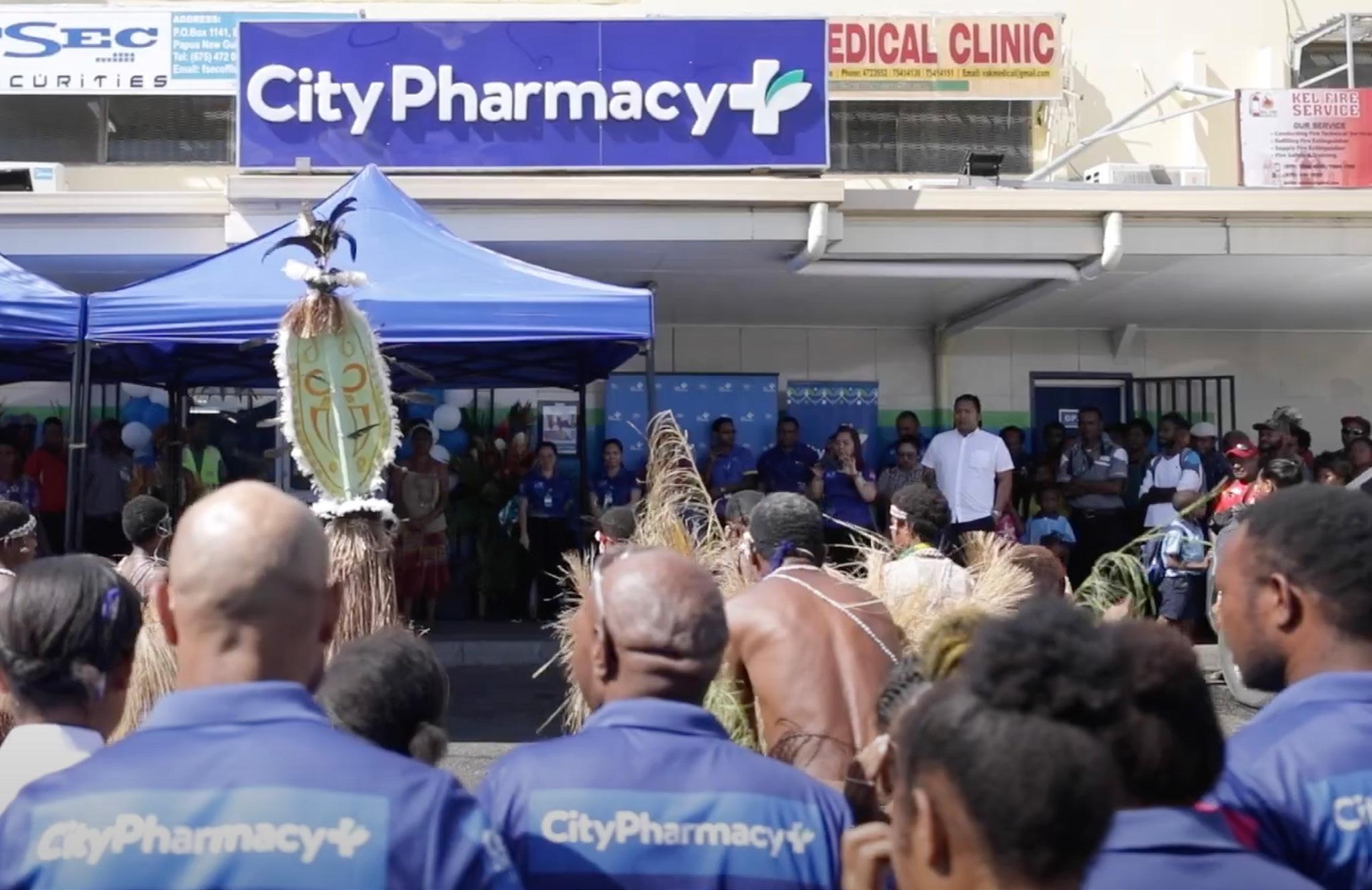
Over time, CPL has grown impressively in size and the scope of its expertise across PNG’s retail space, and has acquired new brands within its burgeoning portfolio.
Established more than 35 years ago, City Pharmacy is the pioneering retail brand of CPL. The brand entered the market as a maverick creation, aiming to trial an innovative co-location scheme. Birthed from humble beginnings, City Pharmacy originally featured just four employees in CPL’s very first Stop and Shop outlet in Port Moresby’s mall, Garden City. It has since grown to host 900 employees serving across 34 pharmacies located across PNG.
Stop and Shop remains a formidable brand in CPL’s retail portfolio, as its comprehensive
product range caters to a vast selection of demographics. Acquired in 2005, the brand is established throughout the nation’s capital with seven supermarkets and one express version of the store.
There is also a growing demand across PNG by families and small business owners to buy goods in bulk. As the grocery wholesale arm of CPL, customers can now purchase home essentials in large quantities through the Cash and Carry brand. These stores feature shelves stocked with a wide variety of products retailed at Shop and Stop supermarkets, as well as including non-prescription lines from City Pharmacy.
To complement CPL’s retail offering, the company has developed its online store, which was relaunched in December 2020. This heralded
• The foundation works seamlessly with CPL, whose retail brands leverage new team members from its programmes.
• 30,000 young people have been trained and certified through the CPL Foundation.
• Many participants have secured employment within CPL’s Stop and Shop stores.
• The foundation will continue to focus on developing more young talents and give them employment opportunities.
• Digital literacy is also key, as it is essential to educate about the potential cyber risks linked to finance as technology continues to advance.



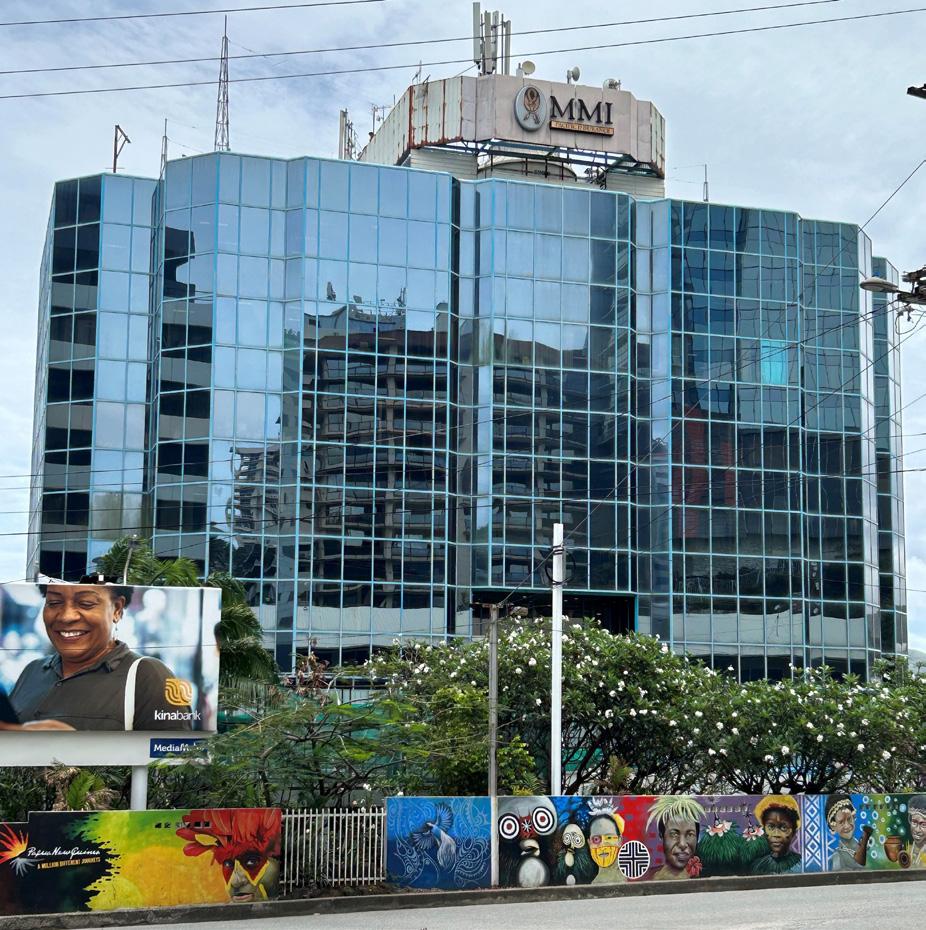
It has been a privilege for Pacific MMI Ltd (PMMI) to have supported the CPL Group since 2017.
PMMI is a Papua New Guinea (PNG) nationally-owned insurance company operating throughout PNG, and has just celebrated our 25th silver jubilee anniversary in 2023. We provide an extensive range of personal, commercial, and corporate insurance products through selected insurance brokers, business partners, and directly to the public.

Phone: +675 308-800
Level
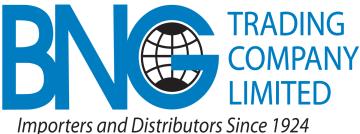

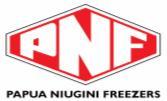
The BNG Group of Companies includes BNG Trading, Papua Niugini Freezers (PNF) and Wimble & Co BNG Trading imports and distributes a wide variety of foods throughout PNG and some of the world’s largest consumer products into the retail, food service, bakery and mining camp sectors Papua Niugini Freezers (PNF) is PNG’s largest manufacturer and supplier of
Port Moresby: 303 6500 Fax: 323 3355 Lae: 71097272
Kokopo: 9828561 / 70314137 / 71005691 Kiunga: 71909926
Manus: 71727908 / 72138561 Buka: 3036565 / 70227221 / 71226660
Mt Hagen: 73662147 Alotau: 3036536 / 71160402 / 70735438
email: info@bngtrading.com.pg / web: www.bngtrading.com.pg

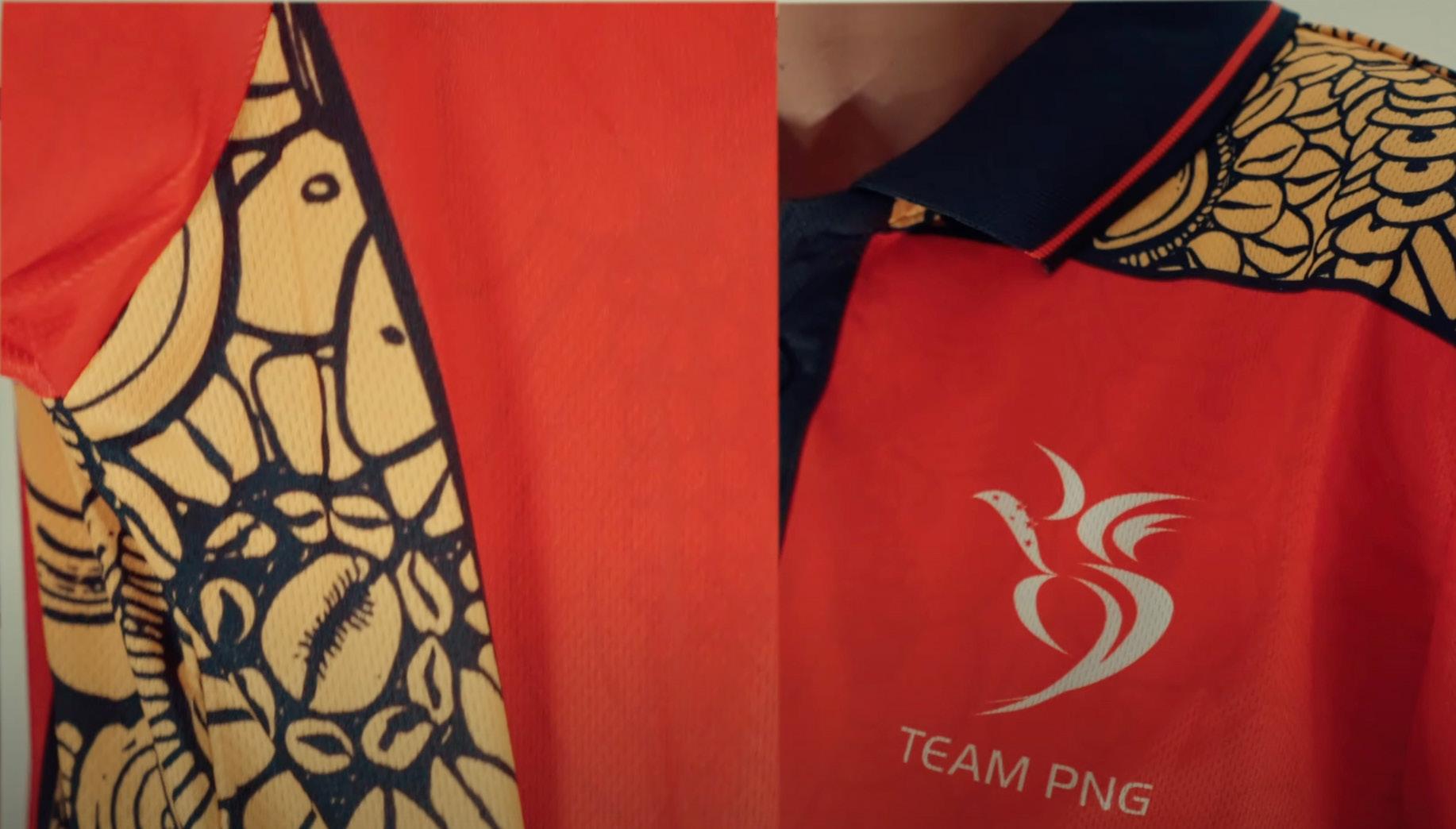
CPL’s response to the demand for easy, efficient, and innovative ways for shoppers to browse and purchase products. The online store has VISA card payment options and customers can choose from home delivery or select pickup points at CPL’s Stop and Shop stores.
was the pioneering brand within CPL to kickstart PNG’s thriving coffee culture. The brand officially launched its first café in 2011, serving tea and coffee as well as a range of other beverages and treats to customers by a well-trained team of baristas. Today, the brand has a large footprint with 13 outlets, mostly located within either Stop and Shop or City Pharmacy stores.
As such, CPL remains optimistic that the nation’s economy is on the crest of a growth surge.
The company has invested heavily in the business and its staff continue to provide the sturdy foundation that will enable the company to take advantage of increased consumer spending power as the nation of PNG grows.
Elsewhere in the portfolio, Bon Café
Another point of pride for CPL is Jack’s of PNG, which has found a niche market in the demand for quality clothing and accessories. Eight years after conception, the brand now hosts five outlets in Port Moresby, Madang, Hagen, and Lae, catering to the fashion and style demands of men, women, and children.
The winning combination of strong economic growth, an increasing population, and an expanding middle class is sure to deliver exciting potential for companies such as CPL.



As Fiji’s largest construction company, Pacific Building Solutions’ expertise in design and building spans an array of disciplines. We learn how the company has overcome the challenges of some of the most extreme and remote locations in the South Pacific
Writer: Lucy Pilgrim | Project Manager: Jordan LeveyAs a 100 percent Fiji-owned company, Pacific Building Solutions (PBS) delivers state-of-the-art tropical construction solutions and has become renowned as a multi-discipline organisation based in Suva, Fiji’s flourishing capital city.
As the country’s largest construction company, PBS boasts a
3,000 square metre (sqm) workshop, diligently run by 800 members of staff.
Thanks to its highly skilled team, PBS has developed a reputation over the past 20 years for tenacity and perseverance, due to its many construction professionals who have adapted to overcome the challenges
of the country’s harsh environments.
Working in these areas brings obstacles such as unpredictable weather, lack of skilled workmanship, demanding logistics, and limited access to quality materials and equipment to the fore. Yet, PBS consistently rises to the challenge and goes above and beyond for its clients.
PBS’ journey first began with the construction of luxury homes in the early 1990s, and during this time, it soon learned the complex logistical challenges faced when conducting operations across Fiji.
As a result, the company decided to resolve these issues by proactively taking charge of the most critical elements of the building process and creating in-house disciplines, facilitating organic growth and acquisition for the business.
PBS’ facility in Suva houses the company’s metal workshop, joinery workshop, art department, thatch treatment plan, as well as prefabrication processes, featuring a computerised timber wall frame and truss machinery.
Looking at each subsector in more detail, the PBS metal workshop was an inherited marine trade specialist operation, acquired when the company purchased the facility space in the city. As such, it also took hold of the retained skills of the factory’s employees.
• Resorts and hotels
• PBS healthcare
• Donor-funded healthcare facilities
• Airport construction
• Marine and civil solutions
• Concrete solutions
• Residential projects
• Movie set construction
• Small works department

“THE SECRET TO OUR SUCCESS, ESPECIALLY WHEN BUILDING IN THE OUTER ISLANDS, IS OUR ONE-STOP APPROACH TO MAKING SURE WE DELIVER ON TIME, ON BUDGET, AND AT THE HIGHEST LEVELS OF QUALITY WITHOUT EXCUSES”
– PACIFIC BUILDING SOLUTIONS
Therefore, through the acquisition of the facility and its employees, PBS could extend its repertoire to practically any metal work task, ranging from complex, custom-made projects in aluminium or stainless steel to complete steel building super-structures.
A further branch of PBS is the joinery workshop that exists as the biggest subdivision of the entire Suva facility, and is a state-of-the-art manufacturer of tailor-made doors, windows, and cabinetry.
Utilising specialised tooled machinery and up-to-date computerised systems, the joinery team is self-sufficient in constructing custom profiled components. Moreover, due to the uniqueness of each project, diligent attention to detail is critical.
Unlike many other companies in the tropical construction market, PBS is proud to include an art department in the wider construction
process. Each carver and sculptor has a clear passion for developing the traditional forms of art into a more contemporary form of architecture. As such, iconic South Pacific design is personalised and integrated into each project, through a variety of materials including timber, stone, resin, and concrete.
In a continuation of the art workshop, PBS’ thatching division heralds beautifully traditional methods that have been passed down for generations across Fiji, showcased by the exquisite ‘Na Bure’, which has become more desired in recent years.
The company sources its natural ‘soga’ leaves (palm) and ‘magimagi’ (twine) necessary for thatching from local villages, providing an income to families and clans on the western coast of Viti Levu. The soga is entered into treatment plants before being incorporated into buildings, in order to create the most authentic and traditional design possible.






Finally, PBS is a fully established, licensed wall frame and truss manufacturer. Its enviable services comprise precuts and prenails of timber wall framing, which are a result of the structural use of the latest pryda wall-builder software, to create highly-detailed structures that require the greatest levels of engineering.
The work of the structural designer can then be downloaded directly to PBS’ in-house equipment software for cutting, before the factory carpenters assemble and finish the components using pryda truss jigs and a pryda truss press.
PBS has an extensive array of capabilities, demonstrated by the variety of projects that the company has completed over the last two decades.
For example, PBS has developed a
key strength in the resorts and hotels discipline as the leading construction entity in the sector. Thus far, it has built over a dozen resorts throughout the South Pacific in remote areas with limited accessibility and infrastructure.
This is most clearly evidenced in the Little Polynesian Resort project, amongst many more. Located in the Cook Islands, the resort offers the epitome of the Polynesian experience, as an intimate and luxurious offering.
PBS was responsible for 10 decadent beachside bures and four garden bungalows, all equipped with decks, courtyards, a central facility building, swimming pools, and custom-made furniture.
Additionally, the business is proud to have been awarded the designbuild contract for Fiji’s first Pacific Eye Institute. This ambitious project houses a fully-equipped eye clinic;
The company’s movie set division has worked on a plethora of major productions across Fiji. It has a 3,000 square metre (sqm) workshop that is fully equipped to cater to the most complex requirements, with every PBS department contributing to the projects.
RECENT COMMISSIONED PROJECTS:
MTV ROAD RULES – Initially employed as the location scout and main production contact, PBS also became construction coordinators to supply all production materials, props, and sets, alongside plant equipment and labour.
ANACONDAS: THE HUNT FOR THE BLOOD ORANGE – Commissioned to transform the Viti Corp farm shed into a comprehensive construction and art department workshop for the shooting of the film.
GRENADA’S FANTASY LOVE ISLAND – Provided materials and a prefabricated set for Celebrity Love Island on Bounty Island. PBS also prefabricated a variety of structures and props.
SURVIVOR (FIJI) - The company’s most ambitious and largest crew accommodation construction project yet, it included the building of 174 onebedroom units in five weeks on a remote site on Vanua Levu, Fiji.
ENDEMOL’S ‘UNDER ONE-ROOF’ - Commissioned for the construction of a 3,600 square foot (sqft) house in a remote area of Fiji. PBS completed the project in 10 weeks, on time and within budget.

two controlled air procedure rooms, the first of its kind in the country; and classrooms and a resource centre for postgraduate students specialising in eye health.
Testament to the company’s efficiency, the facility was completed two months ahead of schedule. It showcases modern building techniques completed by the company, including precast procedures, polished concrete for a unique and elegant façade, local hardwood carving accents, and a specialised weather resistant glazing for the exterior cladding.

Each project is unique in the sense that it involves the contributions of different arms of the company, ensuring complete end-to-end solutions. Therefore, as the company rides the wave of the recent South Pacific tourist boom, it has generated over USD$1 million of resort work in recent years.
PBS has developed a comprehensive opportunities and partnership strategy that complements the business’ own values whilst initiating ideal solutions for its customers and suppliers, demonstrating the
company’s commitment to achieving the best possible outcome.
PBS is also committed to traditional business values and safe construction practices that are supported by forward-thinking concepts and a consistent commitment to excellent client relations.
The company culture further envisions the timely delivery and execution of projects, particularly when faced with challenges of location and budget restrictions.
Furthermore, its team comprises people who truly have a passion for every project and contribute
values of integrity, reliability, quality workmanship, strong communication, creativity, and problem-solving to each operation.
It is also vitally important that the team’s skills and personal development are nurtured, providing optimum opportunities in their careers and beyond.
PBS has become a cornerstone of the South Pacific construction industry, implementing comprehensive strategies through its expertly managed subdivisions and participating in each project with care and forward-thinking solutions.
With a robust global network, Kerry Logistics Oceania Pty Ltd is revolutionising the supply chain industry. We speak to Cameron Green, Managing Director for Oceania, about how the company is successfully expanding into new markets
Writer: Lauren Kania | Project Manager: Ryan Gray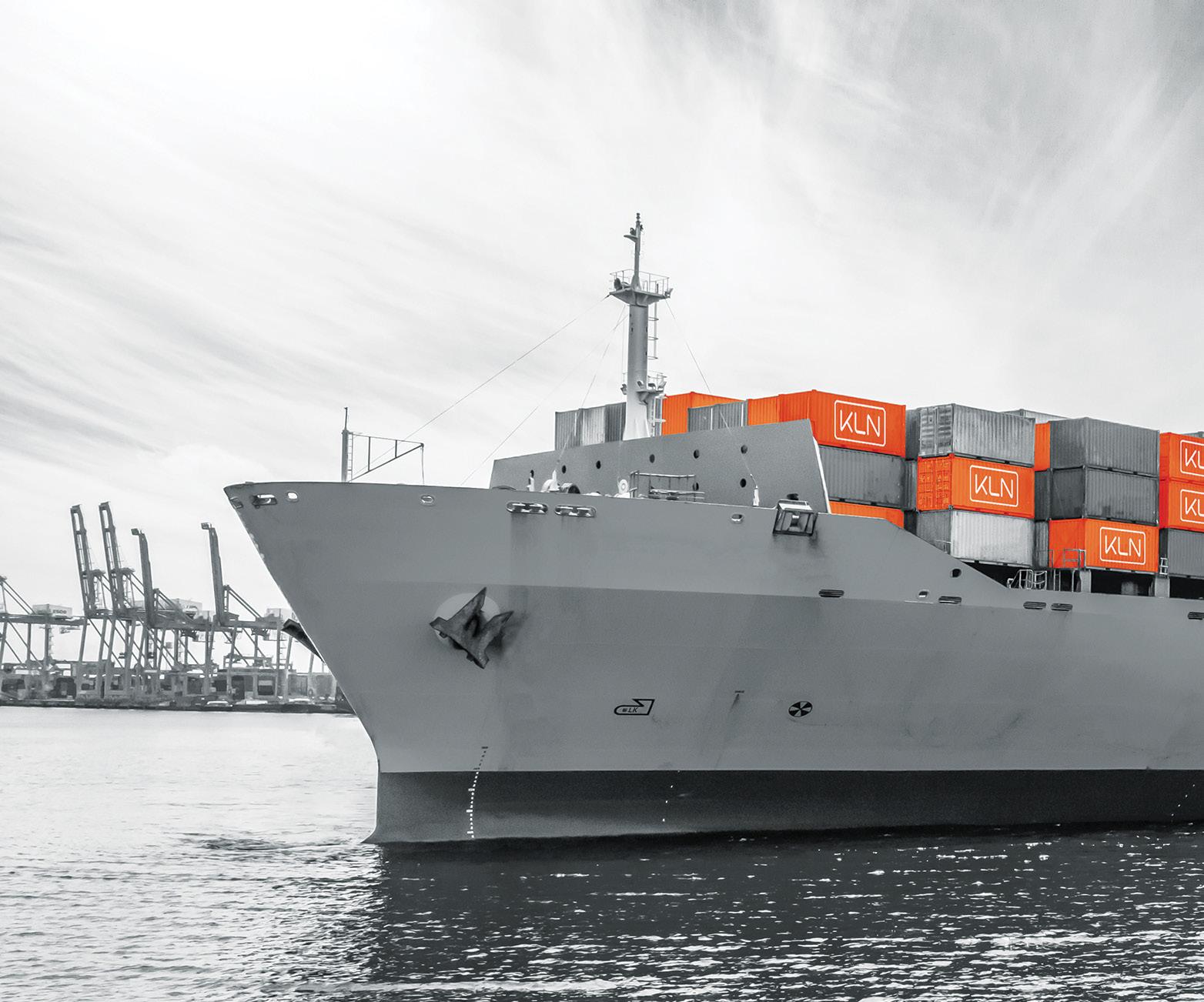
Kerry Logistics Oceania Pty Ltd (Kerry Logistics), an Asia-based global 3PL company with a highly diversified business portfolio, has made a name for itself within the supply chain industry by leveraging its strong and robust international network to provide the Oceania region with a gateway to the rest of the world.
As Oceania specialists with a deep understanding of customers’ unique requirements across Australia and New Zealand, Kerry Logistics offers services that range from air and ocean freight to land freight, industrial project logistics, and e-commerce solutions.
Cameron Green, Managing Director for Oceania, has spent over three
decades in the logistics and supply chain industry, working in various capacities, including operations, commercial, and strategic planning, before joining Kerry Logistics in 2014.
“It’s not every day that you come across a company that first and foremost has their customers’ success in mind, and that goal resonates within all layers of the organisation,” opens Green.
Inspired by the company’s leadership and innovative approach to logistics solutions, Green has taken this opportunity to continue the legacy and goals for the region.
With a highly diverse client base across a wide spectrum of industries throughout the region, Kerry Logistics’ core business is established
on decades of experience. It encompasses integrated logistics, contracted logistics, international freight forwarding, supply chain solutions, refrigerated transport, and temperature-controlled warehousing, all allowing for the company to provide a variety of end-to-end solutions for any and all customers.
“Since Kerry Logistics became a listed company in 2013, we have had incredible growth amongst competitors,” expands Green.

“We are proudly sitting now in the top 10 global freight forwarders and global ocean freight forwarders and amongst the top players for the transpacific route,” he continues.
Kerry Logistics showcases its
unparalleled constitution and industry leadership through its focus on technology and being the logistics operator of choice.
By supplementing its own assets with leased assets, the company operates under its own control, allowing autonomy over quality assurance and ultimately helping it become a onestop shop for supply chains worldwide.
Through its dedication to innovative and customised logistics solutions, the company is committed to helping its business partners find success.
With the supply chain industry currently facing unprecedented challenges due to global disruptions, it is more critical than ever for companies to guarantee service quality and reliability throughout this uncharted territory.
Despite services and price points of several routes still adjusting after the turmoil caused by the COVID-19 pandemic, and supply and demand remaining volatile while undergoing serious transformation, Kerry Logistics is taking this as an opportunity to excel.
“These challenges present an occasion for innovation and optimisation, as well as the ability to showcase to customers our value as a reliable partner with their best interests in mind,” insights Green.
“The volatility of the market and the industry in general calls for caution, but it also brings forth opportunity. Currently, we are actively expanding our network in emerging markets and investing in technology to provide more efficient and sustainable solutions.”
Facing these challenges head-on, Kerry Logistics is focusing on sustainability efforts, streamlining its
KERRY LOGISTICS
OCEANIA PTY LTD AT A GLANCE
200+ staff
NINE offices
340,000 square feet (sqft), including ambient, chilled, freezer, and bonded facilities, of warehouse space.
CERTIFICATES AND LICENSES
including HACCP, IATA, AQIS, MPI, CUSTOMS ACCREDITED, and RACA.
AIRPORTS AND SEAPORTS
including Adelaide, Brisbane, Melbourne, Sydney, Auckland, and Christchurch.
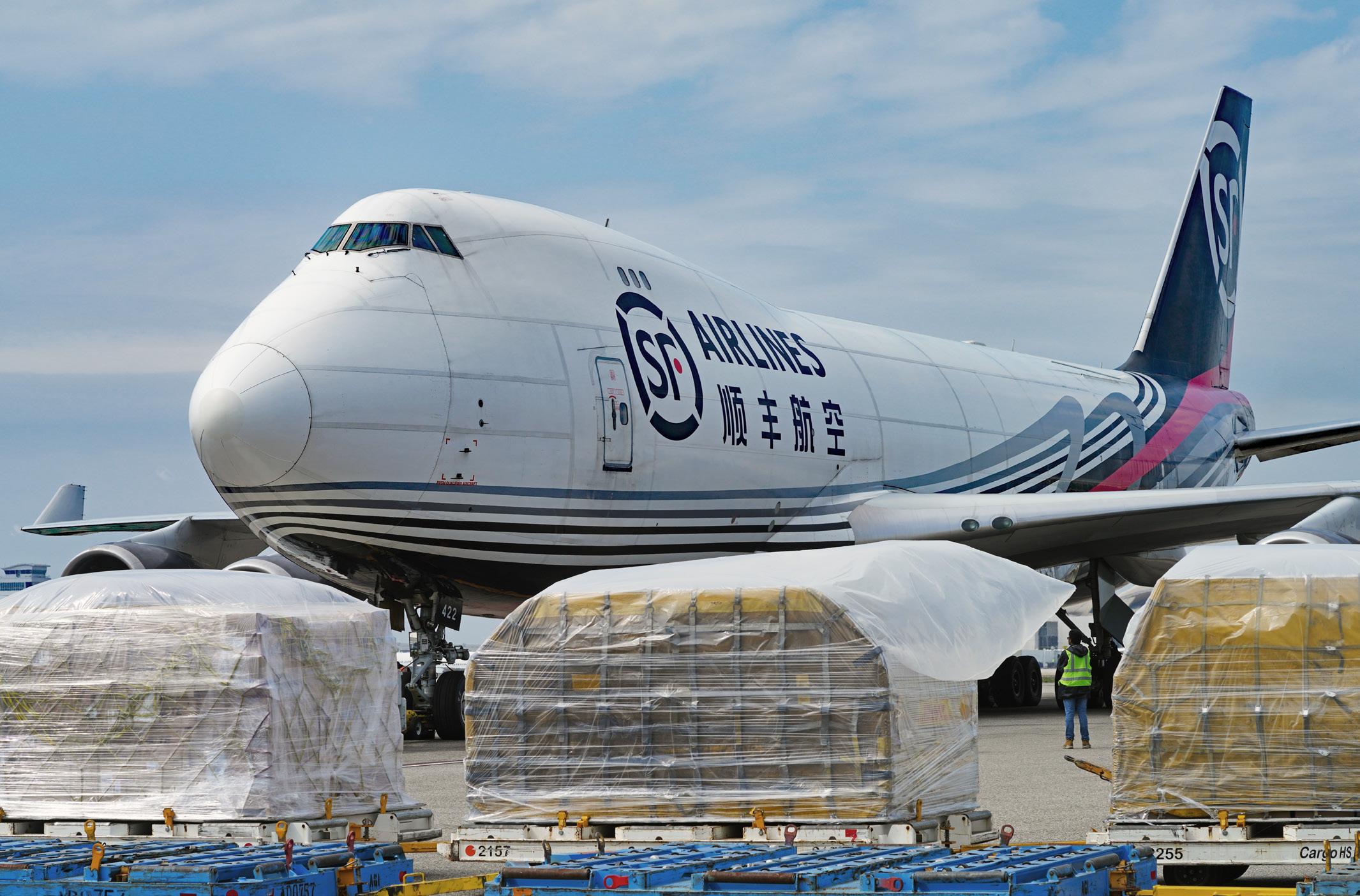
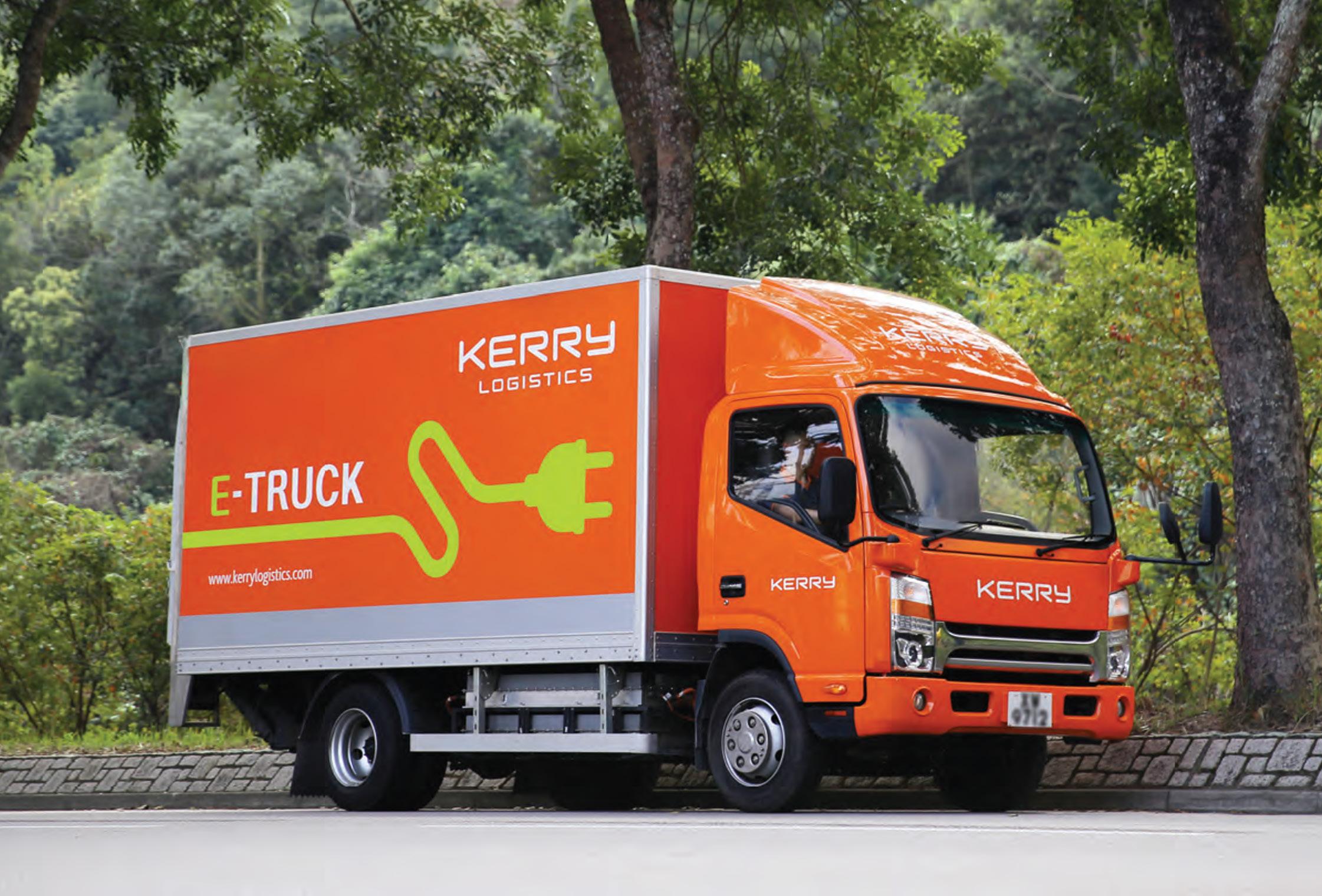
“WE ARE PRIORITISING CONNECTING WITH CUSTOMERS, REACHABILITY, AND TRANSPARENCY. IT IS OUR BRAND PROMISE TO EMPOWER YOUR POTENTIAL AND DELIVER SUCCESS”
– CAMERON GREEN, MANAGING DIRECTOR FOR OCEANIA, KERRY LOGISTICS OCEANIA PTY LTD
processes, and rearranging its worldwide resources to offer highquality service wherever needed.
With robust and well-thoughtout expansion plans, the company is aiming to solidify its position as a global leader in logistics.
“After our merger with SF Express, the largest integrated logistics service provider and cargo airline in mainland China, we are more prepared than ever before to exceed expectations with reliability, technology, and high service levels,” enthuses Green.
SF Express operates the largest dedicated cargo airline in Asia, with a fleet of more than 89 cargo-only aircraft.
Having recently opened Asia’s first dedicated professional cargo airport and now serving more than 85 desti nations across Asia, Europe, and the US, Kerry Logistics is looking forward to the future potential of operating a scheduled service into the Oceania market under its very own ‘Kerry SF’ banner.
The future of the environment and responsible sustainability efforts are at the forefront of many business initiatives across today’s supply chain industry.
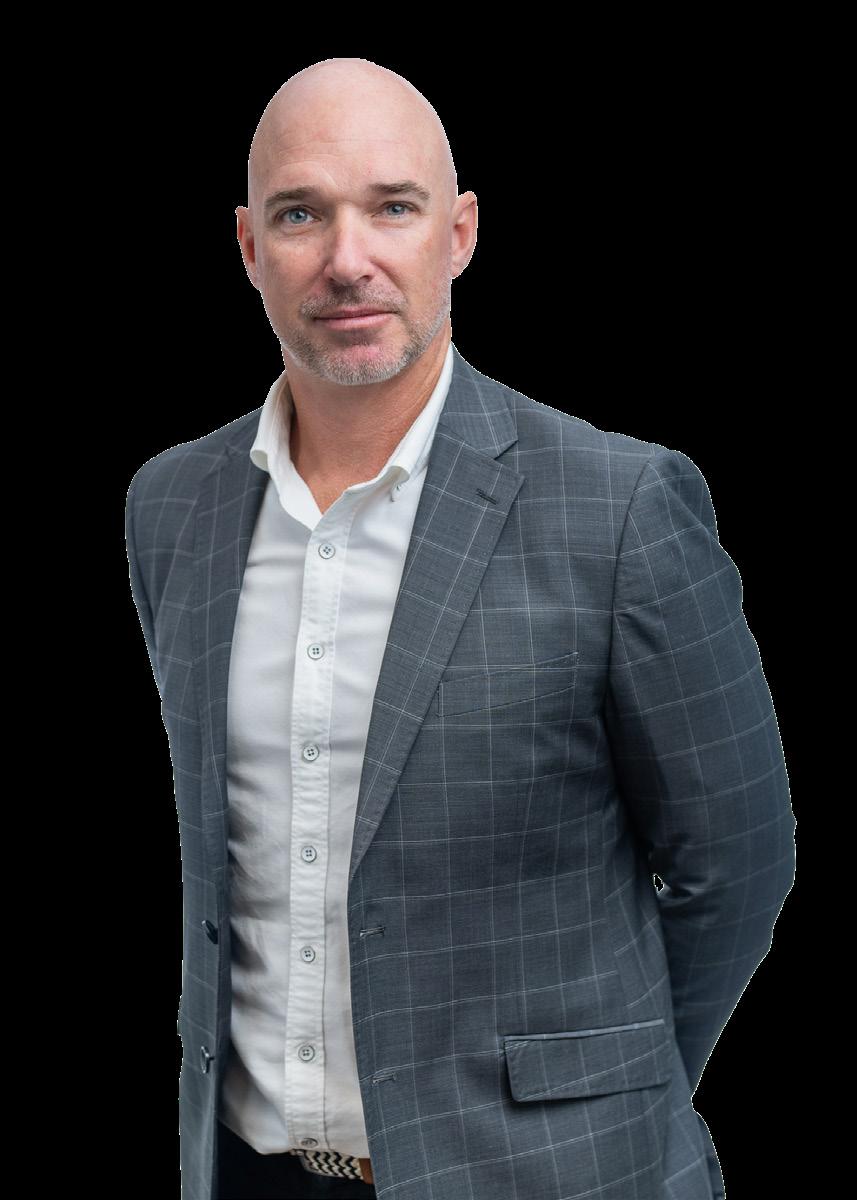
Cameron Green, Managing DirectorKerry Logistics e-Truck
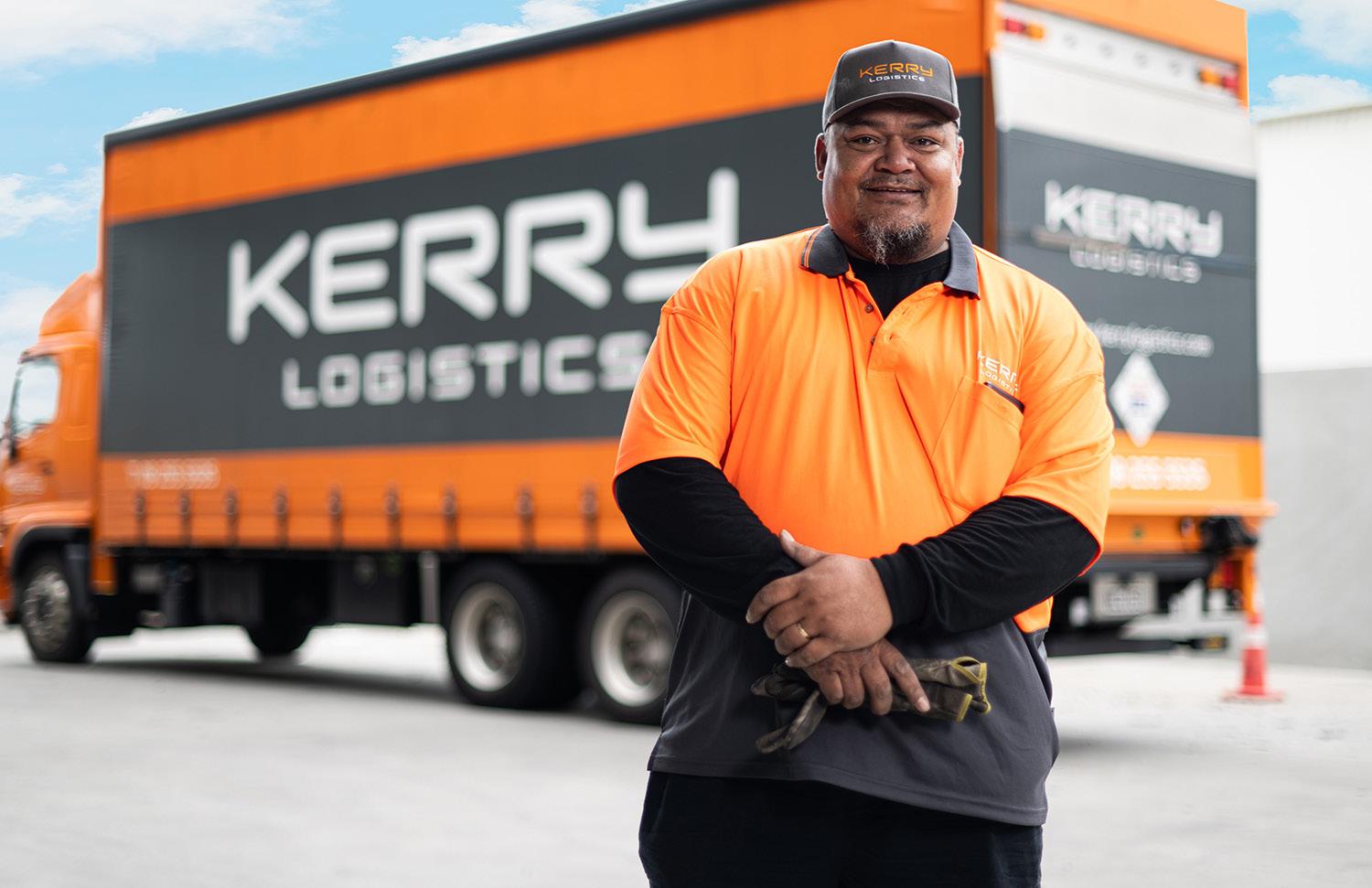
• Ocean freight
• Air freight
• Road freight
• DG certified
• Multimodal transportation
• Project logistics
• E-commerce
• Break bulk services
• Warehousing and distribution
• Supply chain solutions
• Customs brokerage
• Value-added services
• Track and trace
This is no different for Kerry Logistics and its mindset for a sustainable future.
Having recently won the environmental, social, and governance (ESG) Benchmark Award (silver) and the Outstanding Sustainability and Dividend Growth Award for the second year running at the ESG Achievement Awards, the company is
taking this crucial movement seriously and with an innovative and inclusive mindset.
“We are committed to reducing our carbon footprint through various initiatives, including optimising route planning and using eco-friendly vehicles. As a listed company, we also make public all our advances, initiatives, and milestones and make them available on our online ESG report,” explains Green.
With the majority of the company’s operations being paperless, and integration with systems and customers at the forefront of its initiatives, Kerry Logistics is reaching milestones when it comes to sustainable advancements.
“We partner and give preference to carriers who are executing lower or zero carbon emission programmes and monitor their developments, which we in turn share with our customers,” he notes.
In addition to these efforts for a greener future, Kerry Logistics prides itself on accumulating and nurturing its workforce to guarantee consistent high quality and an innovative culture across all fields.
“We place a strong emphasis on
workforce development to ensure our team is well-equipped to meet future challenges by providing internal and external training and continuing trainee development programmes. This allows us to expose younger members to the industry and garner their unbiased perspectives on what to improve and integrate,” informs Green.
Priding itself on being a lean company, Kerry Logistics ensures that it has the right people in the right positions, allowing the organisation to take decisive actions whenever needed, ultimately contributing to its vast growth.
“We offer internal opportunities for professional development, and our continuous growth means there is no shortage of opportunities to advance our career from within,” comments Green.
With these ideologies integrated into the company’s DNA, progression and collective development are not only encouraged throughout the business, but are evident in all aspects of day-to-day work.
With innovation and the desire to continually showcase the company’s time-tested reliability and customercentric mindset, Kerry Logistics is setting a high standard in the supply chain industry.
As a 3PL company, Kerry Logistics is able to manage and coordinate the entire logistics process for its clients, offering one-stop-shop solutions for any customer with a combination of owned and subcontracted assets.
“Regardless of ownership, we act as a logistics company – having full control over the process from end to end and having our team take accountable actions to ensure results, ultimately allowing us to be highly flexible and scalable,” expands Green.
The company sustains effortless accessibility for its clients with


Silk
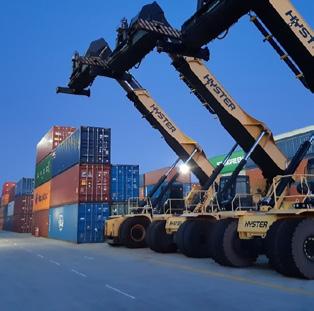
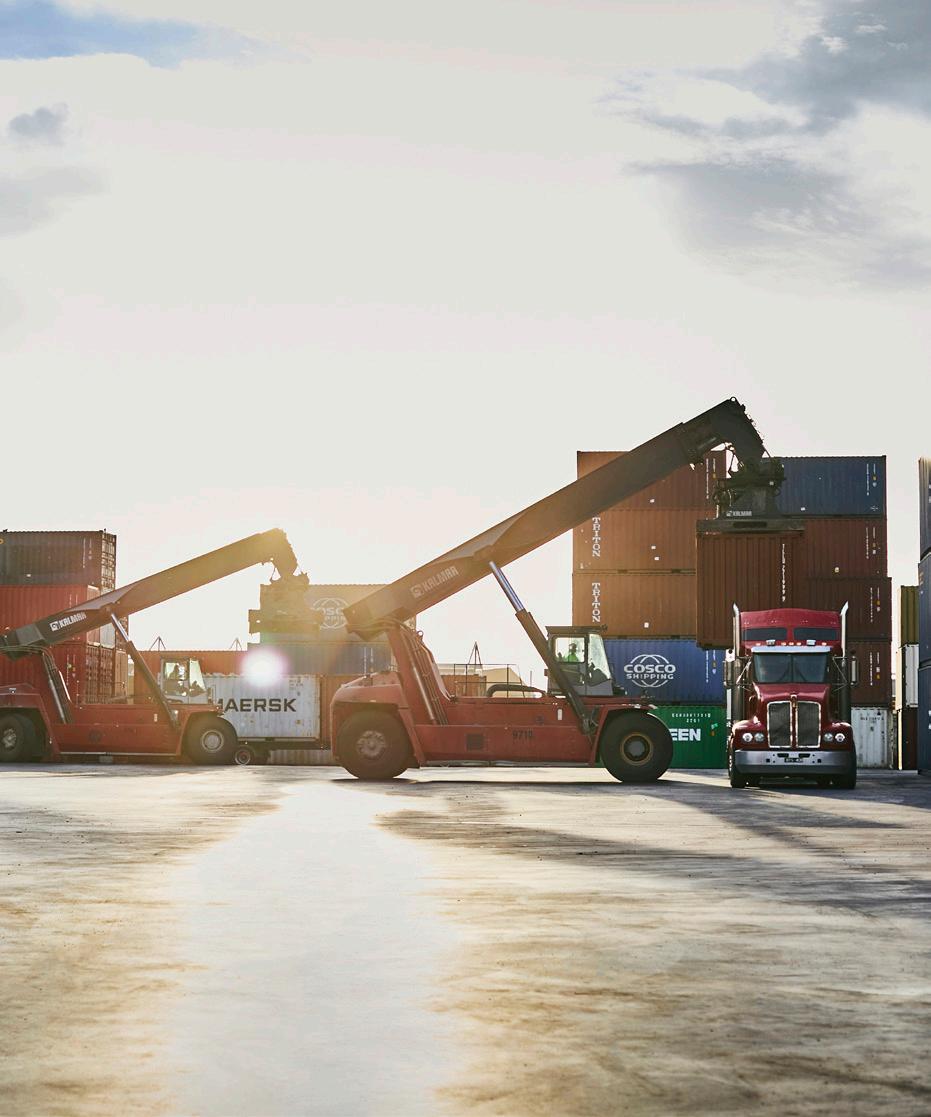

“WE ARE PROUD TO BE THE FASTEST IN THE MARKET IN TERMS OF INTEGRATION PROJECTS WITH CUSTOMERS’ SOFTWARE, ENABLING US TO START AND SCALE OPERATIONS IN THE SHORTEST TIME POSSIBLE”
– CAMERON GREEN, MANAGING DIRECTOR FOR OCEANIA, KERRY LOGISTICS OCEANIA PTY LTD
platforms such as KerrierVISION, a proprietary logistics management platform that has three different layers of track and trace available depending on the amount of information the customer would like available to them.
Additionally, the organisation has recently launched KerryConnect, a newsletter with curated content on the latest freight and logistics news from Oceania and around the globe.
“Our releases cover the latest industry updates as well as insights
into our Oceania business and the Kerry Logistics network, business tips, and key data to allow our customers to stay informed and make the best decisions in the current market,” provides Green.
With all of the unparalleled advantages that Kerry Logistics offers, customers feel confident in the services and amenities offered.
The organisation’s lean and flexible structure successfully combines local expertise with the company’s comprehensive footprint and
For
infrastructure across the world.
Boasting a global presence across 59 countries and territories, the company has established a solid foothold in half of the world’s emerging markets and only continues to grow further.
“We aim to become the go-to brand and a standard of service quality in the Oceania market. We are working tirelessly on further improving our process, making reliability and accountability for local decisionmaking the basis to offer a highly personalised service and create a unique and satisfying customer experience,” concludes Green.

KERRY LOGISTICS OCEANIA PTY LTD
Tel:
+61 2 9695 0611
contact.sydney@kerrylogistics.com
www.kerrylogisticsoceania.com
The Virtual Buying Office

The intricacies of global logistics demand a level of precision and efficiency that can only be achieved through strategic partnerships. In this article, we explore the pivotal role played by Compliant Business Processing (CBP) in reshaping the outsourcing landscape for Kerry Logistics. Kerry Logistics is no stranger to outsourcing certain functions to maximise their service offering to their global clients. Struggling with a previous service provider in the space, Kerry Logistics turned to CBP out of desperation to elevate their service levels, initially within their Australian customs team. What ensued was not merely a solution to a specific problem but a comprehensive transformation that saw Kerry Logistics transition multiple functions to CBP across multiple countries, reaping enormous benefits from basic tasks to high-level operations.
The Prelude:
Kerry Logistics, a heavyweight in the logistics industry, faced a significant setback in their outsourcing strategy when their reliance on another service provider failed to meet
expectations. The disappointment was felt acutely within the intricacies of customs support (within Australia), a crucial, sensitive and critical aspect of their operations. In the ever-evolving landscape of global logistics, any glitch in the customs process can have cascading effects, leading to delays, financial implications, and compromised client satisfaction.
Faced with the urgency of rectifying this situation, Kerry Logistics took a bold step by trialling CBP’s services specifically in the customs support function. The decision was driven by a desperate need to achieve the required service level and salvage their reputation in the industry. This marked the initiation of a partnership that would soon redefine Kerry Logistics’ outsourcing strategy.
The trial period for customs support with CBP was not merely an evaluation of services but a litmus test for the transformative potential of strategic outsourcing. The customs team,

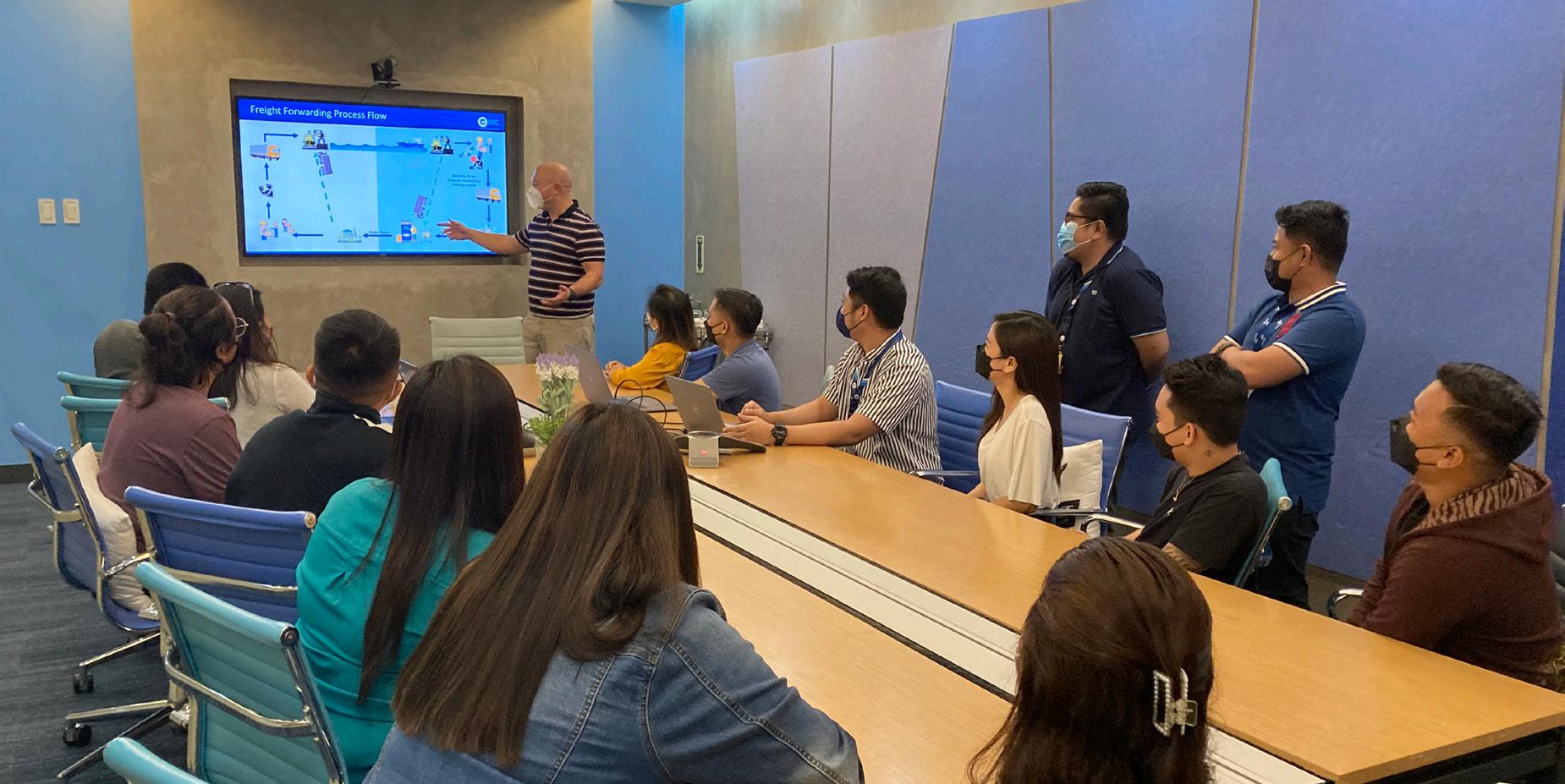
a critical component of Kerry Logistics’ operations, required precision, compliance, and timeliness. CBP, with its expertise in delivering specialised logistics focused outsourcing support services, rose to the occasion.
During the trial, CBP showcased a level of commitment and proficiency that exceeded Kerry Logistics’ expectations. The seamless integration of CBP’s services into their internal customs product not only addressed the immediate challenge but also laid the foundation for a more profound collaboration. The positive outcomes prompted Kerry Logistics to embark on a comprehensive procurement analysis, evaluating
CBP against other service providers across various functions.
Exceeding Expectations: A Comprehensive Procurement Analysis
The procurement analysis undertaken by Kerry Logistics was a meticulous process, evaluating service providers based on performance, efficiency, adaptability, capability and overall value. CBP emerged as the clear frontrunner, consistently surpassing benchmarks and demonstrating a commitment to excellence that set it apart in the competitive landscape of business process outsourcing.

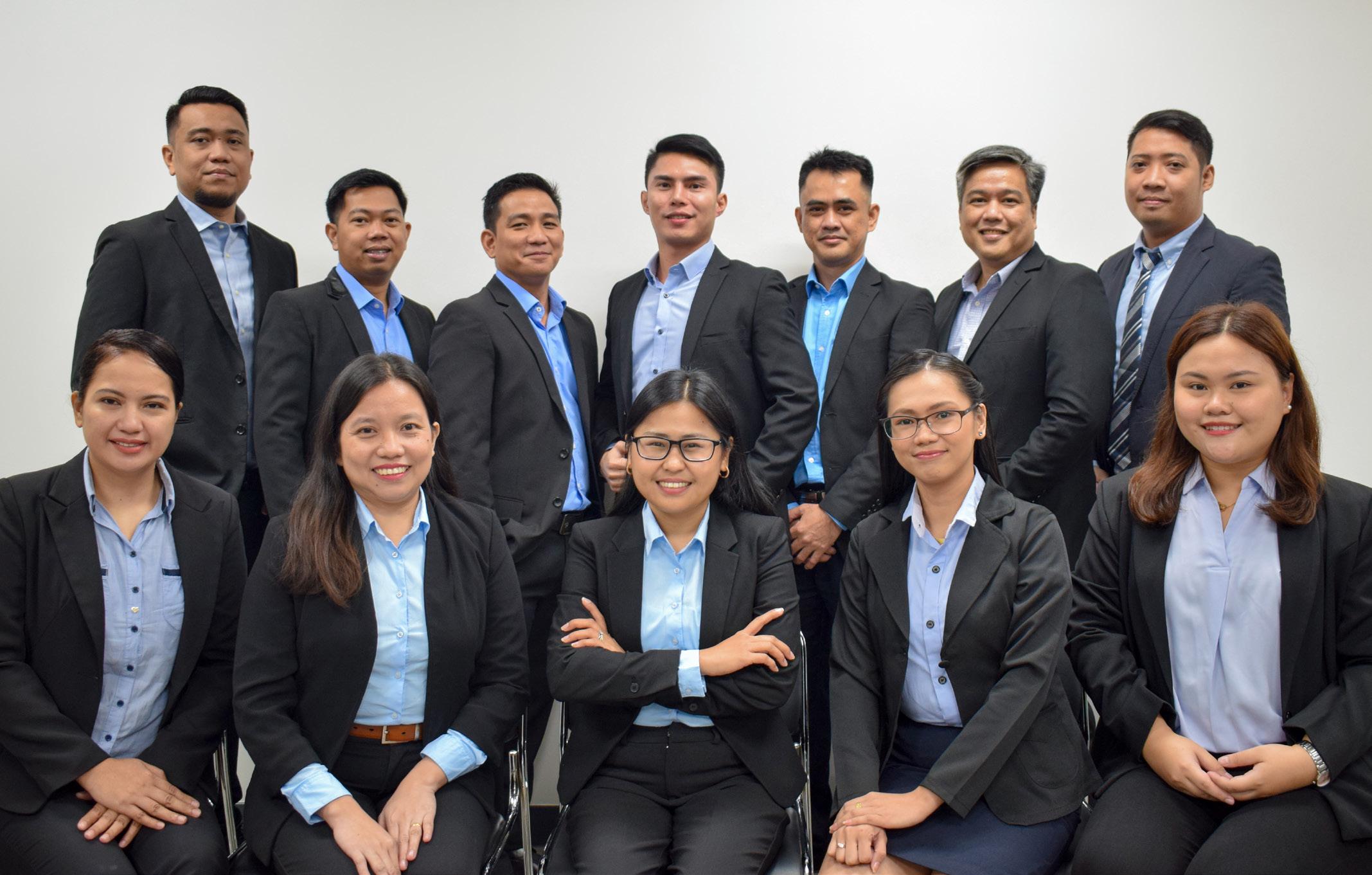
The customs support trial served as a microcosm of CBP’s capabilities, providing Kerry Logistics with a glimpse into the transformative potential across various functions. The decision to transition every function from their previous service provider to CBP was not taken lightly but was driven by the compelling evidence of CBP’s ability to deliver results that aligned with Kerry Logistics’ operational goals and service standards.
The impact of Kerry Logistics’ decision to transition every function to CBP was transformative, extending far beyond the initial challenge in their customs team. The extent of outsourcing shifted from handling menial, basic tasks to entrusting CBP with higherorder, complex operations. This evolution was a testament to the trust and confidence Kerry Logistics had developed in CBP’s ability to not only meet but exceed their expectations.

The benefits reaped by Kerry Logistics were multi-faceted. Operational efficiency soared as CBP demonstrated agility and adaptability in handling diverse tasks across multiple departments which besides customs now includes freight forwarding operations, domestic transport, customer service and business development support. The transition allowed Kerry Logistics to reallocate internal resources,


focusing on core competencies while entrusting CBP with the intricate aspects of business processing. The collaboration empowered Kerry Logistics to innovate, optimise, and elevate their overall service offerings in a highly competitive global industry.
Conclusion:
A Symbiotic Partnership for Sustained Success
In conclusion, the collaboration between CBP and Kerry Logistics serves as a case study in the transformative power of strategic outsourcing. What began as a desperate trial to rectify a specific setback in the customs team evolved into a holistic transition that redefined Kerry Logistics’ outsourcing strategy. CBP’s commitment to exceeding expectations and

delivering unparalleled results paved the way for a symbiotic partnership that continues to thrive. As Kerry Logistics continues to experience the enormous benefits of outsourcing with CBP, the story serves as inspiration for businesses navigating the complexities of delivering the global solutions required for today’s market, yesterday. The journey from disappointment to triumph is a testament to the resilience of strategic partnerships and the transformative impact they can have on the trajectory of an organisation.
M: +61 407280155
sales@compliantbusinessprocessing.com
www.compliantbusinessprocessing.com


As the supply chain industry makes an economic impact, we speak to Vajira Piyasena, CEO of Fiji Port Corporation Pte Limited, about its expansion plans, environmental initiatives, and efficient operationsWriter: Rachel Carr | Project Manager: Ryan Gray

As an Oceanic tropical island nation in the South Pacific, Fiji relies on its ‘blue economy’ income.
The import and export activities of its supply chain operations are centred around four major ports: Port of Suva, Port of Lautoka on Fiji’s largest island of Viti Levu, Port of Malau situated on its second largest island of Vanua Levu, and Port of Levuka in the former capital.
Ports are vital links in the supply chain, facilitating the transit of goods between local and international markets. Indeed, they play a pivotal role in these operations, serving as a crucial link that sustains Fijian trade, tourism, and sea transportation.
PORT OF SUVA –
As a testament to FPCL’s dedication to delivering unparalleled service, the Port of Suva was acknowledged as Oceania’s Best Cruise Terminal for three consecutive years, showcasing its commitment to offering a world-class experience to cruise operators and passengers alike.
FPCL was honoured to receive the prestigious IAPH Akiyama Award for the second consecutive year, recognising its outstanding efforts in driving green port initiatives and promoting sustainability.
The Fiji Business Excellence Awards (FBEA) is a Fijian recognition programme that celebrates and promotes excellence in business practices across various sectors of the country’s economy. This year, FPCL received the President’s Award, the most prestigious accolade at the event, and it was also the recipient of the Green Sustainability Award.
FPCL has received the Organisational Award for its health and safety as well as its learning and development. The company was the gold winner in both categories.

“Our commitment extends across various domains, including infrastructure modernisation, digital transformation, and a steadfast focus on environmental sustainability in every facet of our port operations,” opens Vajira Piyasena, CEO of Fiji Port Corporation Pte Limited (FPCL).
The company has proven resilient, reliable, and forward-thinking in its approach to trade facilitation and Fiji’s economic growth. Furthermore, Piyasena finds the ports industry an exciting space to work in, particularly when addressing new challenges.
“Ports have changed from typical holding centres to providers of entire logistical networks in an era of globalisation. Since ports facilitate trade and maintain supply lines, they act as accelerators for economic development,” he continues.
After successfully adapting to the post-COVID-19 pandemic landscape, FPCL found innovative solutions to evolving situations to ensure the smooth functioning of port operations.
Unanticipated changes and trends in the shipping, ports, and logistics sectors have presented numerous challenges, such as the COVID-19 pandemic, which impaired industries globally; however, many ports worldwide continued with trade and supply chains.
“Despite global supply chain disruptions, we remained focused on facilitating trade with 100 percent of our ports in operation, and our commitment to service excellence remained unwavering,” Piyasena says proudly.






For over 60 years Basic Industries Pte Limited (BIL) has stamped a mark on Fiji’s Infrastructure Development and Construction Sectors as a leading organization of advancement being one of the country’s largest vertically integrated businesses embodying operational excellence.
Our Companies’ specialization lies in the supply of premium quality products whether it be our structural readymix concrete, engineered pre-cast concrete pipes & products, masonry blocks & decorative pavers or our diverse range of quarry aggregates and sand.
Quality is not a mere notion; it’s ingrained in our ethos. Our team fully comprehends that the resilience of Fiji’s infrastructure hinges on the materials employed in its construction and our commitment to delivering top-notch products remains unyielding. Central to our operations are our customers. BIL prides itself not just on delivering products but on presenting engineered solutions with a customer-centric approach.

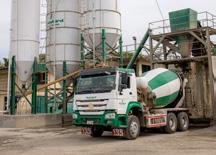

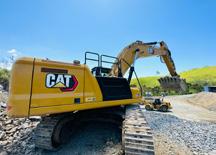
As custodians of Fiji’s evolving physical landscape, BIL takes sustainability seriously. From sustainable quarrying practice to eco-conscious best practice production processes, BIL is committed to leaving a positive imprint on Fiji’s environment.
Basic Industries Pte Limited transcends being a mere construction entity; we are dream builders, architects of progress, and partners in Fiji’s narrative of growth. As we look to the future, we are eager to persist as a cornerstone of Fiji’s infrastructure evolution, shaping a future that is both robust and beautiful.

“OUR PORT OPERATIONS PRIORITISE REDUCING ECOLOGICAL IMPACT AND ADVANCING TOWARDS ENERGY EFFICIENCY”
– VAJIRA PIYASENA, CEO, FIJI PORT CORPORATION PTE LIMITED
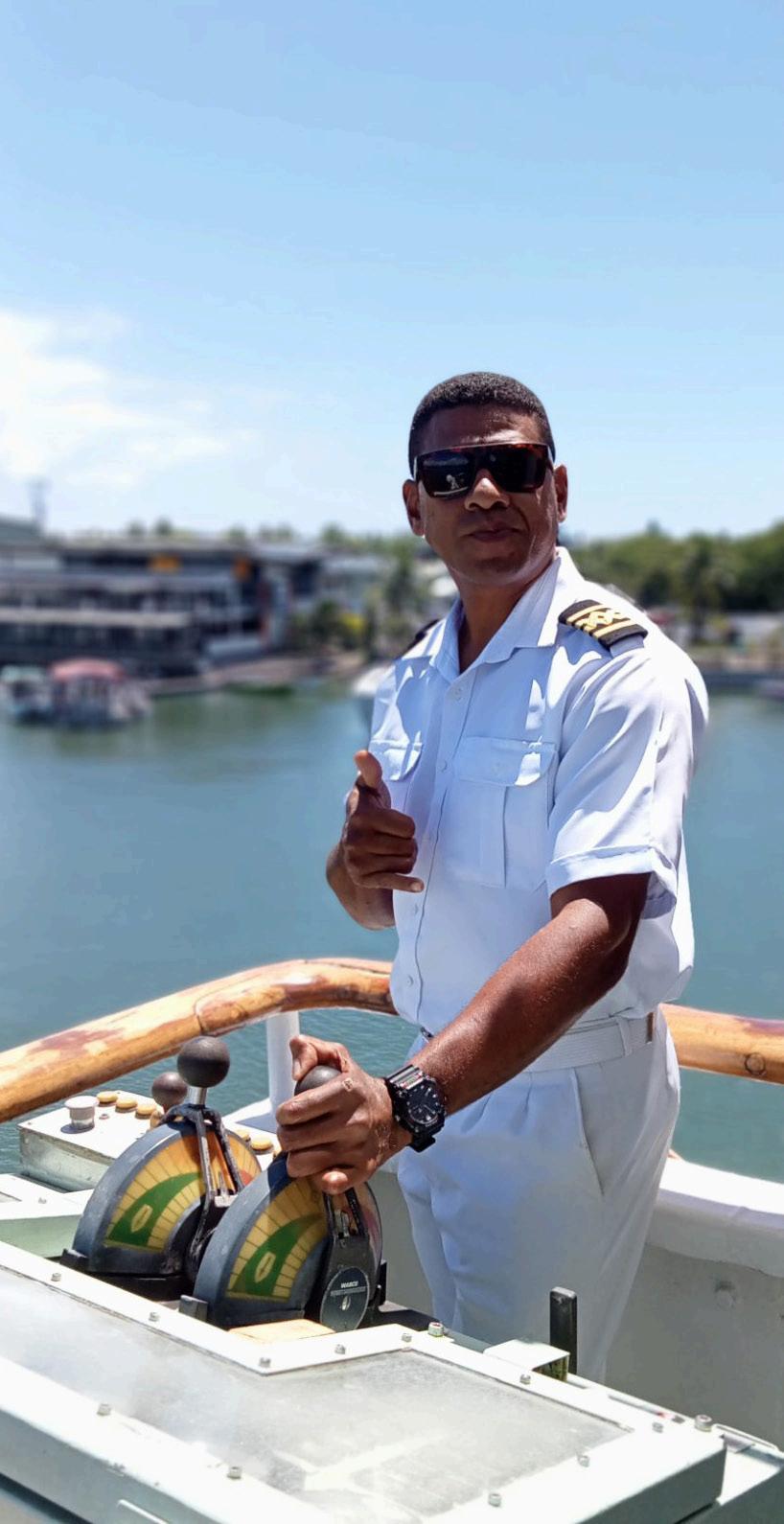
FPCL’s tenacious approach was crucial under such challenging circumstances, but that is not the only aspect differentiating it from the competition, as it is the only port management company in Fiji.
Moreover, the company sees itself as the leader of the South Pacific region. This was made feasible by divesting shares and entering into a public-private partnership with the Fiji government and a private overseas enterprise.
Apart from being Fiji’s only port management company, FPCL is also renowned for establishing trends around the Pacific.
“Among our firsts is being the first port to introduce and implement a Vessel Traffic Management System (VTMS). In addition, we were the first port in the Pacific to perform a Level 1 energy audit,” reveals Piyasena.
“While we have worked hard to keep abreast of developments in global ports, we have undertaken some very unique projects, including the installation of solar-powered panels in one of our facilities, making it carbon neutral, the purchase of modern and environmentally friendly pilot boats, and the installation of an electric incinerator.”
Furthermore, FPCL has adopted a sustainability procurement guideline which allows it to assess vendors who wish to undertake projects. This includes using eco-friendly construction materials, implementing erosion control measures, and minimising environmental impact.
“By integrating sustainable approaches, the project contributes to environmental conservation, protecting the marine ecosystem, and ensuring the long-term sustainability of the surrounding environment,” Piyasena informs.
Fiji’s strategic location in the centre of the Pacific Ocean has earned it the nickname “hub of the Pacific”, and


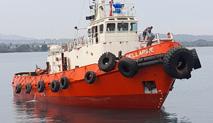
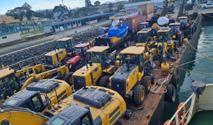


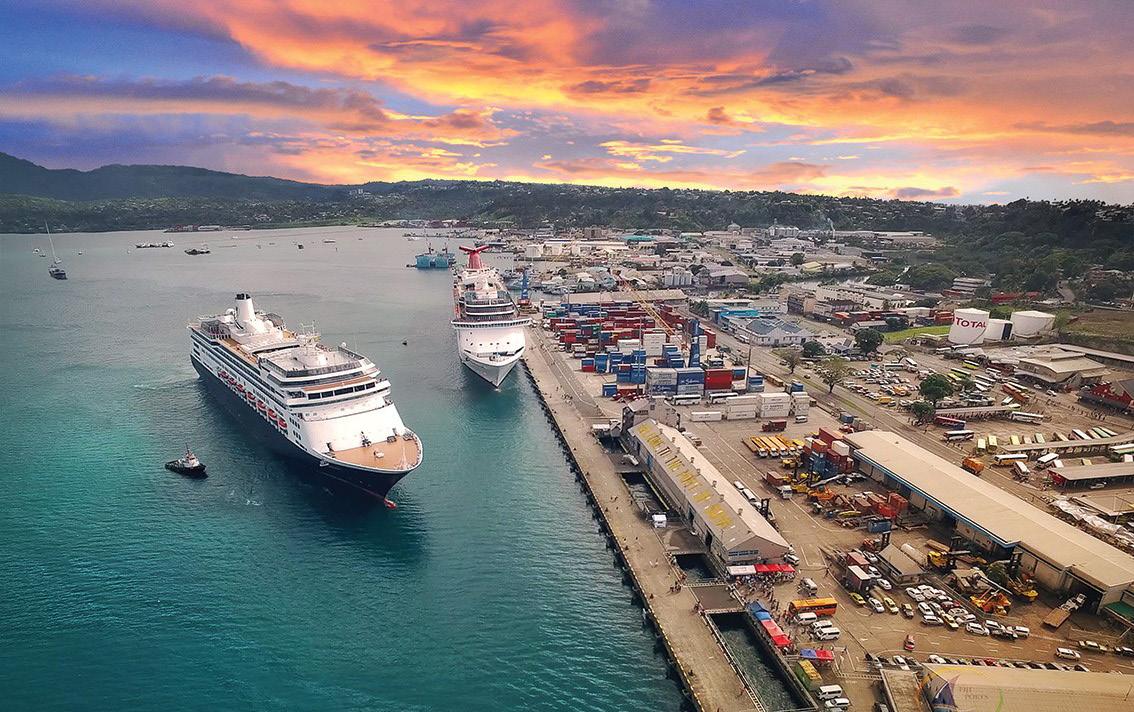
• Green and sustainable practices: Implemented green purchasing guidelines and incorporated the NSW green port development guide into major projects.
• Energy and efficiency: Completed LED lighting specifications, upgraded energy efficiency at Muaiwalu House, and instituted scheduled air conditioner servicing.
• Training and development: Conducted eco-driver training and completed data collection and reporting on greenhouse gas (GHG) emissions.
• Water management: Undertook water line tracing to identify leaks and completed fuel and water usage tracking upgrades.
• Successful implementation of VTMS: Improving the safety and efficiency of navigation and safeguarding the marine environment at Suva Harbour, with plans to extend to the Port of Lautoka. VTMS will help FPCL
FPCL facilitates corporate operations by being a convenient transhipment hub in the region.
“We are the only port management company in Fiji, and our location has been greatly beneficial to our customers as the Port of Suva handles 70 percent of cargo, and the Port of Lautoka takes care of the remaining 30 percent,” Piyasena notes.
Due to its sparsely distributed islands, Fiji relies on inter-island shipping as its primary method of transport, connecting the outer islands to the main ports, towns, and cities; this is where FPCL comes in, providing efficient port facilities for the domestic routes.
“With the Fijian economy highly dependent on international trade, our supply chains are extremely important to us, as is being able to provide safe and well-charted shipping routes and reliable access from Fiji to the world, and vice versa.
“Transport connectivity in Fiji is critical, and our responsibility is to provide essential services, improve
monitor the movements within the harbour remotely, as well as provide real-time data to assist in minimising errors and tracking to eliminate revenue leakage.
• Port of Lautoka Container Yard 3: In 2021, FPCL initiated a significant milestone with its construction. Despite challenges, the project was completed in 2022, and not only reflects the company’s resilience and determination but its commitment to enhancing its infrastructure and capacity.
• Renewable energy and lighting: Solar PV installations on terminal rooftops and LED upgrades.
• Resource management: Water metering upgrades at Muaiwalu 1 targeted for 2025.
• Wharf and associated facilities upgrade: Aims to facilitate efficient operations, accommodate larger volumes of cargo, and support ongoing trade activities in the region.

trade and tourism, and access domestic and international markets,” emphasises Piyasena.
The FPCL management’s vision is to develop Lautoka Foreshore with strategic goals that promote progress and significantly boost Fiji’s economy.
“While we understand that the Port of Lautoka will continue to be busy and will remain a critical node in the supply chain systems for nearby
islands, the existing facilities need rehabilitation works, which is now a top priority for the company,” he acknowledges.
This will see the expansion of the wharf area and the possibility of setting up a slipway in the port area. The Lautoka Port Container Yard 3 project has been completed with environmental benefits and operational efficiency in mind,
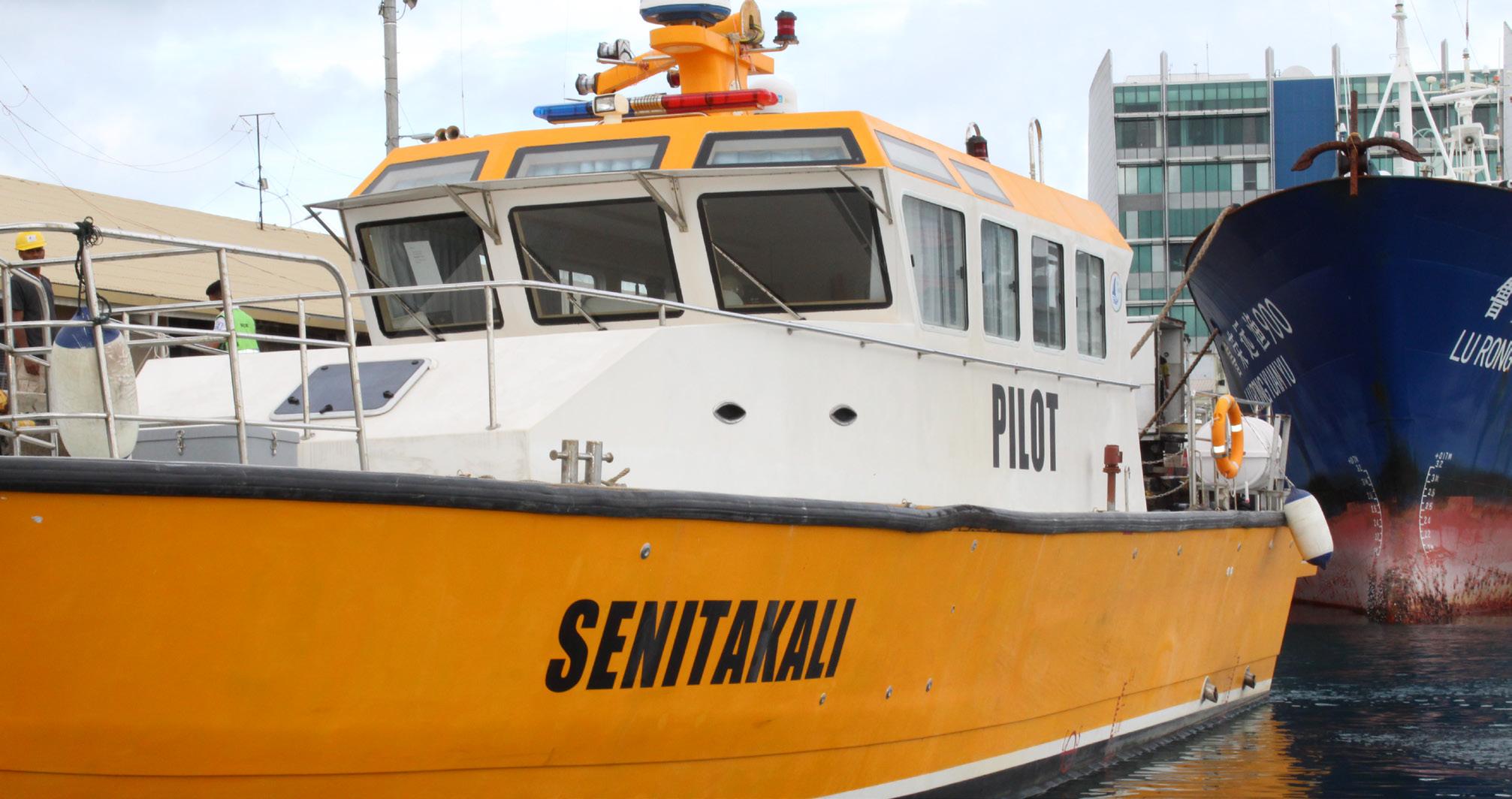
requiring a total investment of FJD$8.2 million.
At the same time, the Lautoka Port Container Yard 4 project is in progress. The planned construction features sustainable practices incorporated in the design; by integrating a sustainable approach, the project contributes to environmental conservation and protects the marine ecosystem.
FPCL has prioritised infrastructure development to boost Fiji’s supply chain operational efficiency. In 2022, the company completed more than 10 key projects, emphasising upgrading the infrastructure at the Suva, Lautoka, and Levuka Ports.
The upgrades have enabled FPCL to accommodate larger vessels, optimise cargo handling capabilities, and provide improved facilities supporting trade and commerce growth in the Pacific region.
“Prioritising sustainability and environmental stewardship are crucial
to FPCL as we work to fulfil our obligations as responsible corporate citizens. Our port operations prioritise reducing ecological impact and advancing towards energy efficiency.
“We continually look for innovative ways to lower emissions, preserve resources, and safeguard the environment by introducing and implementing green port initiatives and projects. We aim to mitigate the effects of climate change,” explains Piyasena.
Digitalisation and the advancement of smart port initiatives are also priorities for FPCL, with goals to improve productivity, streamline processes, and give clients a flawless experience by utilising cutting-edge technology and creative systems.
“As we are trailblazers in the marine industry in the Pacific region, we regard this digital journey as a chance to modernise our operations,” he enthuses.
One of the key priority areas for FPCL is to set up an organisational resilience roadmap, which allows
unexpected disruptions to be anticipated. This will enable the company to absorb and adapt accordingly by responding favourably to the unpredictability of the future.
FPCL complies with Organisational Resilience Management (ISO 22316:2017), ensuring that it continues to deliver the vision, mission, goals, and strategic objectives that it has set out to achieve.
Additionally, FPCL has used the Pacific Ports Vision 2013 – 2050 framework as a benchmark for its sustainability efforts.
“In this regard, we have been able to implement and complete sustainable projects which align with our vision of being the smart, green gateway for trade in the Pacific region,” Piyasena finishes.


Oceania Aviation has been providing industry-leading ground handling and aviation services since 1996. We discover Australia’s trusted provider for many leading domestic and international airlines, serving over 60,000 flights each year
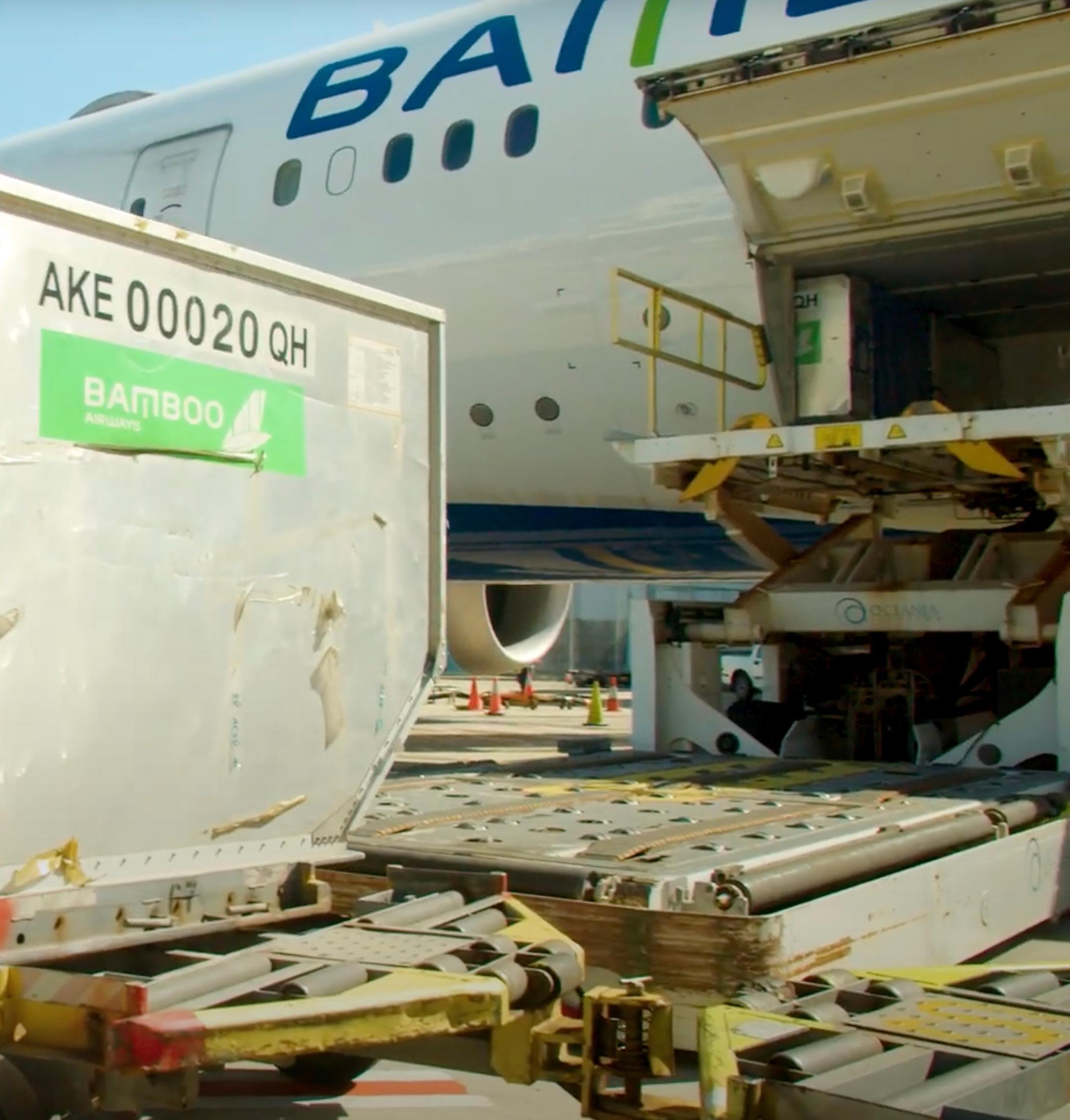
As Australia’s leading ground handling services provider, Oceania Aviation is at the forefront of providing safe, innovative, and efficient aviation services for a multitude of wellknown airlines.
Combining specialist equipment, a dedicated team, and a wealth of
industry experience, Oceania Aviation delivers unparalleled service at every level.
Australian-owned, the company first commenced operations in June 1996 and has since grown exponentially.
Its rapid growth can be attributed to the dedication, drive, and
commitment of more than 650 stalwart employees, who span 24 locations across Australia and Asia Pacific.
Oceania Aviation takes extreme care to ensure each member of its team is highly trained, to provide a safe and efficient service with unmatched reliability.
The company’s state-of-the-art aviation technology is unmatched by competitors, whilst its systematic approach to ground handling delivers exceptional, quality service, every time.
Oceania Aviation takes great care to implement efficiency and innovation within each service it offers, across a broad range of domestic and international airlines.
From check-in and cabin presentation services to ground and freight handling, Oceania Aviation’s team of highly-skilled professionals are dedicated to ensuring safety and success in everything they do.
The company is not only a supplier but works closely with its clients to understand their individual requirements, utilising technology and business improvement practices to continuously provide better service.
Oceania Aviation additionally handles VIP charter services across its 22 airport locations, catering for government dignitaries, celebrities, and monarchs from all over the world.
Priding itself on delivering a bespoke experience in a safe and discrete way to ensure the privacy of guests travelling on charter flights, the company’s full-service charter management includes ground transport services, VIP passenger processing through international departures, and any other special requirements.
In the dynamic world of aviation, strategic partnerships can widen a company’s outreach and bolster its reputation, allowing it to soar to new heights.
In early November this year, Oceania Aviation announced its recent collaboration with Batik Air at Adelaide Airport, a partnership that
CHECK-IN CREW - Oceania Aviation’s check–in crew comprises highly trained professionals who ensure all processes are followed meticulously to deliver an exceptional customer experience. From processing customers via the airline check-in system, to delays and disruption management, the company’s check-in crew provides reliable, top-quality service.
AIRSIDE GROUND CREW - The company’s airside ground crew undergoes rigorous training that focuses on following standard operating procedures and a well-established turn model. Thorough training ensures that Oceania Aviation maintains a safe and compliant operation for airline customers and their clients.
AIRCRAFT CABIN PRESENTATION CREW - The aircraft cabin presentation crew is meticulous and experienced in a wide variety of cabin cleans. These include last-minute spot cleans for spills, efficient turnaround cleans, and full end-of-day termination deep cleans to fully prepare the aircraft for passengers the following day. The crew has high standards, which enables Oceania Aviation to meet or exceed aircraft cleaning requirements.
HANDLING FREIGHT - Oceana Aviation’s freight handling crews boast experience with both narrow and wide body freighters. Capable of containerised and palletised loading, main deck, below wing, and bulk loading, crews work throughout the night to ensure punctual freight distribution around the company’s national and international network.
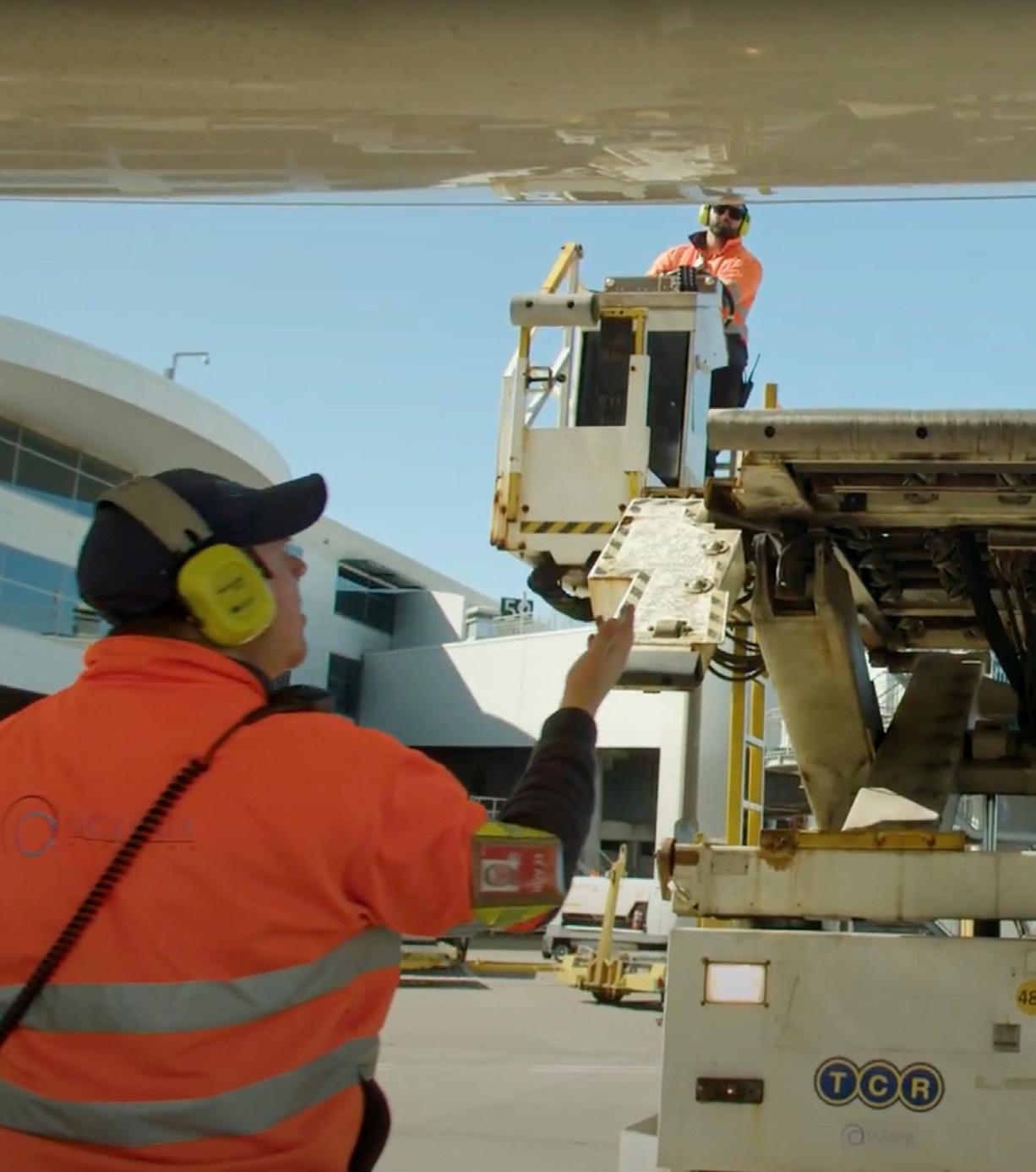

Airside Equipment Specialist is leading the way in airside ground equipment and maintenance, operating from Tasmania, Australia, and servicing clients world-wide. Always innovative and progressive, with a team dedicated to ongoing research and adapting to industry standards.
Airside Equipment Specialist’s products are Australian made, tested, and distinctly durable, using only materials of the highest grade. Specialising in industry specific and custom-built new equipment, used equipment, supporting products (signage and safety add ons), and airside maintenance and repairs, client satisfaction is guaranteed.
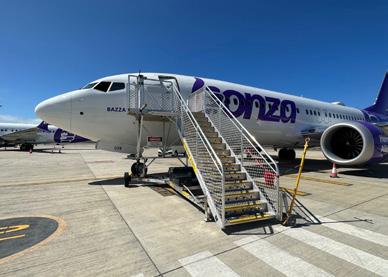
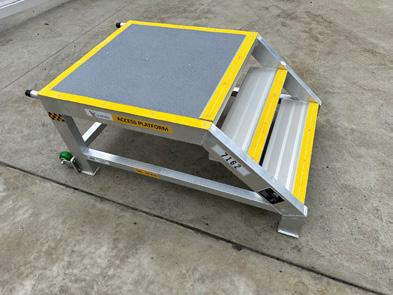
Major clients include:
• Airside Logistics
• Aus Flight Handling
• Australian Airport Services
• Jetstar
• Menzies Aviation
• Oceania Aviation
• Precision Aviation
• Qantas
• Skytraders
• Swissport
• TCR Group
• Virgin Australia


Accustomed to working with a wide range of clients, no client or job is too big or too small. Contact the company’sfriendly team today, for all your airside ground equipment and servicing needs.
Airside Equipment Specialist Pty Ltd
Phone: + 61 417 626 231
Email: admin@airsideequipment.com.au
Website: www.airsideequipment.com.au
A testament to the outstanding reputation of this locally owned and operated company.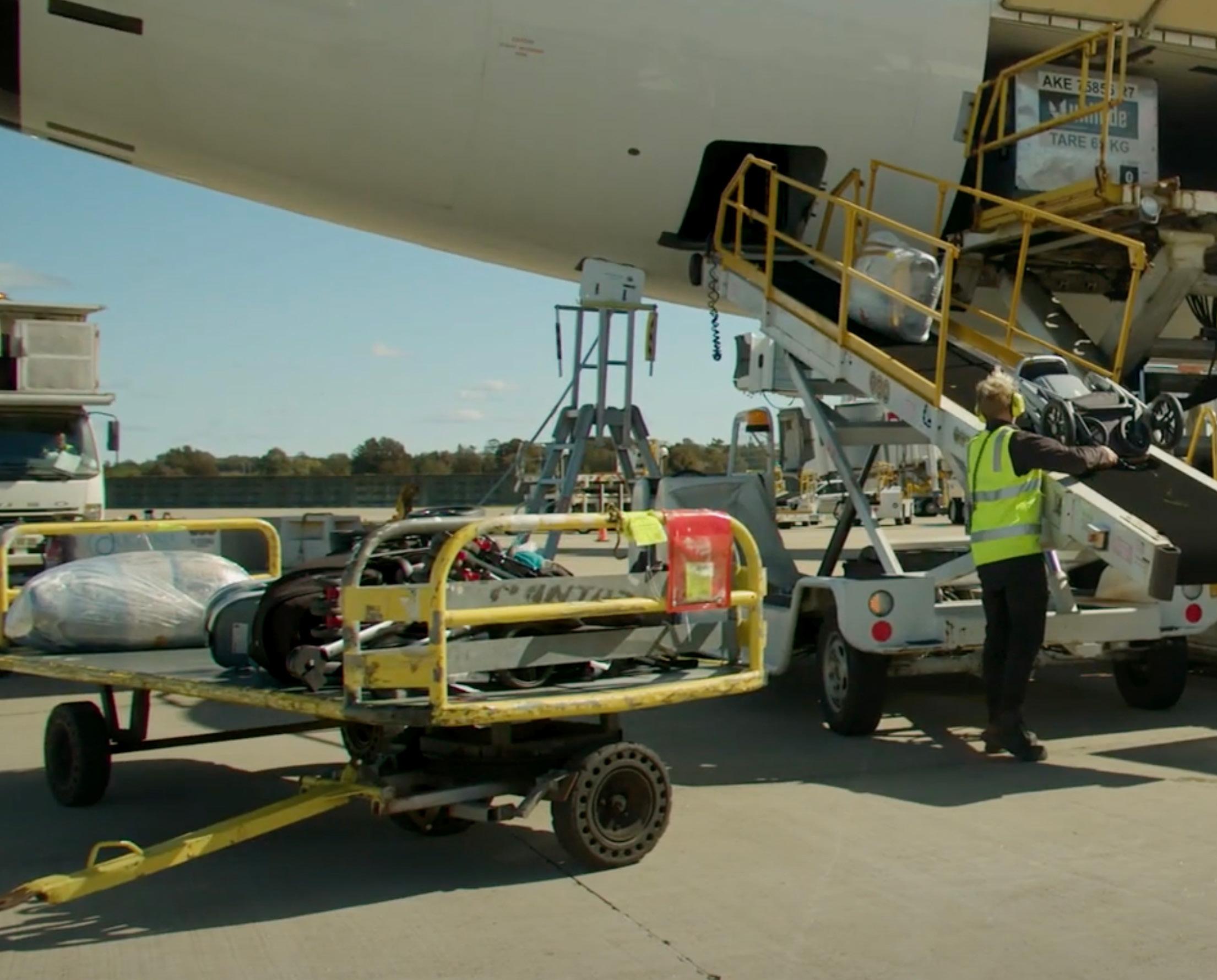
promises a wave of innovation and excellence.
Batik Air is part of Lion Group and the re-branded Malindo airline. Renowned for its commitment to safety, quality, and customer satisfaction, the organisation has quickly become a prominent player in the aviation industry.
With a fleet of modern aircraft and a team of highly trained professionals, this airline has earned a reputation for excellence in passenger and cargo services.
Oceania Aviation was thrilled to announce the partnership with Batik Air in its inaugural flight on 10th November 2023 from Adelaide Airport. The flight departed and landed as scheduled without a
hitch, marking the beginning of a remarkable relationship.
The partnership between the two companies will undoubtedly benefit customers and stakeholders, since both companies are committed to reducing carbon emissions and adopting sustainable practices.
Oceania Aviation and Batik Air’s relationship is built on a solid foundation of shared values, including a commitment to safety, sustainability, and continuous improvement.
Since the inception of the aviation industry, diesel-driven equipment has been at the forefront of servicing aircraft and airports around the world.
Oceania Aviation seeks to change this, through its revolutionary new trials for sustainable aviation support services.
The company’s dedication to greener energy supplies has come to the fore in recent months, exemplified by its commitment to prioritising electric over diesel power for its ground services equipment (GSE).
The International Air Transport Association (IATA) has invested a great deal of time into producing a road map for the industry to take steps to achieve net zero by 2050.
Oceania Aviation is proud to be part of the environmental revolution and securing green solutions for its vast GSE fleet

Oceania Aviation understands that growth is the cornerstone of success, and investing in employee development epitomises this commitment. The company offers a comprehensive training programme that empowers staff, backed by external courses, career development initiatives, incentives for recruitment and retention, and a dynamic blend of online and face-to-face training.
EXTERNAL COURSES FOR SKILLS ENHANCEMENT – Collaboration with external partners enables Oceania Aviation to provide certifications such as the Certificate III in Aviation, enriching skill sets and opening doors to new opportunities.
HIGH-CALIBRE TRAINING FOR UNPARALLELED GROWTH – Whether it’s through convenient online content or immersive face-to-face sessions, Oceania Aviation believes in providing a diverse learning approach to cater to a range of learning styles.
CULTIVATING LEADERS WITHIN – The company actively supports the growth trajectory of employees, providing avenues for upskilling, cross-functional learning, and mentorship.
INCENTIVES TO NURTURE GROWTH – Oceania Aviation rewards exceptional performance and dedication by offering a pathway for progression, setting its team members up for long-term success.
KNOWLEDGE REFRESH AND REINFORCEMENT – The company regularly refreshes knowledge and reinforces learning to keep employees at the forefront of industry advancements.
BALANCING PRACTICAL AND THEORY - This training approach offers a blend of theoretical concepts and practical assessments.
across Australia and Asia Pacific. The company is heavily involved with the development, analysis, and comparison of new electric GSE, which includes electric baggage tugs and electric belt loaders.
Oceania Aviation remains in discussion with key stakeholders, customers, airport authorities, regulators, and other government departments to ensure all parties are concurrent with new requirements on infrastructure, regulations, safety, and operations.
As it continues to grow, the company’s investment in environmentally-friendly equipment reflects its genuine commitment to a greener future.
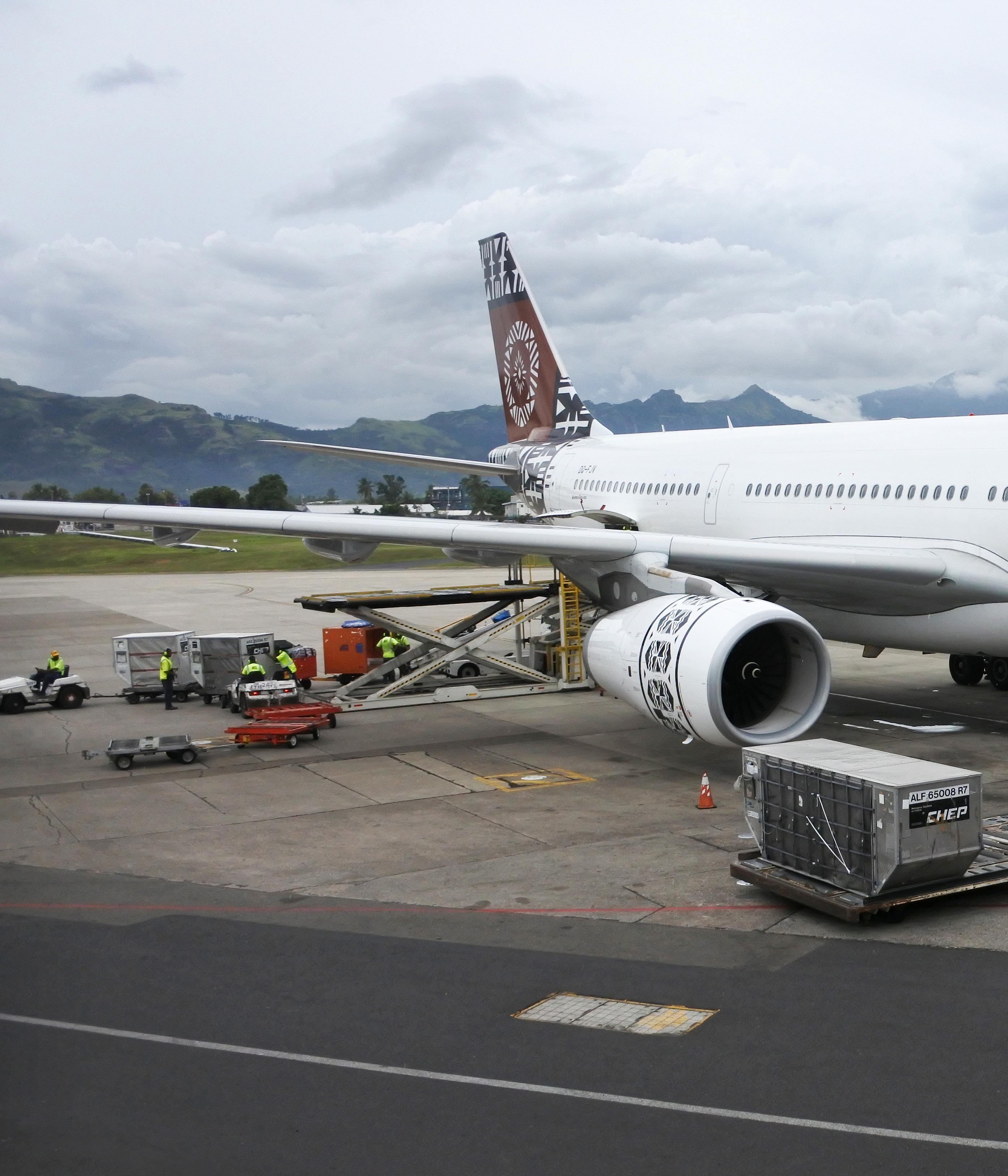
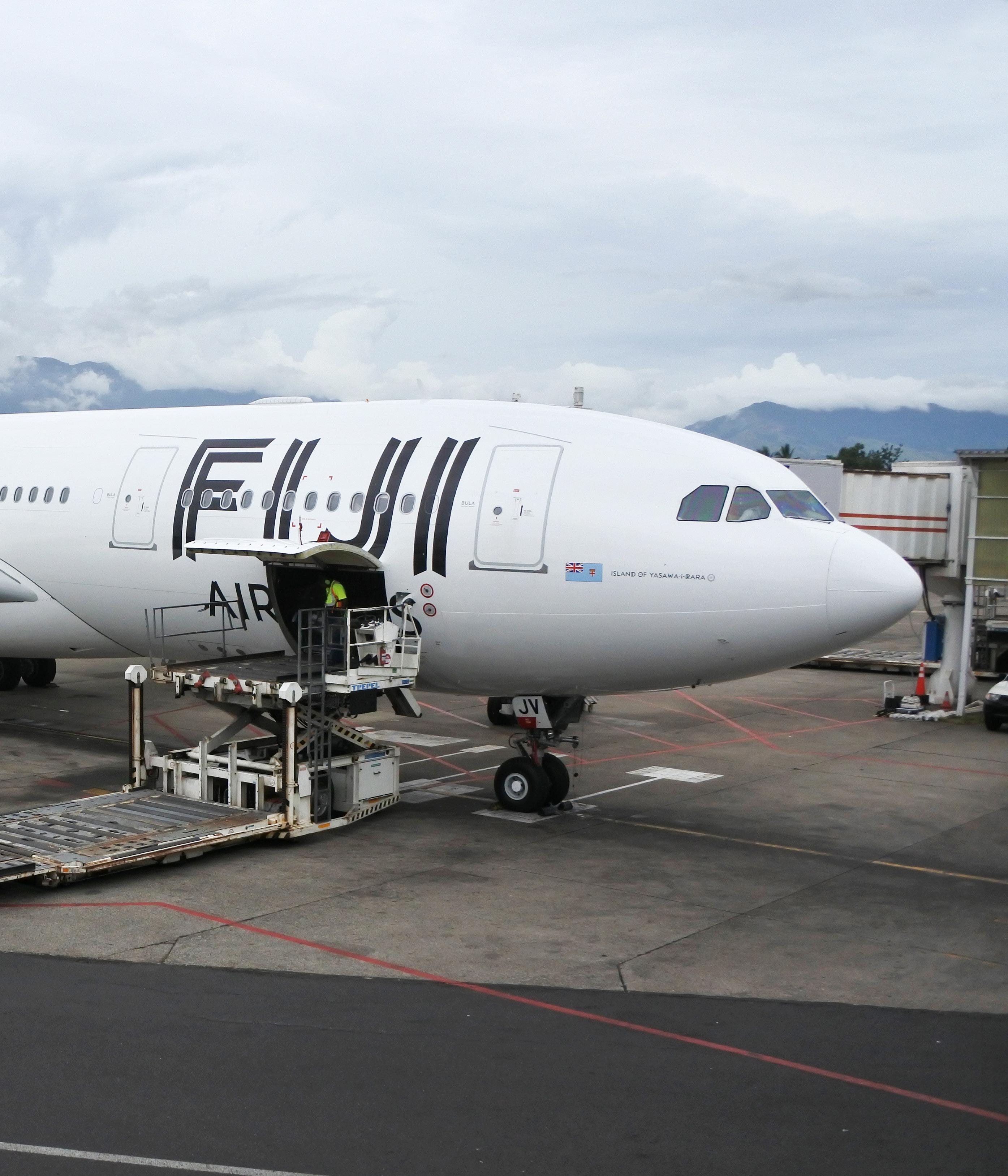
Owner of the world-renowned Nadi International Airport, Fiji Airports has been experiencing continuous growth, thanks to the proactive modernisation of its 15 airports and the welcoming of a new CEO, Mesake Nawari
Writer: Lucy Pilgrim | Project Manager: Ryan Gray
In correlation with the wider global landscape at the time, the Fijian aviation industry suffered detrimental effects at the hands of the COVID-19 pandemic, causing a stagnation in international travel and trade.
However, the nation’s industry has reached a turning point in recent years, with the re-opening of the global trade market, and the reclamation of Fiji’s status as a top tourist destination.
“The aviation industry is at an exciting juncture with the resurgence of air traffic post-COVID-19,” opens Mesake Nawari, the newly-appointed CEO of Fiji Airports (FA), who has been taking full advantage of the industry-wide uptake in business.
• 127,000 jobs supported by the air transport sector
• USD$2.2 billion gross valueadded contribution to GDP
• 43 percent of Fiji’s GDP is supported by air transport and foreign investments
• Creates 7,000 total employment opportunities
• Estimated to support a further 5,000 jobs through the wages paid to employees
• Generates USD$4.8 billion in foreign direct investment (FDI)
• Produces USD$1 billion in exports
• Generates USD$1.2 billion in foreign tourist expenditure
• Tourist expenditure estimated to support an additional 127,000 jobs
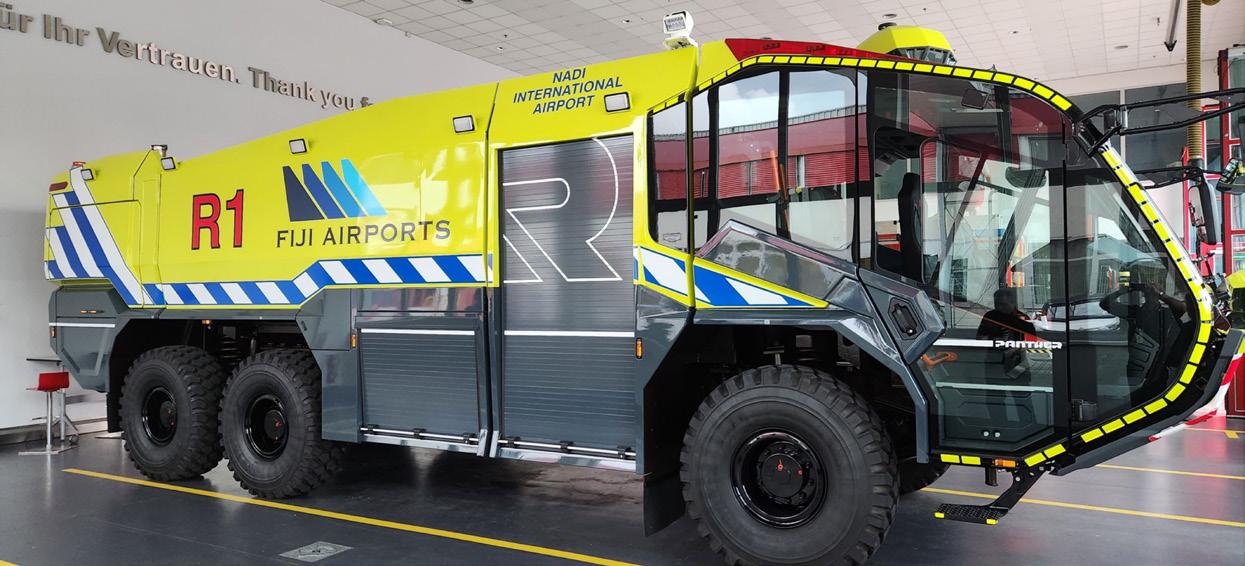

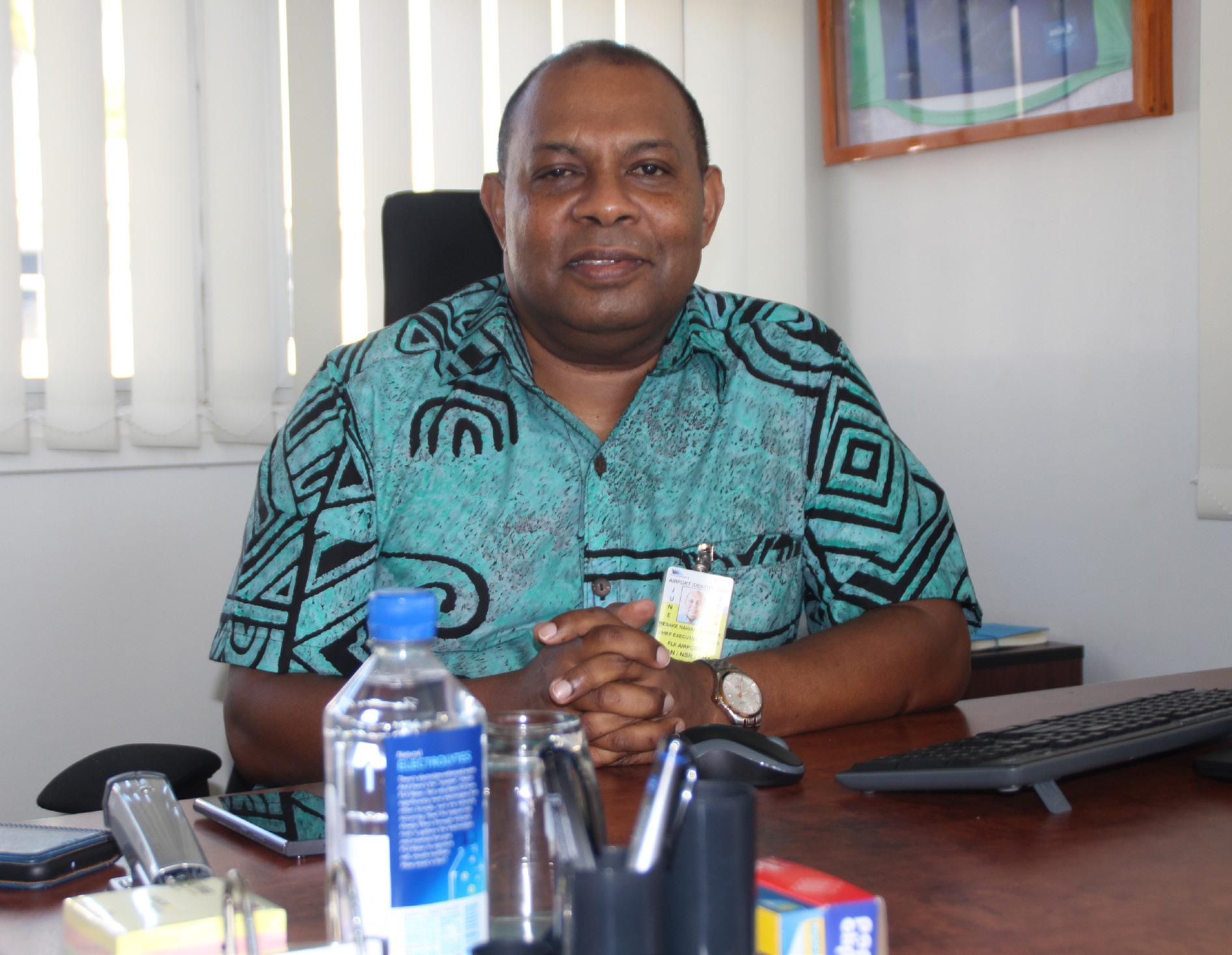
“THE AVIATION INDUSTRY IS AT AN EXCITING JUNCTURE WITH THE RESURGENCE OF AIR TRAFFIC POST COVID-19”
– MESAKE NAWARI, CEO, FIJI AIRPORTS
As a fully owned, government commercial company, established in April 1999, FA has been diligently serving Fiji’s domestic and international airline for over 25 years, having transformed the country’s aviation industry and tourism and trade sectors as a result.
As a conscientious government body, the company has a responsibility to maintain Fiji’s airport system. This is achieved by
a comprehensive, in-house dual reporting system that reports to the Minister for Public Enterprises for FA’s commercial performance and the Minister of Civil Aviation on policies relating to the wider industry.
Comprising approximately 450 staff, the company operates 15 airports across the archipelago on behalf of the government, including both Nadi and Nausori International
Airports, alongside 13 other domestic sites.
FA provides holistic services to both the supply chain and tourism sectors, comprising operational, technical, commercial, and administrative departments.
Following recent industry trends in aviation, the company endeavours to retain its human capital with a high outflow of skilled workers to overseas markets.
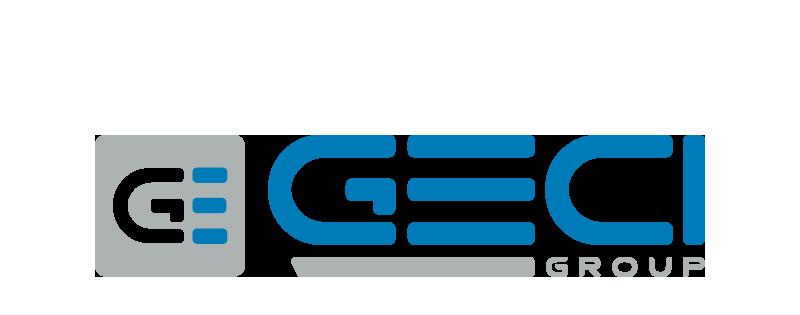
GECI Group (GECI) is a global provider of technology and engineering solutions, focused primarily on transportation, energy, and infrastructure for civil and military services.
In nearly 40 years, the company has expanded its global presence significantly across five continents, with 60 percent of its economic input generated from abroad.
Daniel Jiménez Randell, CEO of GECI, acknowledges that its international success lies in the quality of its services and products.
“Global shipping service providers, especially from developing countries, spurred our internalisation as they began to ask for assistance with our services,” he cites.
GECI is currently working in over 15 countries to provide flexible, custom-designed solutions and services in South America, Europe, Asia, Africa, and the Middle East.
One of GECI’s core activities is systems integration, offering a wide range of services in communications, navigation, surveillance, and air traffic management. The company carries out everything from new installations to complex technical upgrades and modernisations.
“In the world of aviation, we are present in aircraft maintenance, aircraft manufacturing, airport operator systems such as baggage control systems, flight information systems, and landing aids, as well as air navigation,” Randell highlights.
GECI also develops solutions as a prime contractor in project management, installation, and the construction of airports. It has extensive experience in the construction of control towers, technical blocks, communication, and auxiliary structures.
Furthermore, the company is able to deliver turnkey projects including civil, electrical, and mechanical works, such as project management, logistics, and installations.
GECI’s activity also encompasses solutions to manage risk and maximise performance based on its technical leadership expertise. Its services include technical assistance, coverage analysis, performance studies, equipment configuration, detailed preliminary design, installation drawing, site inspection visits, and operational training.
Its offering extends to the drafting of relevant maintenance recommendations, equipment audits, annual maintenance contracts, modernisation and upgrade services, spare parts supply, electrical and electronic repairs, and after-sales service.
Put simply, the company offers complete outsourcing for manufacturers, handling, purchasing, and stock management. Its customers focus on production so that GECI can take care of everything else.
In the industrial sector, GECI is a pioneer of valueadded services, which comprise the integral management of the supply chain, delegated quality systems, and fourth-party logistics (4PL) across many manufacturing chains such as aeronautics, mining, railway, automotive, and food, whilst overseeing stocks and warehouses.
In the aeronautical sector, GECI provides engineering, maintenance, and logistics services. The company offers tailor-made solutions for the operation and maintenance needs of aircraft, engines, and components, covering all types of projects developed jointly with operators and maintenance centres. These projects include, among others, engine repair programmes for complete fleets, component repair management, flight simulators, and training for technical personnel amongst more.
In summary, GECI is a worldwide, high technology, energy and manufacturing support company, which has been providing technical and commercial expertise to a wide range of customers in the aeronautical, telecommunications, infrastructure, and transportation industries for over 25 years.

“FA’s key focus is operating the airspace and airports in accordance with International Civil Aviation Organisation (ICAO) standards and recommended practices,” Nawari highlights.
Fiji’s collection of airports has meant that the country has been internationally regarded as a leader in the global aviation industry, as well as becoming a national icon for Fiji. Consequently, the company takes great pride in connecting the country’s tourists and nationals to each other, and the world.
In particular, Nadi International Airport welcomes 97 percent of
international travellers to Fiji, of which 80 percent are tourists, Moreover, the airport handles more than 2.1 million international passengers and close to 300,000 domestic passengers annually.
Regarding wider trade, the airport also oversees more than 1.3 million tonnes of freight, services 20 airlines, and connects the country to 15 cities across the globe.
The recent increase in air traffic over the last 18 months has highlighted FA’s need for modernisation, in order to meet the ever-increasing demand.
“Our airports are having to deal with capacity issues and aging infrastructure that is in need of replacement if we are to keep up with the influx of arriving and transit passengers,” Nawari tells us.
To rectify this issue, as well as meet forecasted growth in the coming decades, the company is currently focusing on the revamp of its existing sites through a mix of short-term and long-term strategies including investment in state-of-the-art infrastructure.
“FA has embarked on a capital expenditure plan that will look into upgrading the assets and infrastructure in all of its 15 airports,” he adds.

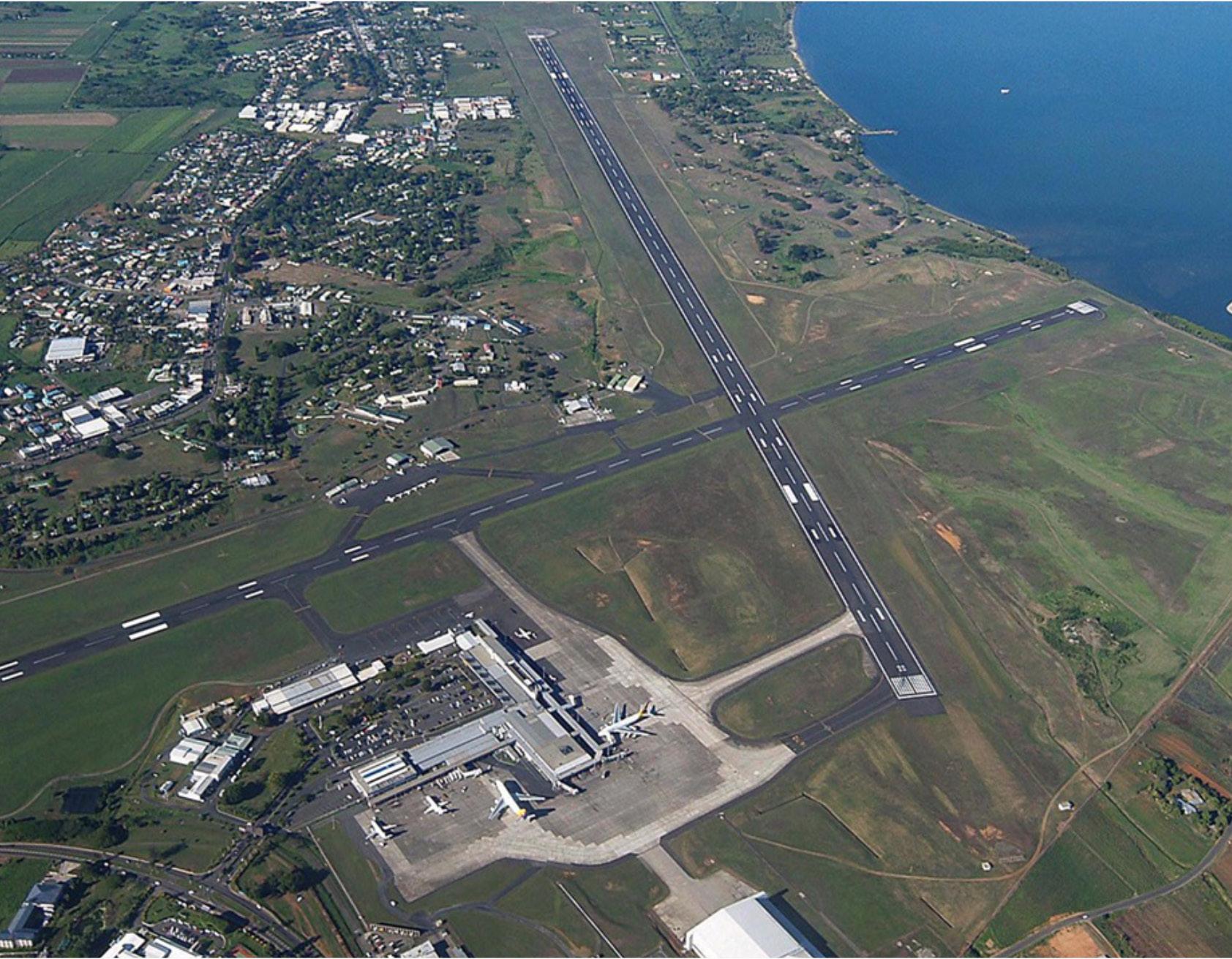
Across its sites, Nadi International Airport is one of the most up-to-date, following an investment of FJD$130 million between 2014 and 2018, which saw the first phase of its modernisation. In continuation, the company’s focus over the next decade is the further development of existing infrastructure to align with the company’s 2018 to 2043 master plan.
Elements of this plan include apron expansions, specifically of the offgate apron, the expansion of departures lounge space; baggage handling and arrivals facilities; four new aerobridges; and the relocation of the freight terminal and cargo complex to the north-west quadrant.
On top of this, there will be a new domestic terminal built next to the
International Terminal, as well as the development of a contemporary transit hotel and accompanying carpark. Meanwhile, a masterplan will be created for the development of the Fiji Airports Compound, located on the other side of the runway.
The Nausori International Airport runway recently underwent an upgrade in 2021, costing FJD$67 million. As a result of the revamp, the airport can now cater for full capacity B737 operations. Currently, Nausori International Airport operates three regional ATR72 flights a week to Funafeti, the capital city of neighbouring island, Tuvalu.
Future plans for Nausori International Airport include the construction of a new airport terminal,
expected to cost approximately FJD$33 million, with the Fiji government’s support.
Furthermore, the proposed upgrades to the Labasa Domestic Airport, one of the gateways to Fiji’s second-largest island, Vanua Levu, foresees improvements to the airfield’s aviation facilities, such as a runway pavement upgrade, remote tower and fire-fighting facilities, as well as terminal infrastructure that will meet the increased demand for domestic operations in the future.
This will be completed in partnership with the World Bank, the Ministry of Finance, and the Ministry of Tourism and Civil Aviation, who will fund the various infrastructure upgrades.

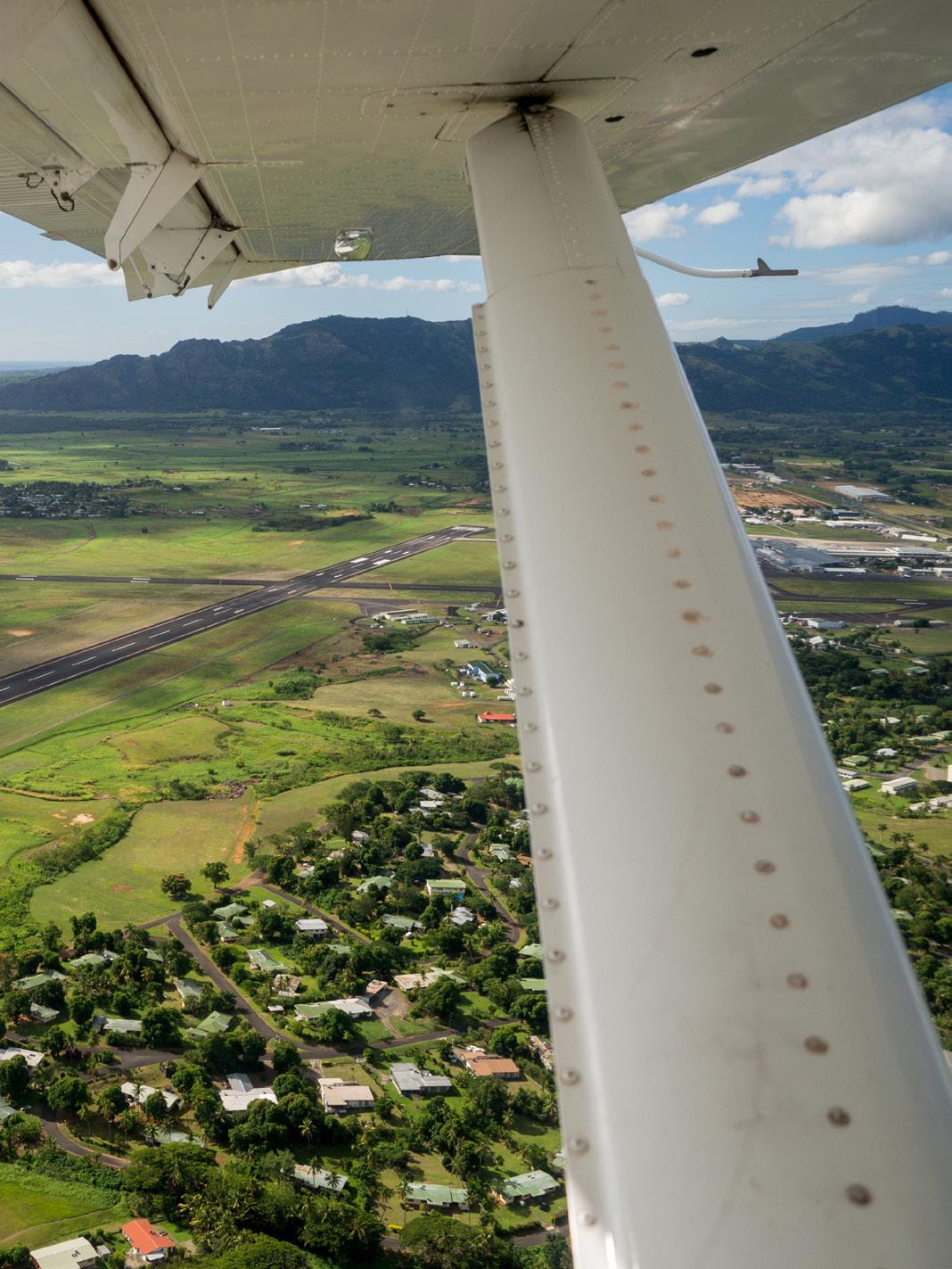
The World Bank is also funding the upgrade of Savusavu Airport, which will comprise a terminal design and rebuild, pavement civil design, pavement maintenance, bathroom refurbishment, and much more.
FA will continue to also fund the maintenance and modernisation of its 13 outer island airports, to ensure that they meet operational requirements. A further focus of the outer island sites is to ensure they are resilient to the impacts of climate change, including increased temperature and unpredictable weather conditions.
Both Labasa Domestic Airport and Savusavu Airport can be found on Fiji’s second largest island, Vanua Levu, which has become increasingly important to Fiji’s tourism sector, possessing scenic harbours and breathtaking views.
As the national aviation authority for Fiji, CAAF is responsible for creating and implementing the industry’s functions on behalf of the government of Fiji, according to the state’s responsibility to ICAO.
As part of its role, CAAF regulates, certifies, and licences airport operators, air traffic and air navigation service providers, aviation security service providers, pilots, aircraft engineers, air traffic controllers, technicians, airline contracting organisations, and international air cargo operators in Fiji and abroad, whilst conducting regular surveillance checks on the respective entities.
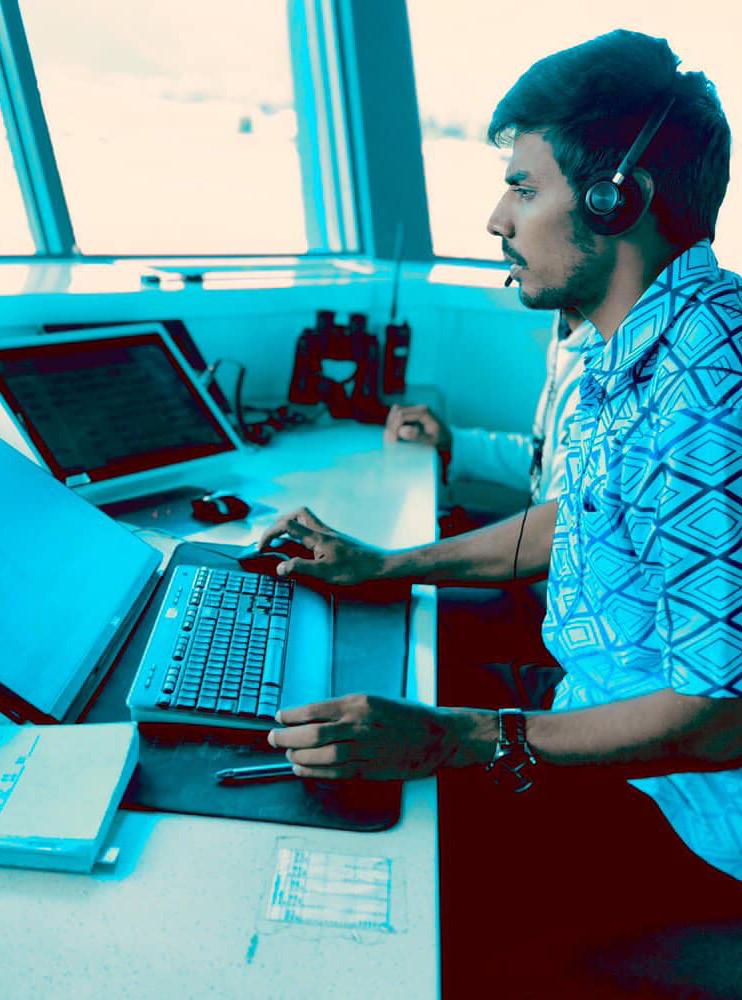
Indeed, this has also increased the amount of tourists visiting Fiji, subsequently resulting in the construction of world-class hotels and facilities. Elsewhere, Matei Airport is located on the island of Taveuni, a picturesque volcanic island situated in the northeast of the Fiji island group.
In turn, with such illustrious holiday destinations on offer, more tourism and international trade is brought to the archipelago, therefore bolstering the demand for highly developed airport facilities.
As a wider branch of FA, the company provides reliable air traffic management (ATM) services within the Nadi Flight Information Region (Nadi FIR), which includes the sovereign airspaces of Tuvalu, New Caledonia, Kiribati Vanuatu, and Wallis and Futuna, covering a total of six million square kilometres (sqkm).
Commissioned in April 2021, its Aurora ATM System is one of the recent ventures for FA, as it expands its supply chain repertoire. The new

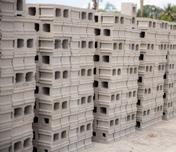


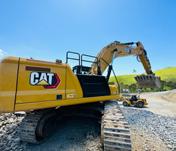

For over 60 years Basic Industries Pte Limited (BIL) has stamped a mark on Fiji’s Infrastructure Development and Construction Sectors as a leading organization of advancement being one of the country’s largest vertically integrated businesses embodying operational excellence.
Our Companies’ specialization lies in the supply of premium quality products whether it be our structural ready-mix concrete, engineered pre-cast concrete pipes & products, masonry blocks & decorative pavers or our diverse range of quarry aggregates and sand.
Quality is not a mere notion; it’s ingrained in our ethos. Our team fully comprehends that the resilience of Fiji’s infrastructure hinges on the materials employed in its construction and our commitment to delivering top-notch products remains unyielding. Central to our operations are our customers. BIL prides itself not just on delivering products but on presenting engineered solutions with a customer-centric approach.


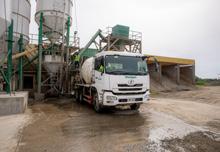

As custodians of Fiji’s evolving physical landscape, BIL takes sustainability seriously. From sustainable quarrying practice to eco-conscious best practice production processes, BIL is committed to leaving a positive imprint on Fiji’s environment.
Basic Industries Pte Limited transcends being a mere construction entity; we are dream builders, architects of progress, and partners in Fiji’s narrative of growth. As we look to the future, we are eager to persist as a cornerstone of Fiji’s infrastructure evolution, shaping a future that is both robust and beautiful.

Aurora ATM System consolidates an Oceanic, approach, and tower control capabilities, further supported by an automatic dependent surveillancebroadcast (ADS-B).
The system also showcases a brandnew air traffic control (ATC) simulator which ensures that the company’s staff base remain up to date with the latest training methodologies.
The Aurora ATM system integrates industry-leading procedural airspace management with the appropriate functionalities that are effectively used to manage air traffic in an ADS-B surveillance environment.
The system upgrade further modernises the ATM system by providing air traffic controllers with the latest state-of-the-art technology. As a result, they have access to electronic flight strips, advanced flight and surveillance data processing, and above-adequate training capabilities.
By utilising the system, optimal fuel efficiency is guaranteed in the procedural environment, further facilitating reduced separation minima that quantifies top airspace efficiency.
In October 2022, FA introduced surveillance control using ADS-B technology in the Fiji domestic airspace, becoming the first country in the world to transition from procedural control to surveillance control without the use of radar.
On top of this, the company’s recent innovations extend to the implementation of ICAO’s global reporting format (GRF) for both Nadi International Airport and Nausori International Airport in November 2021. This involved carefully detailed trials with FA’s partners, as well as precise documentation, equipment, and training required for staff to guarantee competency and regulatory compliance.
The upcoming projects in the ATM arm of the company include upgrades to the high-frequency radios, the Automatic Message Handling
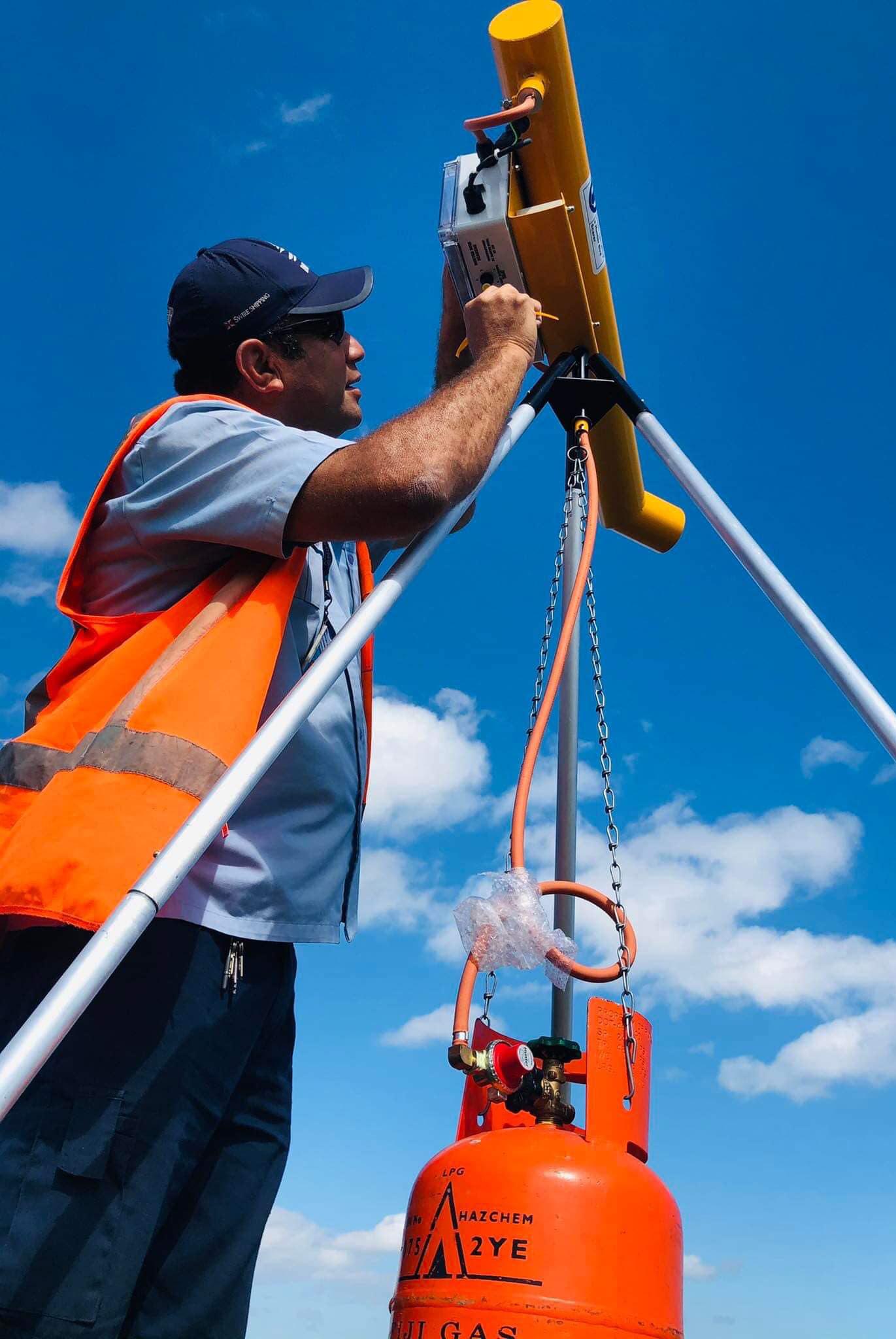
“FIJI AIRPORTS HAS EMBARKED ON A CAPITAL EXPENDITURE PLAN THAT WILL LOOK INTO UPGRADING THE ASSETS AND INFRASTRUCTURE IN ALL OF ITS 15 AIRPORTS”
– MESAKE NAWARI, CEO, FIJI AIRPORTS

System (AMHS), the transition from aeronautical information services (AIS) to aeronautical information management (AIM), along with the introduction of remote tower technology and system-wide information management (SWIM).
FA is also seeking to break societal barriers within its ATM team regarding gender representation, with a 40 percent female workforce operating in a typically male-dominant work environment.
This positions the company at the forefront of the airspace management sector, in terms of the capability to manage mixed airspaces, ease of useability, and the overall capability to improve the efficiency of ATM.
These measures are crucial for maintaining the safety and security of passengers, staff, and aircraft.
• Access control
• Screening procedures
• Baggage screening
• Explosive detection
• Behavioural protection
• Security personnel
• K-9 units
• Surveillance systems
• Emergency response plans
• Perimeter security
• Aircraft security
• Training and collaboration

As FA continues on its burgeoning trajectory of growth, its senior leadership is going through a period of renewal, spearheaded by Nawari, who commenced the role in August this year.
Nawari holds an instinctive passion for the progression of the local area, having grown up in Nadi and attended the town’s local district school, subsequently studying at the Nadi Sangam (SKM) College, before pursuing higher studies
in accounting and economics at the University of the South Pacific, Laucala Campus (USP). His education was then typified at the University of Sydney, Australia, studying finance, banking, and corporate governance. Such a breadth of knowledge and experience is evidenced by the fact that at the age of 25, in 1996, Nawari was the youngest CEO in Fiji’s corporate sector, becoming a pioneer in a multitude of companies and having a magnanimous impact across many business fields.


Tappoo has tremendous presence at both Nadi and Nausori International Airports.
The Departure Duty Free Store at Nadi International Airport is the flagship of the Group’s airport operations and ranks amongst the finest duty free shopping facilities in the region.
Our Duty Free stores carry leading brands of liquor and confectionery, fragrances and cosmetics, consumer electronics, watches and travel accessories.


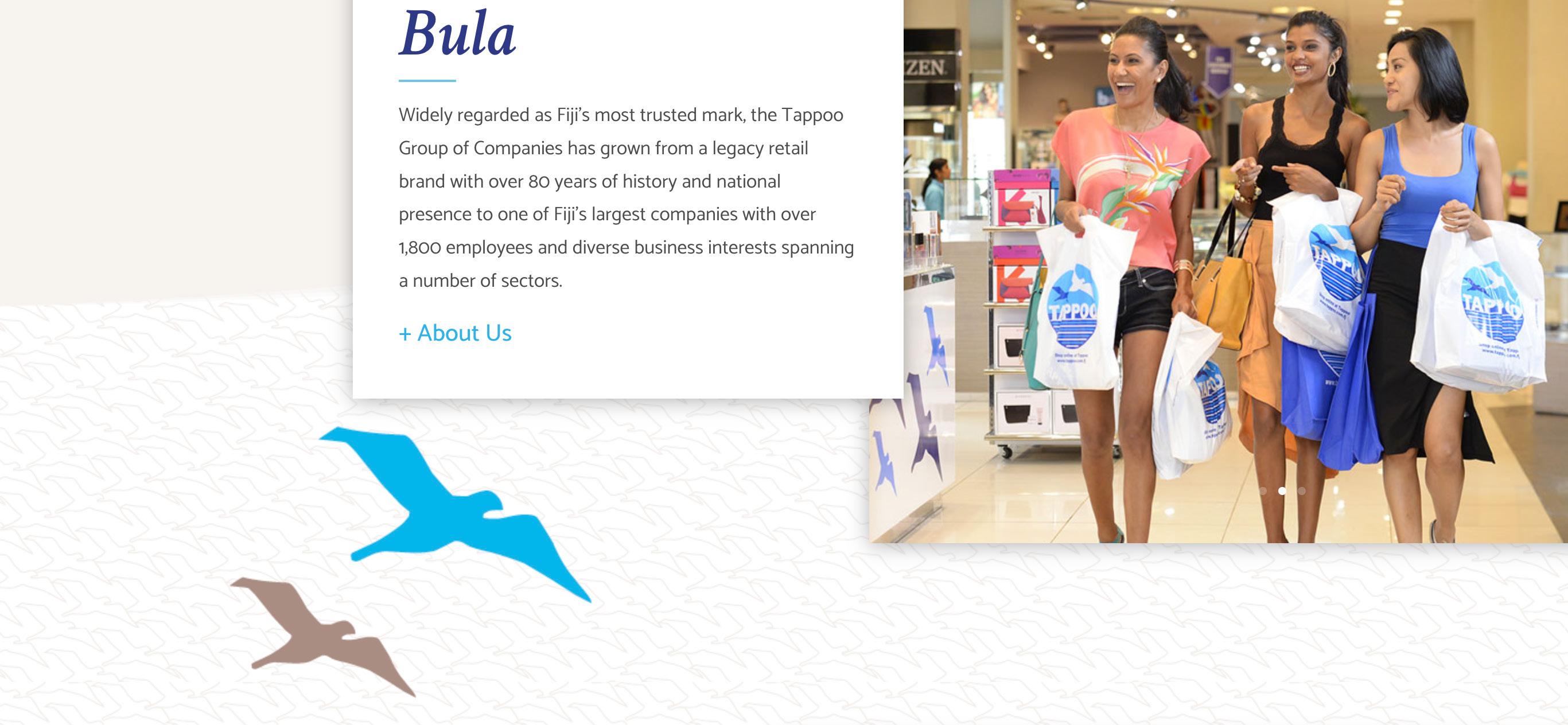
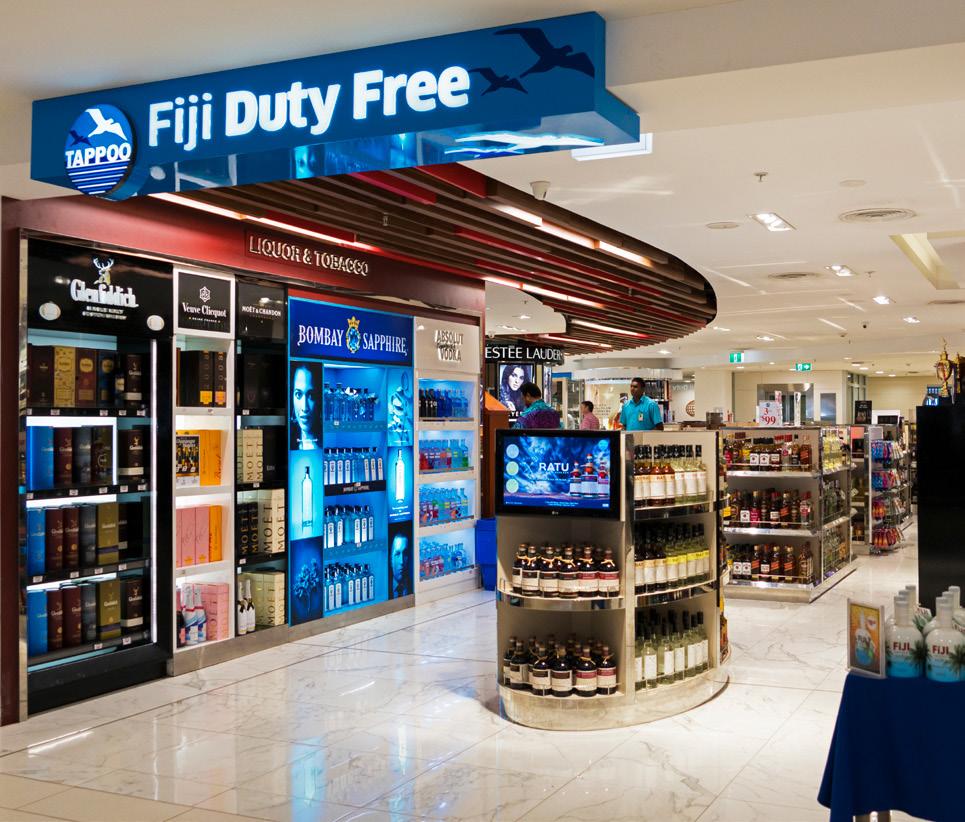

Throughout his expansive career, Nawari has served as a Board Director and Trustee for a diverse variety of corporate bodies and financial institutions across the Asia Pacific region, including Fiji, Papua New Guinea (PNG), and China, amongst others.
Nawari strives to take FA forward as a transformational and strategic leader, who has had previous experience in establishing, rejuvenating, and leading a number of highly successful entities throughout Fiji.
Such businesses include Fiji Television Group Limited, Fijian Holdings Unit Trust, Unit Trust of Fiji, and South Pacific Stock Exchange.
With such a varied portfolio, the new CEO has a variety of expertise, with the capabilities to be a corporate, finance, and investment advisor, as well as a coach, trainer, and mentor in the areas of strategic finance, corporate governance, financial institutions development, investments, portfolio management, risk management, performance management, organisational
re-engineering, and executive management development.
Regarding his previous roles, Nawari was the first CEO of the South Pacific Stick Exchange and the first General Manager of Fijian Holdings Unit Trust, two roles he is incredibly proud of.
Subsequently, Nawari was also the first CEO of Fiji TV Group, the holding organisation of Fiji TV, as well as Sky Pacific and EMTV in PNG. In these positions, he dramatically altered the South Pacific’s media landscape, implementing strategies that are still in place today.
The Australian Infrastructure Financing Facility for the Pacific (AIFFP) is building on Australia’s legacy as an enduring infrastructure development partner in the region. With significant investment, unparalleled capability, and extensive on-theground engagement, Australia remains a trusted partner of Pacific nations.
The AIFFP partners with Pacific and Timor-Leste governments, as well as the private sector, to design high-impact maritime, airports, energy, telecommunications, and transport and other urban infrastructure projects.
To find out more or to apply for financing, visit www.aiffp.gov.au

To add to the trailblazing achievements, Nawari has also been involved in the education of the next generation of business leaders, enjoying the role of the first Deputy Head of the Graduate School of Business at the University of South Pacific (USP), and later becoming the first Corporate Specialist at the Pacific Islands Forum Secretariat.
Alongside current involvement as the acting Chairman of the Unit Trust (Management) Limited, Nawari greatly anticipates his new role as CEO, as he drives FA into the next phase of its evolution.
Nadi International Airport first opened its doors following the completion of the original air strips, which were built between August 1939 and March 1940. Subsequently, the airstrip construction was transferred from New Zealand to Fiji in November 1941.
The airport’s first 2,100 metre (m) runway was completed in January 1942, with two additional runways completed in April of that year.
The runways of Nadi International Airport were briefly utilised by US Army Air Forces and the US Navy during the Pacific War in the early 1940s. However, following the end of the war in 1945, control of the airport was given to New Zealand in December 1946.
A turning point occurred, however, when the Fijian government achieved independence in 1970 and began participating in the control of the airport, eventually gaining full control in 1979.
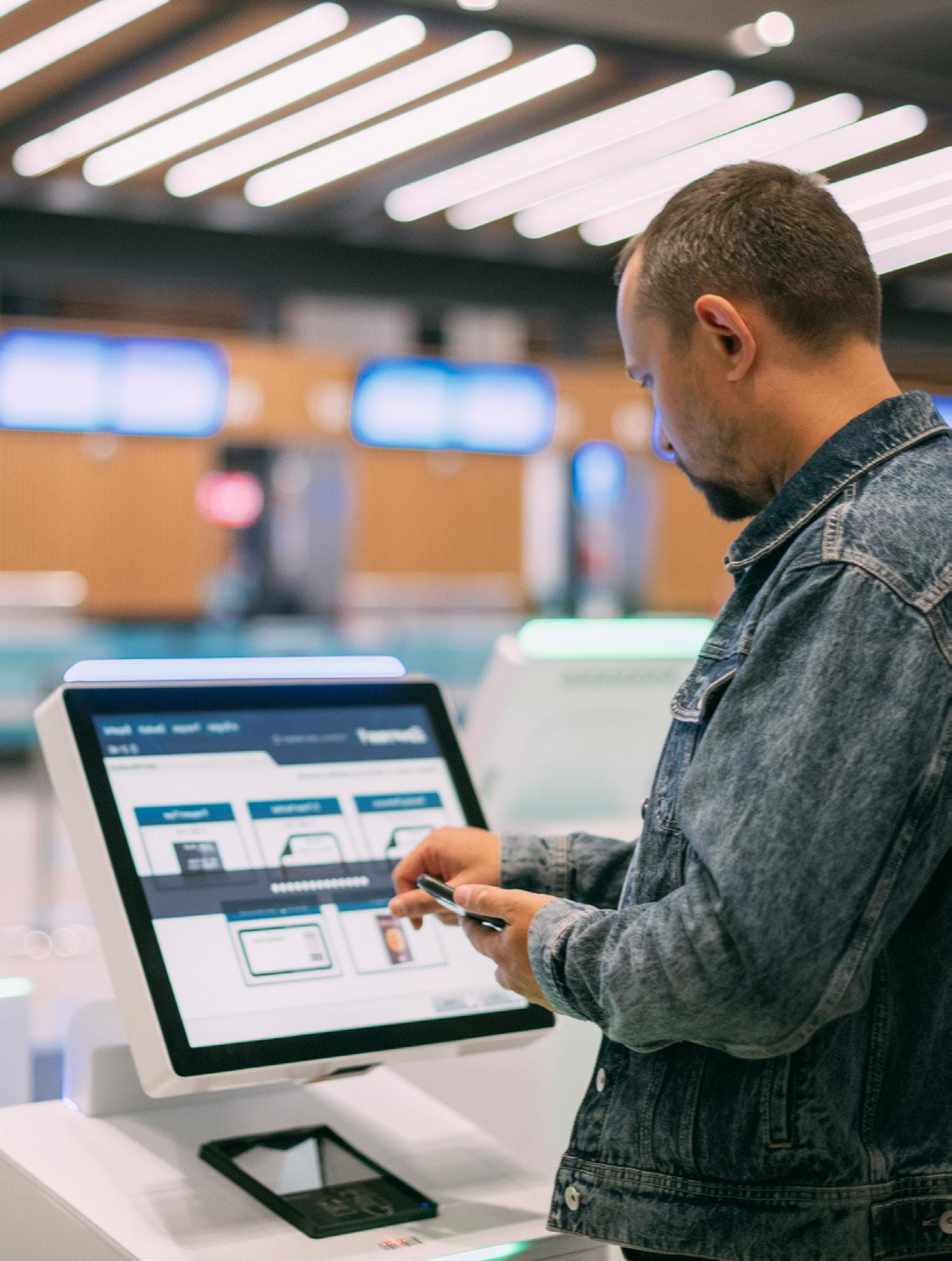
FA cares deeply about its passengers’ experiences at its airports; thus, it works closely with its stakeholders to ensure that each facility runs smooth and all its operations are streamlined, to uphold the company’s reputation for excellent service experience.
For the FA team, there is never a ‘business-as-usual day’, as they use world-class technology and processes to guarantee a seamless journey for their travellers.
The role of employees includes
ensuring a top-notch, personalised experience for each passenger, facilitated by exceptional check-in experiences, efficient baggage handling, enhanced communication, detailed staff training, quick issue resolution, site-wide accessibility, safety and security, feedback collection, and sufficient technology integration.
Evidently, the tireless pursuit of quality is the very essence of FA’s ‘Bula’ spirit in serving its customers. Such spirit is further endorsed

by the luxury shopping experience provided at Nadi International Airport, which offers a world-class shopping and dining experience for international visitors.
Prouds and Tappoo are two major duty-free retailers available at the airport, showcasing designer products and prestigious brands, which meet every passenger’s indulgences.
As the international aviation industry shifts towards a sustainable future, FA puts environmentally-friendly operations at the forefront of its focus, particularly as its industry is one of the greatest contributors of greenhouse gas (GHG) emissions.
Thus, in an interconnected industry such as aviation, the company is proactively exploring collaboration and innovation to try and mitigate its detrimental impacts. To this end, FA aligns with the global industry’s goals to reduce carbon emissions and attain low-carbon status, transitioning to a fully-functioning, net zero airport.
Nadi International Airport, in particular, is ahead of the eco-friendly curve by earning Level 3 Optimisation accreditation, awarded due to the airport’s outstanding work in reducing its GHG emissions and engaging the
• Management of world-class airport facilities on behalf of the government, ensuring its safe and efficient operation.
• Handling of air navigation services in the Nadi FIR.
• Provision of commercial activities through the development of FA’s assets.

airport’s stakeholders to also work towards a reduction.
Furthermore, the airport was highlighted amongst other airports in the Asia Pacific for its exceptional sustainable approach. Other awarded sites included Abu Dhabi International Airport and Dubai International Airport (UAE), Hamad International Airport (Qatar), Adelaide Airport (Australia), Hong Kong International Airport (Hong Kong), Incheon Airport (South Korea), and Narita
International Airport (Japan).
To continue its renowned success, FA is in the initial process of constructing a solar farm at Nadi International Airport. This will have the impressive capability of fostering a 3.5 megawatt (MW) solar power system. In the second phase of the project, this capacity will be progressively increased to 8.5MW. Following this, solar power farms are also projected for Nausori International Airport and some of the outer island sites.


Building on the global success of our regional titles – North America Outlook, Africa Outlook, APAC Outlook, and EME Outlook – Outlook Publishing is proud to introduce a platform dedicated to the supply chain sector.
As supply chain organizations worldwide confront unprecedented change, embracing technological innovations and incorporating critical environmental sustainability agendas, now more than ever is the time to showcase the strides being taken in this dynamic sector.
A multi-channel brand, Supply Chain Outlook brings you the positive developments driven by organizations across the global supply chain industry through its various platforms. Discover exclusive content distributed through its website, online magazine, social media channels, and dispatches delivered straight to your inbox with a bi-weekly newsletter.
Through this compelling new venture, we foreground the movers and shakers of the industry. To participate as a featured company and join us in this exciting endeavor, contact one of our Project Managers today.
www.supplychain-outlook.com
In conjuction with the implementation of solar power, the company is also looking to upgrade its halogen airfield lights to LEDs, whilst also introducing a comprehensive waste recycling system across all of its forecasted projects and operations.
As a government company, FA is also finalising the Fiji State Action Plan in partnership with the Ministry of Civil Aviation and Fiji Airways. This further demonstrates the organisation’s commitment to lowering the aviation industry’s carbon emissions in accordance with its obligations to ICAO.
Alongside its customer service and environmental initiatives, FA is also recognised for its diligent safety and security standards.
These measures have been implemented to ensure the welfare of everyone within an airport’s premises and are in accordance with ICAO standards.
Its airport safety and security protocols are purposefully designed to protect passengers, staff, and aircraft from potential dangers, including terror threats, criminal activity, and accidents.
Meanwhile, the company has also made major investments in its Aviation Rescue Fire Fighting Service (ARFFS), materialising in
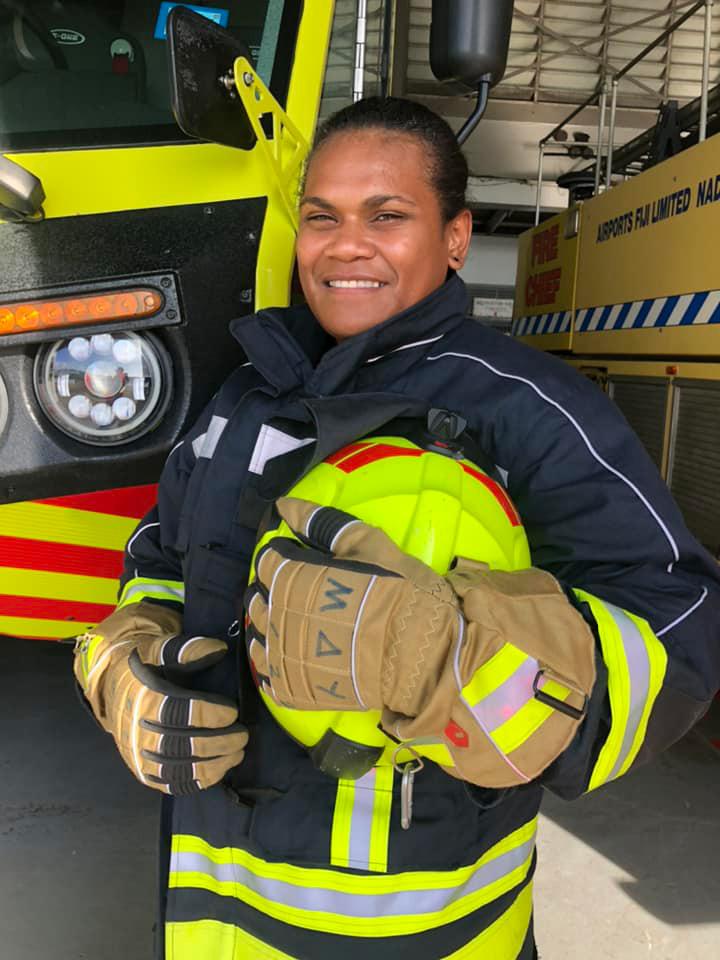
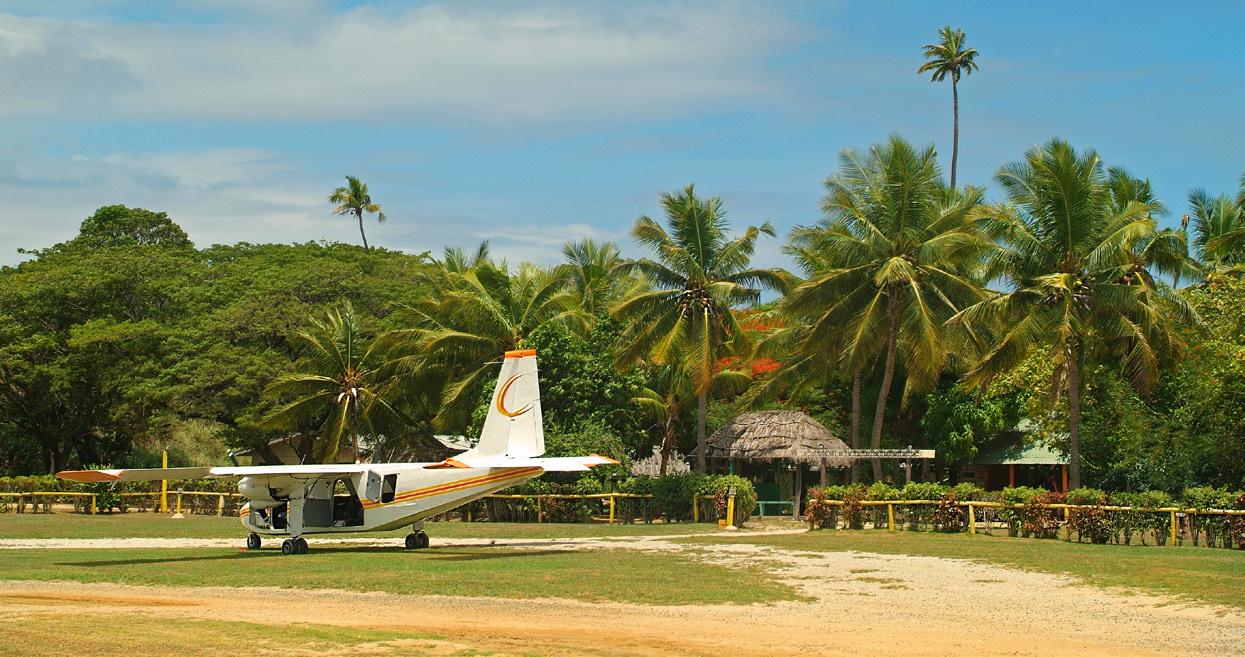
three new ARFFS vehicles, which will substantially improve the level of safety and preparedness in supporting aircraft operations at Nadi International Airport.
The first of its state-of-the-art Rosenbauer PANTHER 6x6 fire trucks fire will arrive at the end of this year, followed by a further two in July. FA will further invest in training and capacity building for its entire ARFFS team who will be in charge of its equipment across the company’s 15 airports.

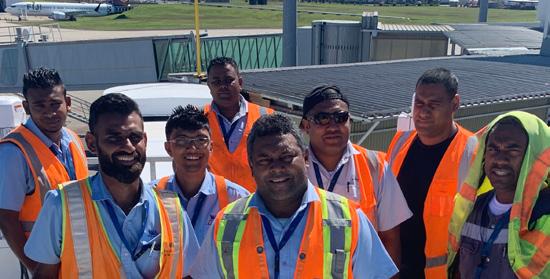
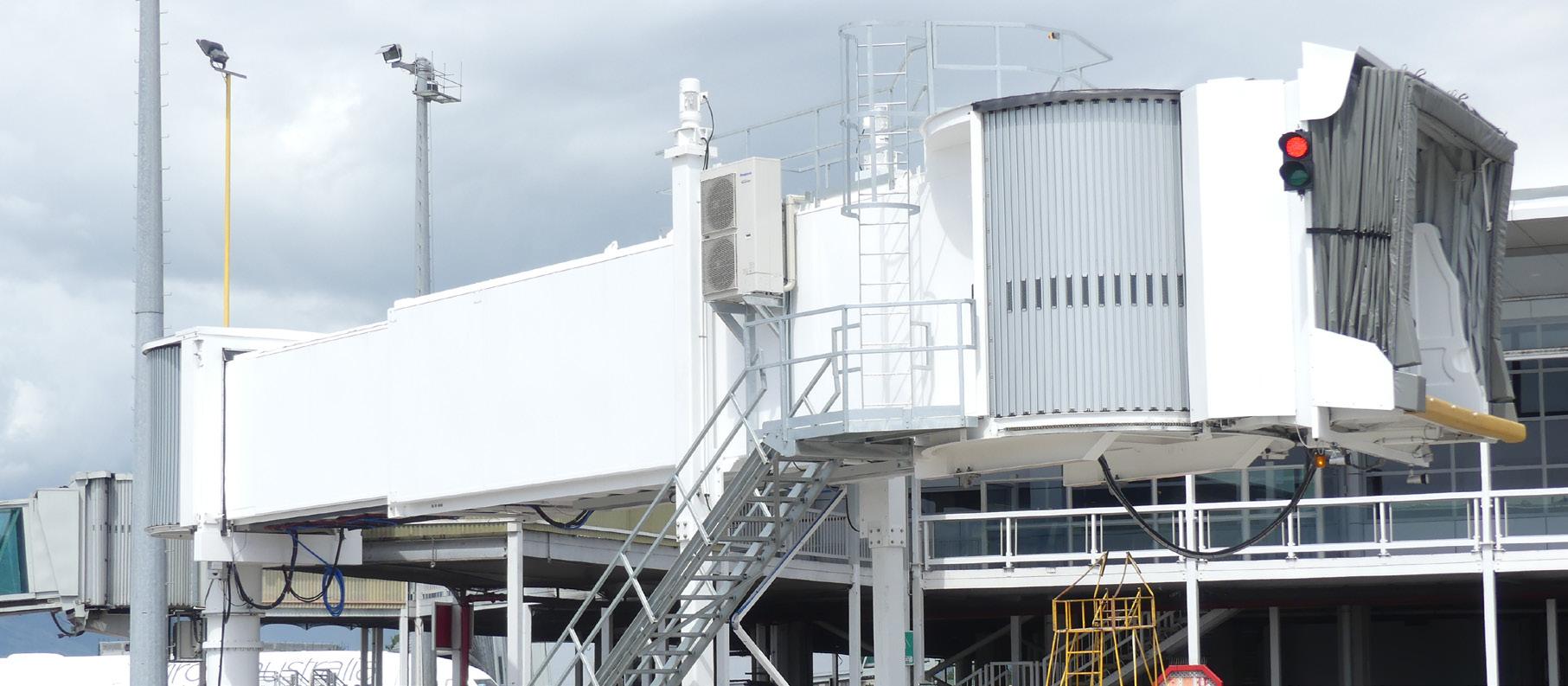
• Road and runway construction and maintenance
• Pavement engineering
• Road profiling and milling
• Water and sewer reticulation
• General land subdivisions and services
• General civil engineering construction works
• Asphalt (HMA) and cold premix
• Hire of trucks
• Hire of earthmoving machinery
• Supply of crushed concrete and roading aggregate material
• Supply of builders mix
• Supply of top garden soil Our wide range of services include:

is a 100 percent Fijian, familyowned business, which offers comprehensive services in civil engineering construction works in Fiji since the 1980’s. Our experienced and qualified engineering team offers innovation, simplicity, and quality deliverance within reasonable budget. Geotechnical testing:
• Supply of quarry sand and screened pebbles
• Nuclear density compaction testing (NDM)
• Clegg hammer CIV, CBR testing
• Schmidt hammer concrete testing
• Dynamic cone penetrometer (DCP) testing
• Internal PSD and moisture control on aggregates
• Asphalt and concrete coring Suppliers of:





The ARFFS system implemented by FA will have a substantial and meaningful impact on the airline as the airport’s safety is secured whilst the company continues its success in the coming decades.
As the company looks towards the Fijian aviation sector, it is well-positioned to play a vital role in contributing to the country’s economic growth. Internally, it
endeavours to have a positive impact on its local community and support the growing population, whose livelihoods depend on the tourism and trade sectors.
Internationally, the company continues to rebound from the detriments caused by the global pandemic. Thus, FA is dedicated to the improvement of its internal infrastructure and enhancing its
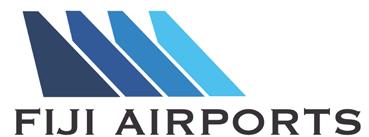
passenger experience to become industry-leaders. As a result, the company can further bolster the country’s global engagement and cement Fiji’s status as a global aviation hub. airportsfiji.com










To round off each issue, we ask our contributing business leaders for their views on the same question
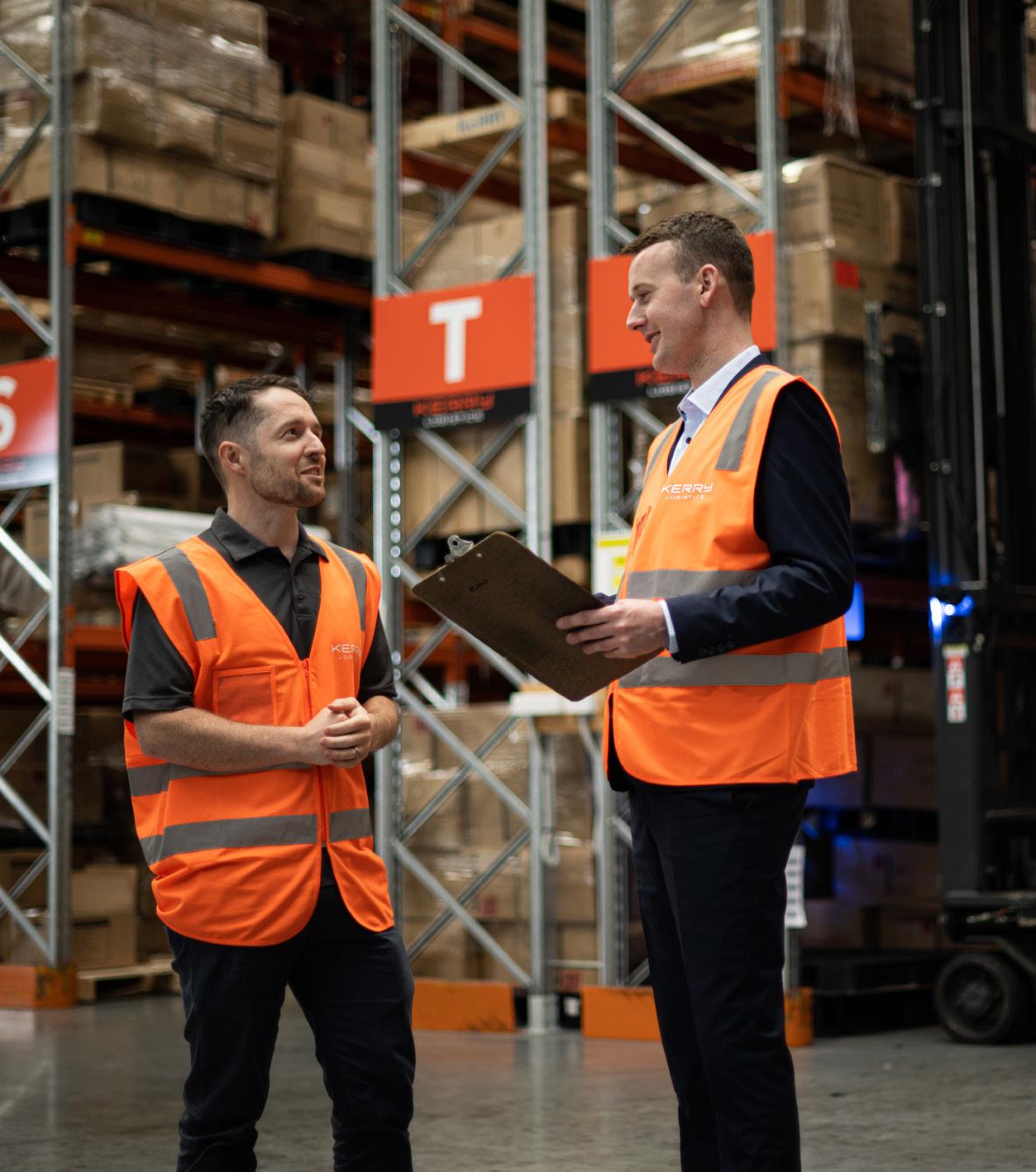

Peter Absalom Operations Director, Novus Bolashak
“We hope to leave behind an educated, well-balanced, and employable workforce. We want to make sure our staff, who we have put through training, have career continuity once our project closes. Kazakhstan is a small country, and considering we have 5,000 people on the job, we have to make sure we find sustainable future employment for these people.”
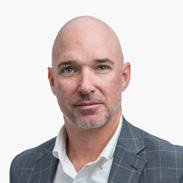
Cameron Green
Managing Director for Oceania, Kerry Logistics Oceania Pty Ltd“Our vision extends beyond immediate business goals. We aim to set a lasting legacy as a pioneer and leader in the logistics and supply chain industry. Our focus is not just on providing exceptional services but also on driving innovation, fostering sustainability, and empowering communities. We want to be remembered as a company that not only met the logistics needs of its clients, but also contributed positively to the environment and society at large.”

Hamish Moffat
Managing Director, Zenith Energy
“If we can enhance our employees’ careers and their lives because they’ve been involved in the energy transition and actually delivering it rather than talking about it, that’s a very nice legacy for us to leave that they can pass onto their families. Then there is the positive impact on our First Nations people; there’s so much to be done, and we’ve got a real opportunity to make a difference for them.”
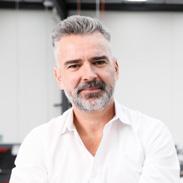
Bernie Quinn
Engineering Director and Partner, Premcar Pty Ltd“I want everyone who has worked at Premcar to say they loved their time here. We’re in the people business; we make people happy with the new vehicles we create, and we strive to make people happy in their jobs at Premcar. I want people to love our products, but most importantly I want people to have loved working with us.”

Jeanette
Lee CEO, Envipure“Envipure aims to leave a legacy as a leader in environmental engineering, pioneering sustainable solutions and services in air and water treatment solutions. The company seeks to set new industry standards, inspire environmental responsibility, and exceed regulatory norms. Envipure’s legacy is rooted in corporate social responsibility, integrity, and a positive impact on communities and the environment, fostering a cleaner and healthier world for future generations.” Contact
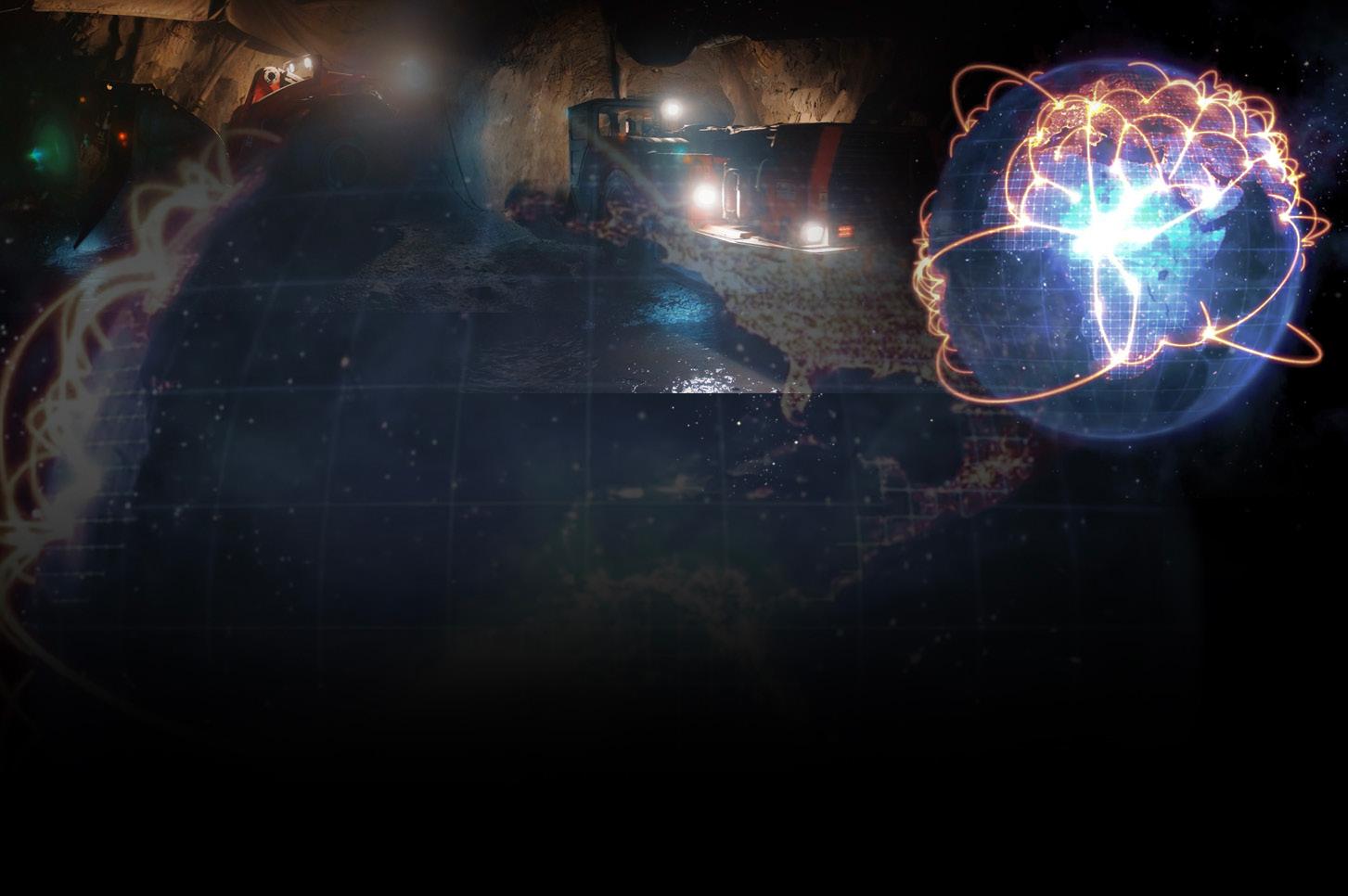


Building on the global success of its regional titles – APAC Outlook, Africa Outlook, EME Outlook, and North America Outlook – Outlook Publishing is proud to introduce a digital magazine and web platform dedicated to the mining & resources sector.
As mining organisations worldwide confront unprecedented change, embracing technological innovations and incorporating critical environmental sustainability agendas, now more than ever is the time to showcase the strides being taken in this dynamic sector.
A multi-channel brand, Mining Outlook brings you the positive developments driven by organisations across the global mining industry through our various platforms. Discover exclusive content distributed through our website, online magazine, social media channels, and dispatches delivered straight to your inbox with a bi-weekly newsletter.
Through this compelling new venture, we foreground the movers and shakers of the industry. To participate as a featured company and join us in this exciting endeavour, contact one of our Project Managers today.
www.mining-outlook.com

The Outlook Creative Services Division provides a complete web design, build and delivery service that leverages the expertise of our in-house production team. Complementing Outlook Publishing’s portfolio of esteemed global publications, our specialist skills cater to clients around the world with a fully bespoke service.
If you would like us to bring your digital story to life with passion and purpose, visit www.outlookcs.com or email hello@outlookcs.com